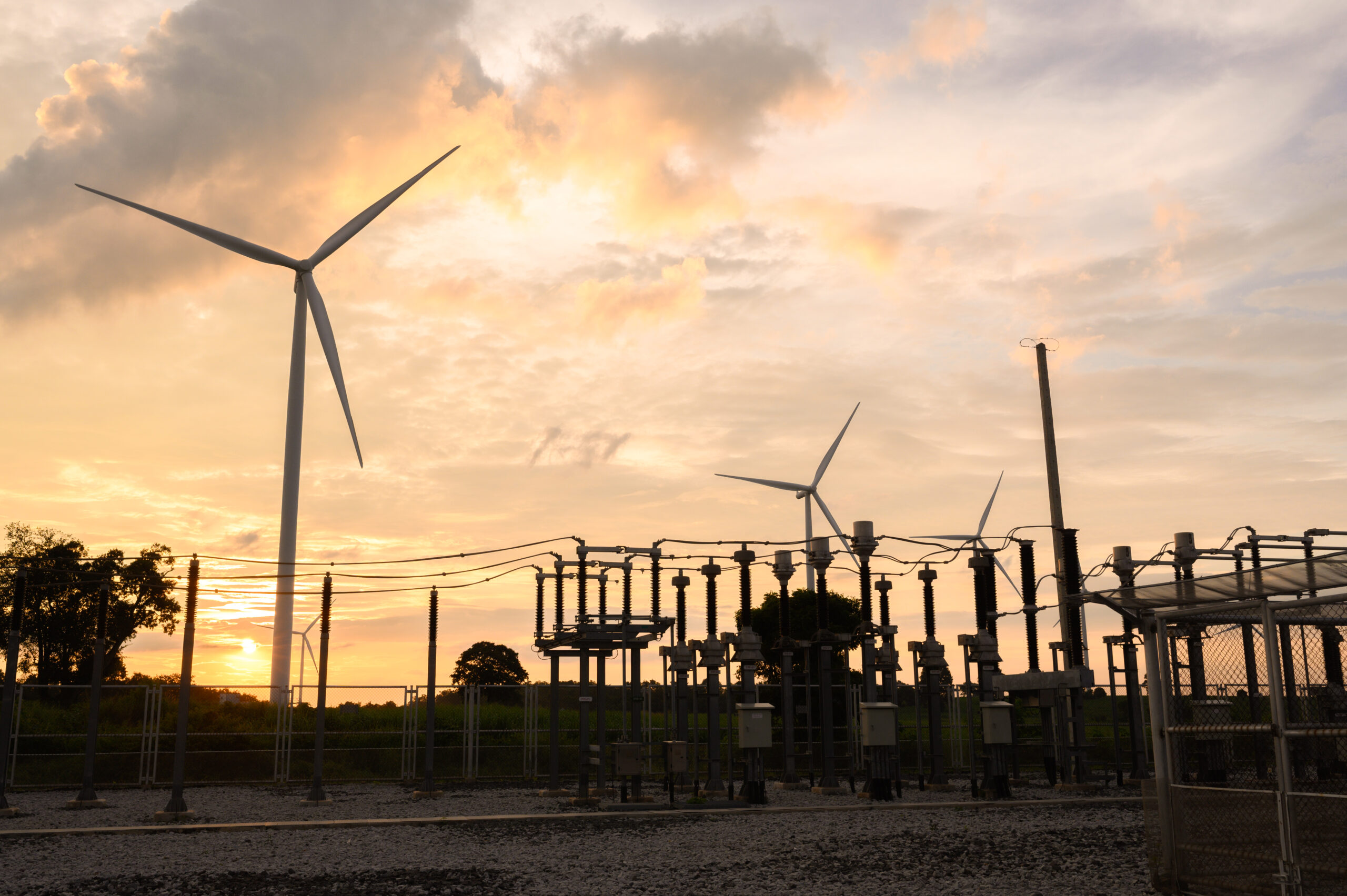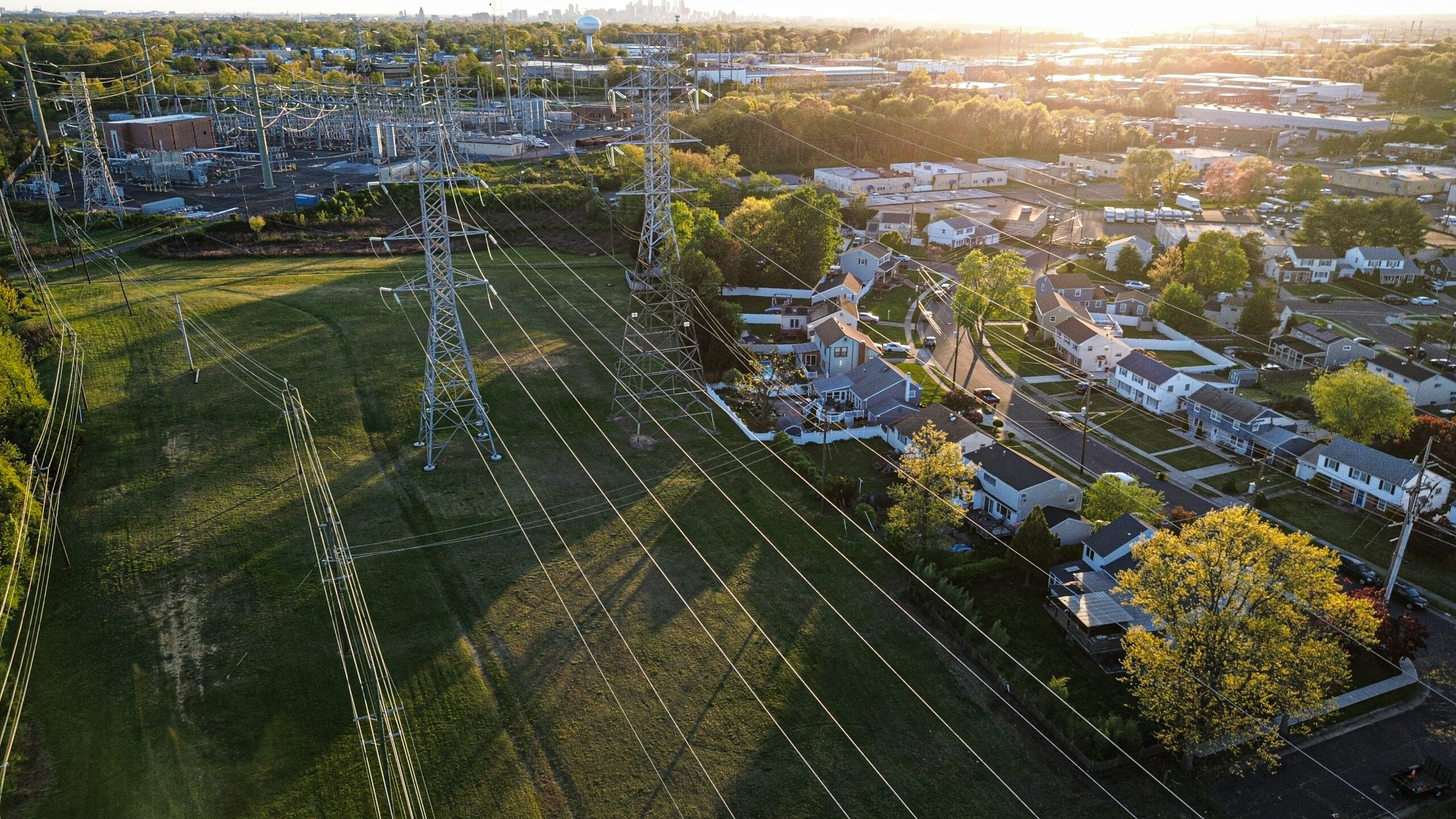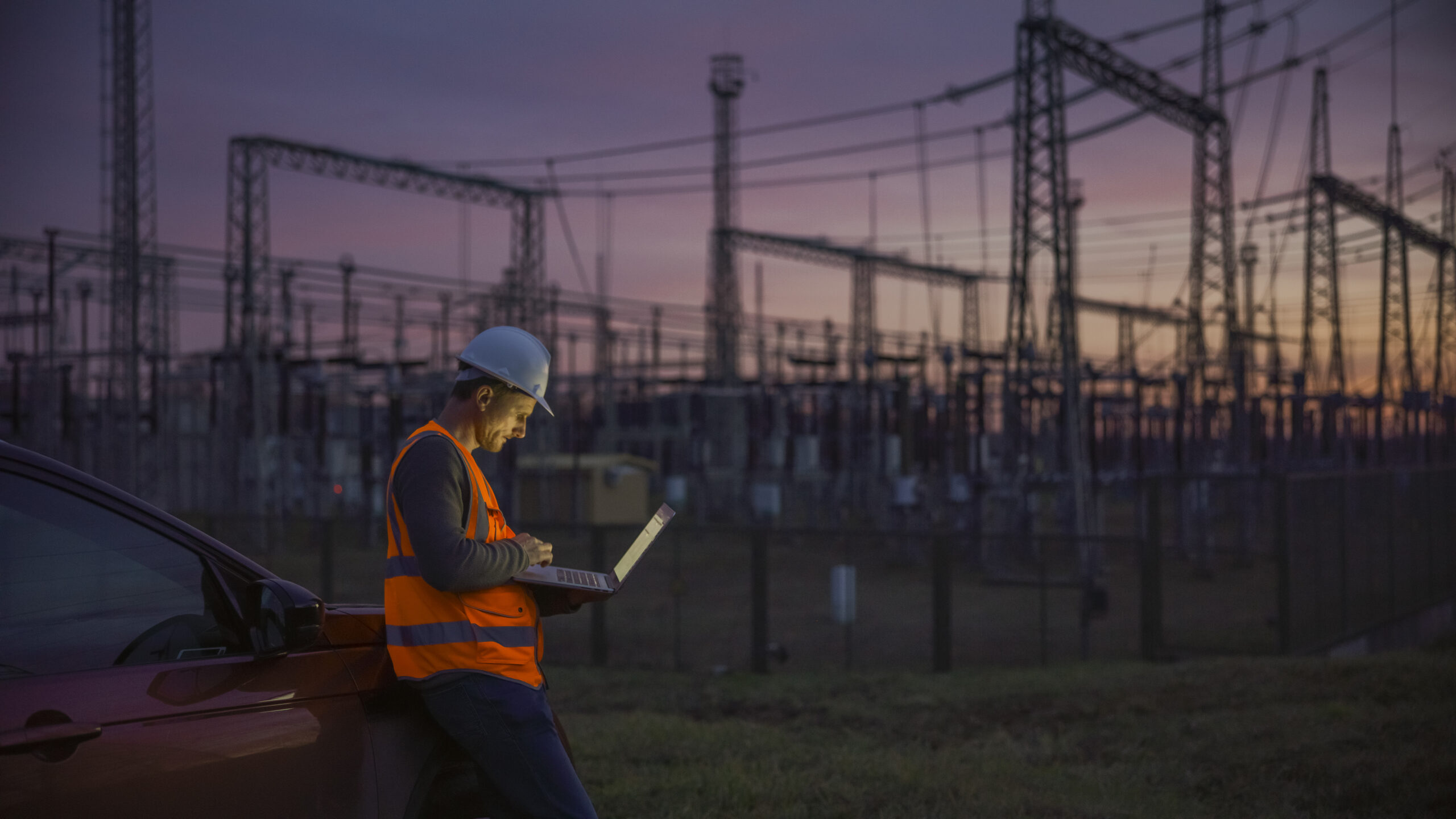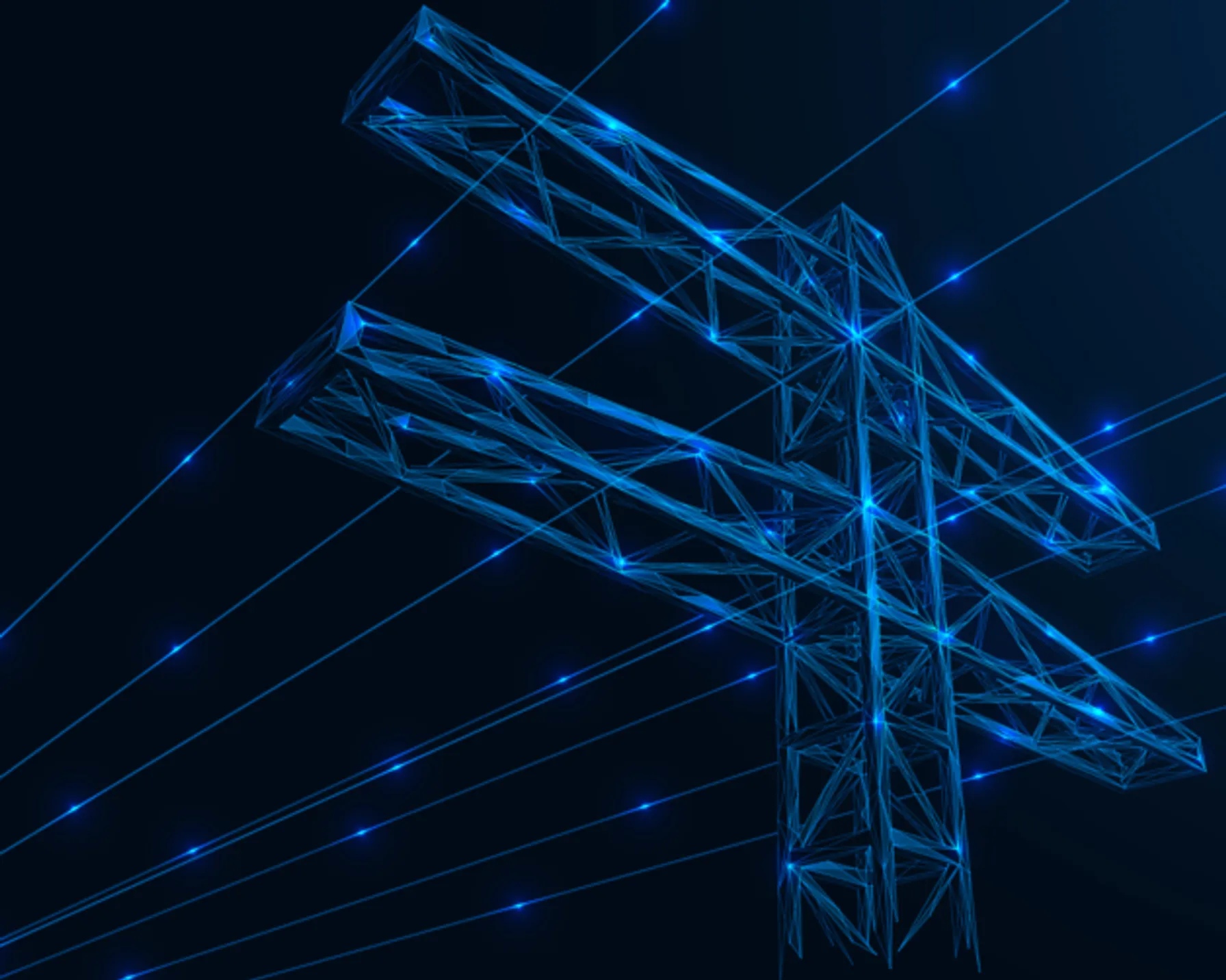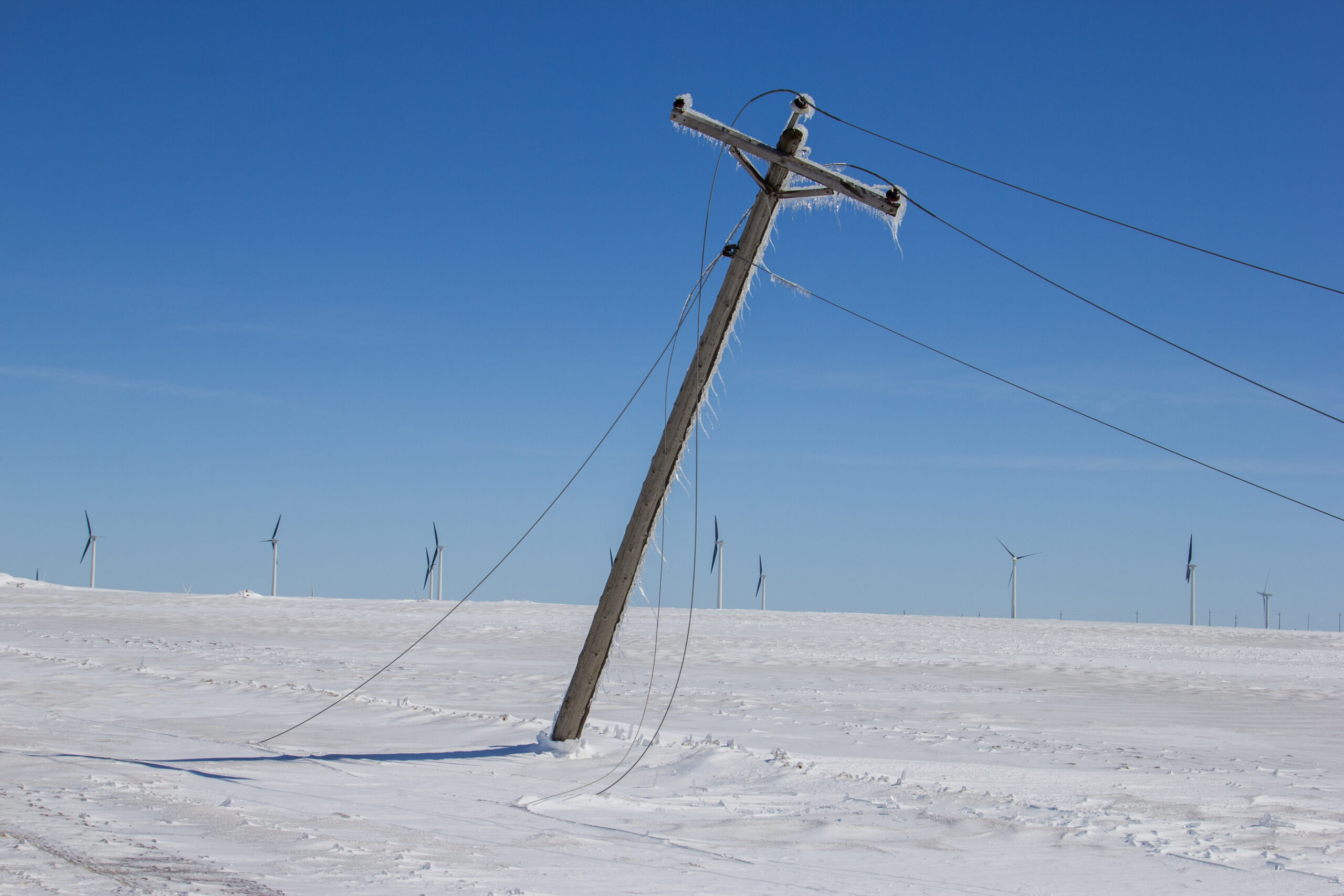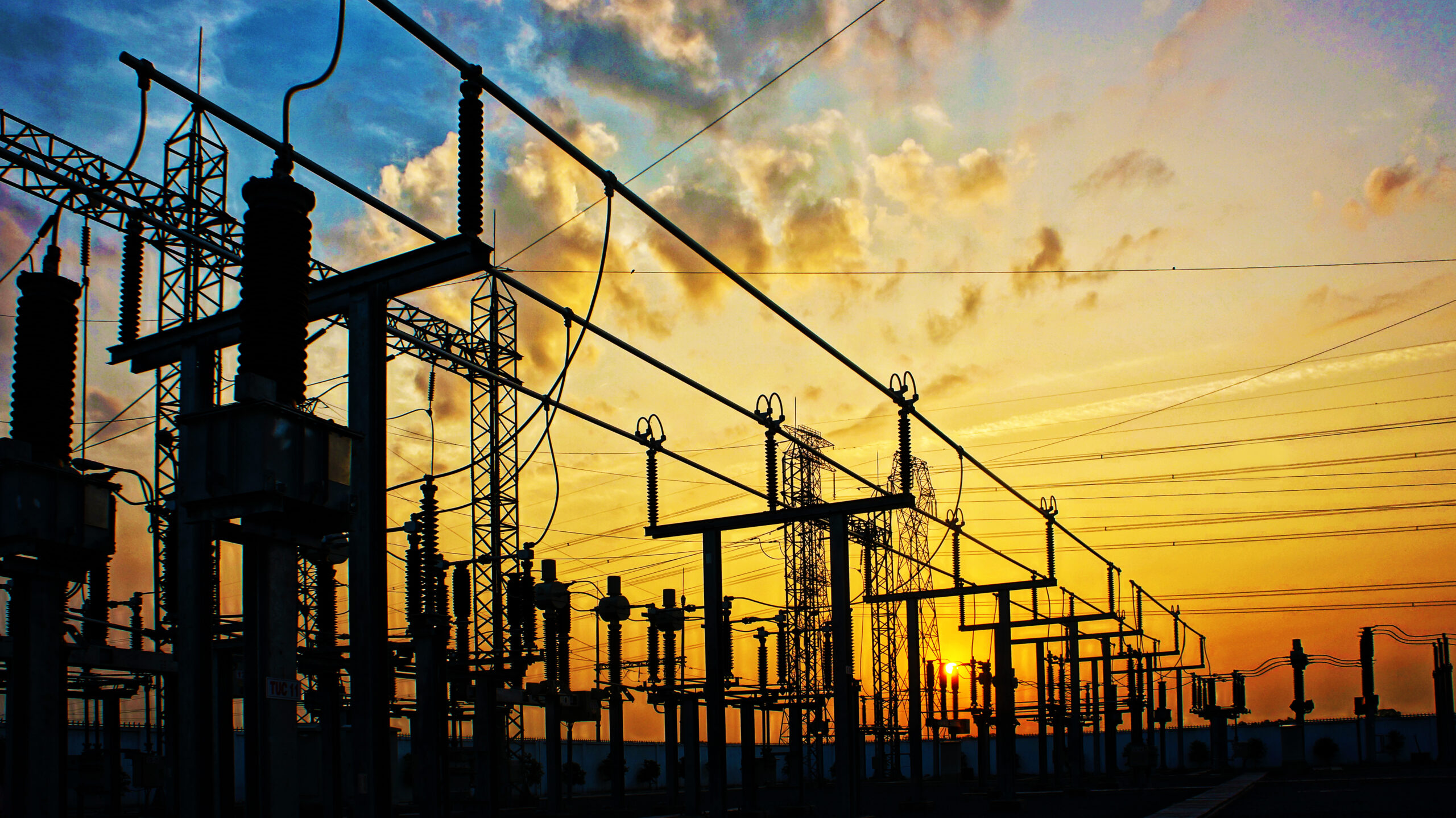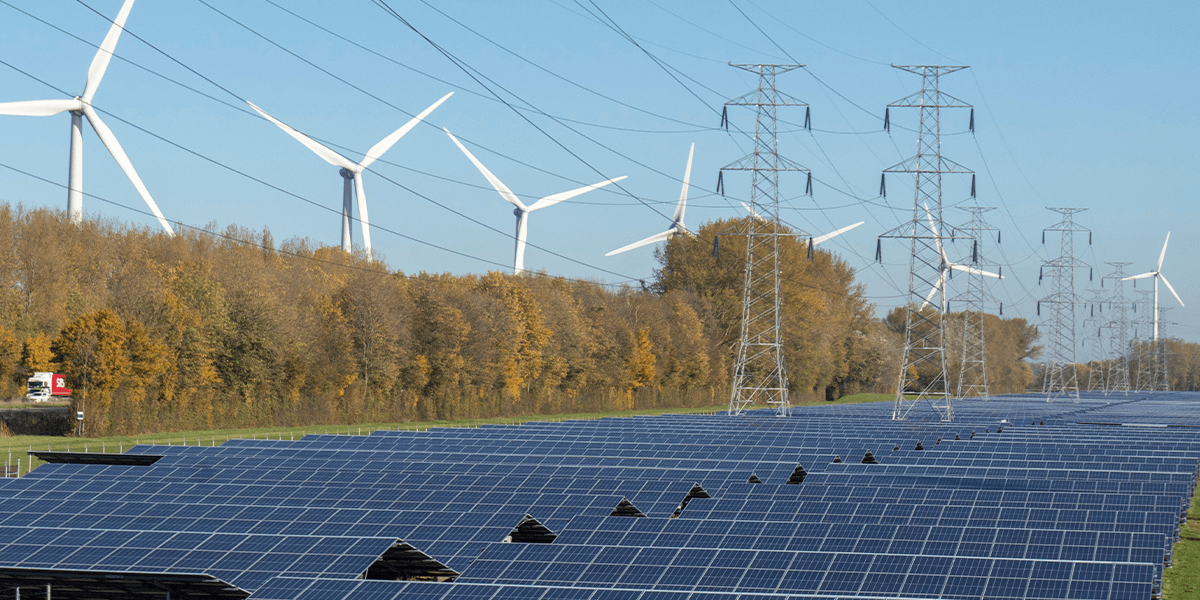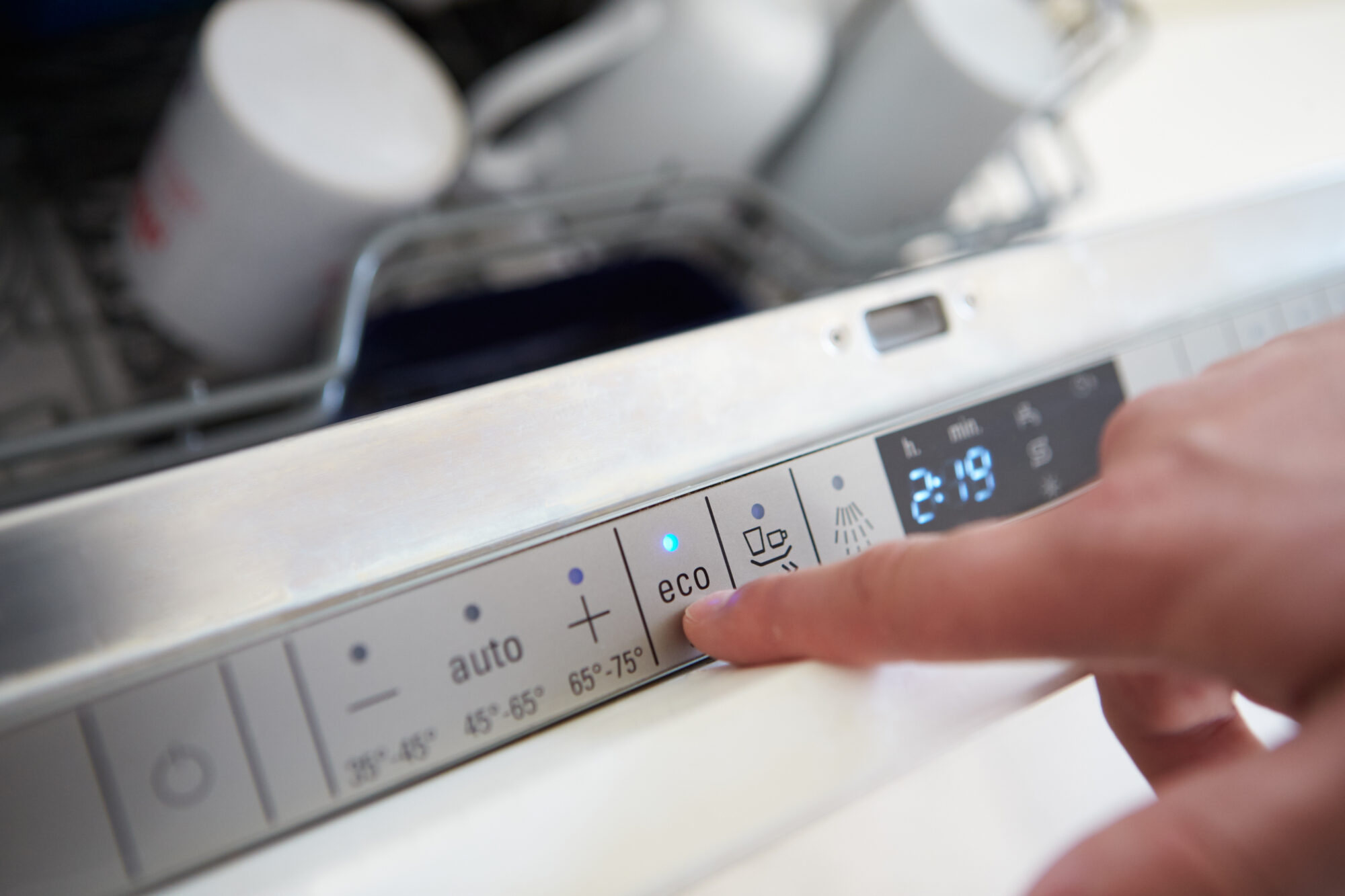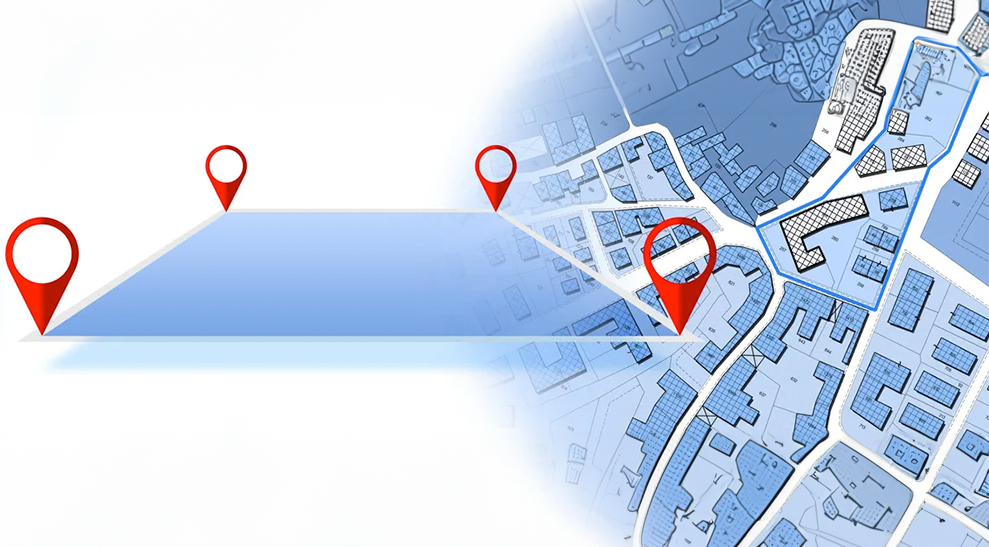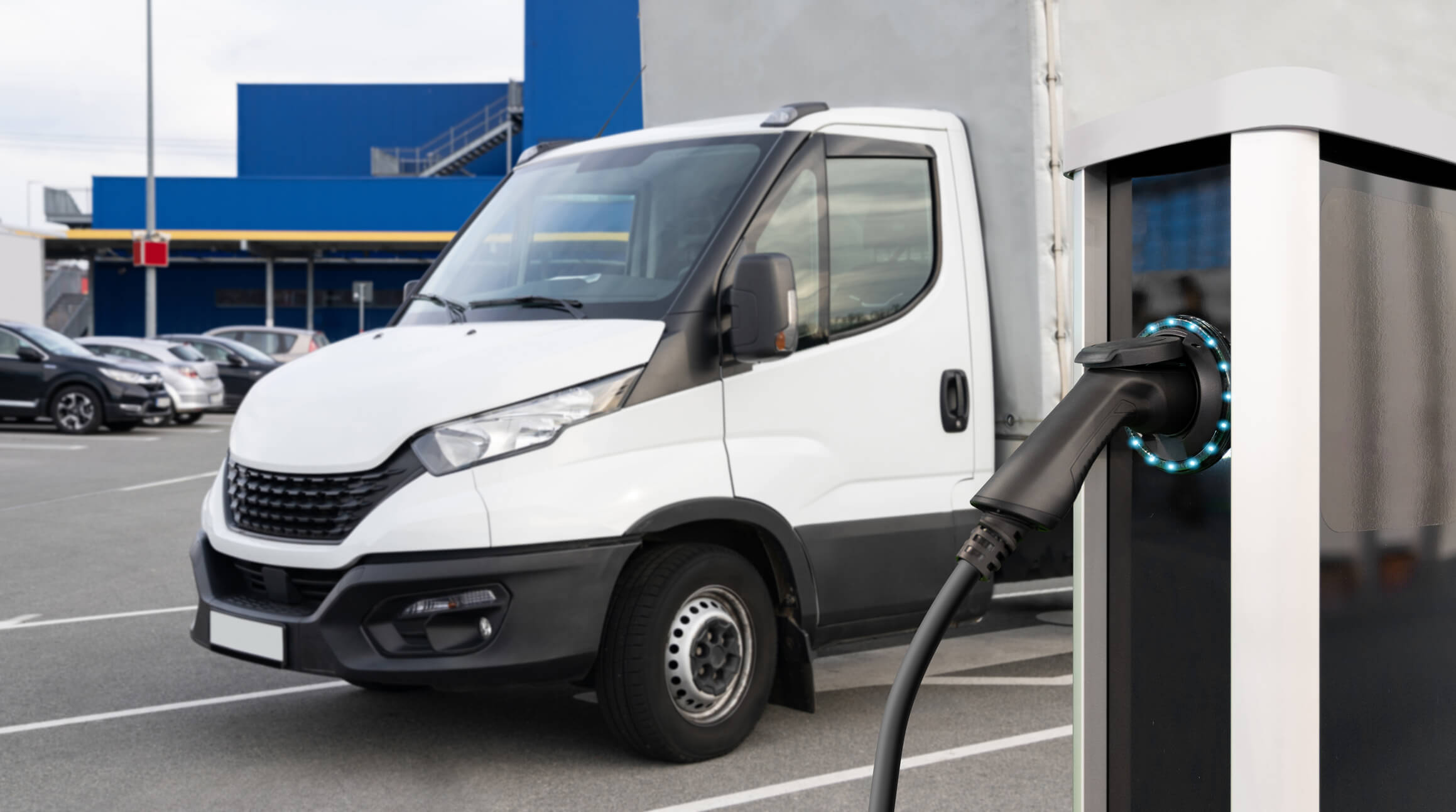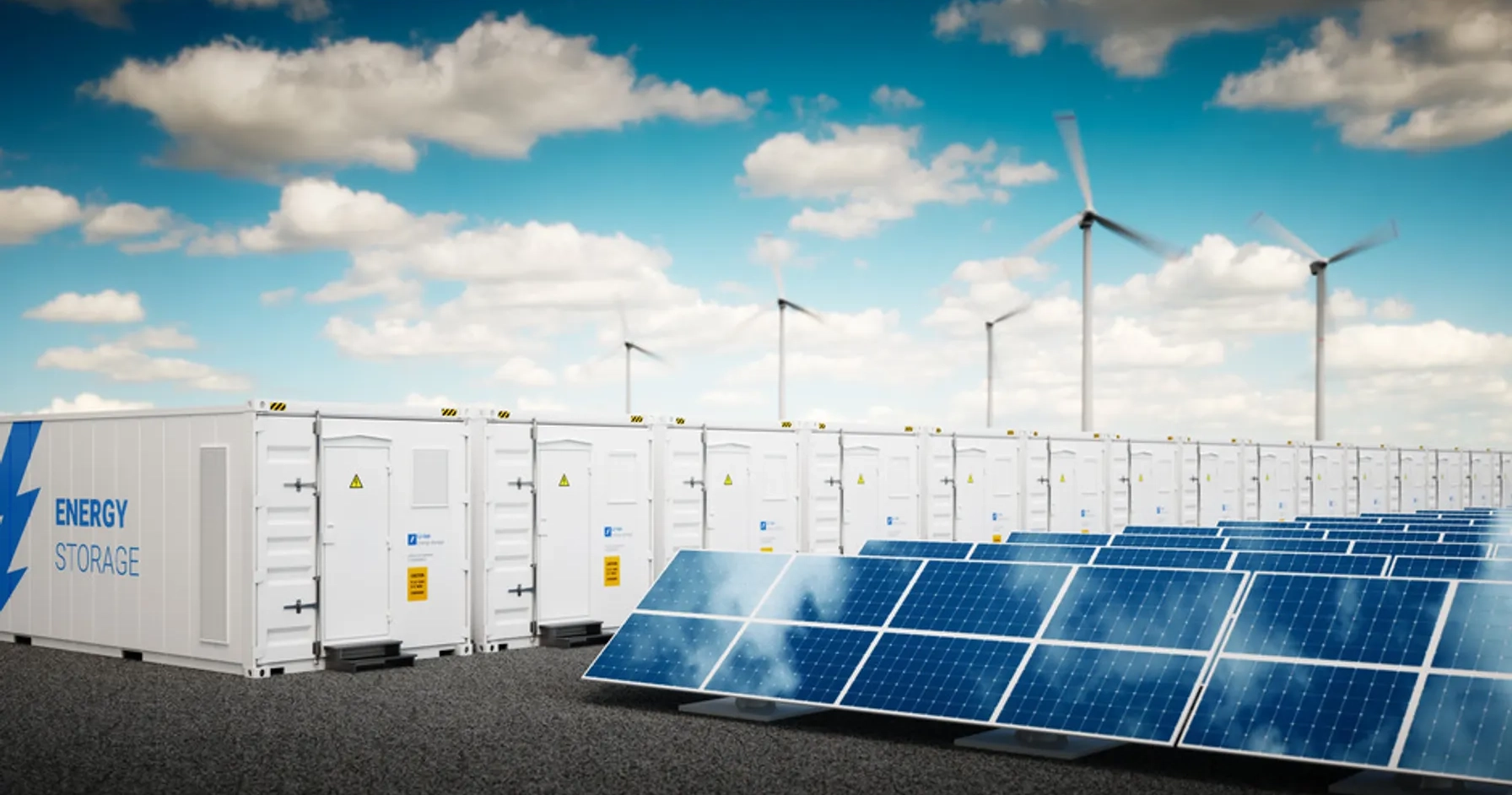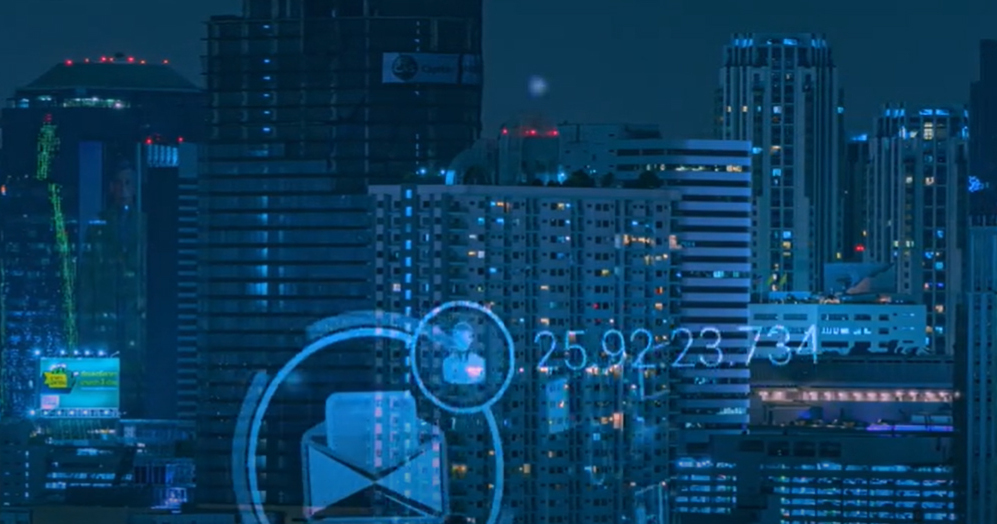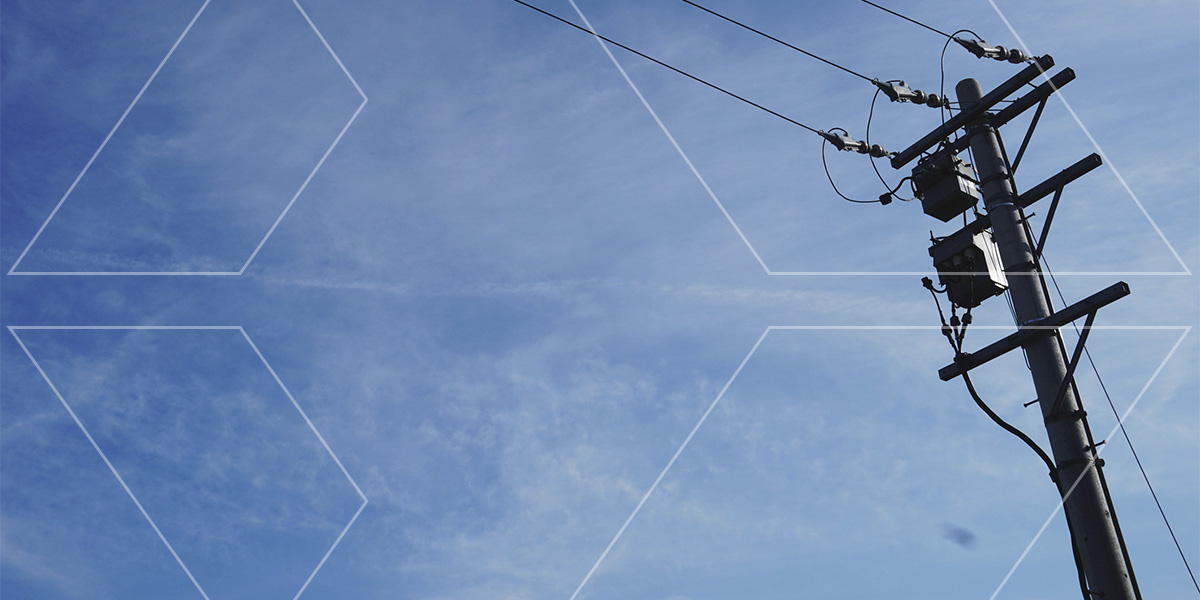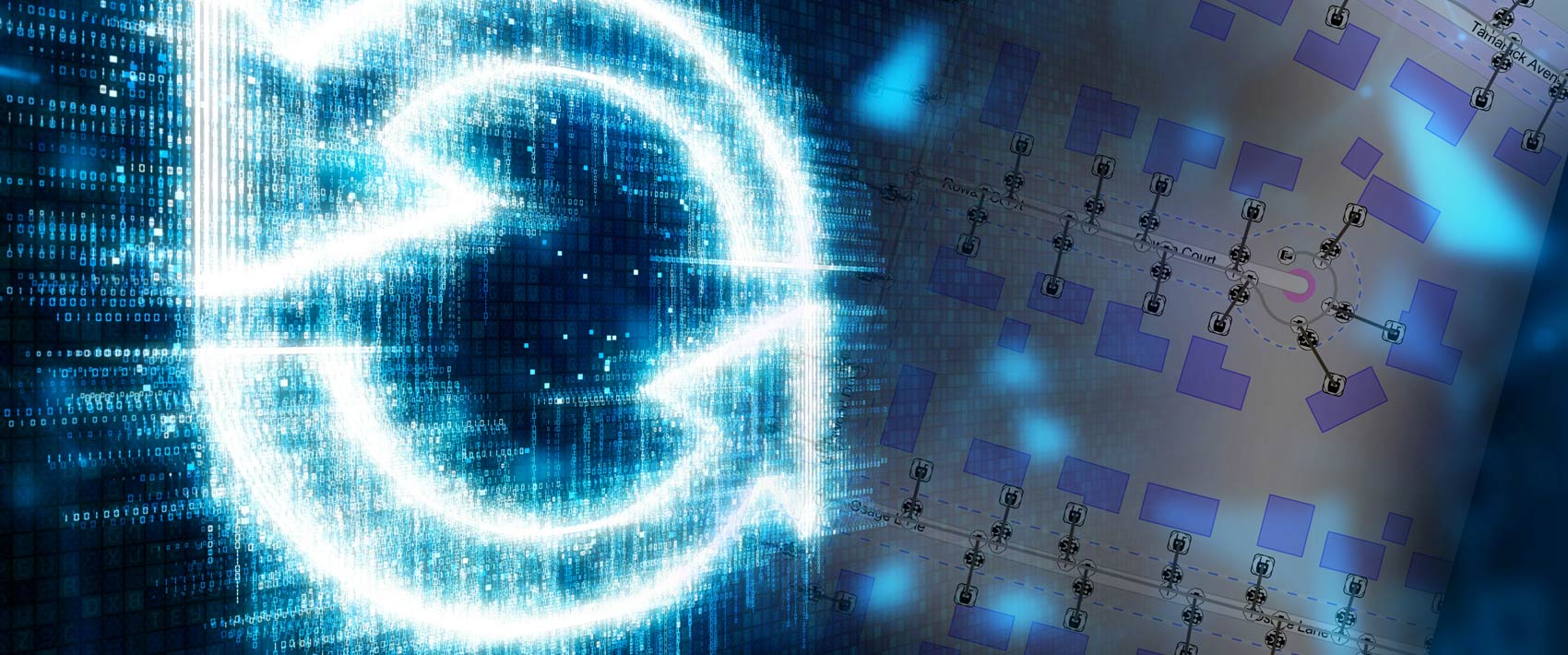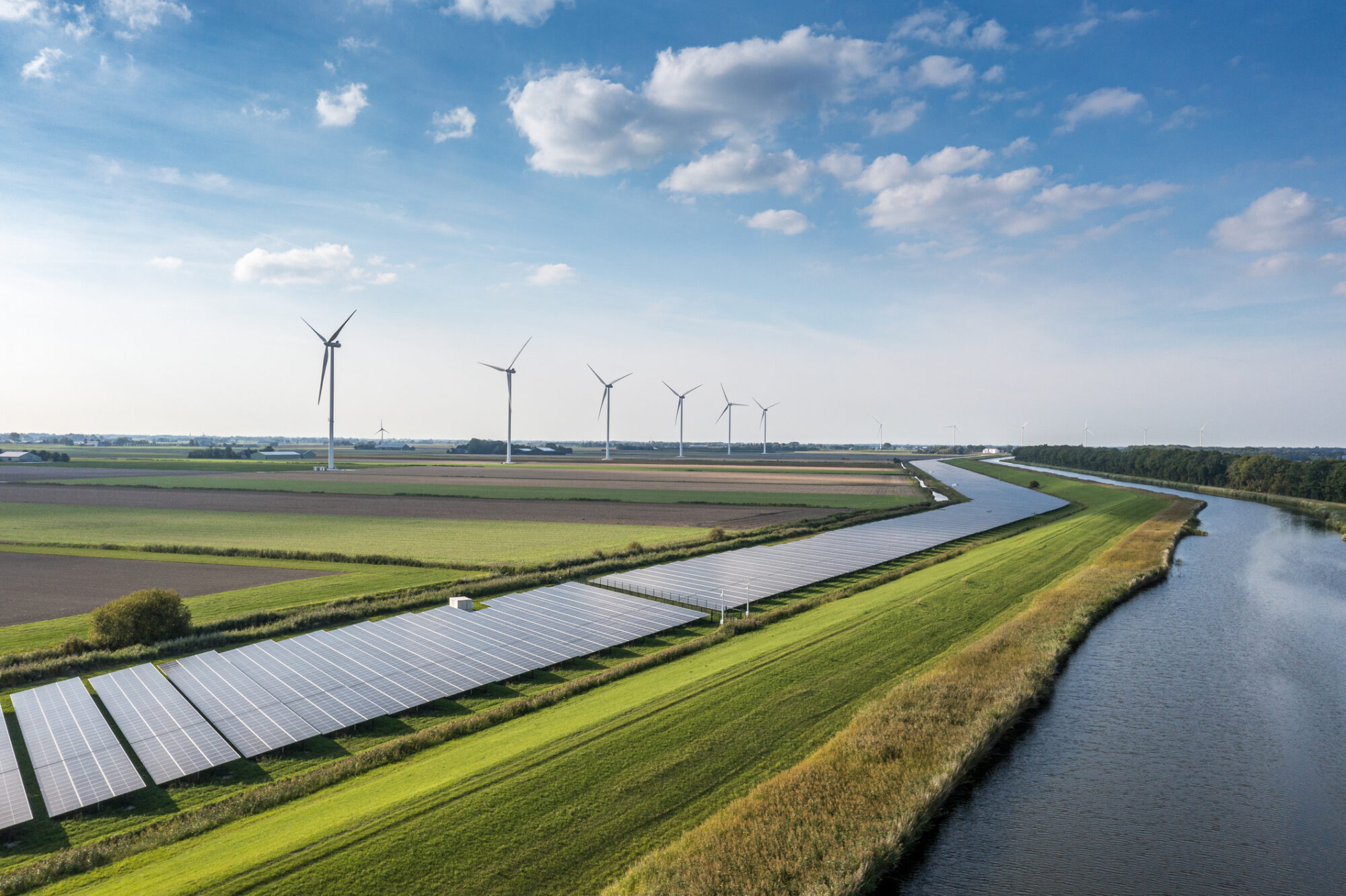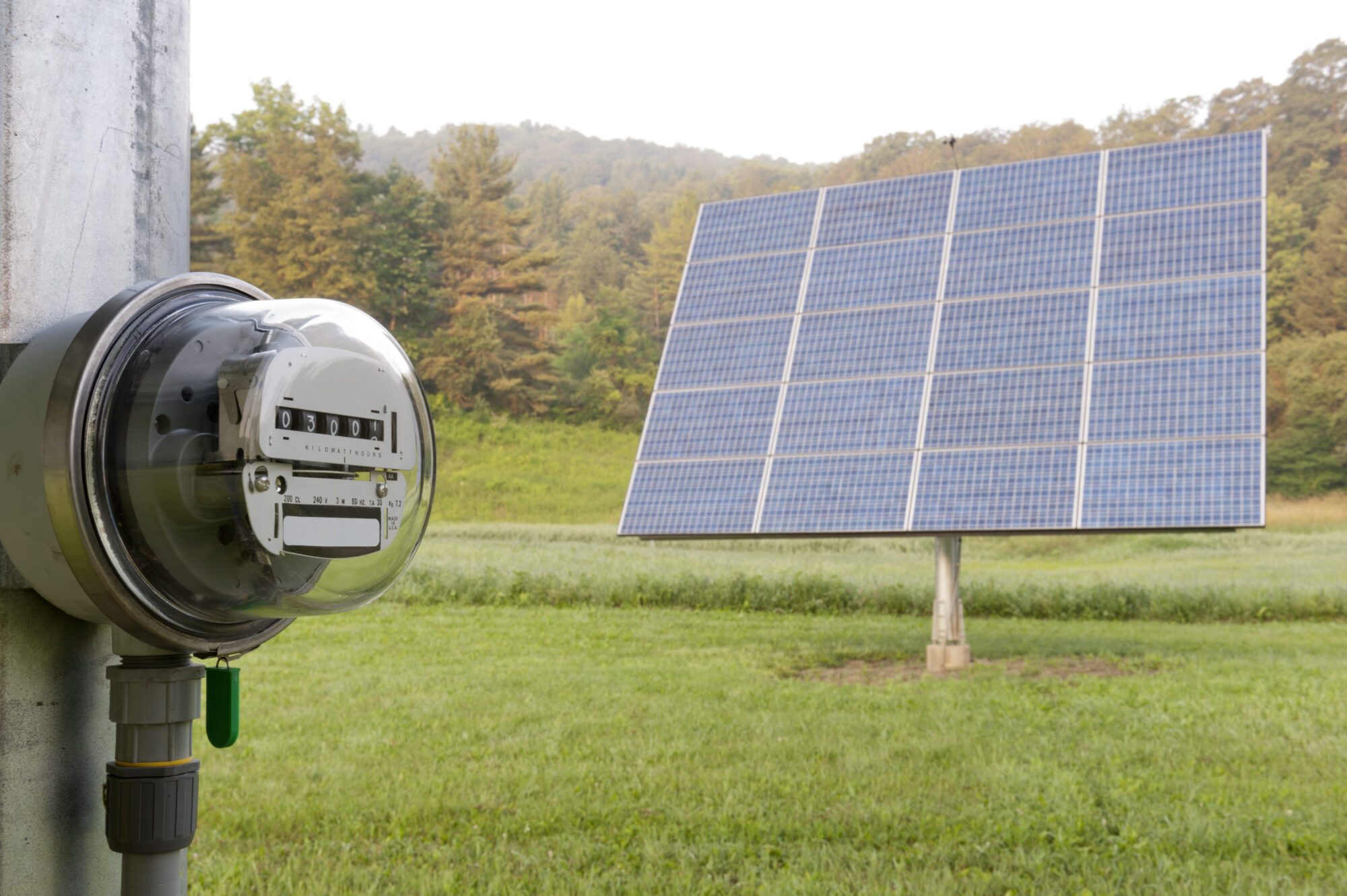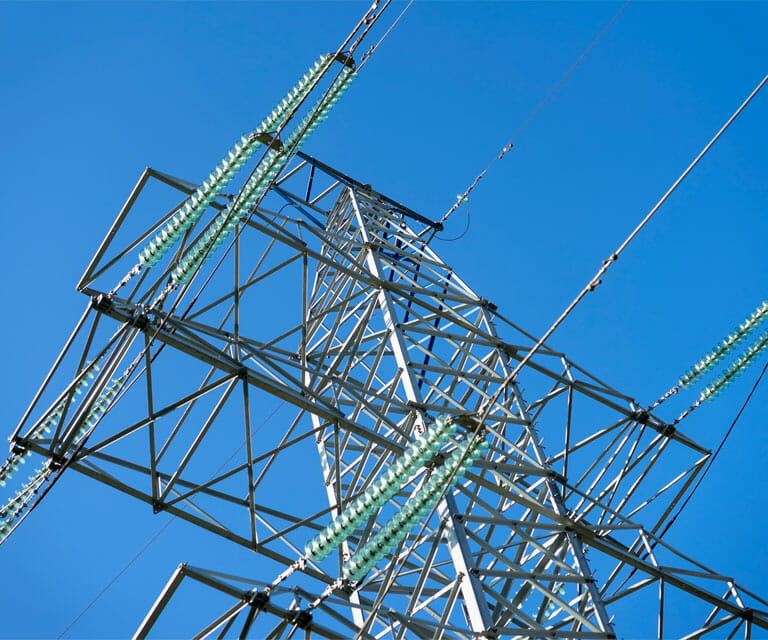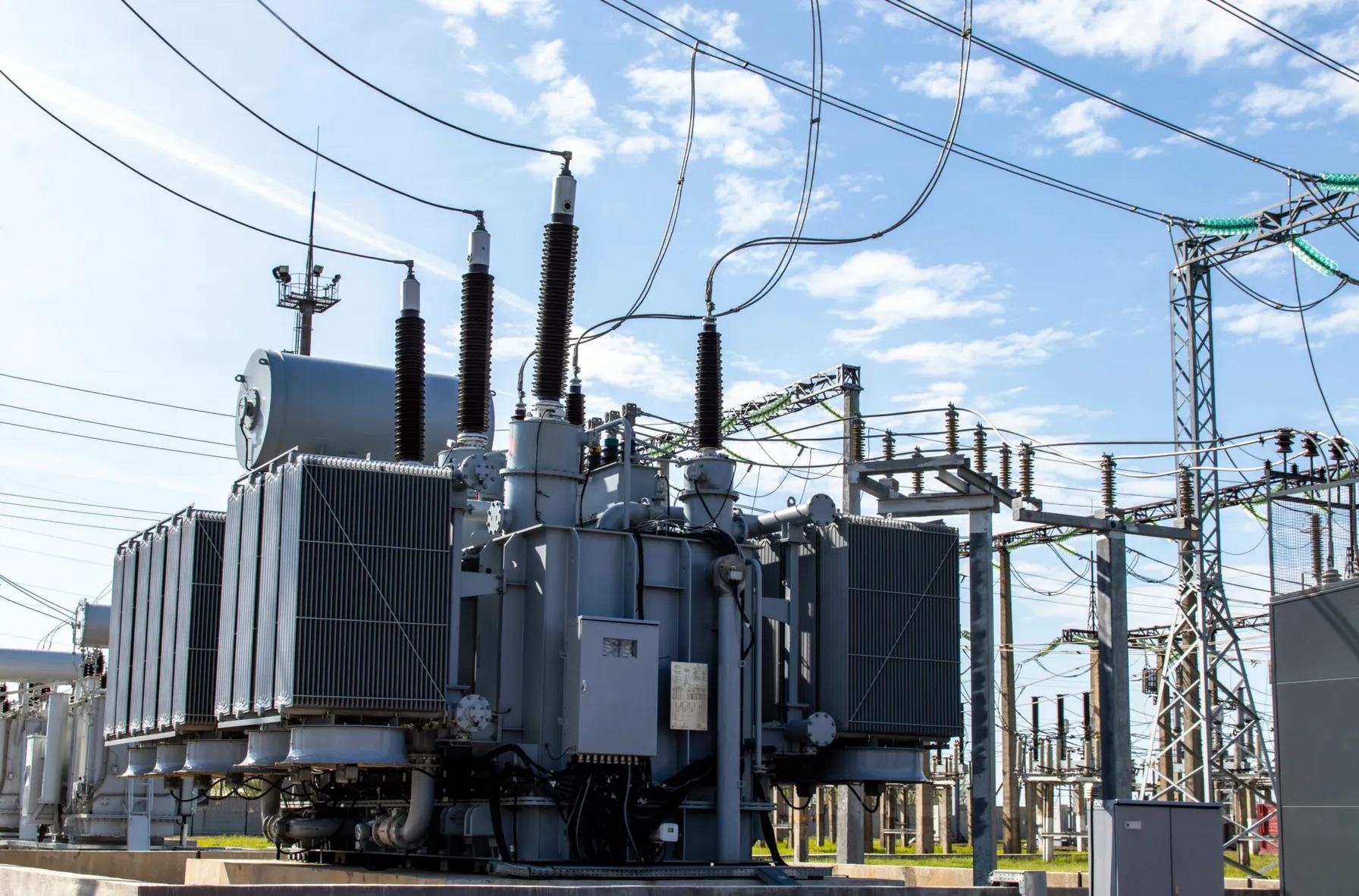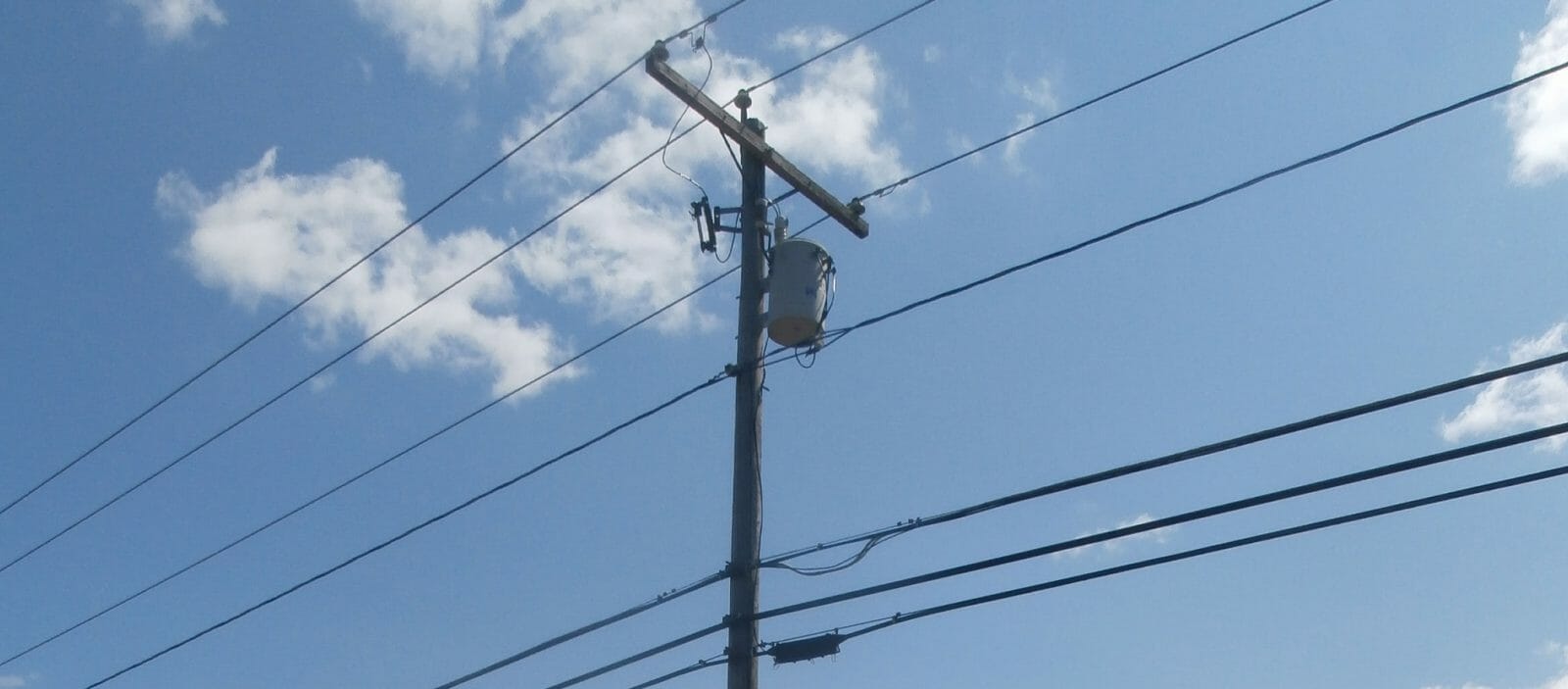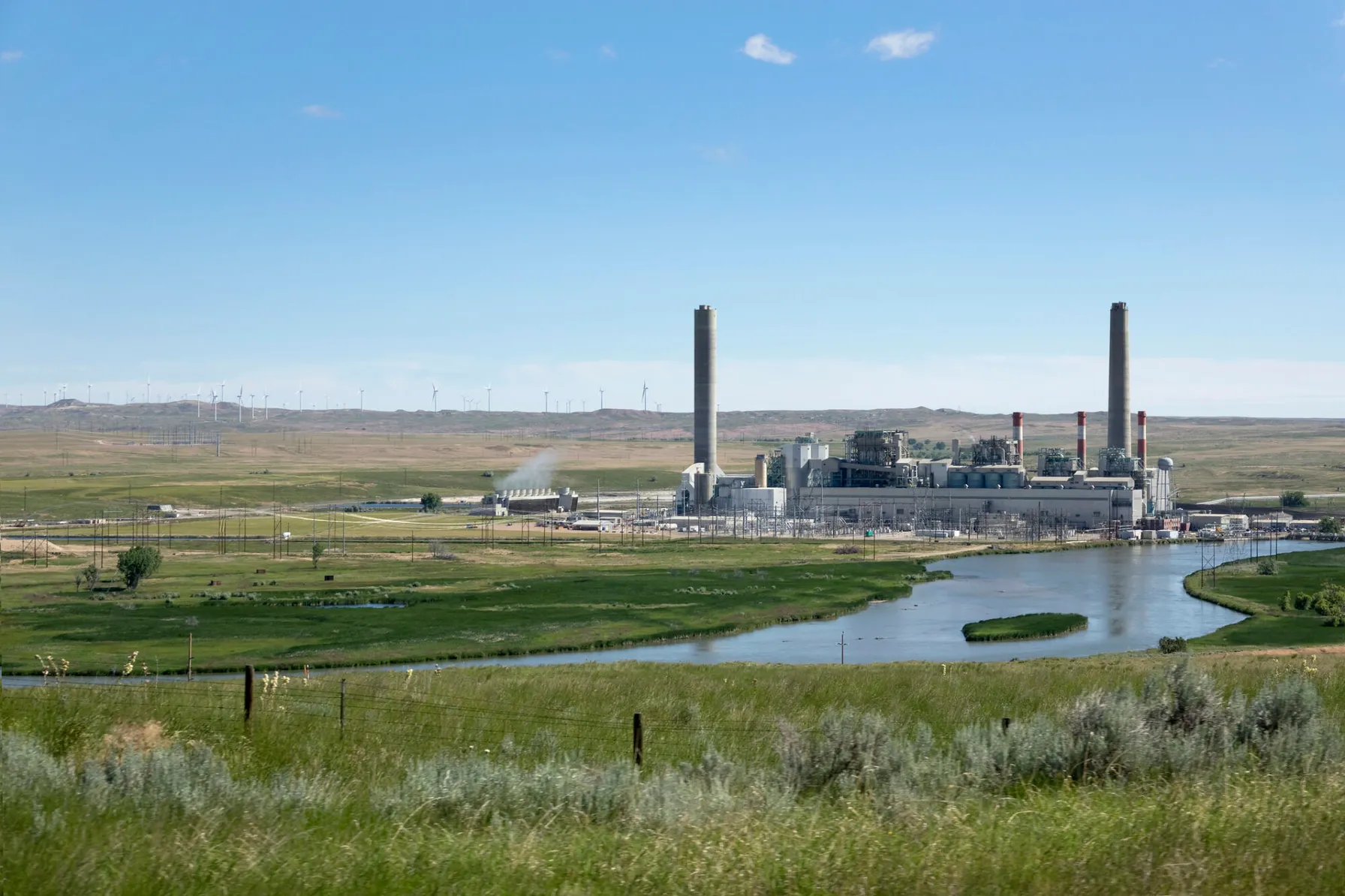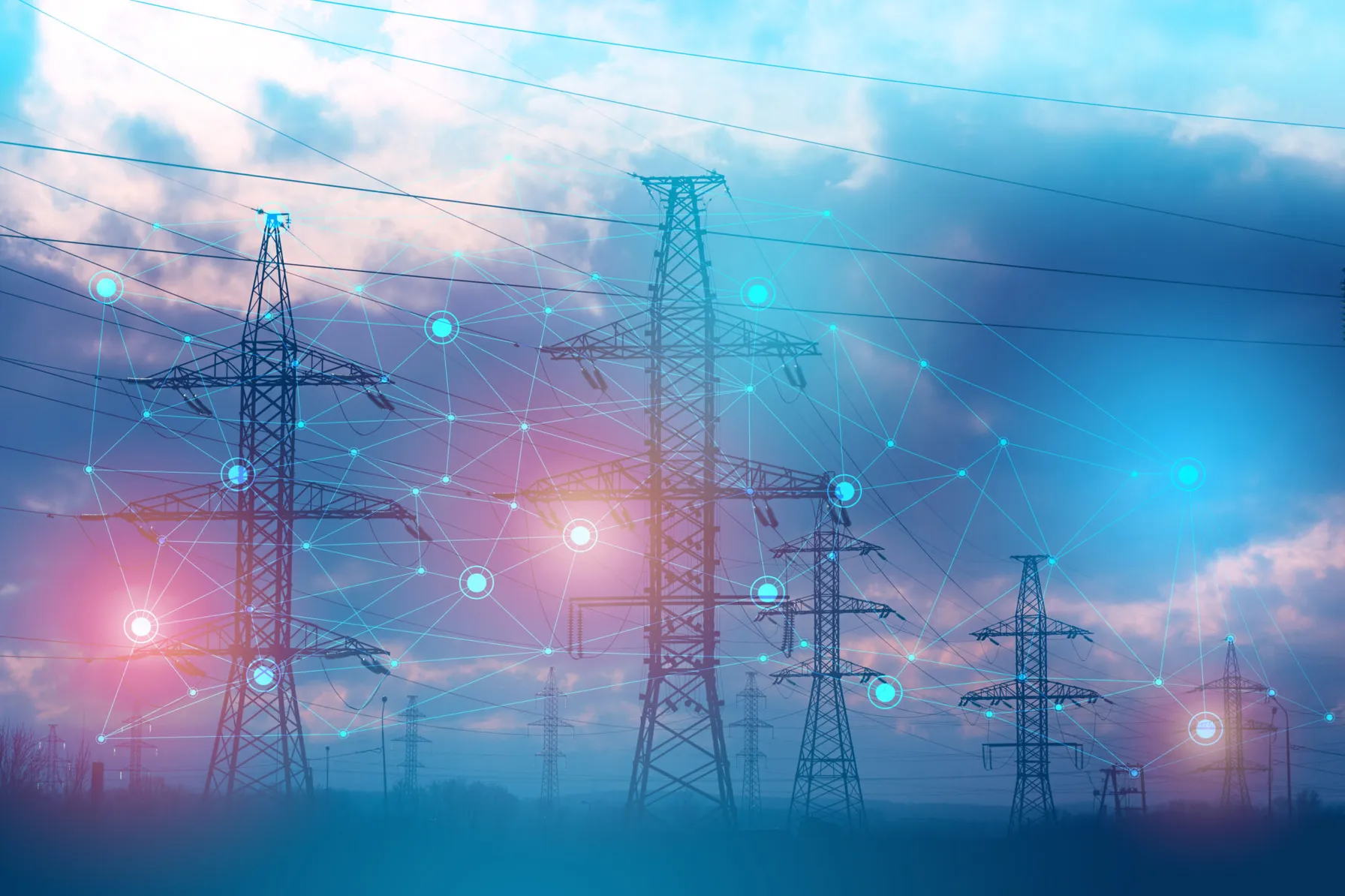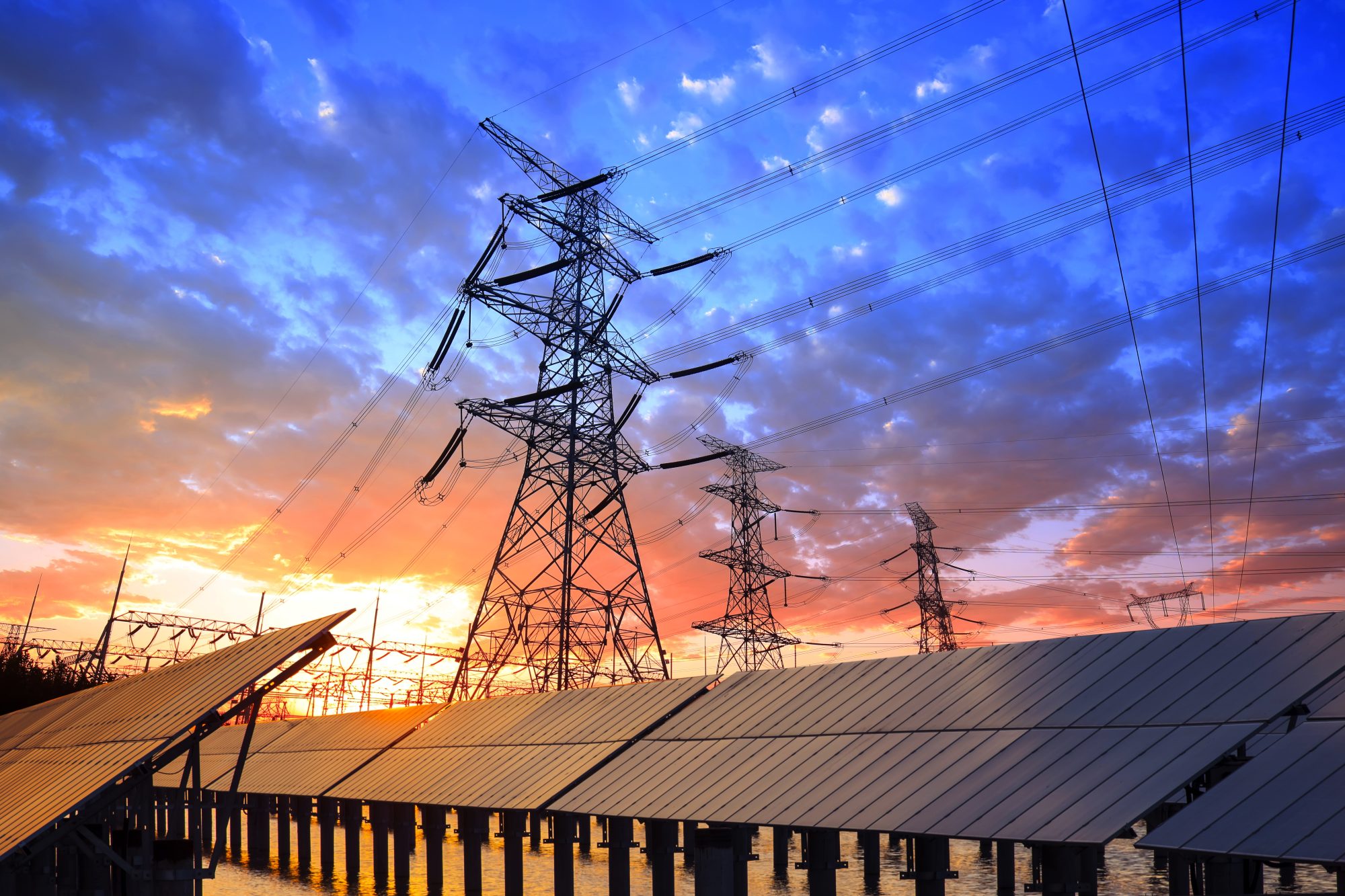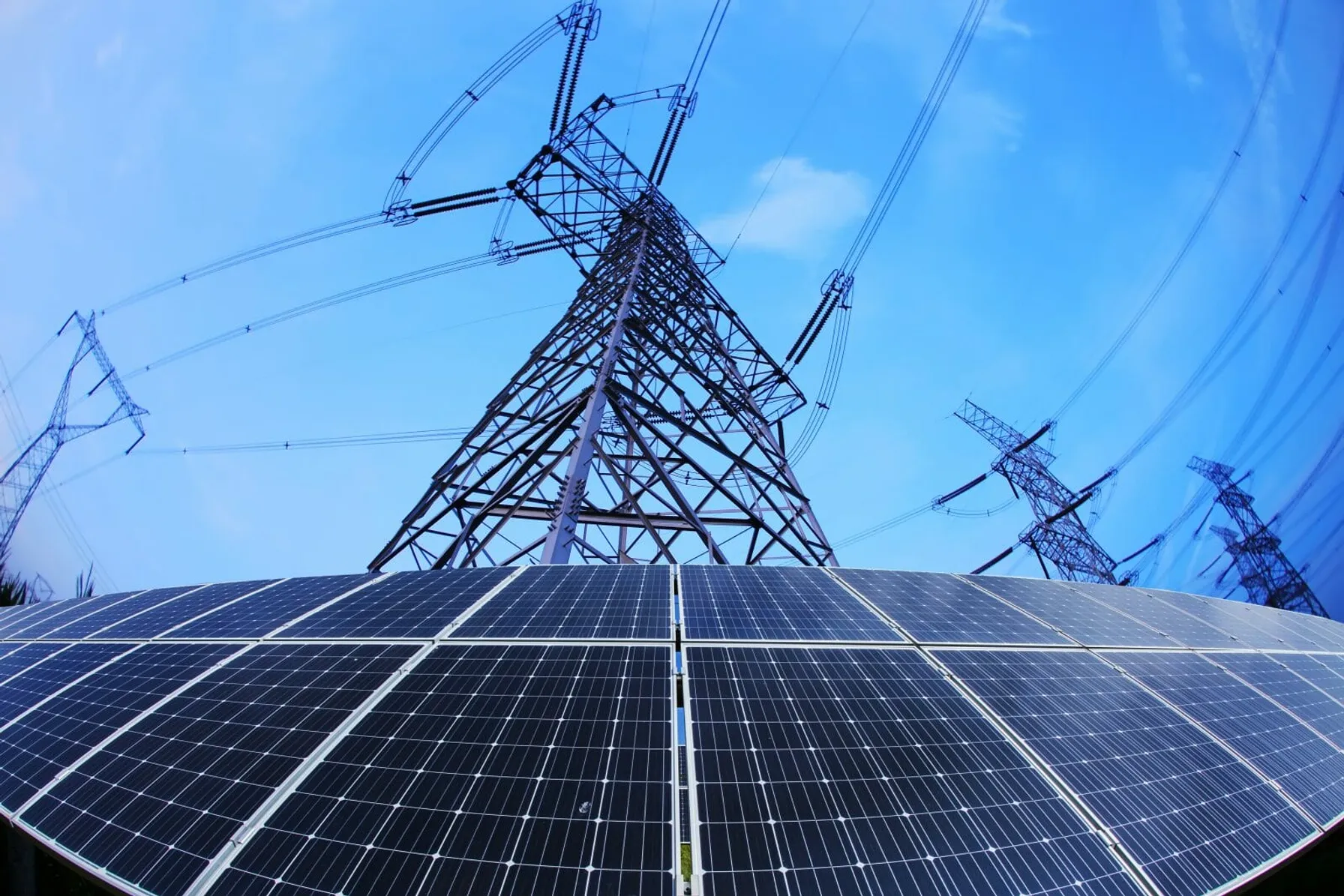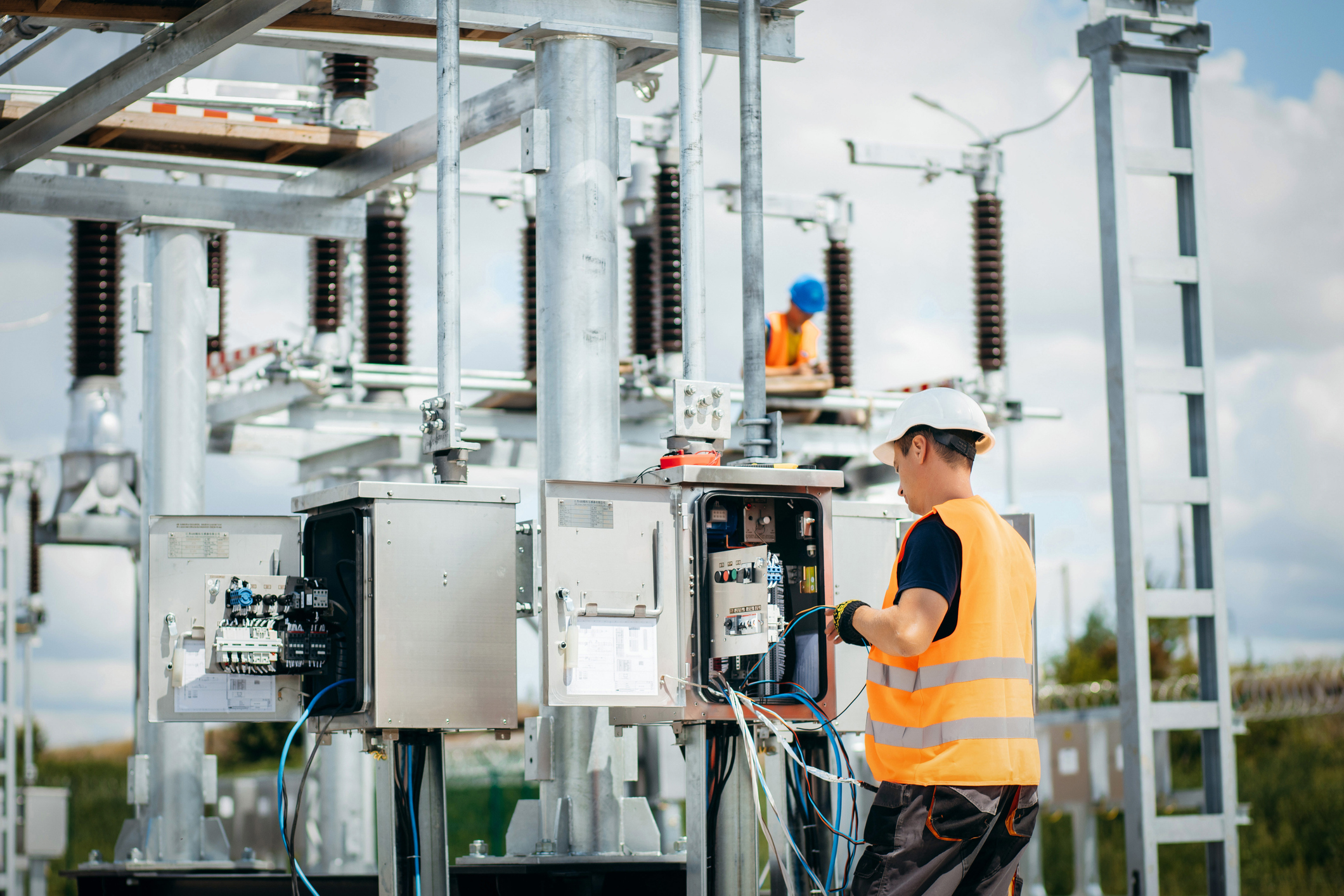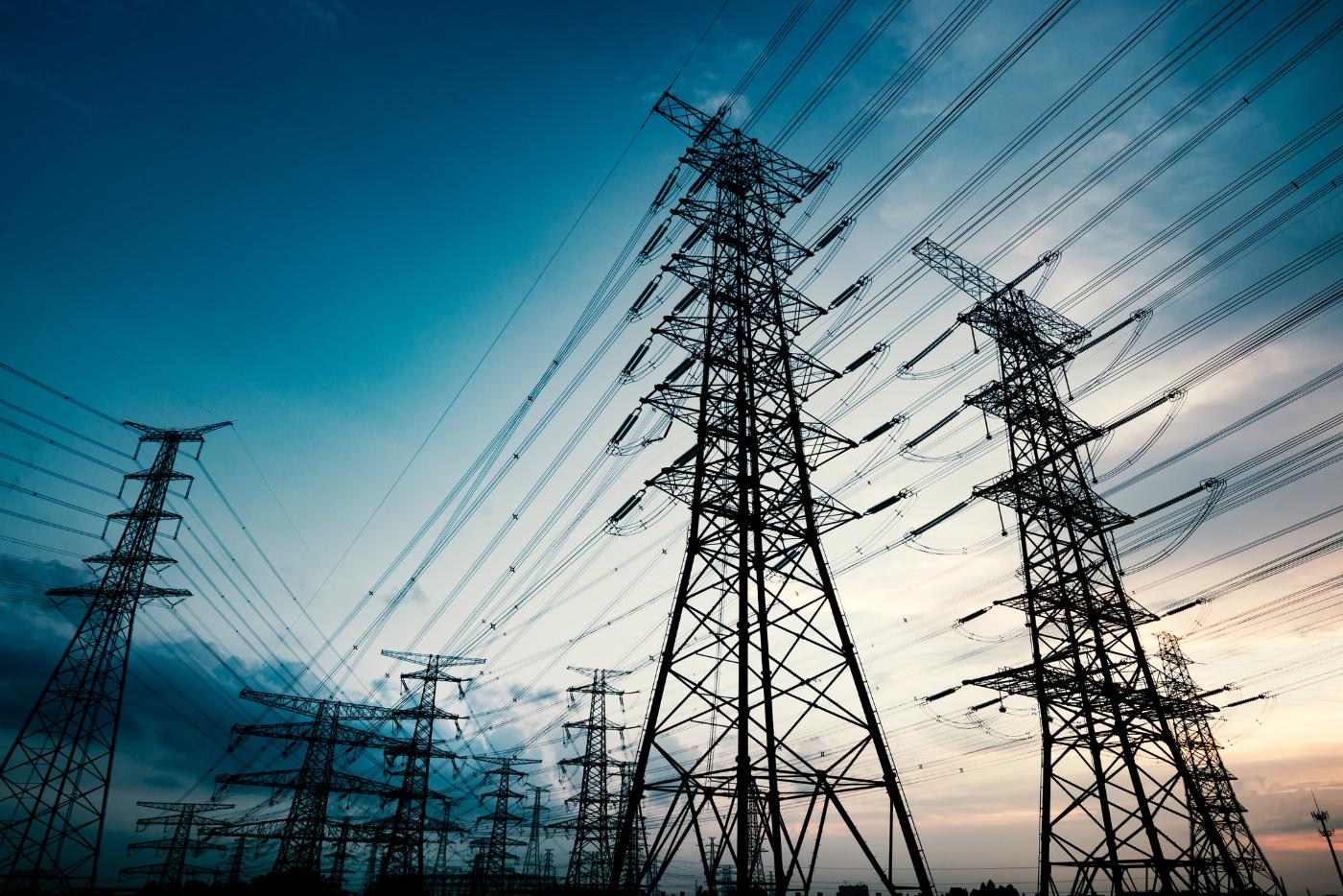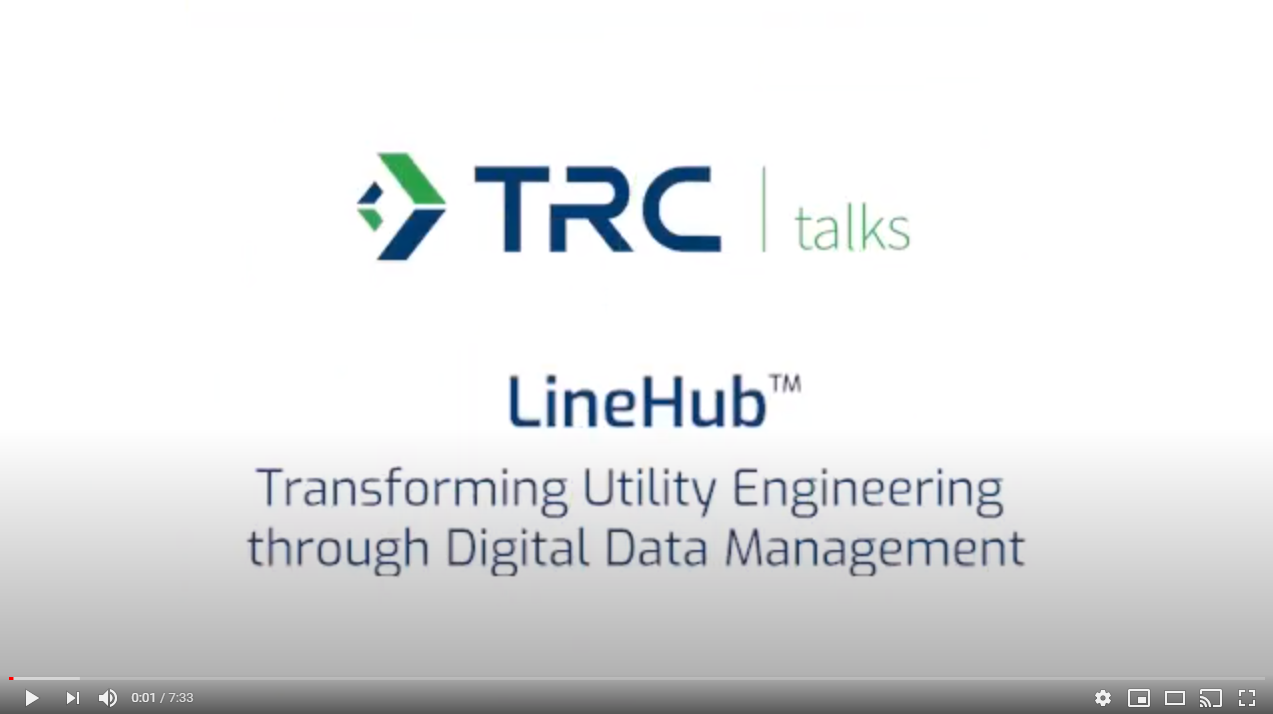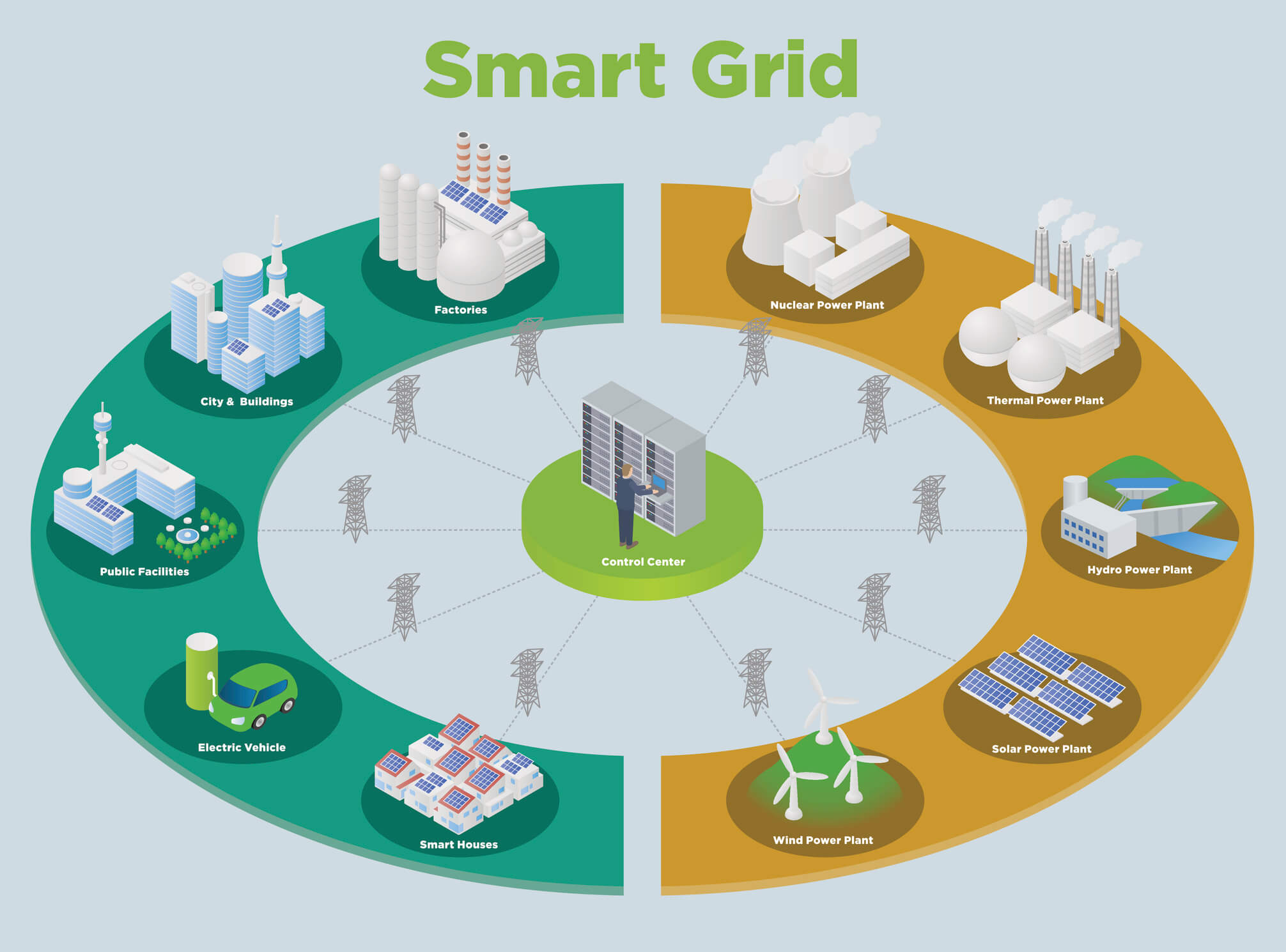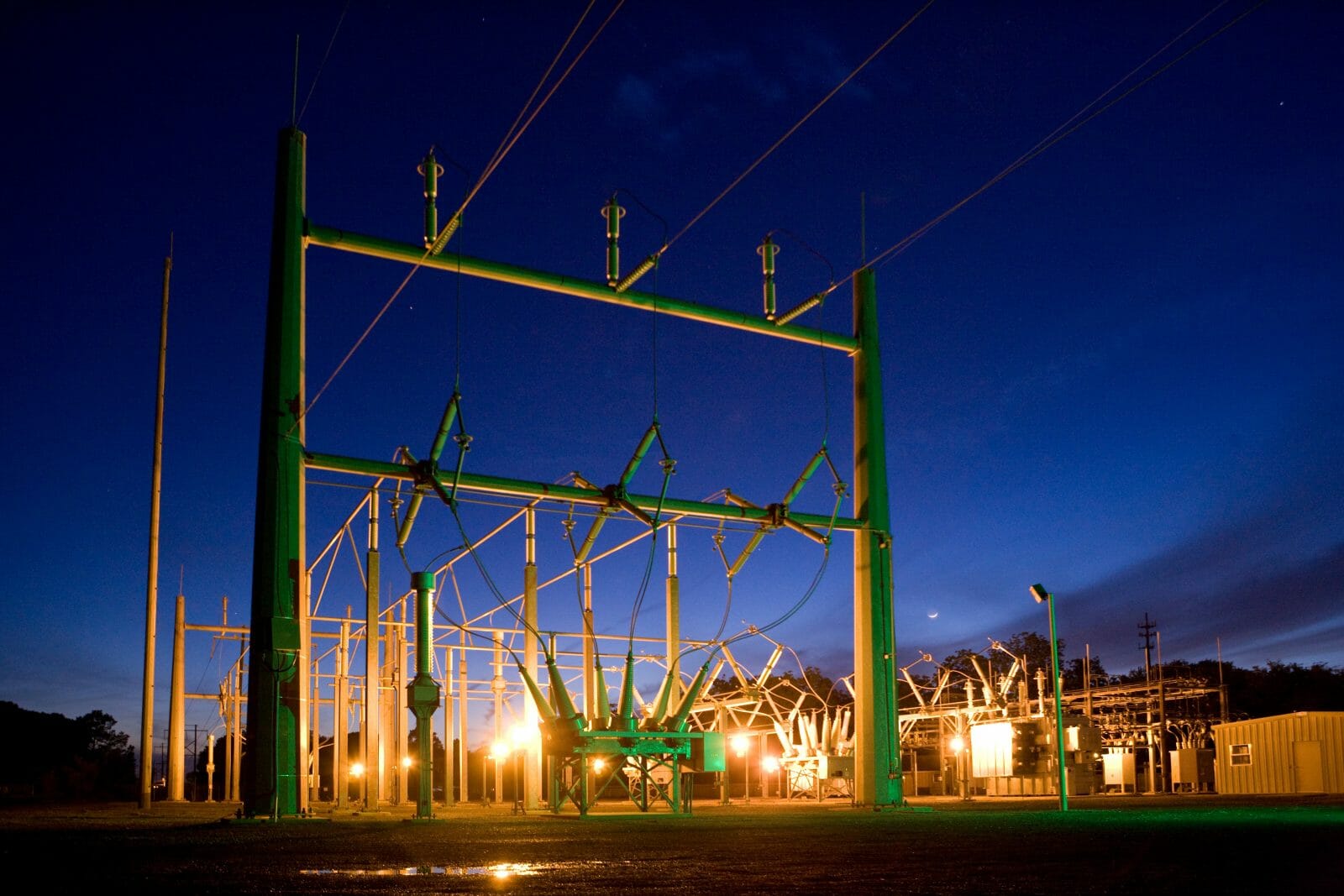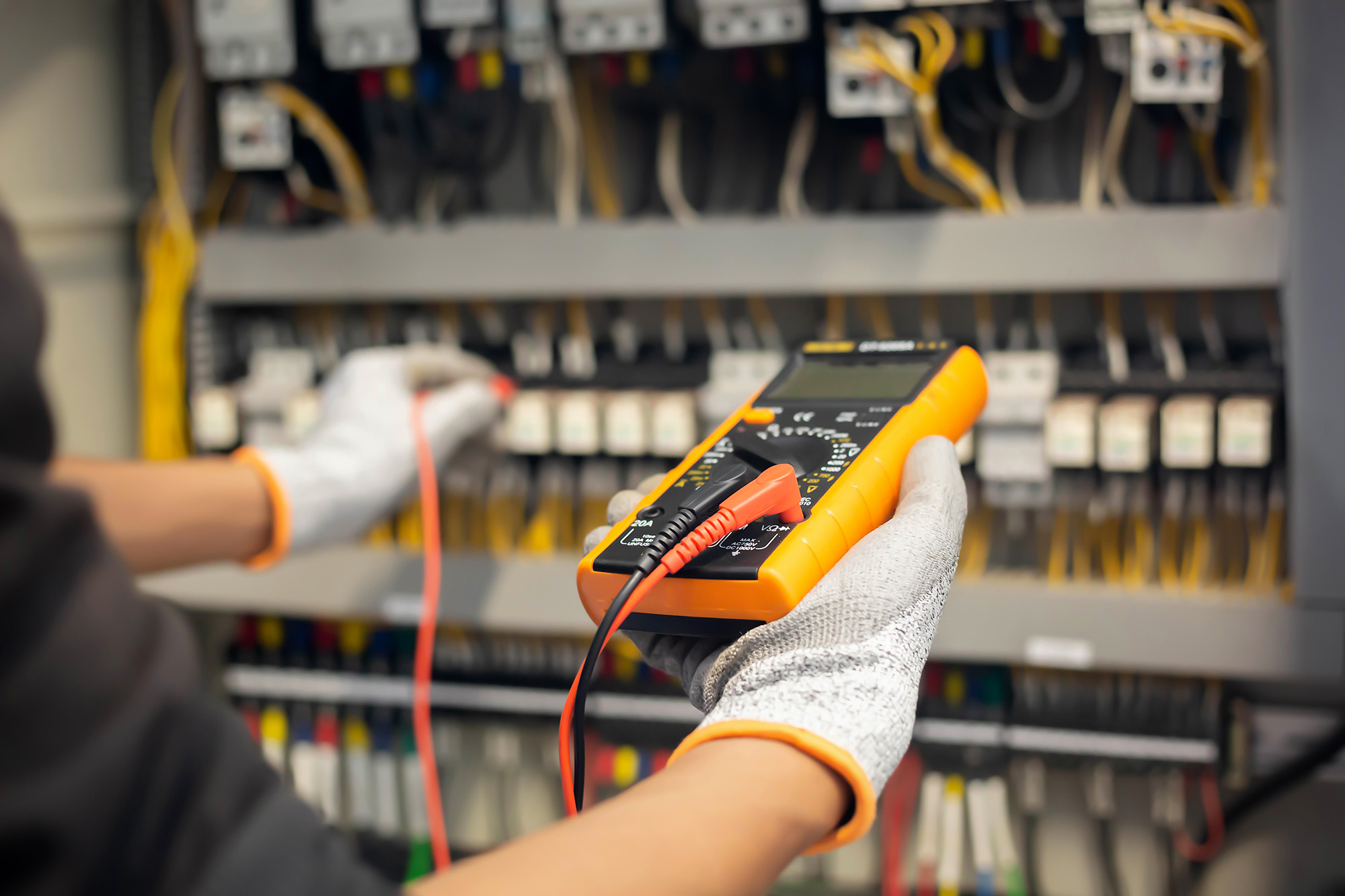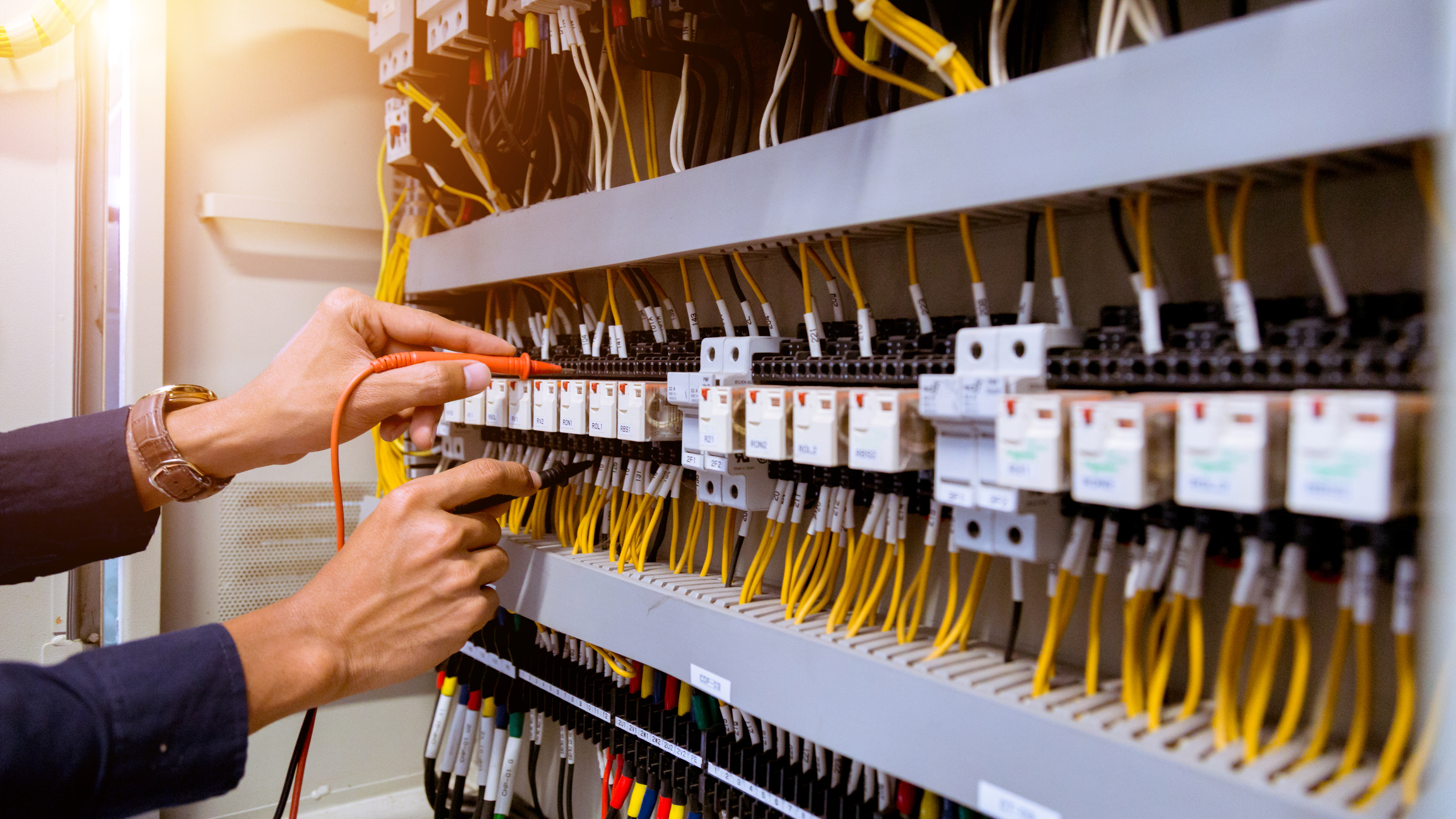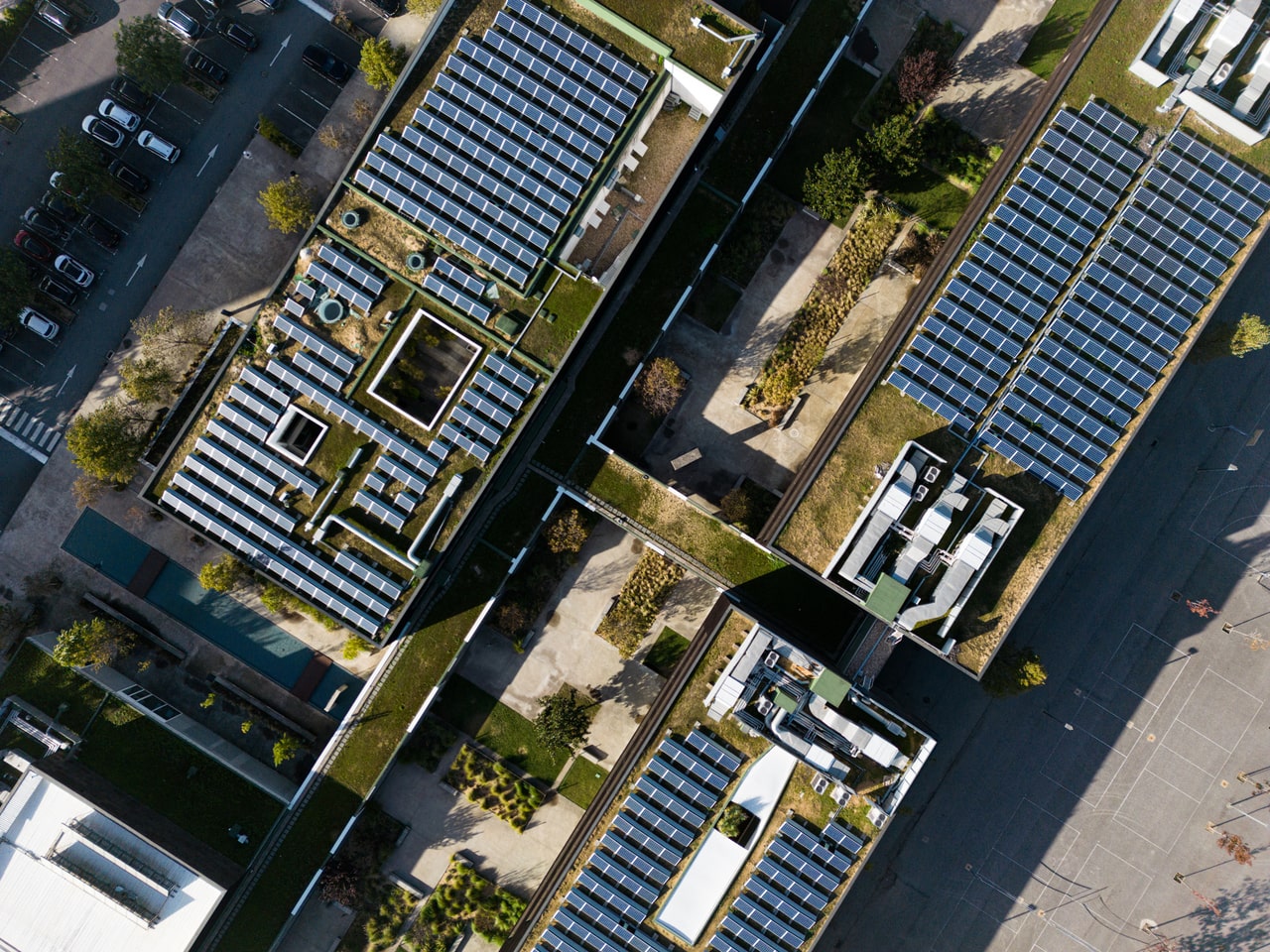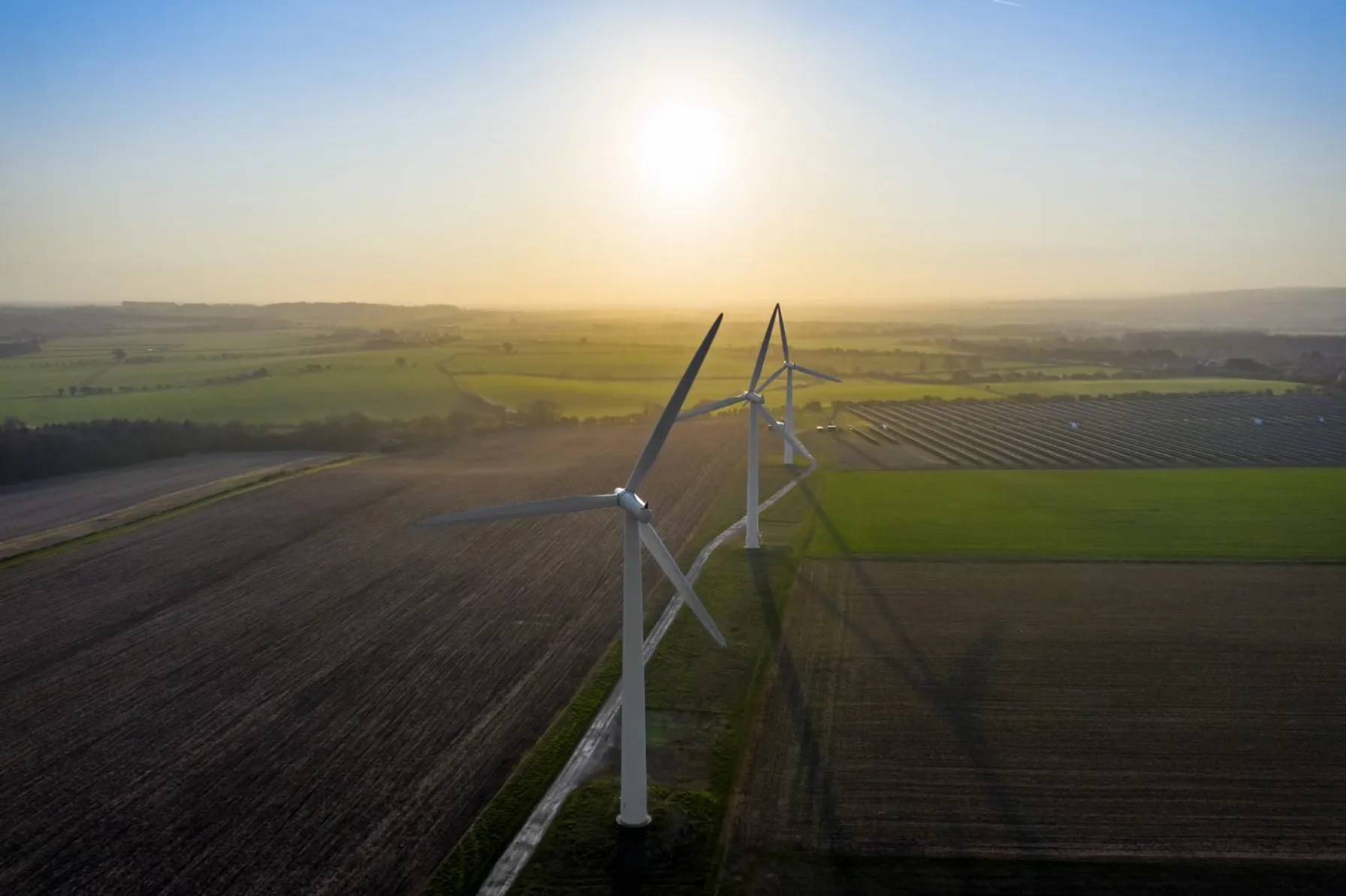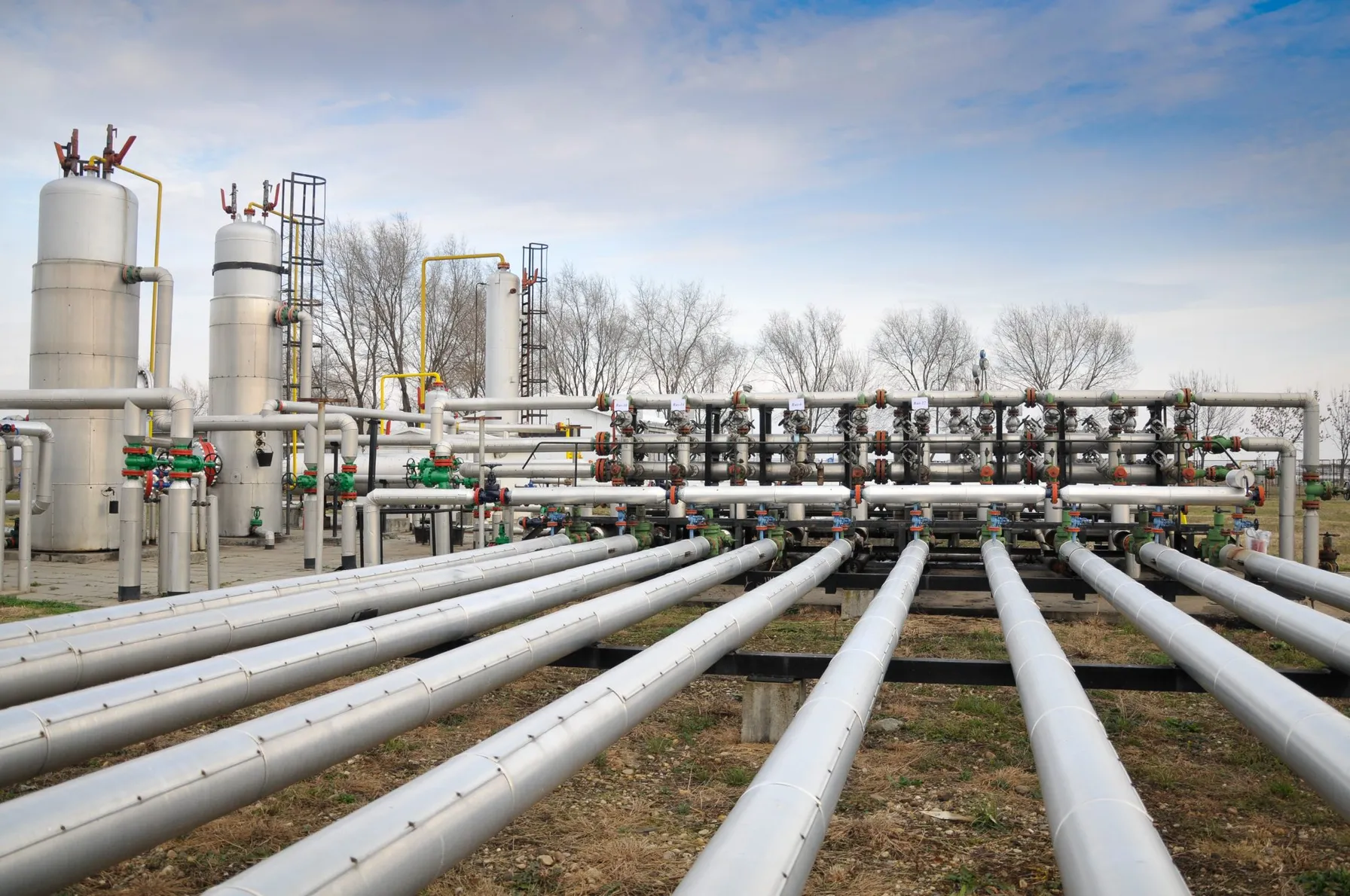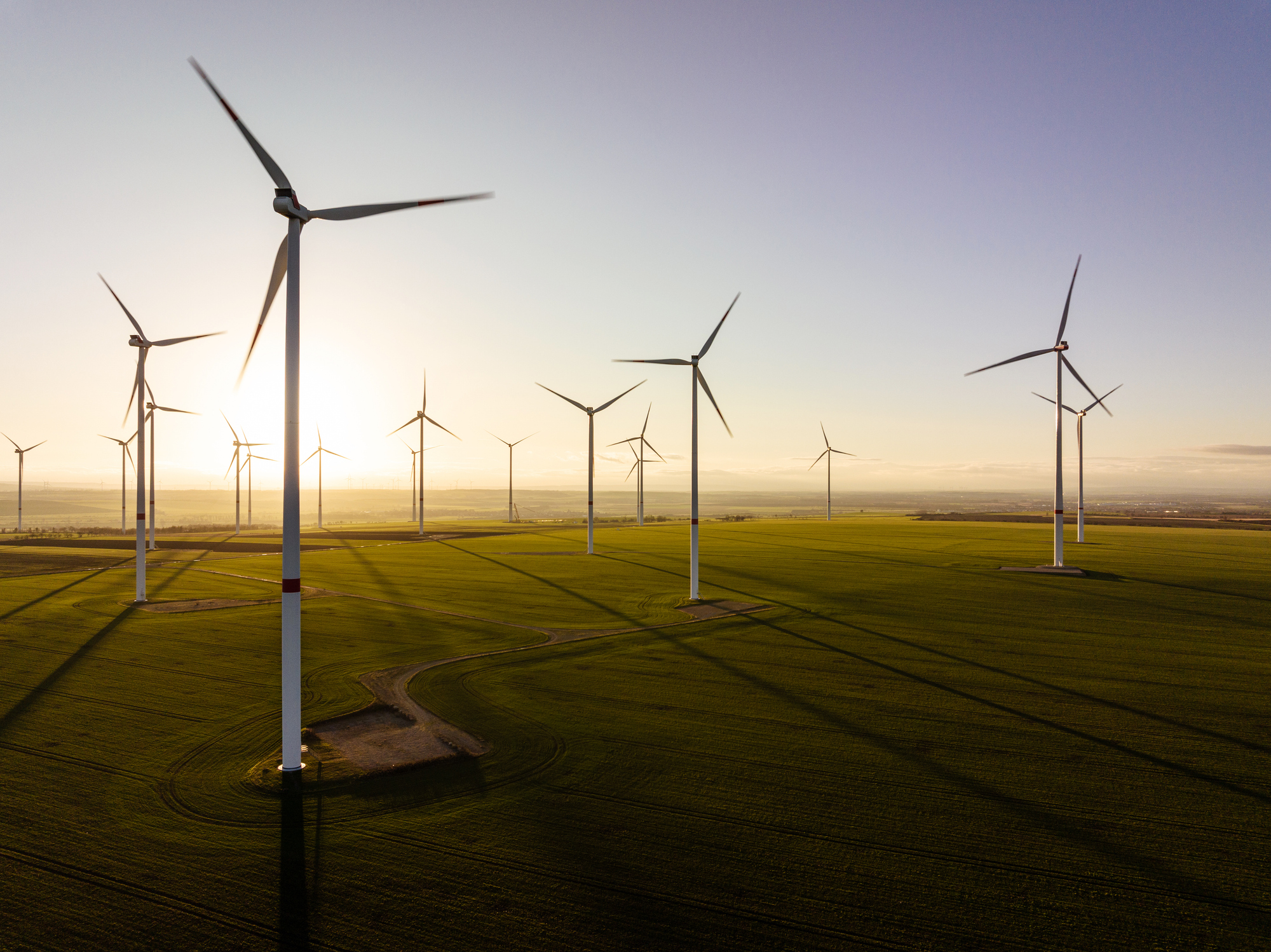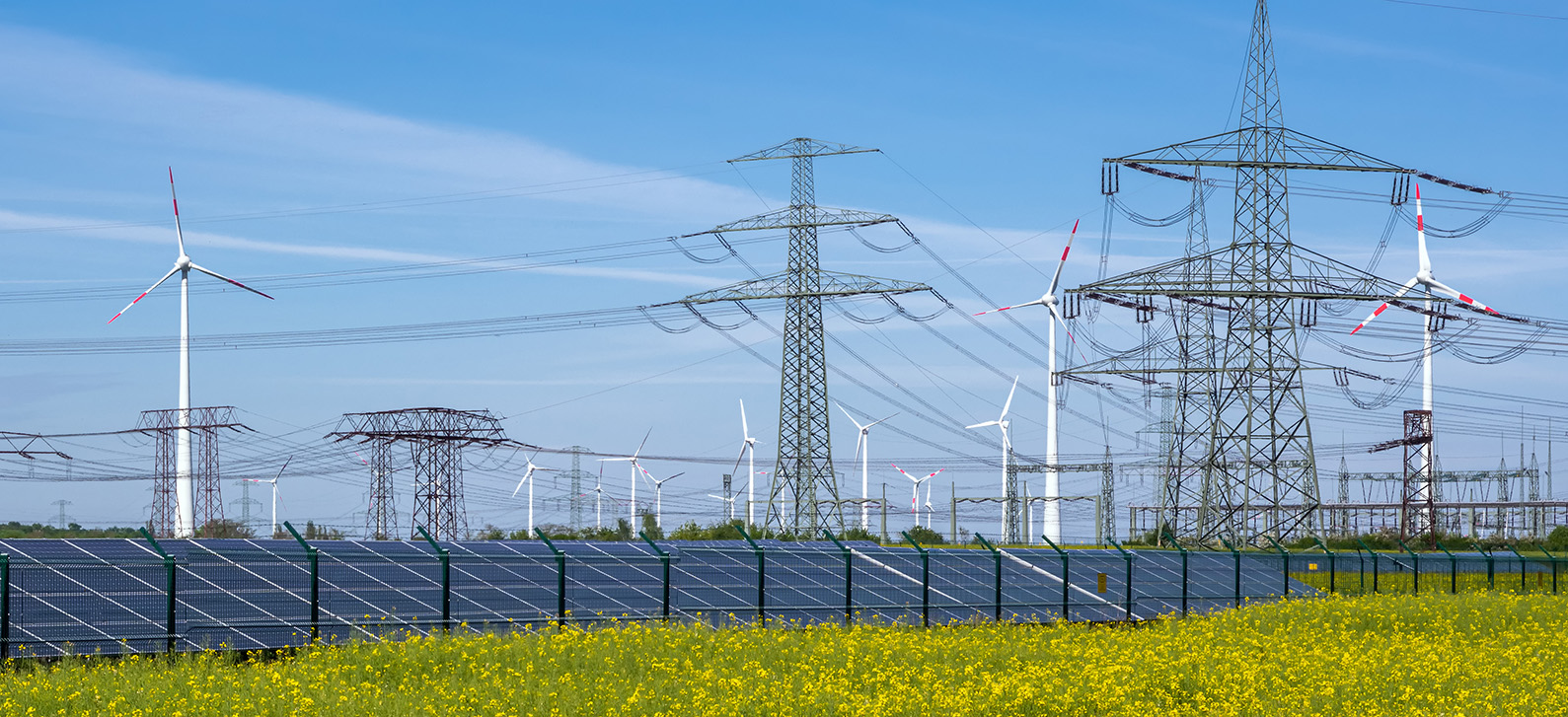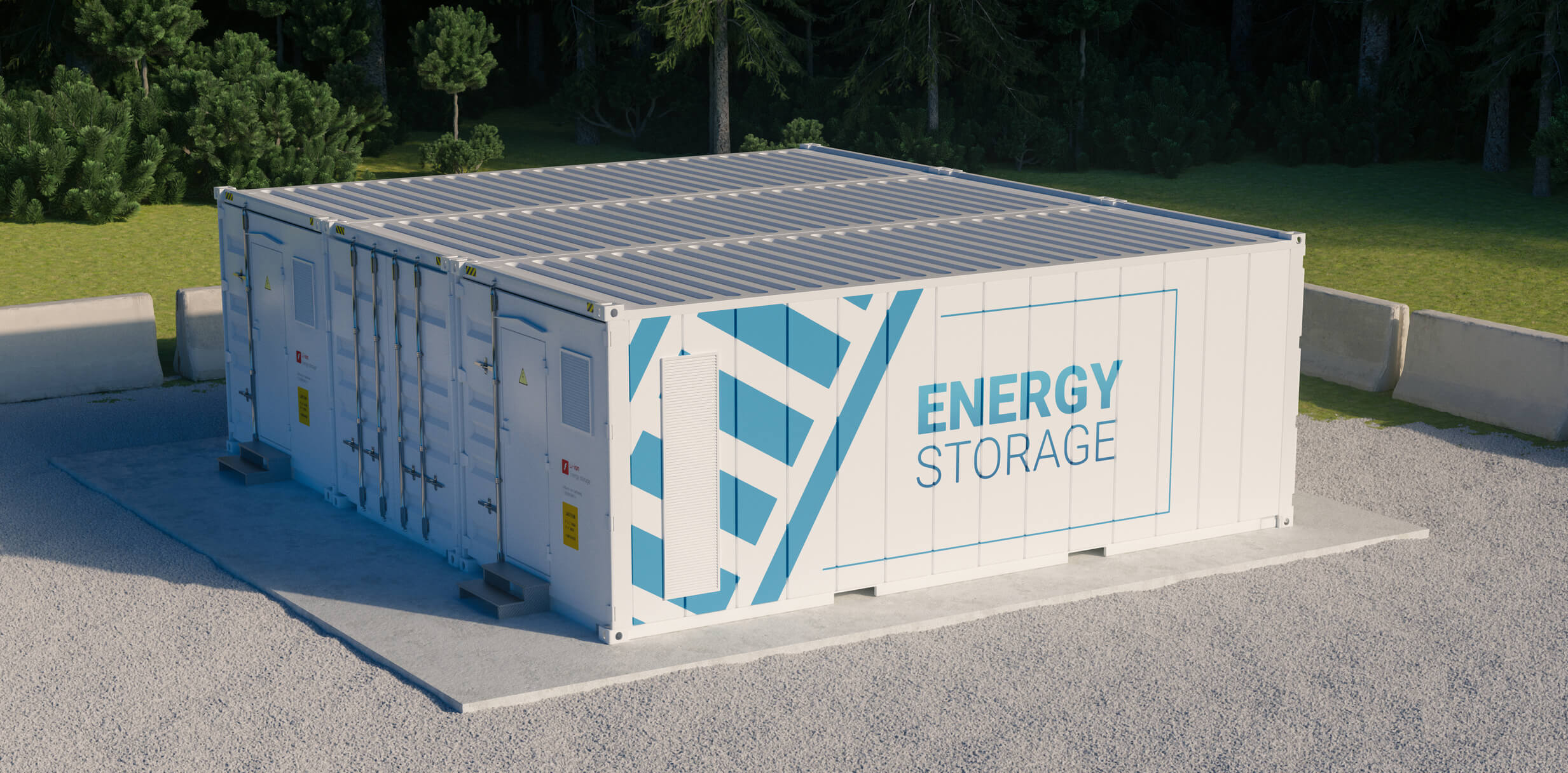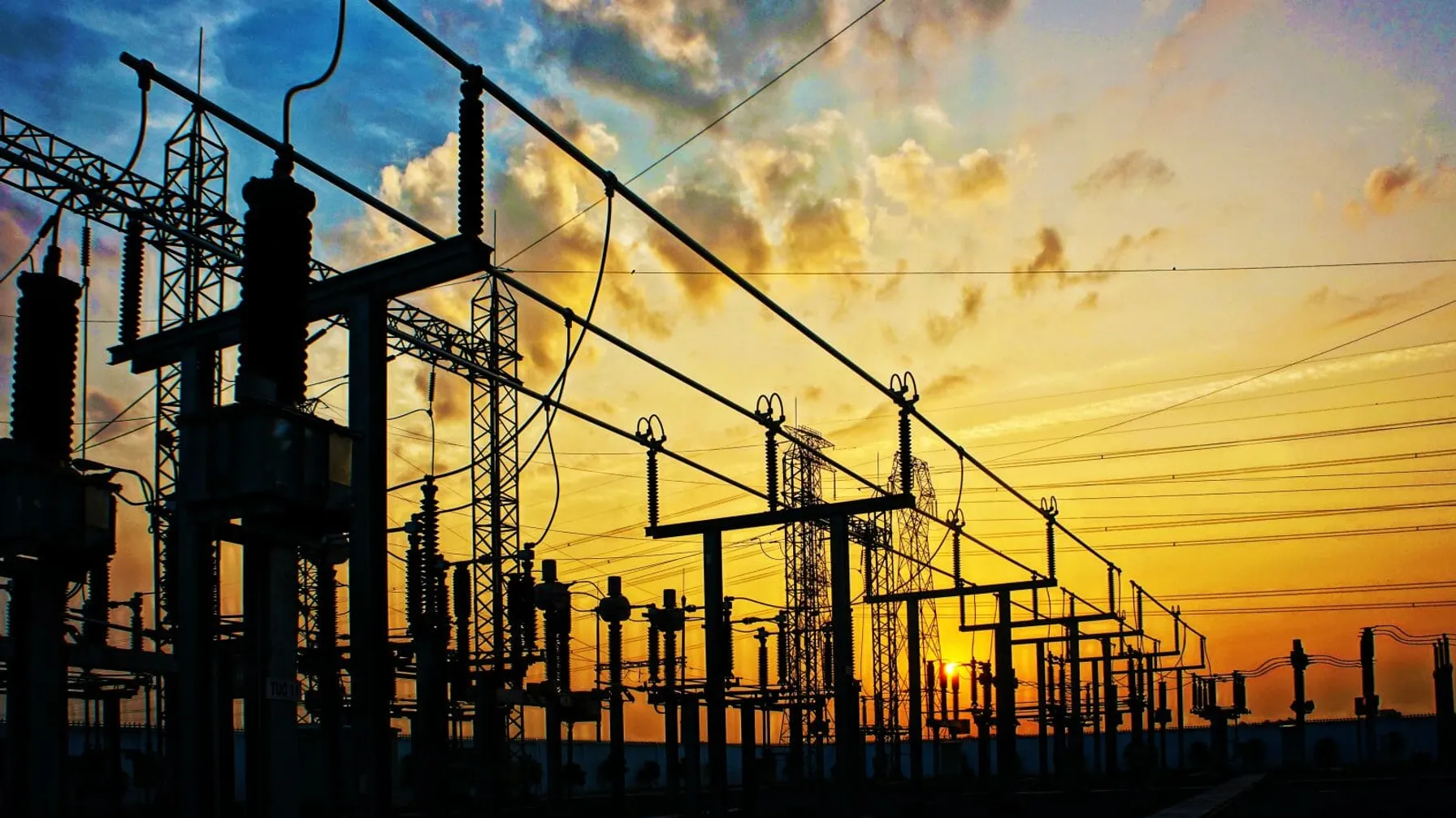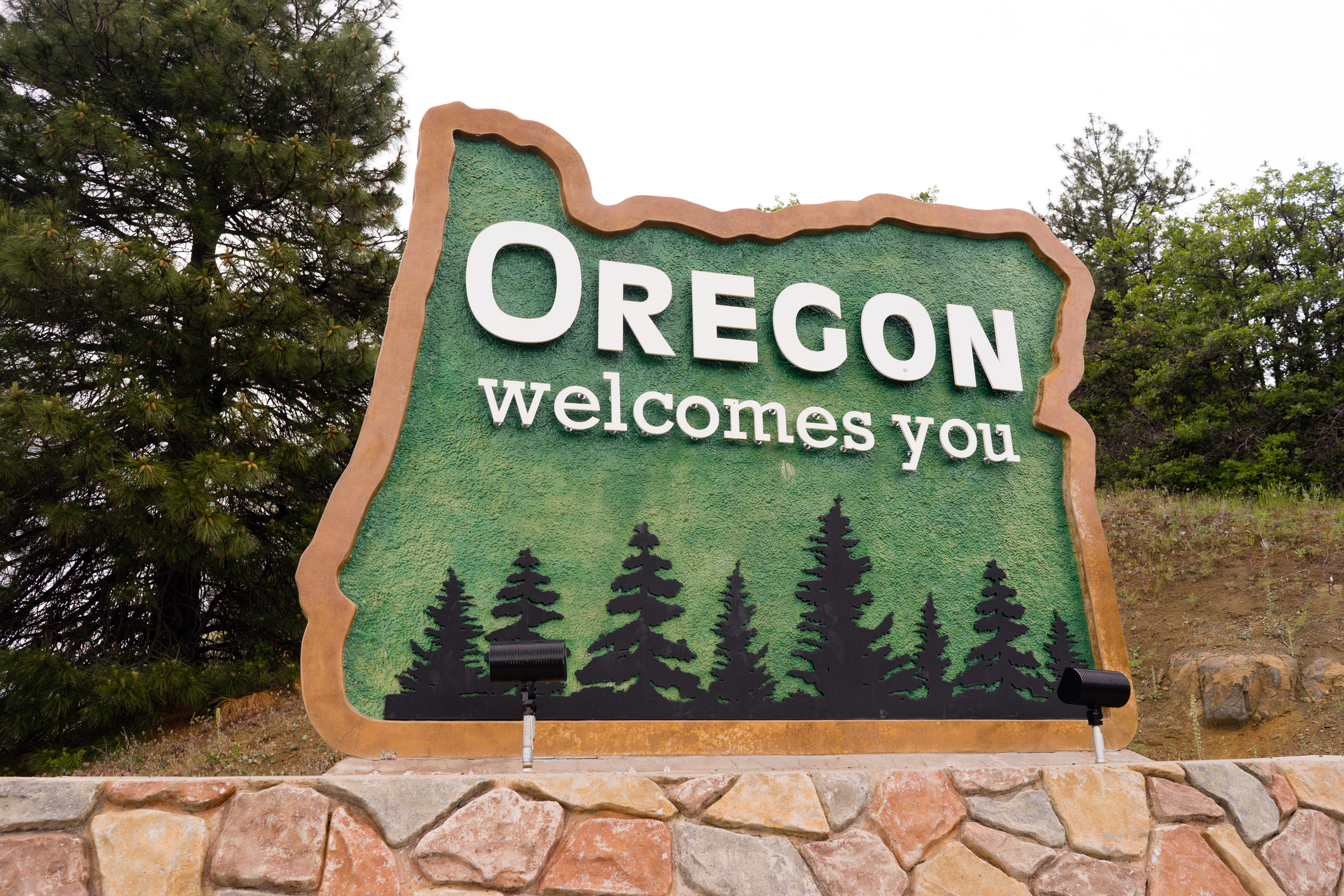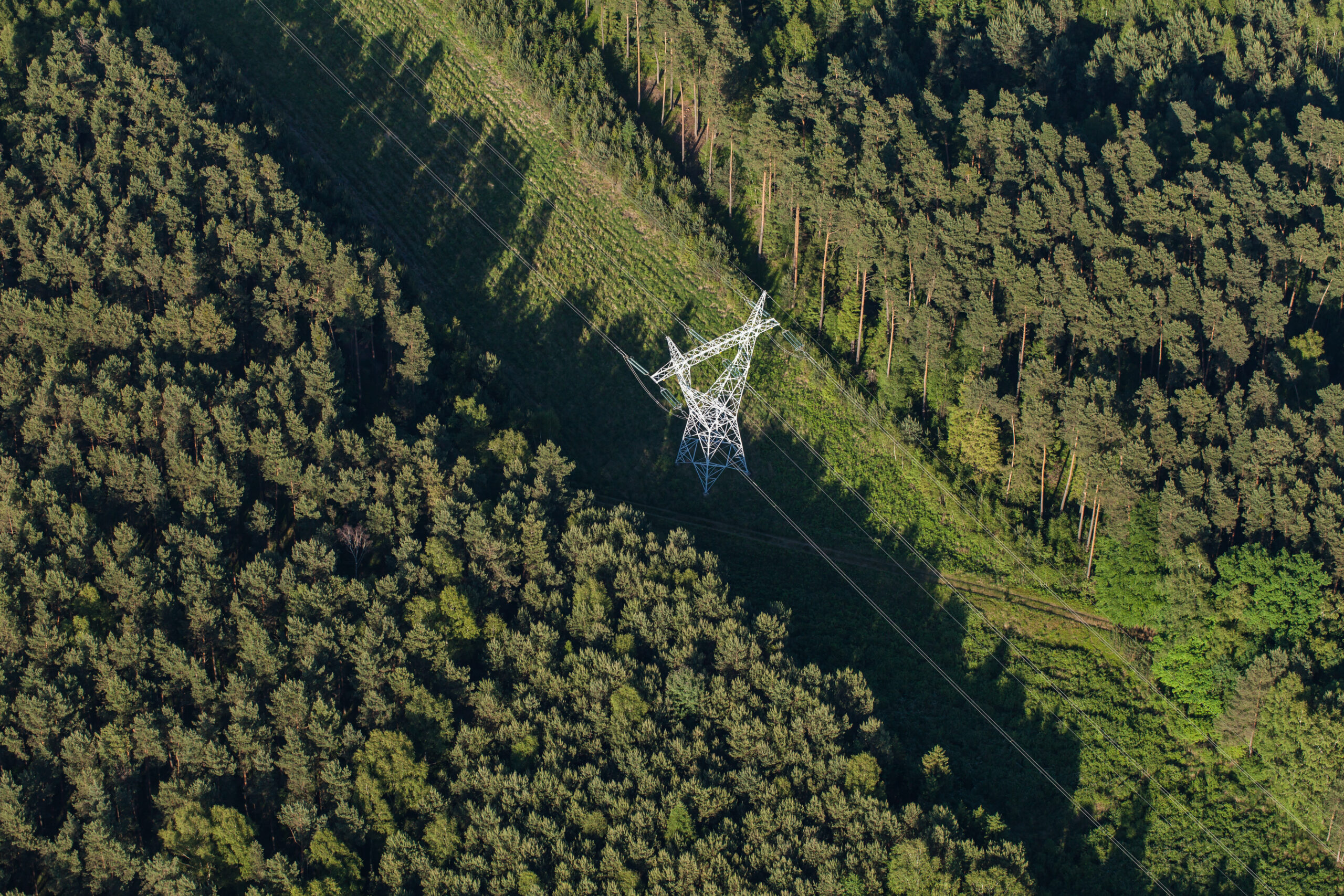Author: Jim Whitaker, PE & Dylan Achey | June 21, 2023
On May 18, 2023, the Federal Energy Regulatory Commission (FERC) issued an order approving NERC’s compliance filings describing how it will identify and register owners and operators of inverter-based resources (IBRs) that are connected to the Bulk-Power System, but that are not currently required to register with NERC under its approved bulk electric system (BES) definition.
IBR based generation owners and operators should prepare for the new registration and compliance requirements to roll out in a phased approach within 24-36 months.
In its compliance filing, NERC explains that its IBR registration strategy will address the high risk to the reliability of the Bulk-Power System posed by the increasing, rapid integration of IBRs. Under NERC’s current registration program, many owners and operators of individual IBRs are not registered and, therefore, would not need to comply with the Reliability Standards, even though these IBRs have the potential to pose a significant aggregate reliability impact on the Bulk-Power System as demonstrated through a number of major event analysis reports.
Background
On November 17, 2022, FERC issued the IBR Registration Order directing NERC to submit a work plan describing how it planned to identify and register owners and operators of currently unregistered IBRs.
NERC’s work plan was required to explain how registration process modifications would encompass unregistered IBRs, whether through a change to the BES definition, a change to its Rules of Procedure related to registration, or some other solution. The work plan also was required to include implementation milestones ensuring that unregistered IBR owners and operators meeting the new Registry Criteria are identified within 24 months of the approval date of the work plan and are registered and required to comply with applicable Reliability Standards within 36 months of the approval date of the work plan.
FERC’s current regulations require each user, owner and operator of the Bulk-Power System to be registered with NERC and to comply with applicable mandatory Reliability Standards. NERC registration occurs through either application of its BES definition or its materiality test to an entity’s Facilities and Elements.
Related Services
Approved Registration Plan
In its approved IBR registration plan, NERC proposes a three-phased approach to identify and register certain unregistered IBRs within 36 months. An IBR project that does not have Elements that fall within the NERC BES definition may then be required to registered if it can be demonstrated that the IBR projects have a material impact on Bulk-Power System reliability.
To determine whether users, owners and operators of Facilities and Elements that fall outside the BES definition are material to Bulk-Power System reliability and must be registered, NERC will use a non-exclusive set of factors referred to as the materiality test. All registration decisions regarding materiality will be made by a NERC-led registration review panel.
NERC’s Registry Criteria allow NERC to limit the compliance obligations of a given entity or of a similarly situated class of entities to a “sub-set list” of Reliability Standards.
In its plan, NERC proposes to develop revisions to its Rules of Procedure and its Registry Criteria to include Generator Owner – Inverter Based Resources (GO-IBRs) as a new registered entity function. The new function would include IBR projects that:
- have an aggregate nameplate capacity of less than or equal to 75 MVA and greater than or equal to 20 MVA interconnected at a voltage greater than or equal to 100 kV and
- have aggregate nameplate capacity of greater than or equal to 20 MVA interconnected at a voltage less than 100 kV.
NERC is not proposing to modify its BES definition and the associated inclusions or exclusions. While it is currently focused on revisions to its Rules of Procedure, NERC will continue to examine whether revision of the BES Definition might be considered as the grid transforms. NERC’s work plan does not address IBRs that connect to the local distribution system and does not address IBRs that are Distributed Energy Resources (IBR-DER).
During the first year of its work plan, NERC will consider applying a sub-set list of its Reliability Standards to the new GO-IBRs. NERC will also consider whether to add the new GO-IBR function to the applicability section of the current Reliability Standards or use some other means to identify the Standards with which GO-IBRs will need to comply in the future.

Next Steps
These FERC and NERC actions are a significant regulatory event which will implement fundamental jurisdictional changes in IBR based generator owner compliance and operating obligations.
TRC recommends that its IBR based generation owning and operating clients review the FERC Order and the NERC Registration Plan. The process will evolve through NERC Rules of Procedure changes and will ultimately lead to the need to the develop compliance programs for projects which up to now thought that perhaps they would not need to do so. Generator Owners of IBR based technology should consider beginning the process of internally reviewing how they would create or modify their NERC mandatory standards compliance programs, procedures, and internal controls to comply with the future NERC registration obligation.
Resources:
 FERC Order Approving NERC IBR Registration Plan
FERC Order Approving NERC IBR Registration Plan
Published May 18, 2023
 NERC Compliance Filing for Registration of IBRs
NERC Compliance Filing for Registration of IBRs
Published February 15, 2023
 NERC Amendment to its Compliance Filing for IBR Registration
NERC Amendment to its Compliance Filing for IBR Registration
Published March 15, 2023
 NERC Bulk Electric System Definition
NERC Bulk Electric System Definition
Published
 NERC Major Disturbance Event Analysis Reports
NERC Major Disturbance Event Analysis Reports
Published
 TRC Services – NERC Compliance
TRC Services – NERC Compliance
Published

Your Trusted Regulatory Advisor:
TRC closely follows the national and state regulatory trends in all regions of North America. Our approach to power system security, engineering, planning, design, construction and commissioning testing, balances solutions that incorporate industry reliability risk trends, mandatory reliability standard requirements, regulatory guidance, compliance obligations, best practices, operational goals, and budgets. With expertise in power system engineering, planning and operations, TRC supports public utilities and private energy providers in their efforts to stay ahead of the curve and to meet or exceed regulatory requirements as they evolve.
This regulatory update is provided as a service to TRC’s utility clients, helping to keep you informed of forward-looking issues that will impact your company’s electric system reliability risks along with related topics regarding regulatory developments to help you achieve your company’s business goals.
Sharing Our Perspectives
Our practitioners share their insights and perspectives on the trends and challenges shaping the market.
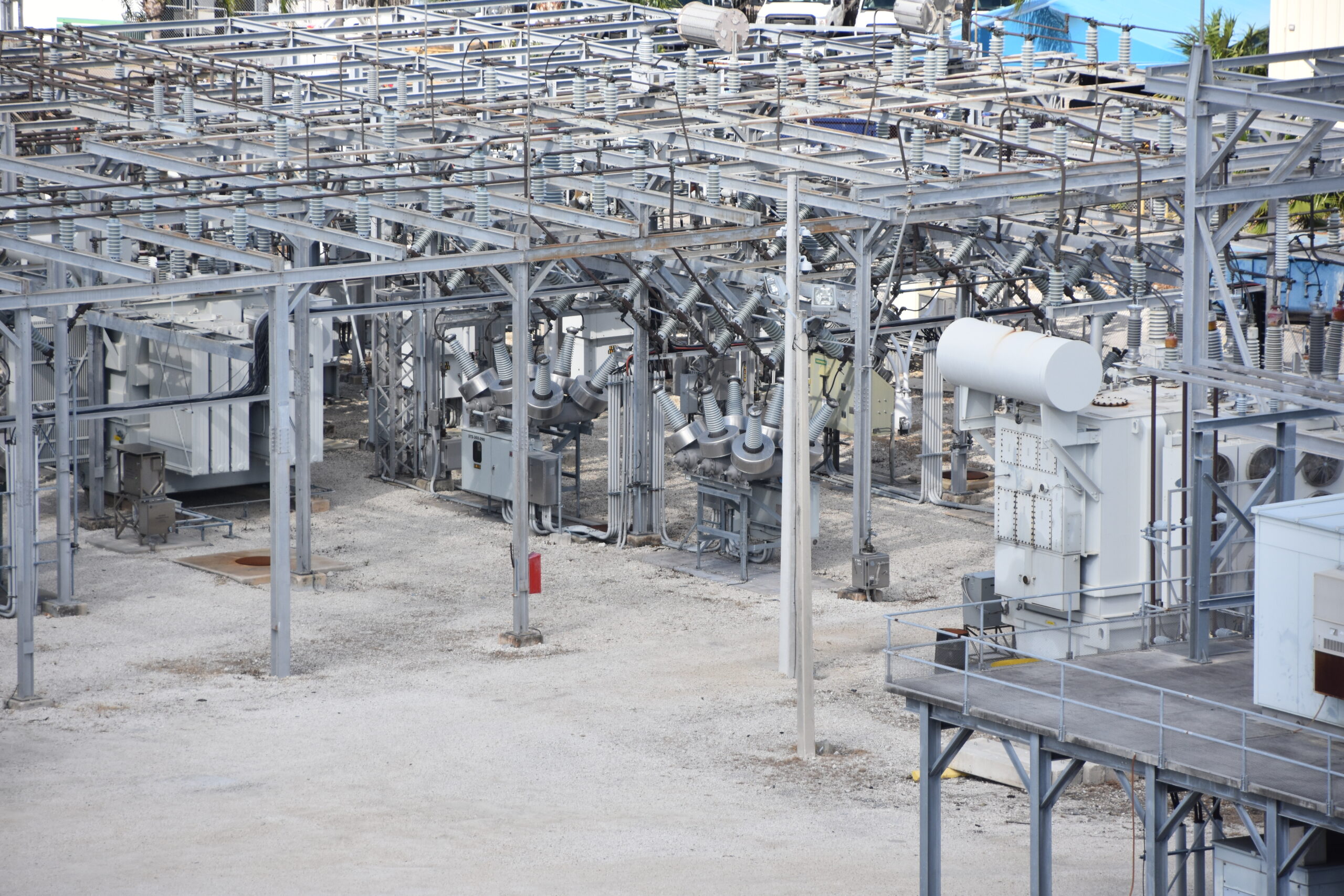
The Transformative Benefits of 3D Facility Mapping for Utilities
June 26, 2025
Discover how modern 3D facility mapping empowers utilities to modernize infrastructure, improve asset management, and enable remote workflows with accurate digital twins, delivering cost savings and operational efficiency.
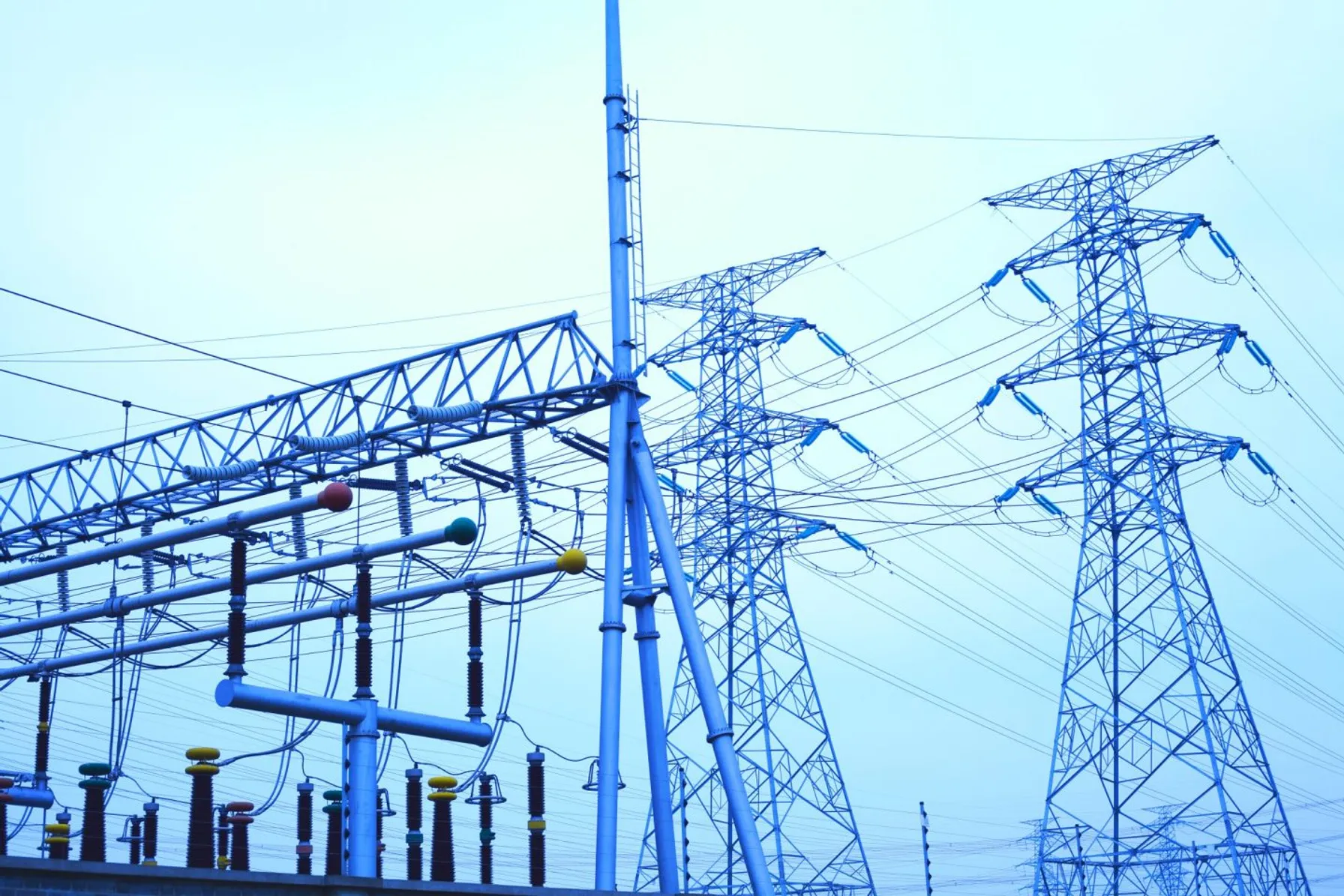
Grid Resiliency: Perspectives Across the Power Grid
April 16, 2025
In today’s changing energy landscape, grid resiliency is a top priority for all power system owners and operators. The ability to absorb disruptions and maintain power is crucial in an increasingly unpredictable world.

Take the Right Approach to Implementing DERMS
March 27, 2025
Implementing DERMS can come with challenges. By understanding the unique challenges related to DERMS and adopting the appropriate strategies to mitigate potential pitfalls, utilities can effectively integrate and coordinate DER deployment to align with regulatory commitments and broader business objectives.

How ISOs, RTOs and Utilities Can Effectively Manage Massive Data
March 20, 2025
In today’s rapidly evolving energy landscape, Independent System Operators (ISOs), Regional Transmission Organizations (RTOs) and utilities face unprecedented challenges in managing vast amounts of data.

NFPA Establishes Consolidated Standard for Combustible Dust
January 23, 2025
NFPA 660 will make it easier for all industries to manage dust related hazards making for safer work environments.

General Permit (GP) for CII Stormwater Discharges Proposed for the Charles, Mystic and Neponset River Watersheds
January 8, 2025
On November 1, 2024, FERC Commissioners led a technical conference regarding co-locating large loads at generating facilities.

Ozone Nonattainment Areas in Midwest Reclassified to Serious
January 3, 2025
On Tuesday, December 17th, the United States Environmental Protection Agency (USEPA) issued a final rule reclassifying several ozone nonattainment areas as “Serious” nonattainment for the 2015 ozone national ambient air quality standard.

Deadline Imminent for New Texas Annual Permit Reporting Requirements
December 19, 2024
In 2023, the Texas State Legislature approved Senate Bill 1397 and House Bill 1505, which require that “A person who holds a temporary permit or permit with an indefinite term shall report to the commission annually whether the activity subject to the permit is ongoing” and that the person “shall first report to the Texas Commission on Environmental Quality the status of the permitted activity not later than December 31, 2024”. The Texas Water Code has been amended to include this requirement in Sec. 5.587.

FERC Reviews Large Load Integration at Technical Conference
December 6, 2024
On November 1, 2024, FERC Commissioners led a technical conference regarding co-locating large loads at generating facilities.
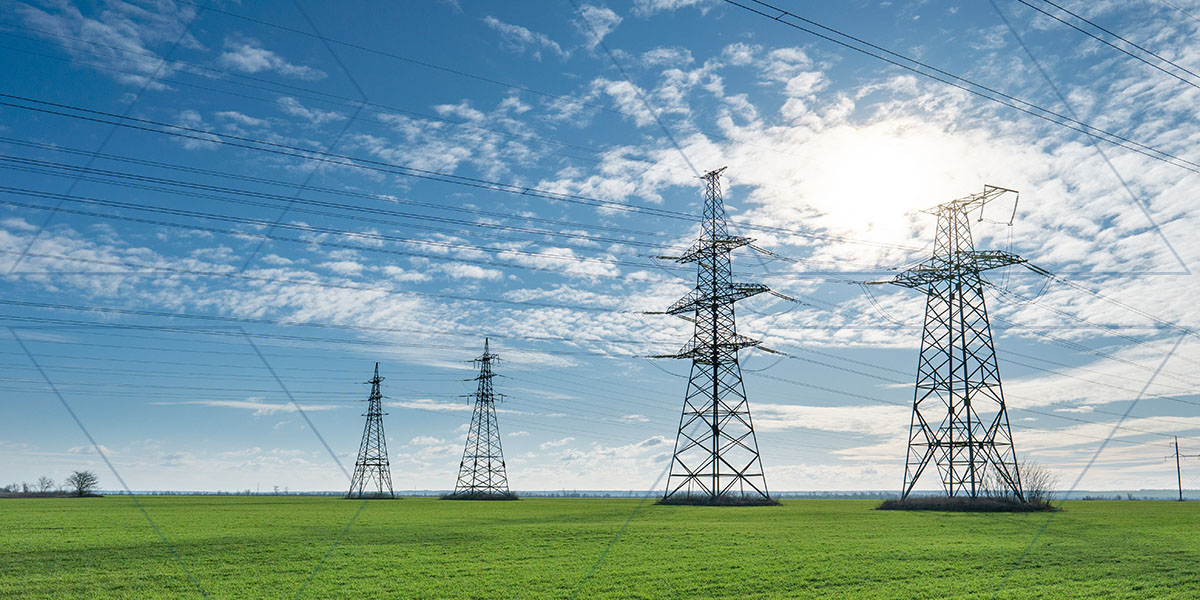
What Is Grid Modernization?
December 2, 2024
Additional Restrictions for Major Modifications Other restrictions will come into play for new Major Sources, those that have a potential to emit 50 tons per year or more of VOC or NOx and “major modifications” that result in a VOC emission increase that exceeds 25 tons per year and also exceeds 25 tons per year when aggregated with all creditable increases and decreases in emissions of VOC from the source over any period of five consecutive years, which includes the calendar year in which the increase will occur. For sources that are major due to NOx emissions, a NOx emission increase that exceeds 25 tons per year and exceeds 25 tons per year when aggregated with creditable increases and decreases over the five-year period is also deemed to be a major modification. If a major modification occurs, the source is required to utilize the Lowest Achievable Emission Rate (or LAER) for the pollutant(s) that exceed 25 tons per year aggregated over the five-year period. However, Best Available Control Technology (BACT) can be substituted for LAER under certain conditions. Additionally, emissions must be offset as a means to advancing the area toward attaining the ozone standard. These same requirements will apply to newly constructed Major Sources. Upcoming Deadlines With these actions, the impacted areas will now have until August 3, 2027, to reach attainment. If they do not, USEPA is again obligated to reclassify ongoing nonattainment status to Severe nonattainment, reducing the Major Source threshold in half to just 25 tons per year. In the meantime, the states will be required to revise State Implementation Plans to demonstrate that attainment will be achieved by this deadline. A unique consideration in Wisconsin affects sources subject to a Registration Operation Permit. These permits establish annual emission limits as a percentage of the Major Source threshold (25, 50, or 80 percent depending on the Permit). For these sources, the annual emission limit for VOC and NOx will automatically be cut in half on January 16, 2025. Sources in the ozone nonattainment areas that hold these permits should evaluate whether the Registration Permit provides a long-term option given that the annual emission limits have been cut in half now and may again be cut in half in three years’ time. Next Steps: TRC Can Help TRC is available to support your air compliance and permitting needs by offering expert in-house resources to perform: Ambient Monitor Siting Evaluation Ambient Monitor Deployment, Operation and Maintenance For more information, contact Melanie Klamar, Robert VandenMeiracker and Mike Zebell.

FERC Issues Guidance to Improve Power System Security and CIP Compliance
September 30, 2024
This update provides details from FERC 2024 staff report from CIP audits, so utilities can improve compliance and reduce security risks.

TRC Acquires Garanzuay Consulting, Amplifying TRC’s Energy Transition Consulting Services in Europe
September 26, 2024
Garanzuay Consulting provides a foundation in Ireland to continue TRC’s growth and expansion in Europe in support of the energy transition for all energy market participants.
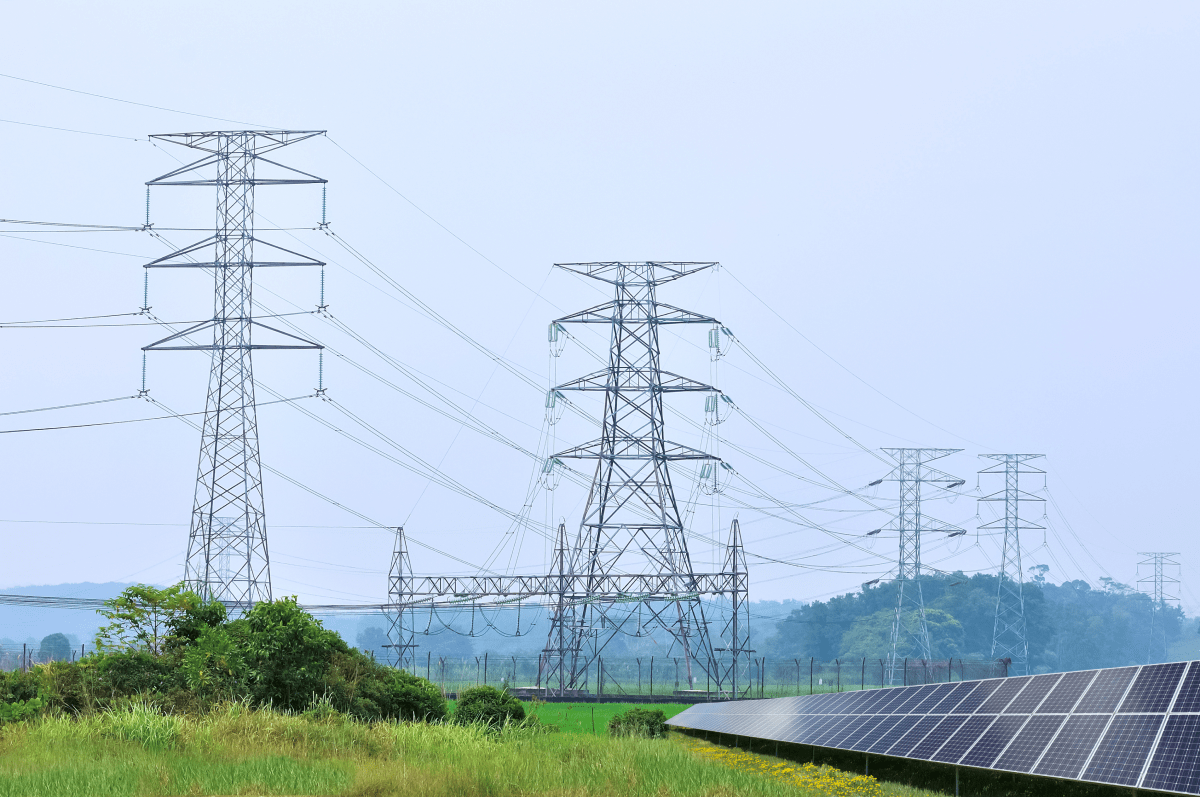
NERC Releases 2024 State of Reliability Report
September 19, 2024
The North American Electric Reliability Corporation (NERC) recently released its 2024 State of Reliability report, examining power system performance in calendar year 2023.
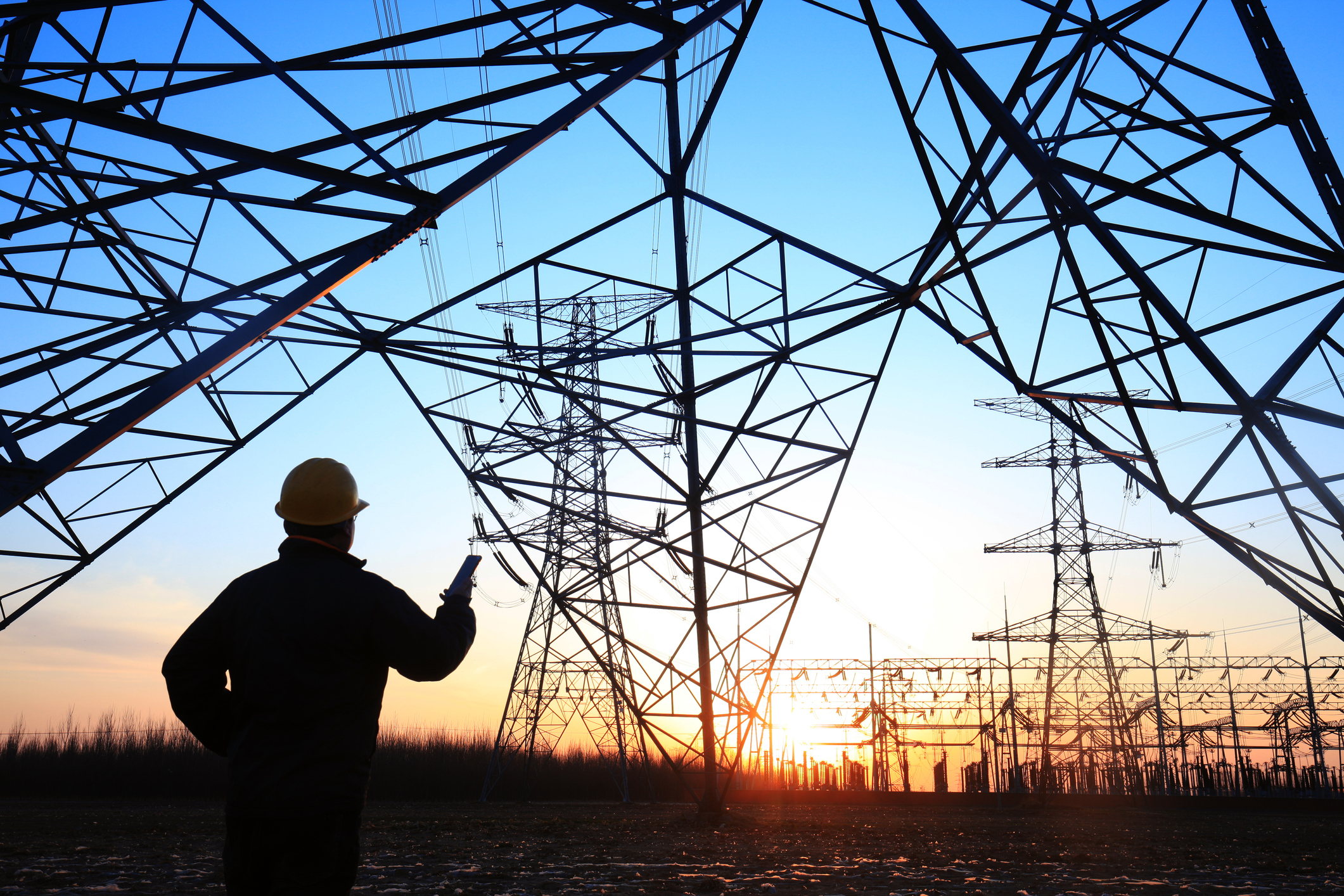
Facility Ratings Compliance Through a Corporate Community Approach
August 30, 2024
Facility Ratings play a critical role in the reliable planning and operation of the Bulk Electric System (BES) and yet maintaining compliance with relevant NERC standards remains an industry challenge.

Extreme Geomagnetic Disturbances Impact NERC Planning
August 8, 2024
Learn about the recent geomagnetic disturbance which caused stakeholders within the bulk power system to react swiftly to protect grid reliability. Find out the impacts and what NERC and the industry are doing about it.
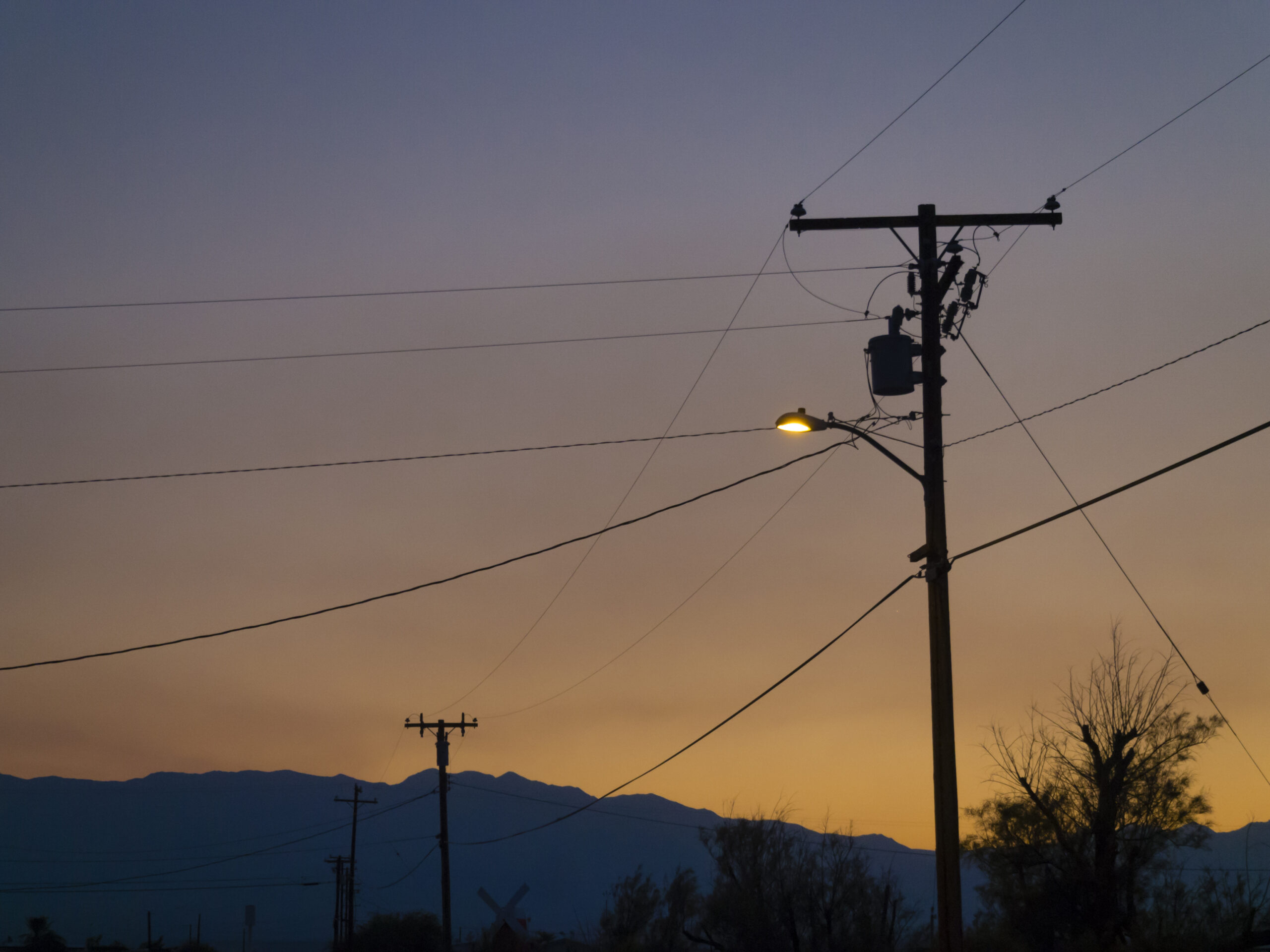
Joint Use: Best Practices for Project Success
July 15, 2024
Joint use has never been as important as it is today. With demand for telecommunications infrastructure skyrocketing, governments are investing big in initiatives like the $42.5 billion Broadband Equity Access Deployment Program (BEAD) and the $20.4 billion Rural Digital Opportunity Fund (RDOF).

Consistent NERC Compliance Evidence for Successful Audit Outcomes
June 27, 2024
While utilities often work in technical silos, NERC auditors are trained to cross check compliance evidence and data between interrelated standards.
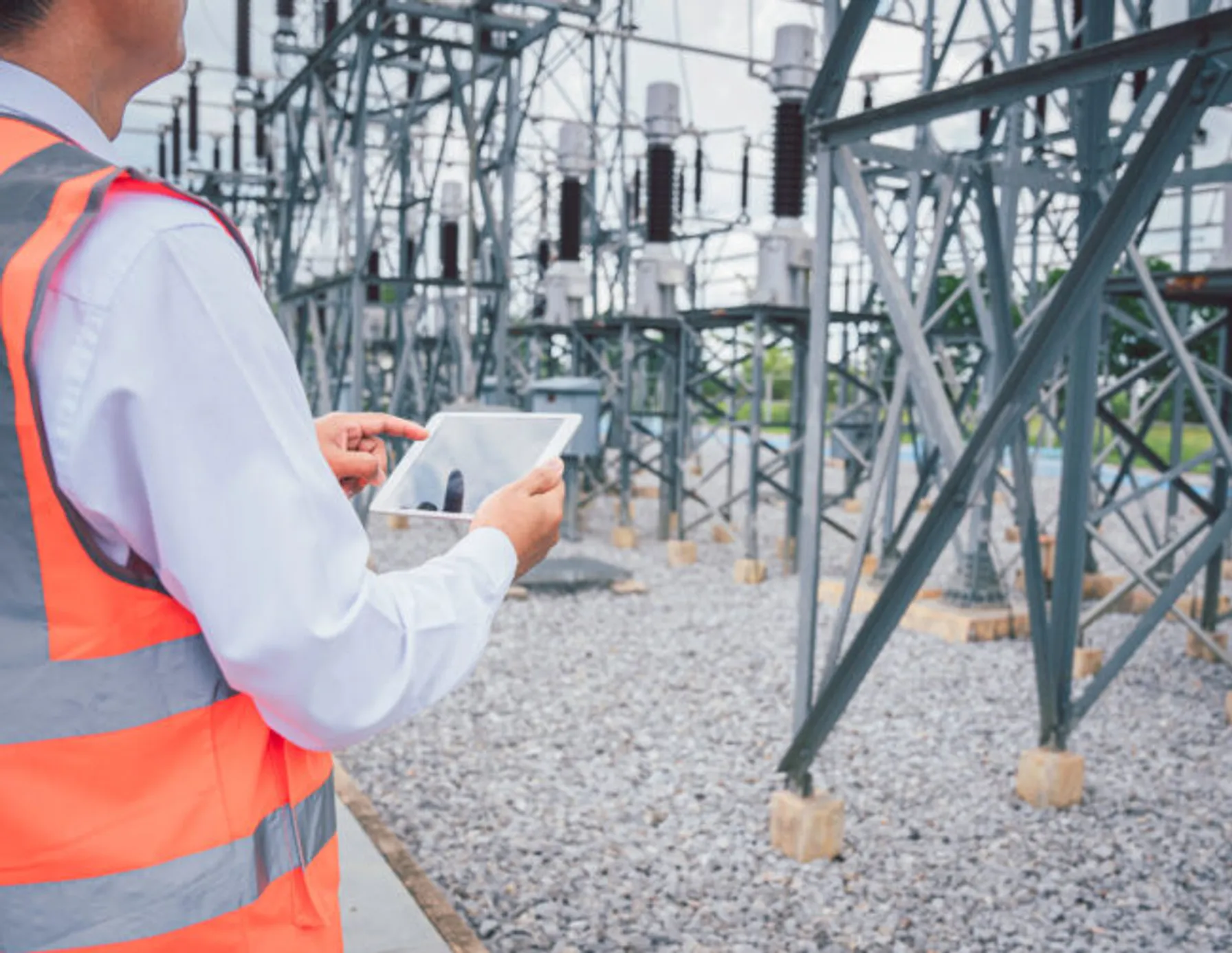
New NERC Standards Help Protect Against Cyber Attacks
May 23, 2024
As part of NERC’s ongoing effort to bolster Critical Infrastructure Protection (CIP) requirements and enable the implementation of a security improvement concept known as virtualization.
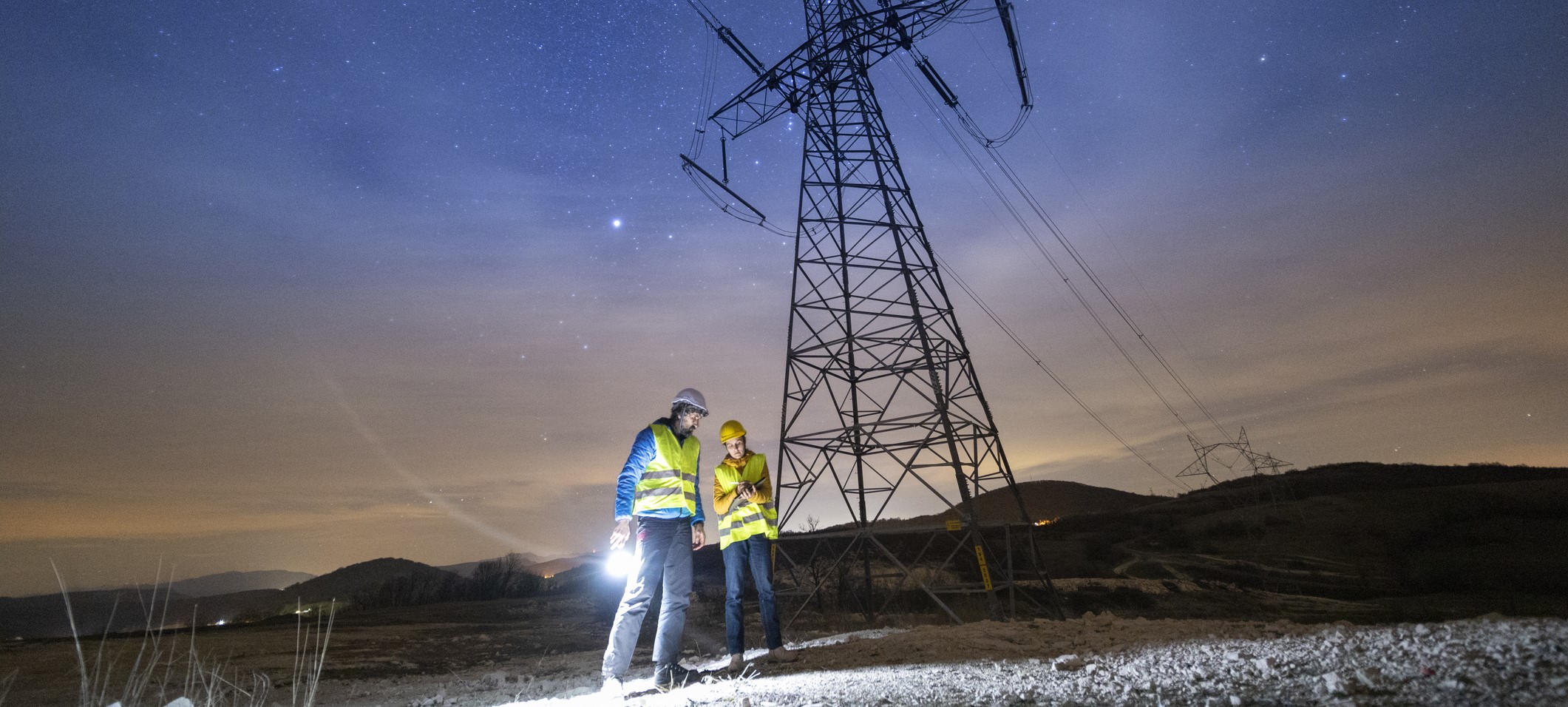
Five Generational Challenges Facing the Utility Workforce
May 10, 2024
In the actively changing energy landscape, utilities are grappling with many workforce-related challenges linked to the ongoing shift towards cleaner energy and the modernization of power grids. As veteran employees retire, it is critical to bridge the knowledge and skill gap by recruiting and developing younger talent.

NERC Compliance Success Through a Corporate Community Approach
May 6, 2024
Additional Restrictions for Major Modifications Other restrictions will come into play for new Major Sources, those that have a potential to emit 50 tons per year or more of VOC or NOx and “major modifications” that result in a VOC emission increase that exceeds 25 tons per year and also exceeds 25 tons per year when aggregated with all creditable increases and decreases in emissions of VOC from the source over any period of five consecutive years, which includes the calendar year in which the increase will occur. For sources that are major due to NOx emissions, a NOx emission increase that exceeds 25 tons per year and exceeds 25 tons per year when aggregated with creditable increases and decreases over the five-year period is also deemed to be a major modification. If a major modification occurs, the source is required to utilize the Lowest Achievable Emission Rate (or LAER) for the pollutant(s) that exceed 25 tons per year aggregated over the five-year period. However, Best Available Control Technology (BACT) can be substituted for LAER under certain conditions. Additionally, emissions must be offset as a means to advancing the area toward attaining the ozone standard. These same requirements will apply to newly constructed Major Sources. Upcoming Deadlines With these actions, the impacted areas will now have until August 3, 2027, to reach attainment. If they do not, USEPA is again obligated to reclassify ongoing nonattainment status to Severe nonattainment, reducing the Major Source threshold in half to just 25 tons per year. In the meantime, the states will be required to revise State Implementation Plans to demonstrate that attainment will be achieved by this deadline. A unique consideration in Wisconsin affects sources subject to a Registration Operation Permit. These permits establish annual emission limits as a percentage of the Major Source threshold (25, 50, or 80 percent depending on the Permit). For these sources, the annual emission limit for VOC and NOx will automatically be cut in half on January 16, 2025. Sources in the ozone nonattainment areas that hold these permits should evaluate whether the Registration Permit provides a long-term option given that the annual emission limits have been cut in half now and may again be cut in half in three years’ time. Next Steps: TRC Can Help TRC is available to support your air compliance and permitting needs by offering expert in-house resources to perform: Ambient Monitor Siting Evaluation Ambient Monitor Deployment, Operation and Maintenance For more information, contact Melanie Klamar, Robert VandenMeiracker and Mike Zebell.

NERC Proposes Changes to Registration Criteria for Inverter Based Resources (IBRs)
April 19, 2024
NERC has submitted for FERC approval new compliance criteria for the registration of IBRs as part of continuing efforts to address reliability risks. It is critical for renewable energy developers, generation owners and transmission owners to understand the potential implications for interconnection studies and interconnection queues.

Shifting to the Cloud: Debunking the Myths of Migrating Utility Data Off Premises
April 14, 2024
This blog delves into common misconceptions surrounding cloud migration in the utility industry, addressing concerns about security, reliability, regulatory compliance, cost effectiveness, and complexity, while highlighting the substantial benefits and strategies for successful adoption.
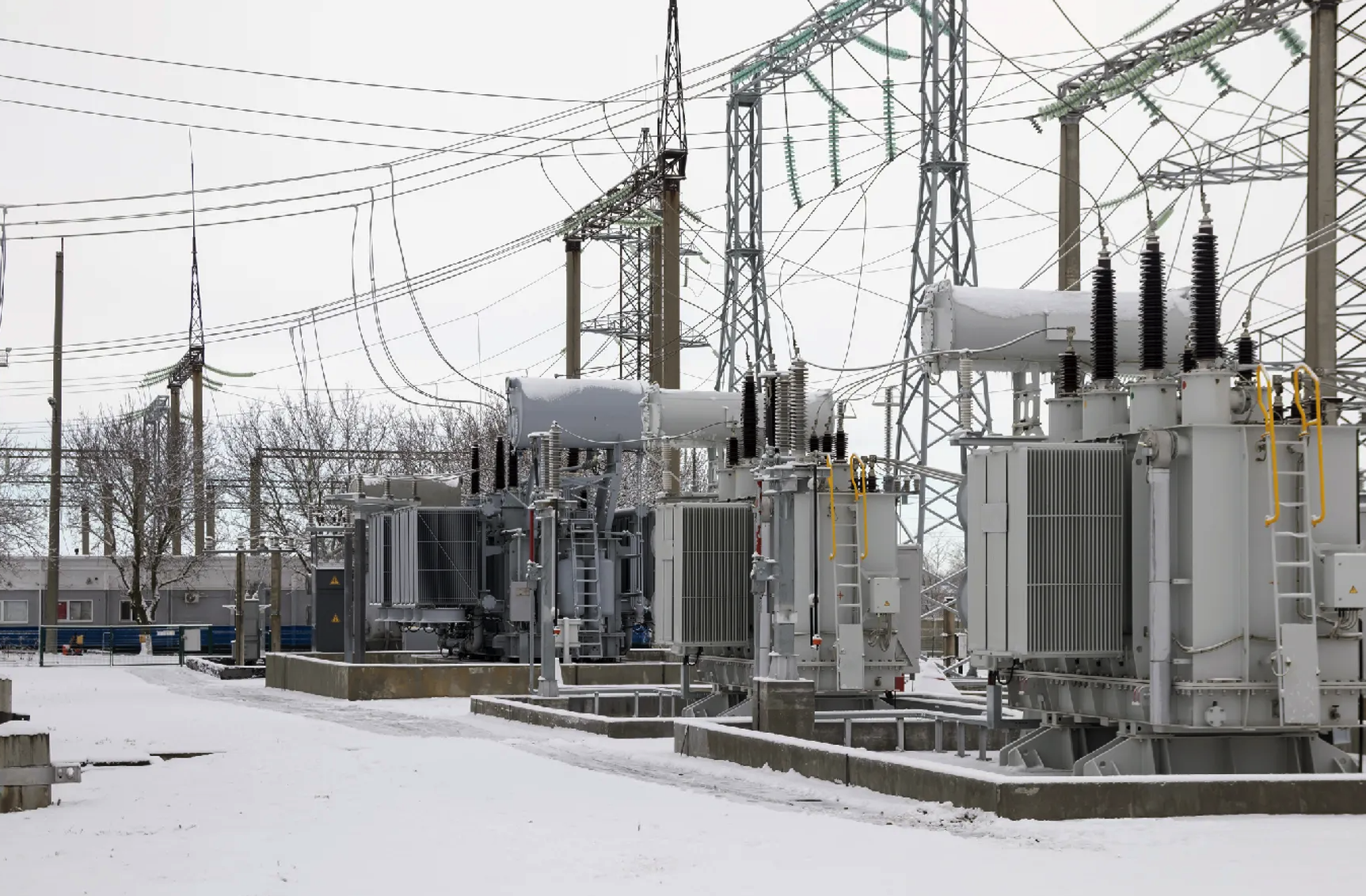
NERC Proposes Clarifications to EOP Cold Weather Standards
March 26, 2024
NERC has submitted proposed revisions to the EOP-012-2 – Extreme Cold Weather Preparedness and Operations standard, for FERC approval on an expedited basis. The proposed revisions address the remaining key recommendations from the FERC–NERC Joint Inquiry Report into Winter Storm Uri and directives arising from a 2023 FERC Order regarding the previously submitted cold weather standards.
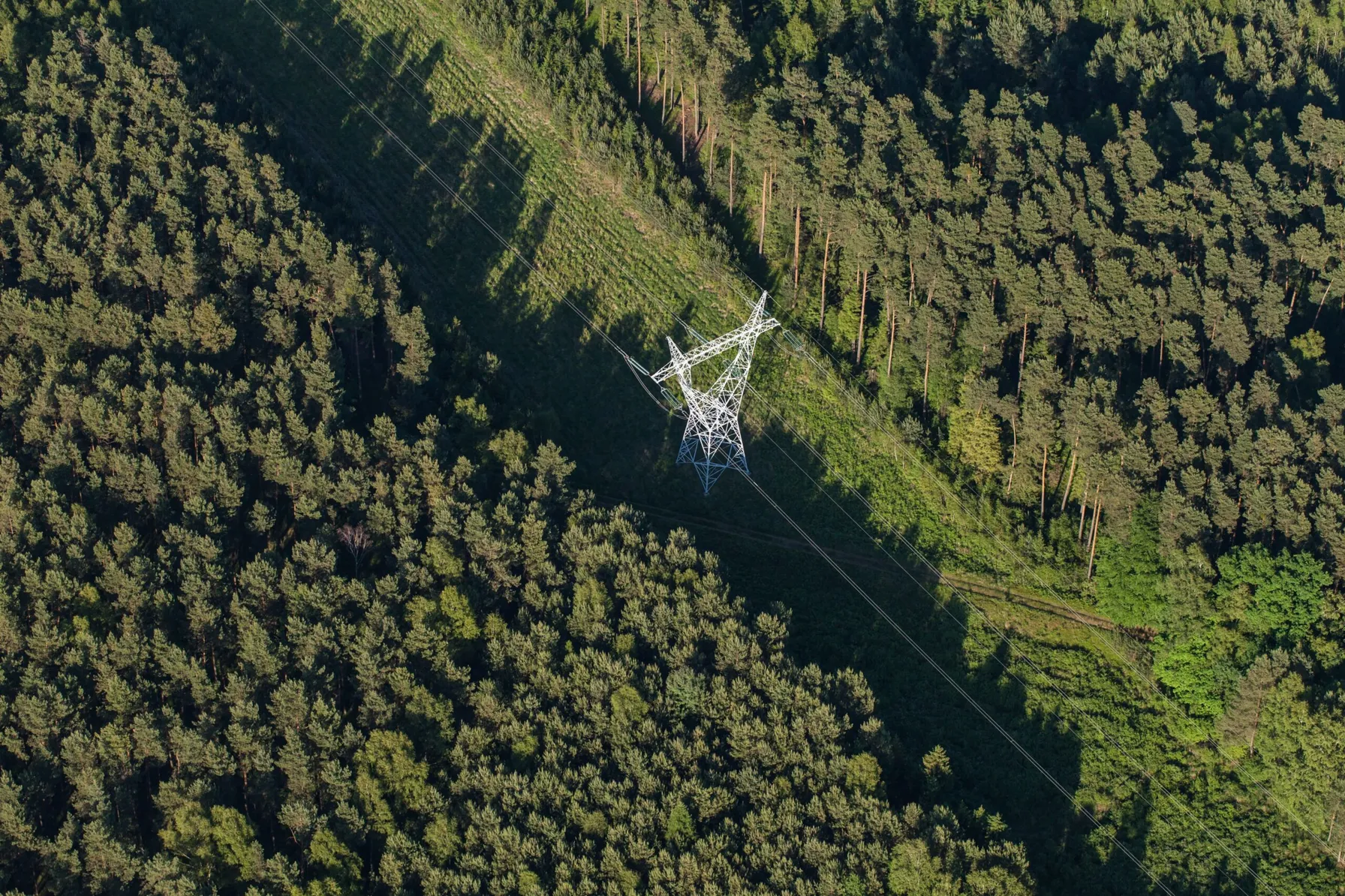
Update to FAC-003-5 Brings Sweeping Changes to Transmission Classifications Starting April 1
March 19, 2024
Update to FAC-003-5 Brings Sweeping Changes to Transmission Classifications Starting April 1

Prevent NERC Compliance Failures with Readiness Reviews
February 20, 2024
Every NERC-registered utility must strive for continuous compliance with their portfolio of applicable NERC Reliability Standards
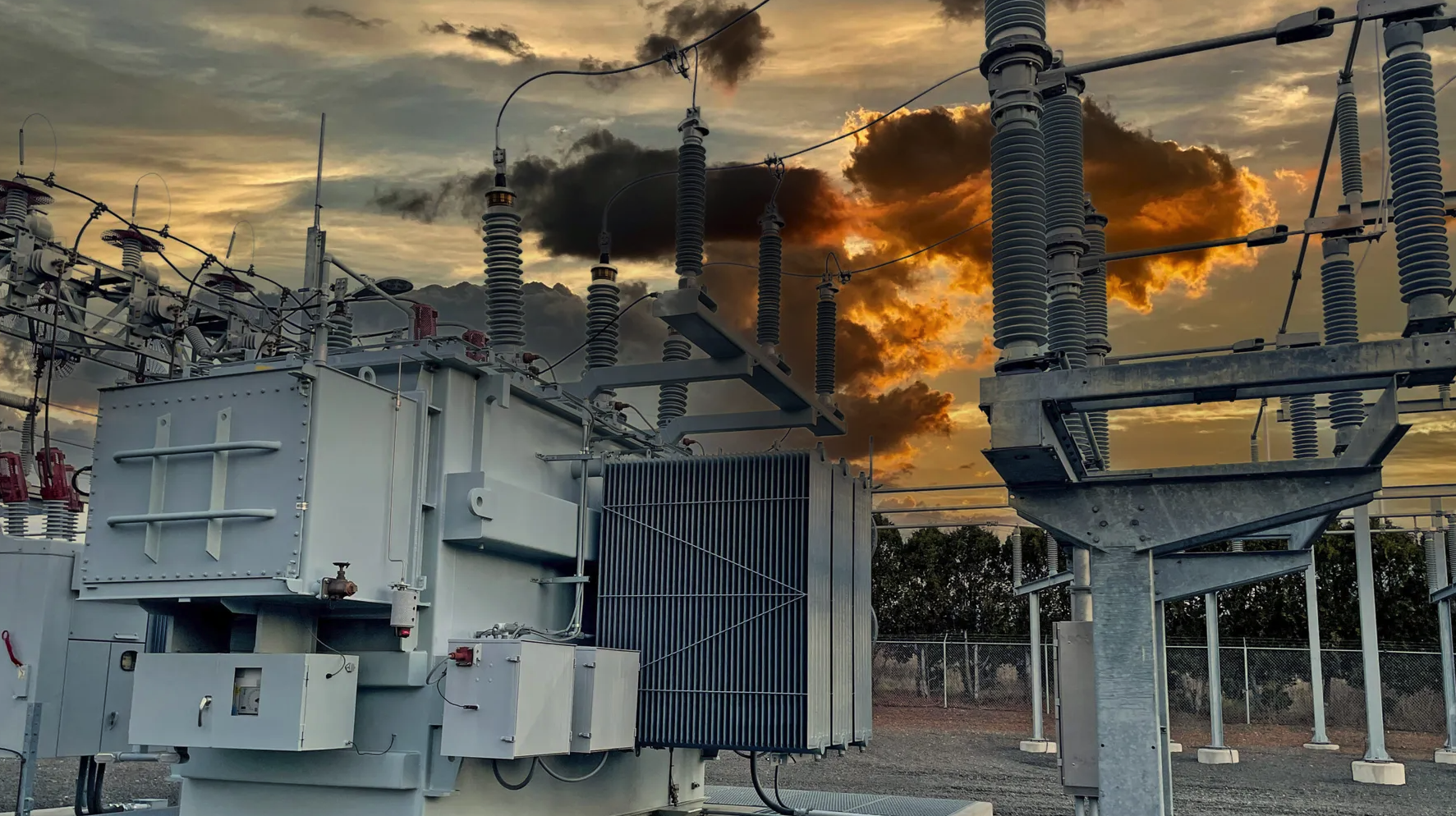
NERC Releases 2024-2026 Standards Development Plan
January 26, 2024
NERC has submitted its 2024-2026 Reliability Standards Development Plan to the Federal Energy Regulatory Commission (FERC), outlining its current priorities and future standard development plans to protect the reliability of the Bulk Power System over the next three years.

FERC Order 901 Calls for Standards to Address IBR Reliability Gaps
November 27, 2023
Inverter Based Resources are playing central role when it comes to adding new electric generation capacity into the bulk power system.

Locana Awarded Modern Network Management at Esri Infrastructure Management and GIS Conference
November 22, 2023
Locana, an international leader in spatial technology, received the Modern Network Management Award at the 2023 Esri Infrastructure Management and GIS (IMGIS) Conference held in Palm Springs, California, October 10-12, 2023.

Esri Awards Locana with the ArcGIS Cloud Services Specialty Designation
October 4, 2023
Locana, an international leader in spatial technology, received Esri’s ArcGIS Cloud Services Specialty, which designates Locana as an expert in deploying and managing ArcGIS in cloud environments such as Amazon Web Services (AWS) and Microsoft Azure.
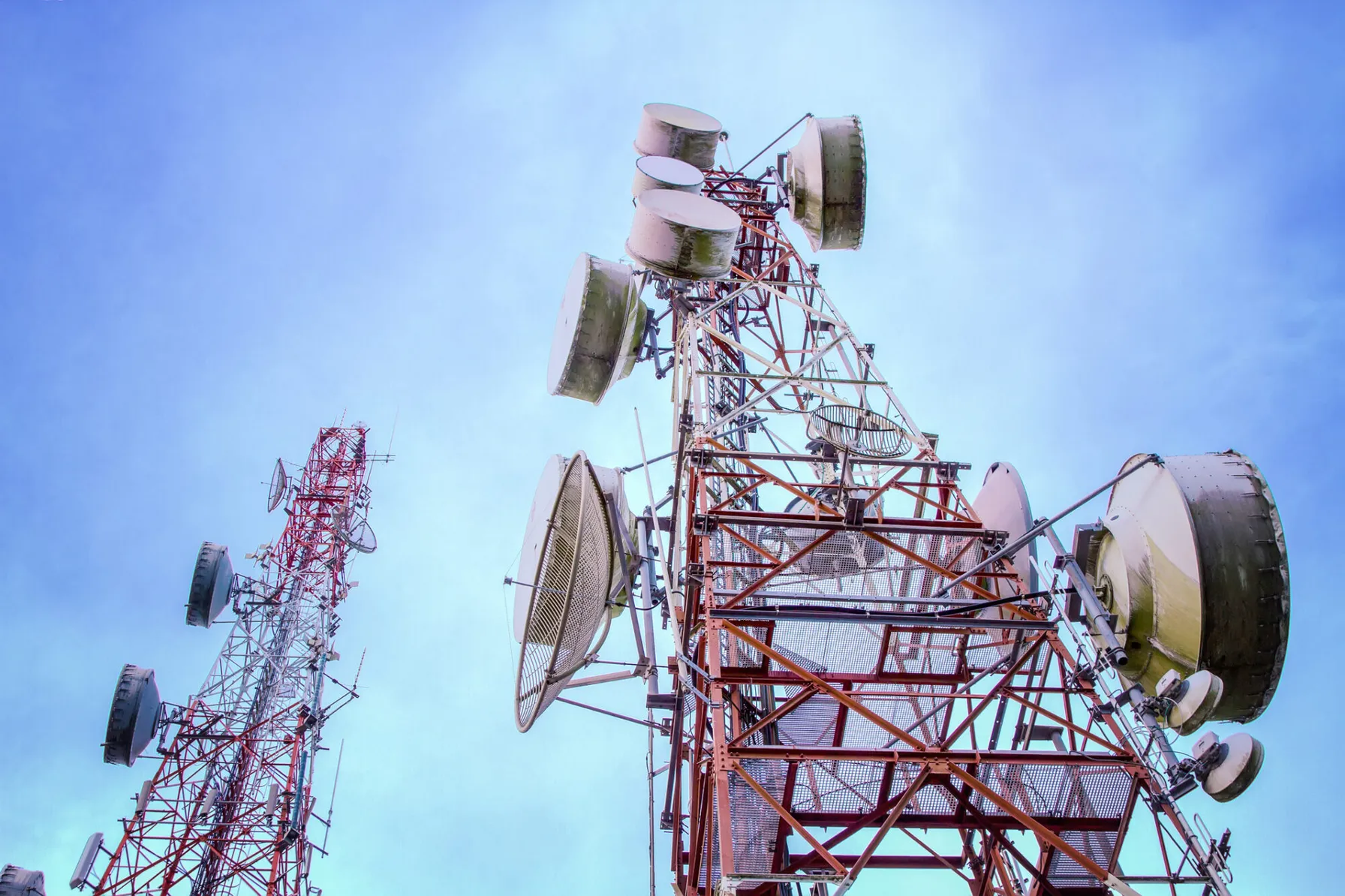
The Digital Transformation of the Utility Operations Model: Essential Telecom Network Upgrades to Make Now
October 4, 2023
As technology advances and cybersecurity threats loom, companies must prioritize communications retrofits and upgrades to ensure reliability, availability and business continuity.
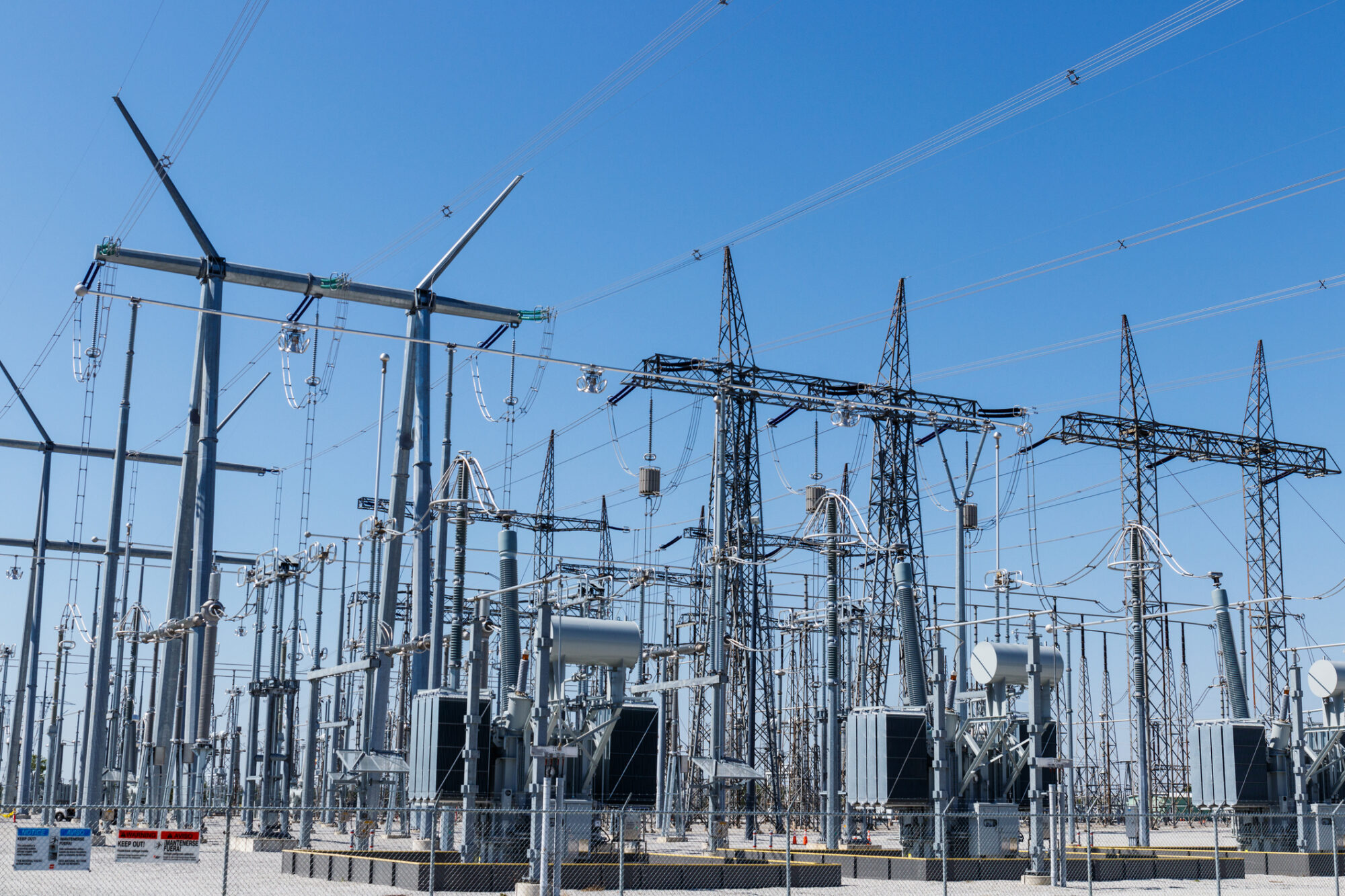
FERC Hosts Technical Conference on the Effectiveness and Improvements to CIP-014-3
August 30, 2023
Expert Discussions and Key Takeaways Focus on Physical Security
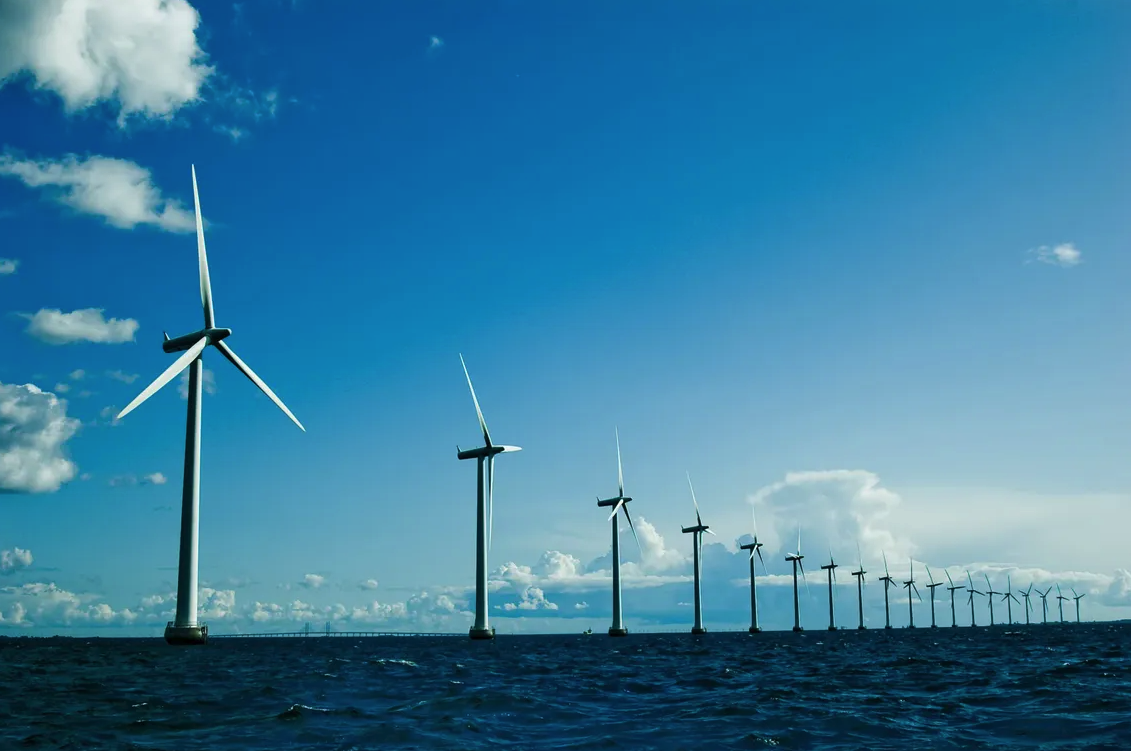
Offshore Wind: A Critical Energy Solution on the Path to Grid Resiliency and Decarbonization
August 29, 2023
As the urgency to decarbonize and build resiliency grows, renewable energy continues to be a pivotal solution for reshaping the future of power in the U.S. From solar to wind, hydro, geothermal and biomass, each renewable resource has its sweet spot for efficient development, deployment and optimal performance. And while they all have their own pros and cons, it is imperative that we leverage them all into the energy mix to achieve decarbonization goals and ensure adequate capacity to meet increasing load demands.
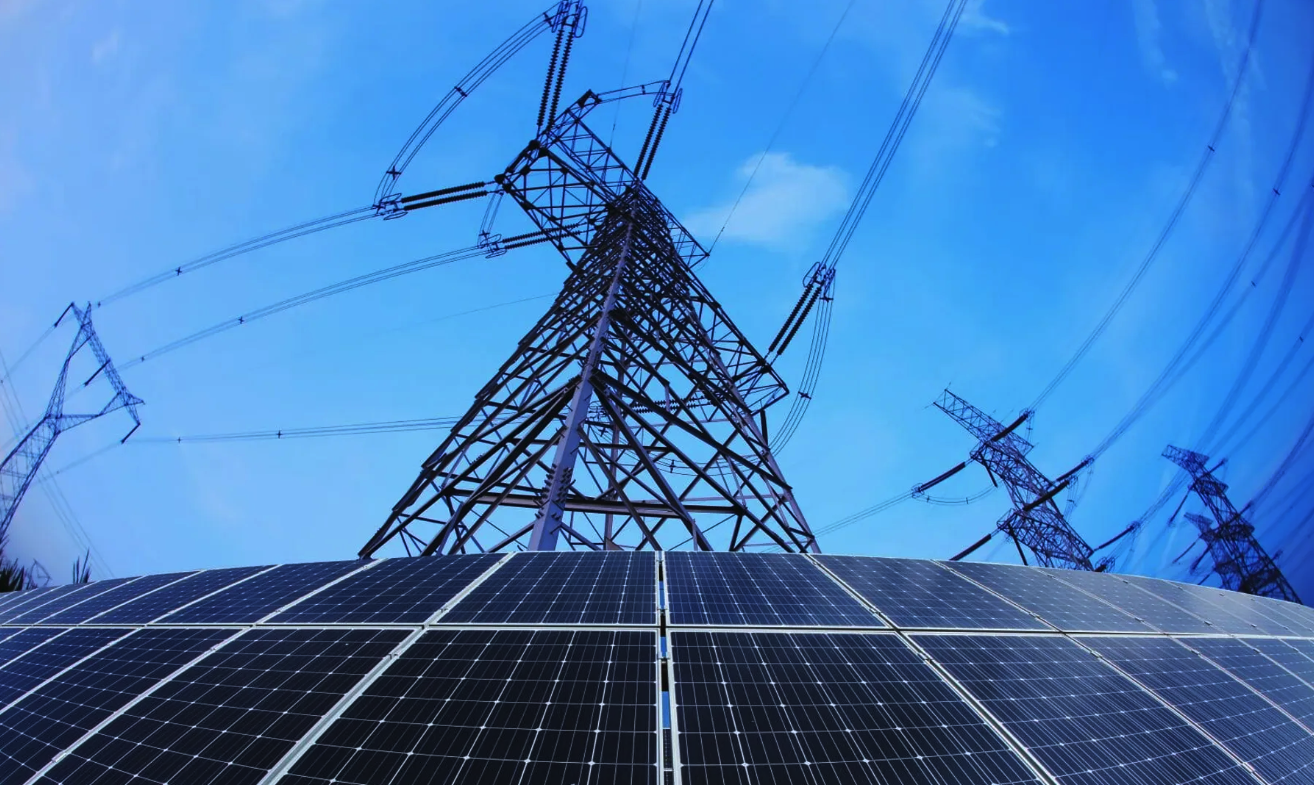
Intro to NERC Regulatory Guidance on Inverter-Based Resources
August 29, 2023
As renewable energy proliferates across the US power system, the North American Electric Reliability Corporation (NERC) continues to actively address reliability risks resulting from the implementation of inverter-based resources (solar and wind generation technology) connected at both transmission and Distributed Energy Resources (DER) levels.

Strengthening the Future Utility Workforce through Immersive Learning Technology
August 7, 2023
Leveraging new tools and technologies such as mixed and virtual reality (MR/VR) to develop a new generation of skilled engineers and technicians to maintain the reliability and resiliency of the future grid.
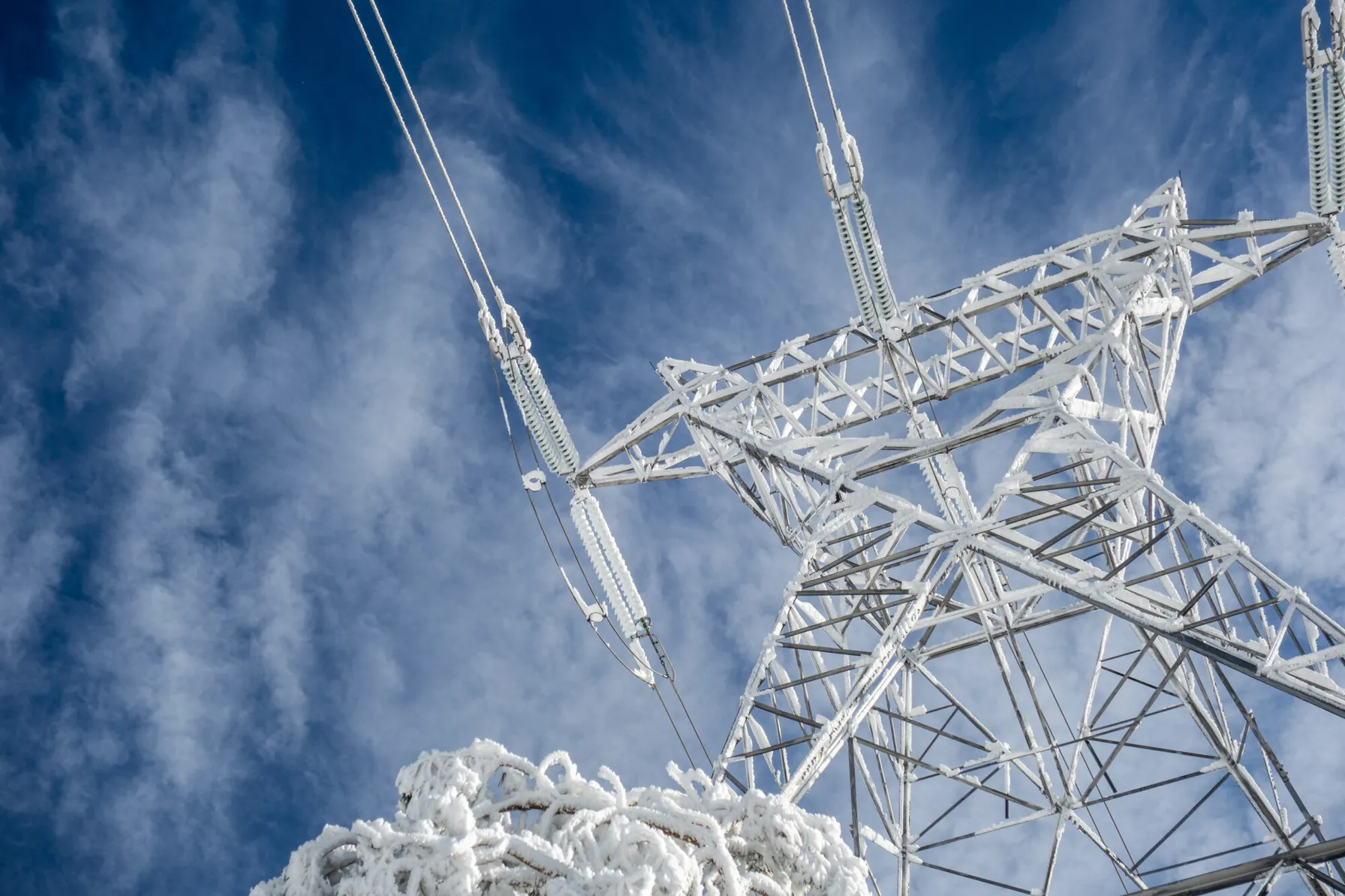
FERC Extreme Weather Initiative Will Change the Transmission Planning Process
July 26, 2023
FERC issued a Final Rule directing NERC to develop a new or modified reliability standard addressing transmission system planning performance requirements for extreme heat or cold weather events.

Unleashing the Power of a Human Performance Mindset to Ensure the Next Generation Utility Workforce
June 27, 2023
The impact of adapting behavioral and cultural norms to focus on the principles of human performance cannot be underestimated in building the power workforce of the future.
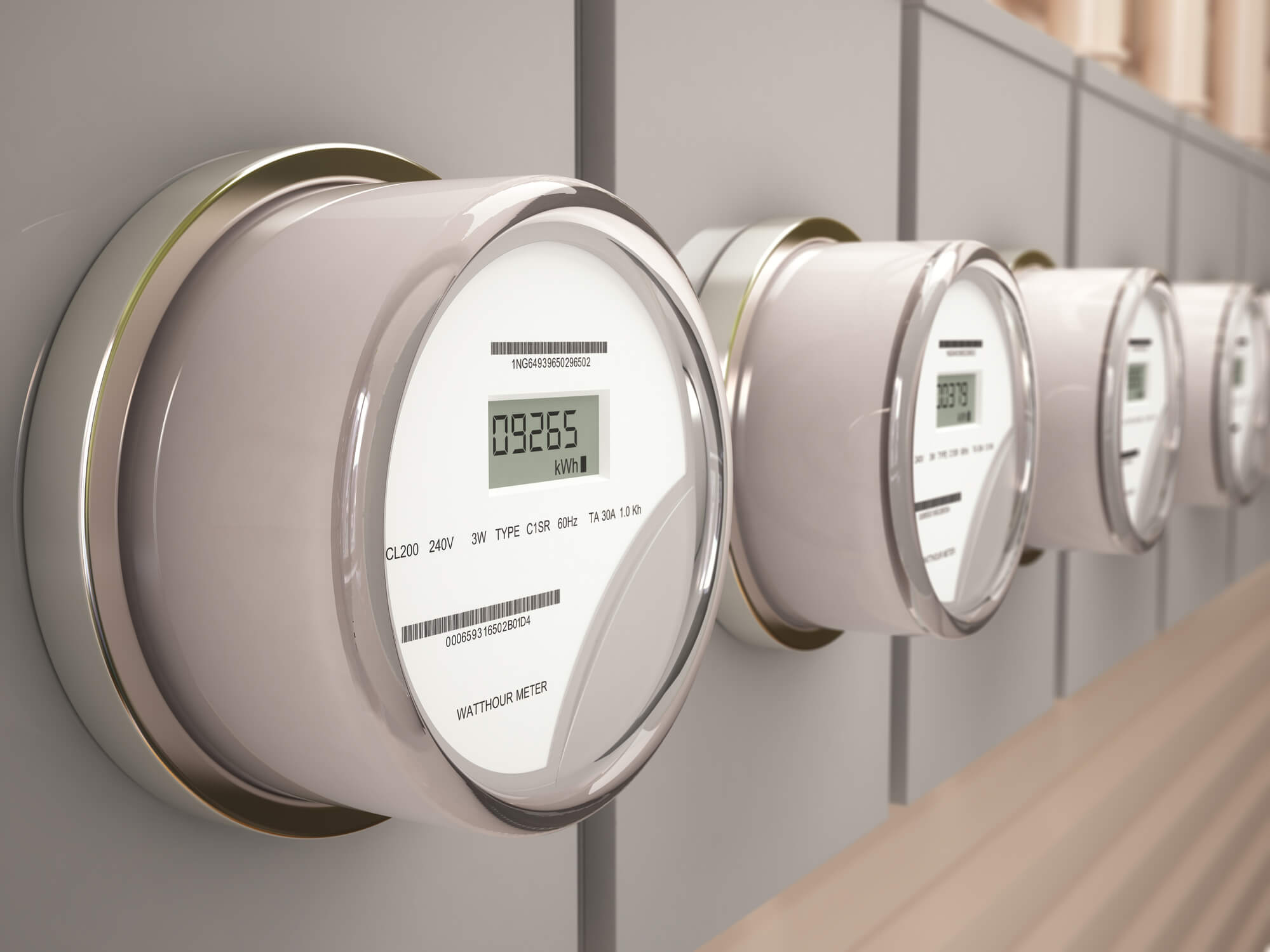
Advanced Metering Infrastructure (AMI) – How Smart Should A Smart Meter Be?
June 26, 2023
According to the Edison Foundation’s Institute for Electric Innovation, over 124 million smart meters were expected to be installed in 78 percent of US households by the end of 2022.
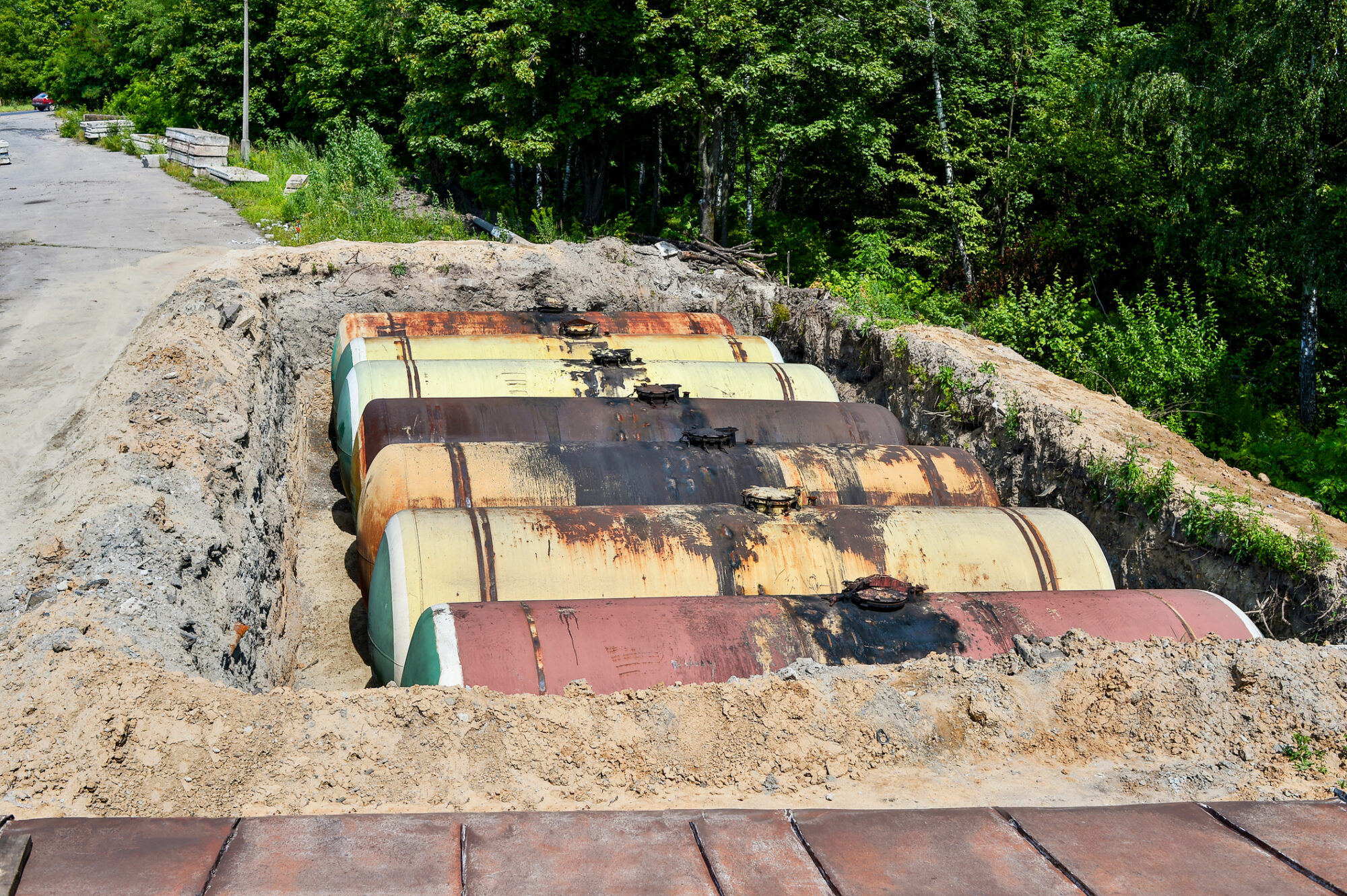
EPA Issues Clarification of Free Product Removal Requirements
June 20, 2023
EPA recently clarified requirements for LNAPL recovery and remediation.
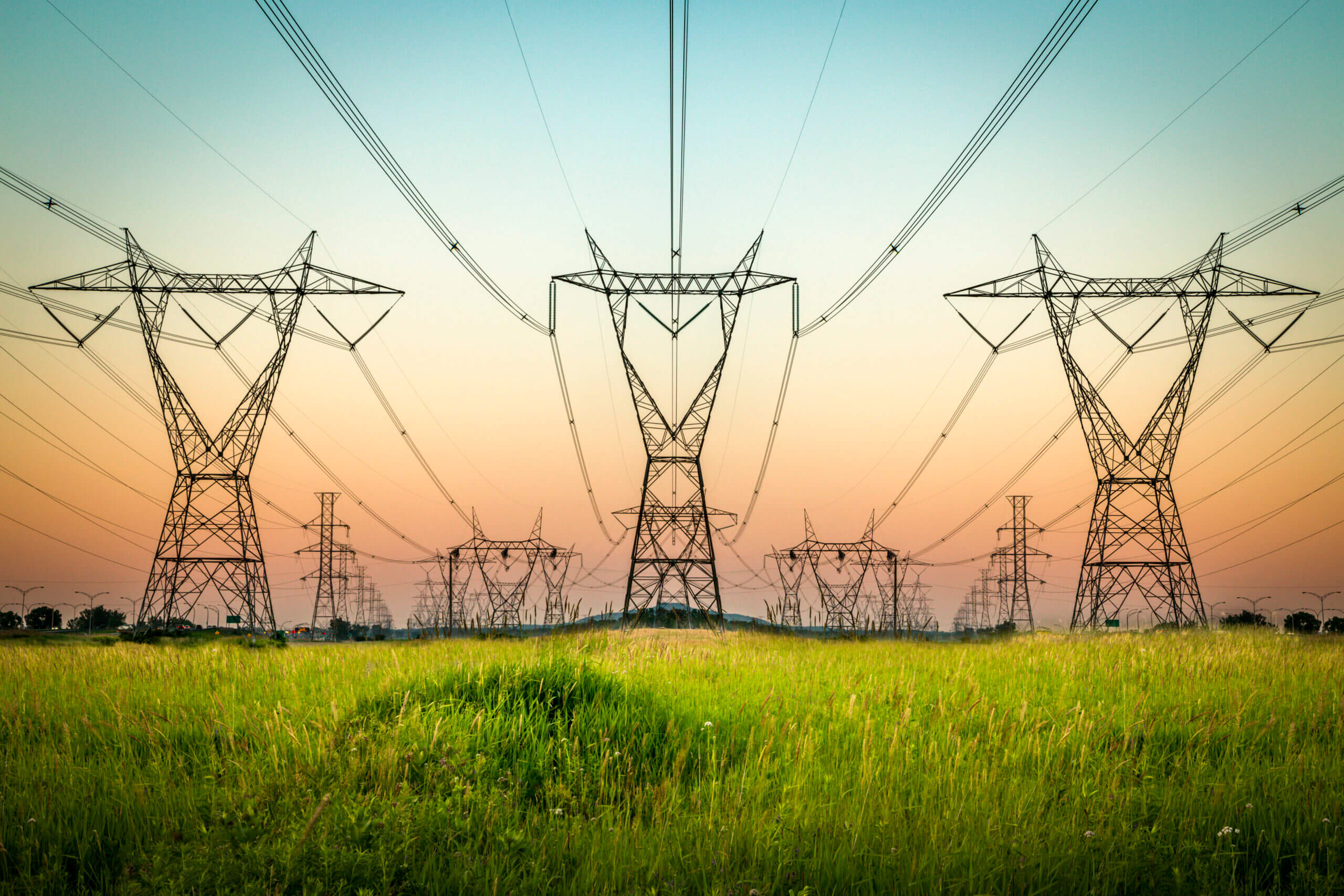
Modernize Your Field Services with GIS and Work Order Management Combined
June 15, 2023
The role of field service management continues to dominate the world economy, as the market grows at an exponential rate. The market was estimated at 3.2 billion in 2021 and is projected to reach 5.7 billion by the end of 2026.
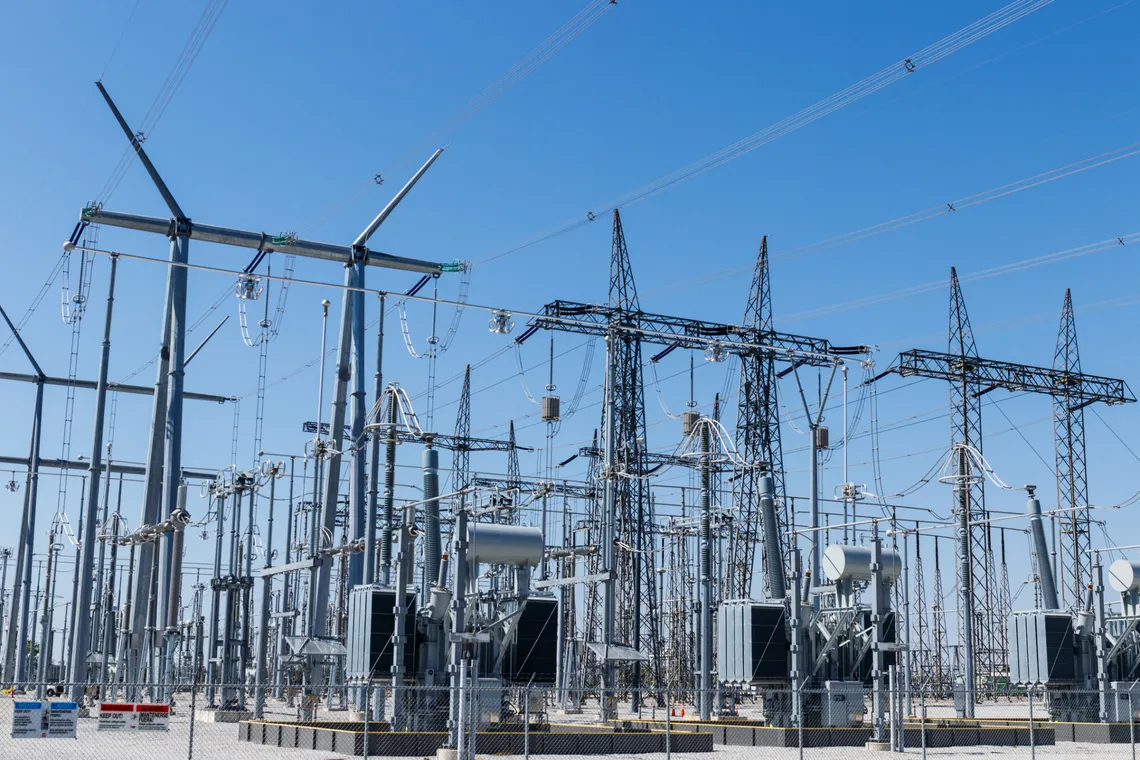
NERC Files Report on Effectiveness on CIP-014 Physical Security Standard
May 25, 2023
On behalf of the North American Electric Reliability Corporation (NERC), its President and CEO Jim Robb, recently presented to the Federal Energy Regulatory Commission (FERC) a summary of NERC’s report on the effectiveness of NERC’s CIP-014 Physical Security Standard. There were almost 1,700 physical security incidents reported to the Electricity-Information Security Analysis Center (E-ISAC) in 2022, an increase of 10.5% from 2021.

Modeling Power System Hosting Capacity
March 31, 2023
As renewable energy development booms, and distributed energy resources (DERs) proliferate across the grid, the demand for a more efficient and timely interconnection process is at an all-time high. To meet regulatory deadlines and satisfy the needs of both developers and customers, utilities must tackle an increasingly complex array of system impact studies, analyses and reports, under ever shrinking timelines.
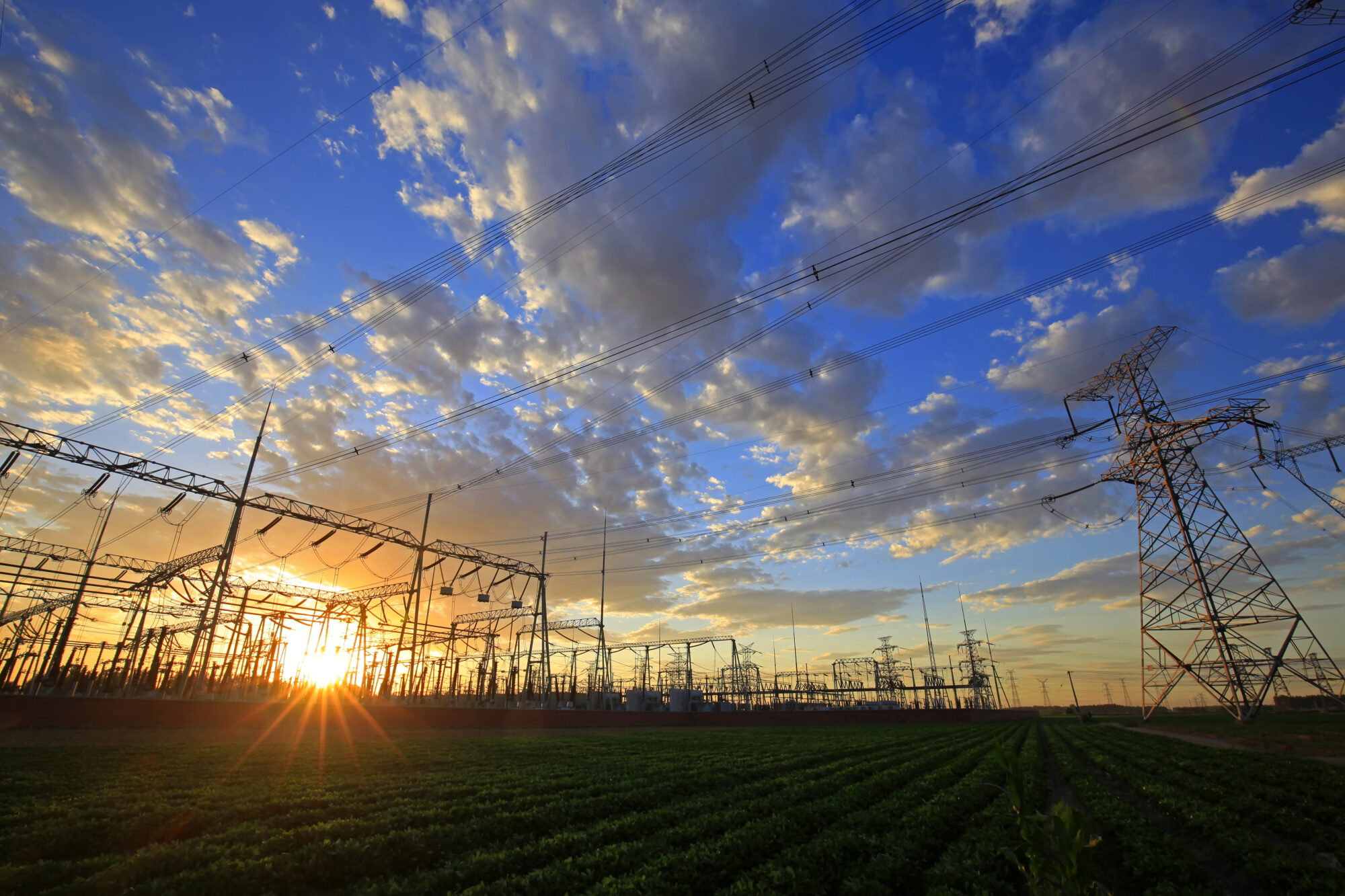
FERC Orders Internal Network Security Monitoring Rule to be Finalized
March 14, 2023
FERC directed NERC to develop Reliability Standards to implement INSM within trusted CIP environments.
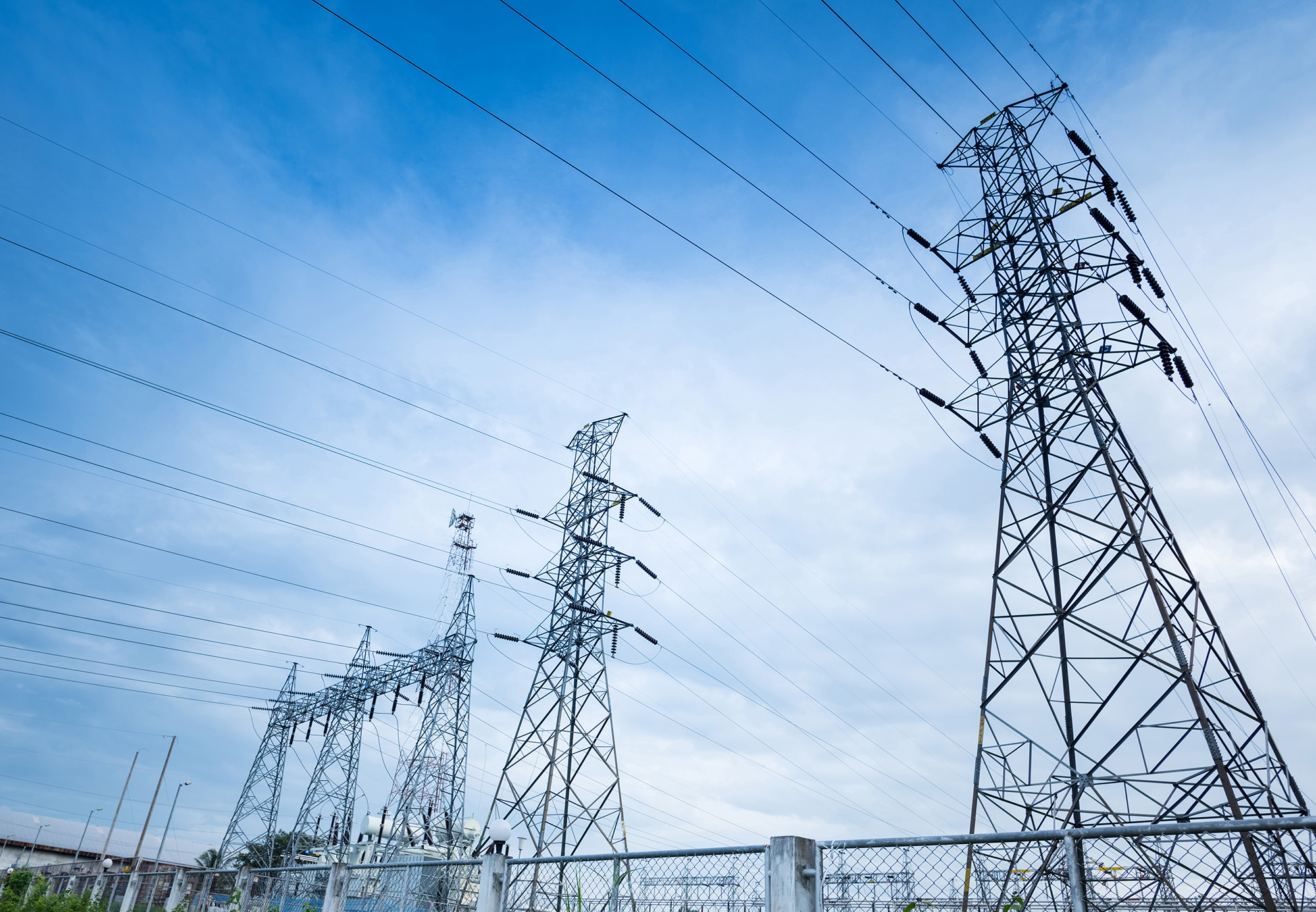
TRC Companies Assisting LS Power Grid Maine with New Transmission Project in Maine
March 2, 2023
TRC Companies announces its role as a consultant in supporting the new transmission project by LS Power Grid Maine.
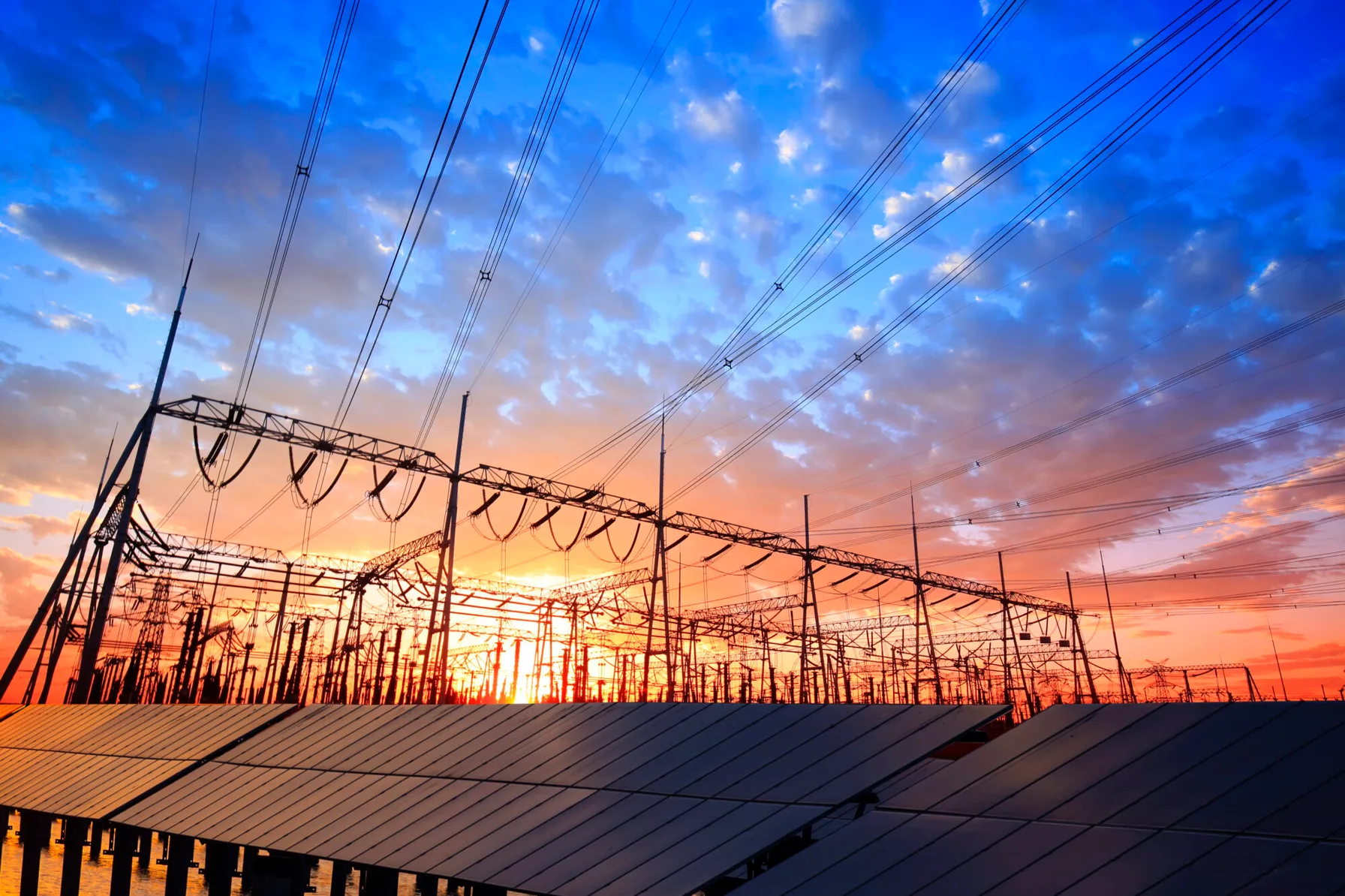
Insights from the Odessa II Power System Disturbance
February 22, 2023
NERC and TRE release the Odessa II Power System Disturbance Report

Carrots and Sticks for Building Decarbonization: Incentive Programs and Codes & Standards
January 11, 2023
Additional Restrictions for Major Modifications Other restrictions will come into play for new Major Sources, those that have a potential to emit 50 tons per year or more of VOC or NOx and “major modifications” that result in a VOC emission increase that exceeds 25 tons per year and also exceeds 25 tons per year when aggregated with all creditable increases and decreases in emissions of VOC from the source over any period of five consecutive years, which includes the calendar year in which the increase will occur. For sources that are major due to NOx emissions, a NOx emission increase that exceeds 25 tons per year and exceeds 25 tons per year when aggregated with creditable increases and decreases over the five-year period is also deemed to be a major modification. If a major modification occurs, the source is required to utilize the Lowest Achievable Emission Rate (or LAER) for the pollutant(s) that exceed 25 tons per year aggregated over the five-year period. However, Best Available Control Technology (BACT) can be substituted for LAER under certain conditions. Additionally, emissions must be offset as a means to advancing the area toward attaining the ozone standard. These same requirements will apply to newly constructed Major Sources. Upcoming Deadlines With these actions, the impacted areas will now have until August 3, 2027, to reach attainment. If they do not, USEPA is again obligated to reclassify ongoing nonattainment status to Severe nonattainment, reducing the Major Source threshold in half to just 25 tons per year. In the meantime, the states will be required to revise State Implementation Plans to demonstrate that attainment will be achieved by this deadline. A unique consideration in Wisconsin affects sources subject to a Registration Operation Permit. These permits establish annual emission limits as a percentage of the Major Source threshold (25, 50, or 80 percent depending on the Permit). For these sources, the annual emission limit for VOC and NOx will automatically be cut in half on January 16, 2025. Sources in the ozone nonattainment areas that hold these permits should evaluate whether the Registration Permit provides a long-term option given that the annual emission limits have been cut in half now and may again be cut in half in three years’ time. Next Steps: TRC Can Help TRC is available to support your air compliance and permitting needs by offering expert in-house resources to perform: Ambient Monitor Siting Evaluation Ambient Monitor Deployment, Operation and Maintenance For more information, contact Melanie Klamar, Robert VandenMeiracker and Mike Zebell.
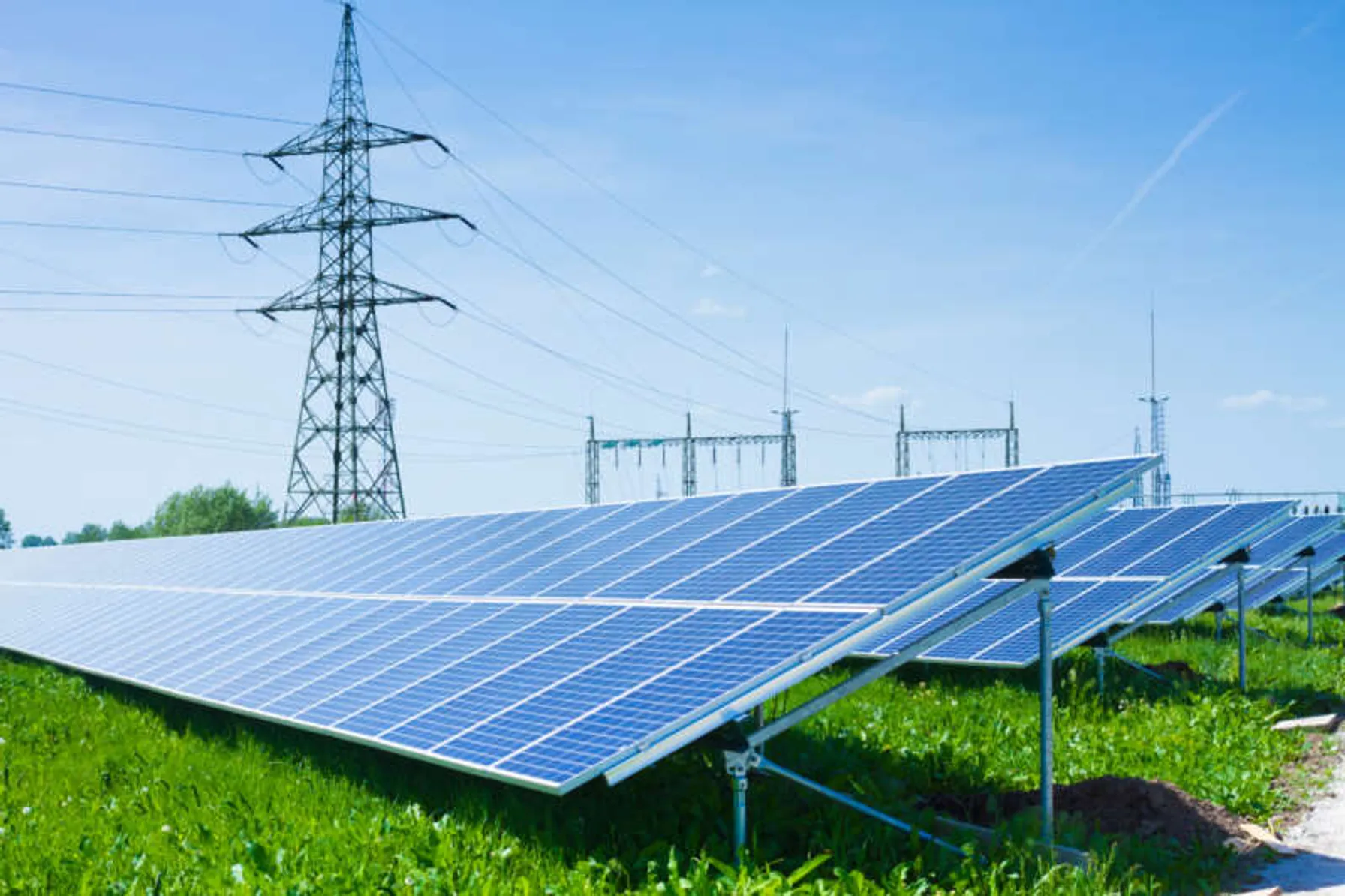
New FERC Orders Will Change Regulatory Process for Inverter Based Resources
January 9, 2023
The Federal Energy Regulatory Commission (FERC) recently proposed actions to keep the regulatory process and requirements ahead of reliability risks resulting from the accelerated deployment of Inverter Based Resources (IBR) based solar, wind and battery storage projects.
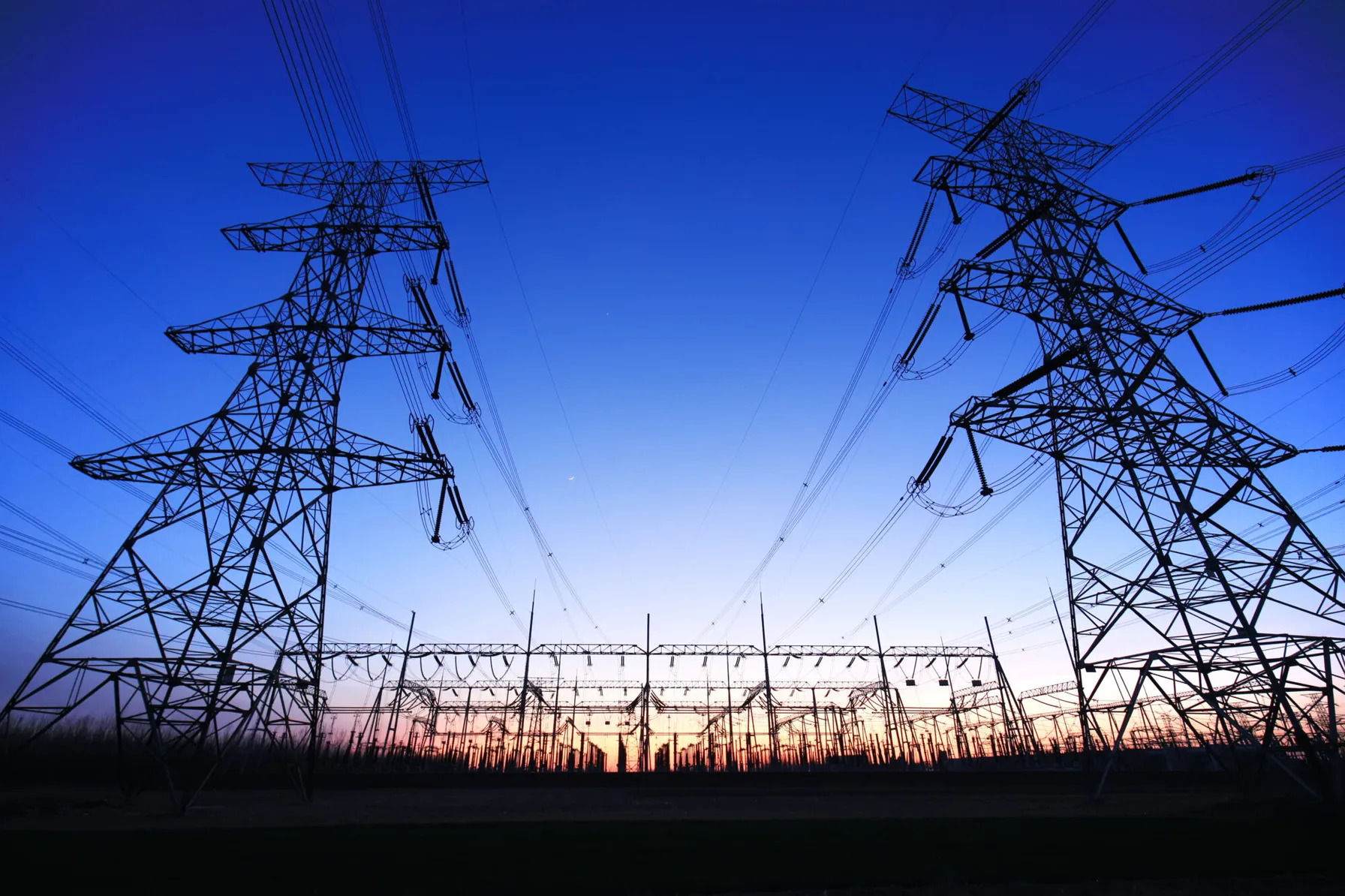
NERC Releases Facilities Ratings Best Practices Report
December 19, 2022
NERC report on best practices for utilities that have encountered facility ratings program challenges.

NERC Files Comments in the FERC Generator Interconnection Notice of Proposed Rulemaking
November 21, 2022
The rulemaking addresses improvements needed to reliably facilitate the power industry’s transition to renewable and distributed generating resources utilizing inverter-based technologies.
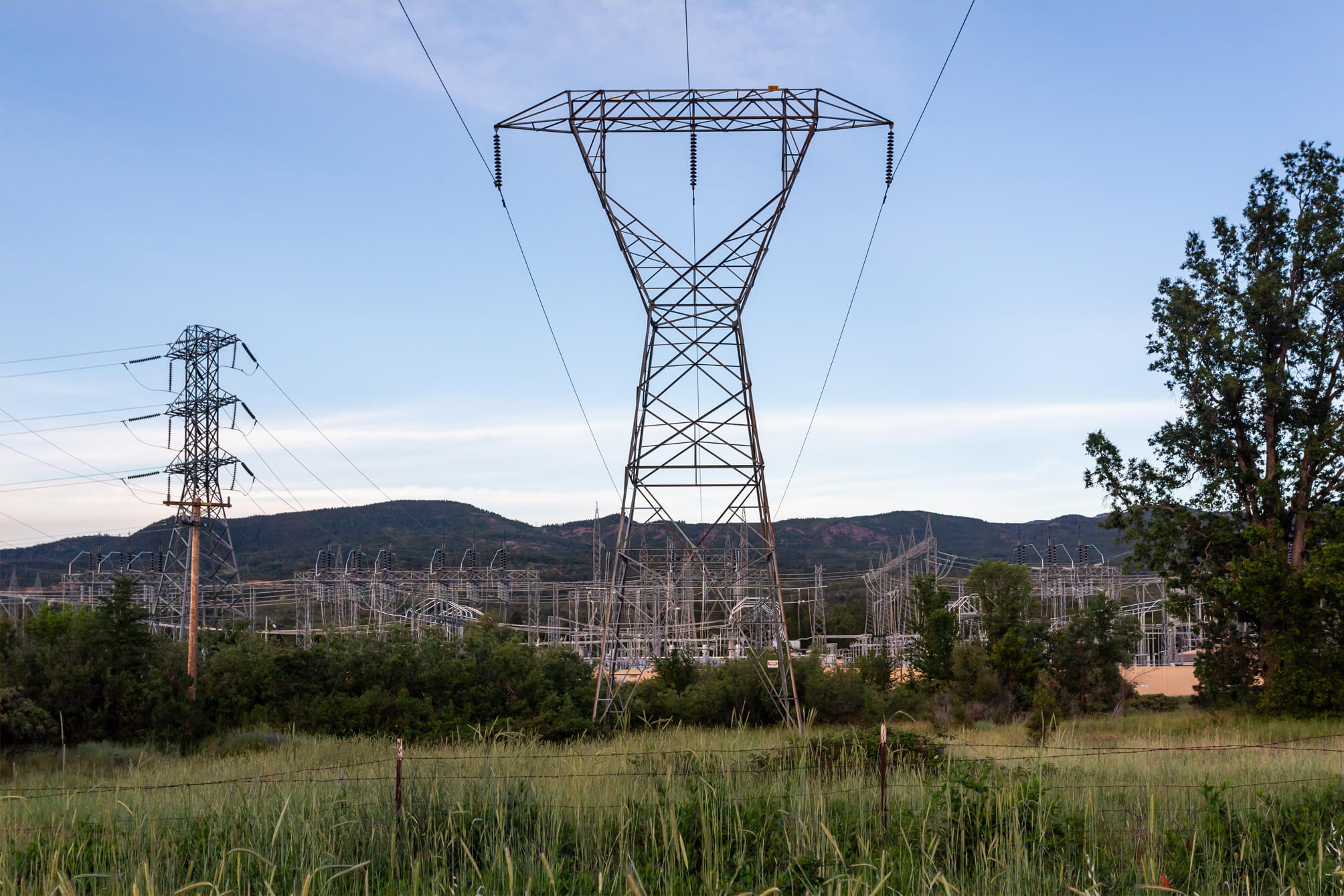
NERC Releases Inverter-Based Resource Strategy Plan
October 25, 2022
The North American Electric Reliability Corporation (NERC) recently released an Inverter-Based Resource (IBR) Strategy, which details the steps needed to successfully integrate IBR facilities into the planning and operation of the power system. The strategy was put in place due to the rapid interconnection of IBR systems, which are extensively used for solar and wind generating facilities, including new battery-based energy storage systems and are one of the most significant drivers of power grid transformation. Because of control system inconsistencies, IBR facilities pose well-documented risks to power system reliability when this strategy’s practices are not adhered to. NERC’s plan calls attention to the need for thoughtful integration of IBRs and identifies current and future work required to mitigate reliability risks resulting from the deployment of this technology.

NERC Releases 2022 State of Reliability Report
September 16, 2022
The North American Electric Reliability Corporation (NERC) recently released its 2022 State of Reliability report, which examines power system performance in calendar year 2021 and evaluates reliability performance trends. The 2022 report identified six key findings regarding power system performance that are summarized as follows:
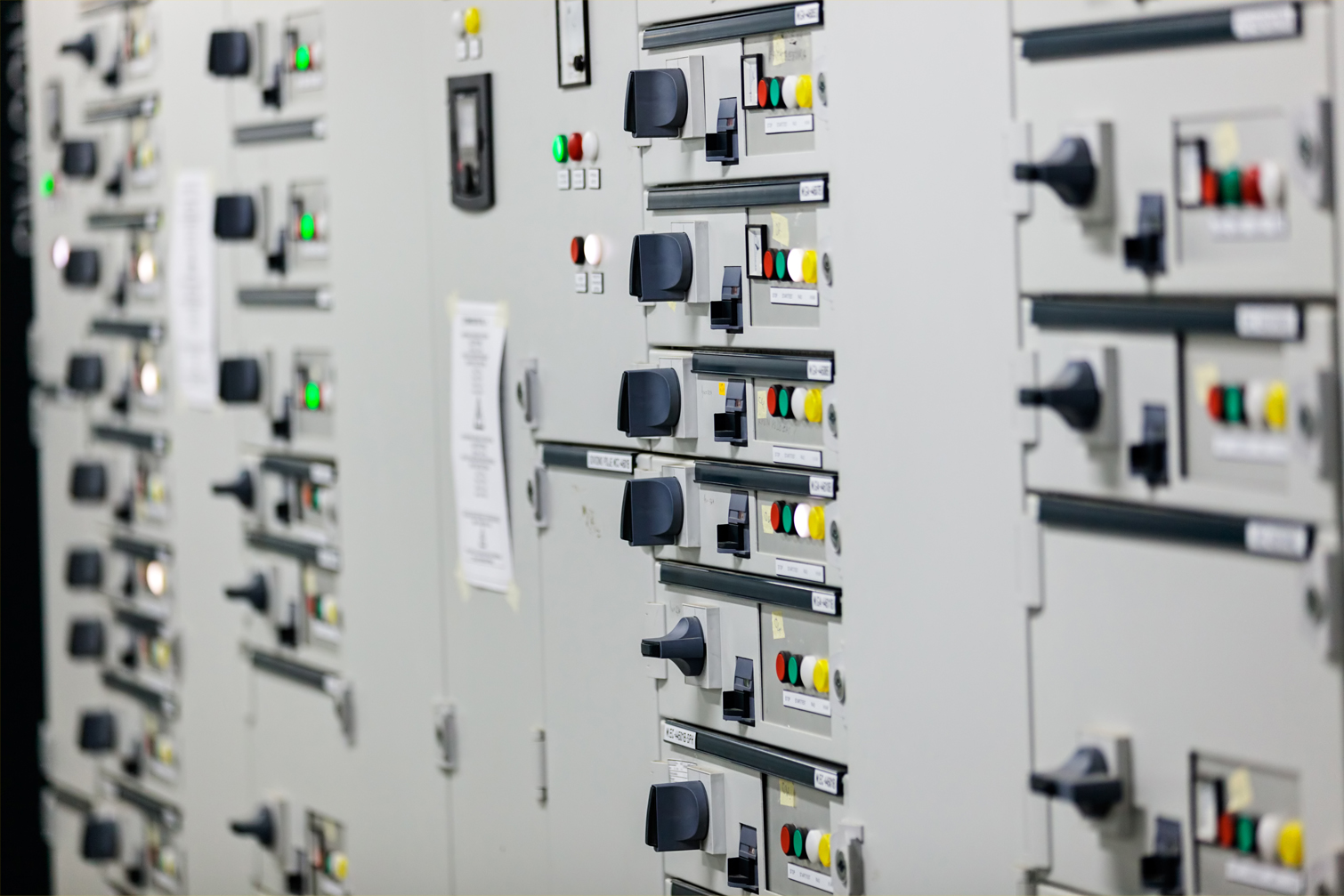
NERC Proposes Implementation Guidance for PRC-019-2
August 22, 2022
NERC has proposed implementation guidance for PRC-019-2, the standard that verifies coordination of generating unit facility or synchronous condenser voltage regulating controls, limit functions, equipment capabilities and protection system settings.

Revisions to FAC-001 and FAC-002 Submitted for FERC Approval
July 12, 2022
Reliability Standards FAC-001-4 and FAC-002-will resolve uncertainty regarding the meaning of “materially modify” under the currently effective standards.
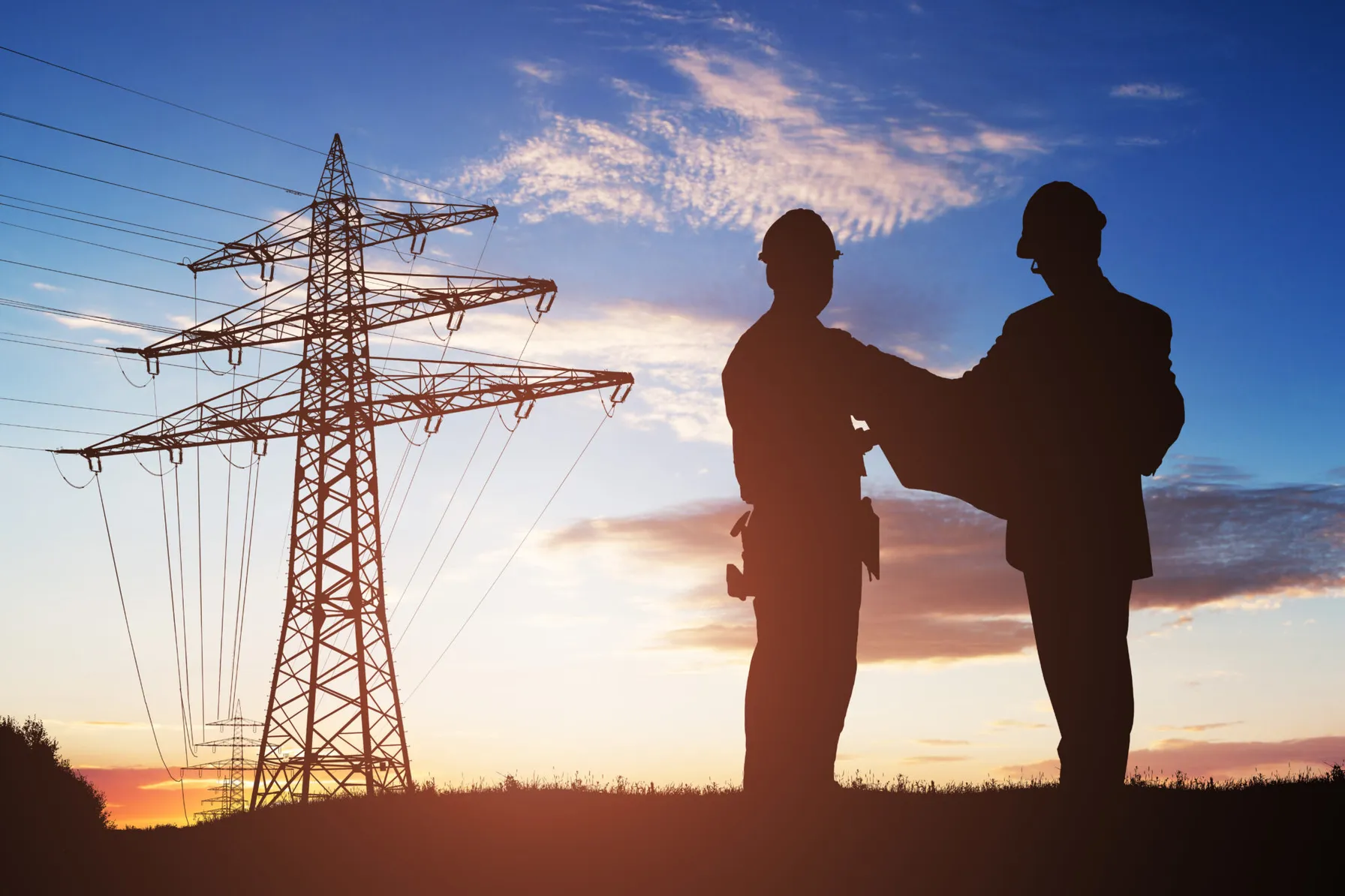
FERC Order No. 881-A Has Implications for NERC Compliance Programs
June 23, 2022
Updated Order will have significant impact on NERC compliance programs related to both PRC standards and facilities ratings. Utilities should review the Order’s requirements and prepare for changes needed to remain compliant.
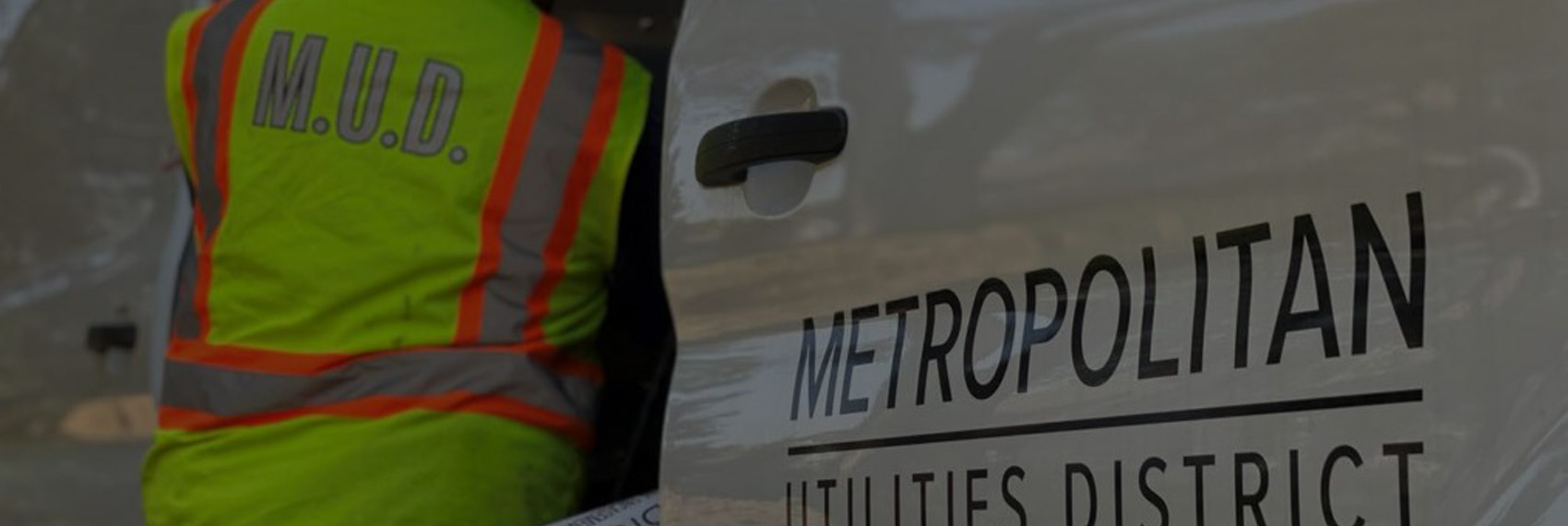
Omaha Metropolitan Utilities District Drives Reliable Operations with Locana Lemur Mobile GIS Solution
June 8, 2022
Locana, a global leader in technology consulting and geospatial systems development, today announced the successful deployment of its LemurSM Solution by Omaha Metropolitan Utilities District (M.U.D.).
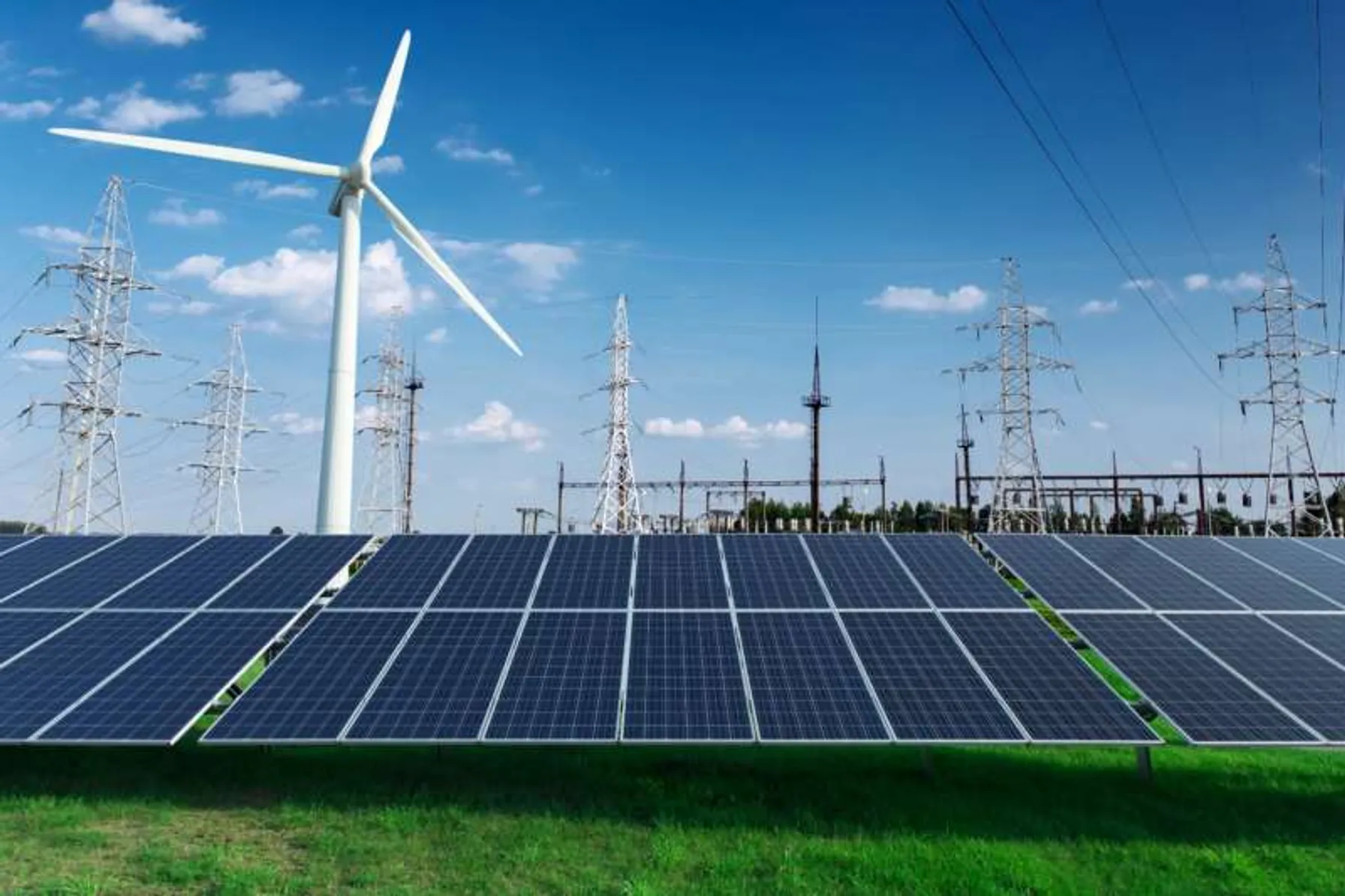
NERC’s Revised PRC-024-3 Standard for Inverter-Based Generation Effective in October 2022
May 11, 2022
Changes to PRC-024-3 in support of inverter-based generation performance are going into effect in October of this year. Interconnection programs and documentation procedures may need to be updated in order to maintain compliance.
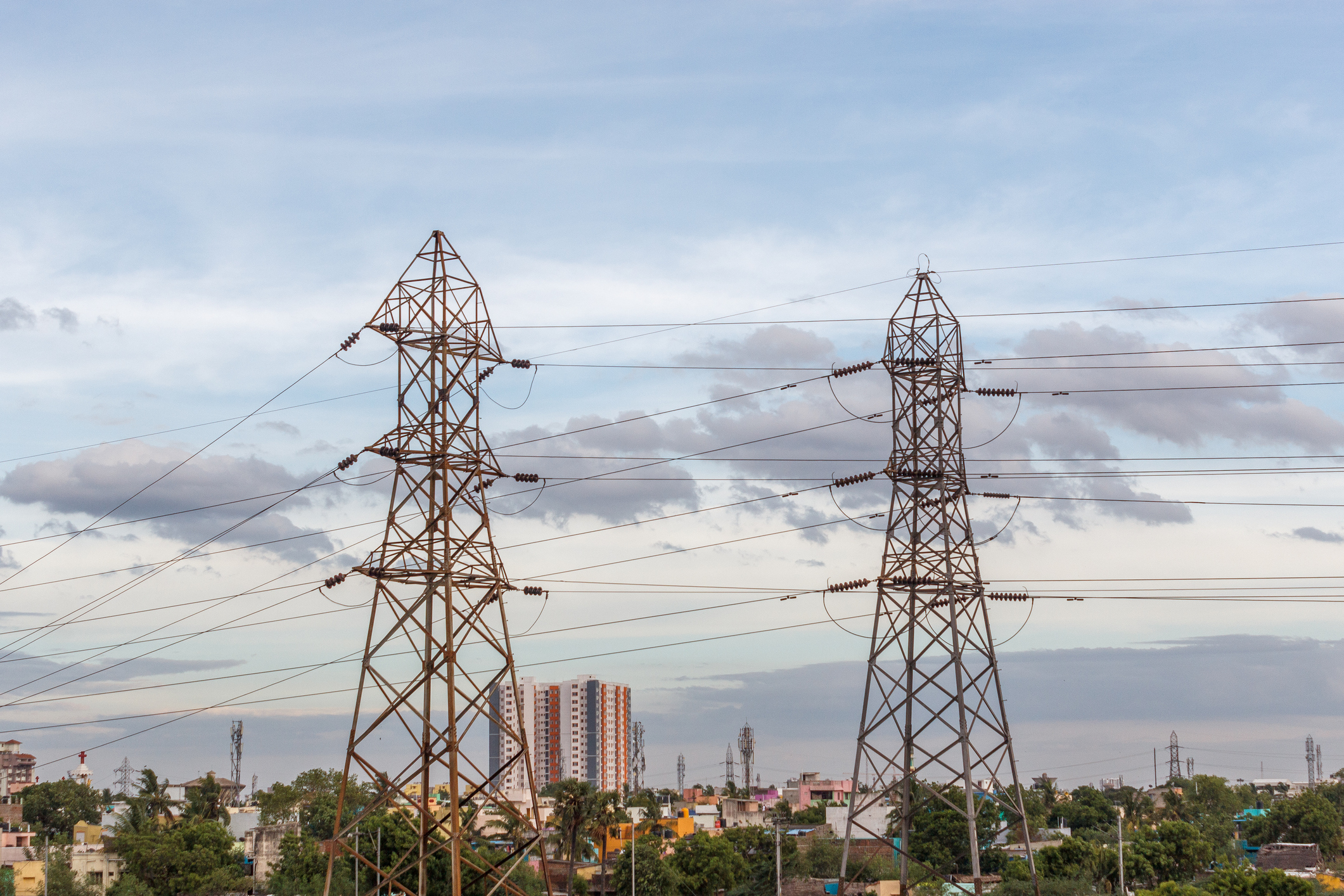
FERC Issues Notice of Inquiry Regarding Dynamic Line Ratings
April 25, 2022
There are significant technical challenges involved in implementing Dynamic Line Ratings in the planning and operation of utility systems. Utilities should be prepared to modify their NERC compliance programs as necessary to address the potential introduction of DLR in their businesses.
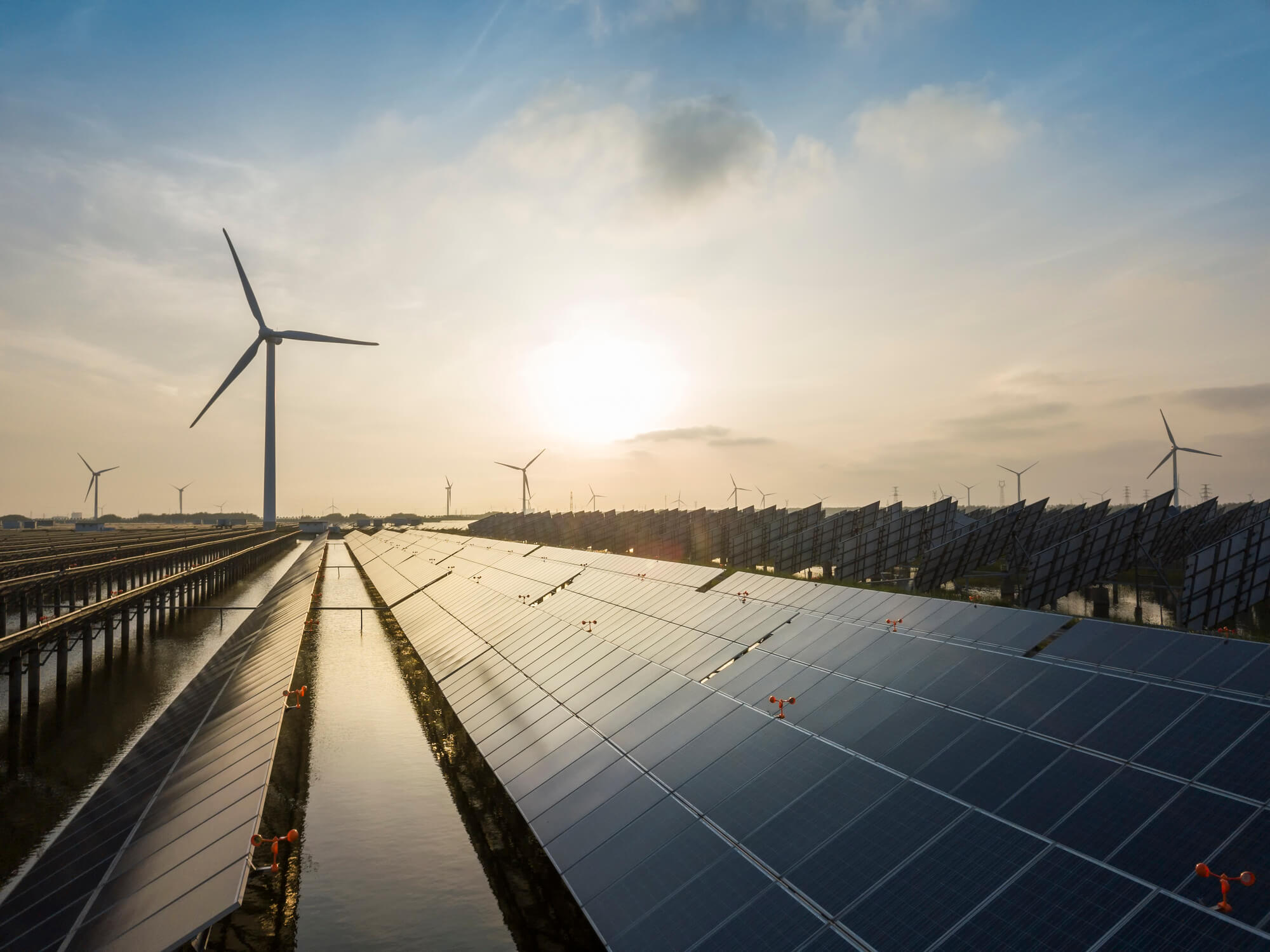
Webinar Replay: Substation Automation – Best Practices for IEC 61850 Implementation
March 29, 2022
Modernizing utility equipment, standards and processes pays dividends for improved safety, security and reliability. But transitioning to a new high-tech system model can be challenging.
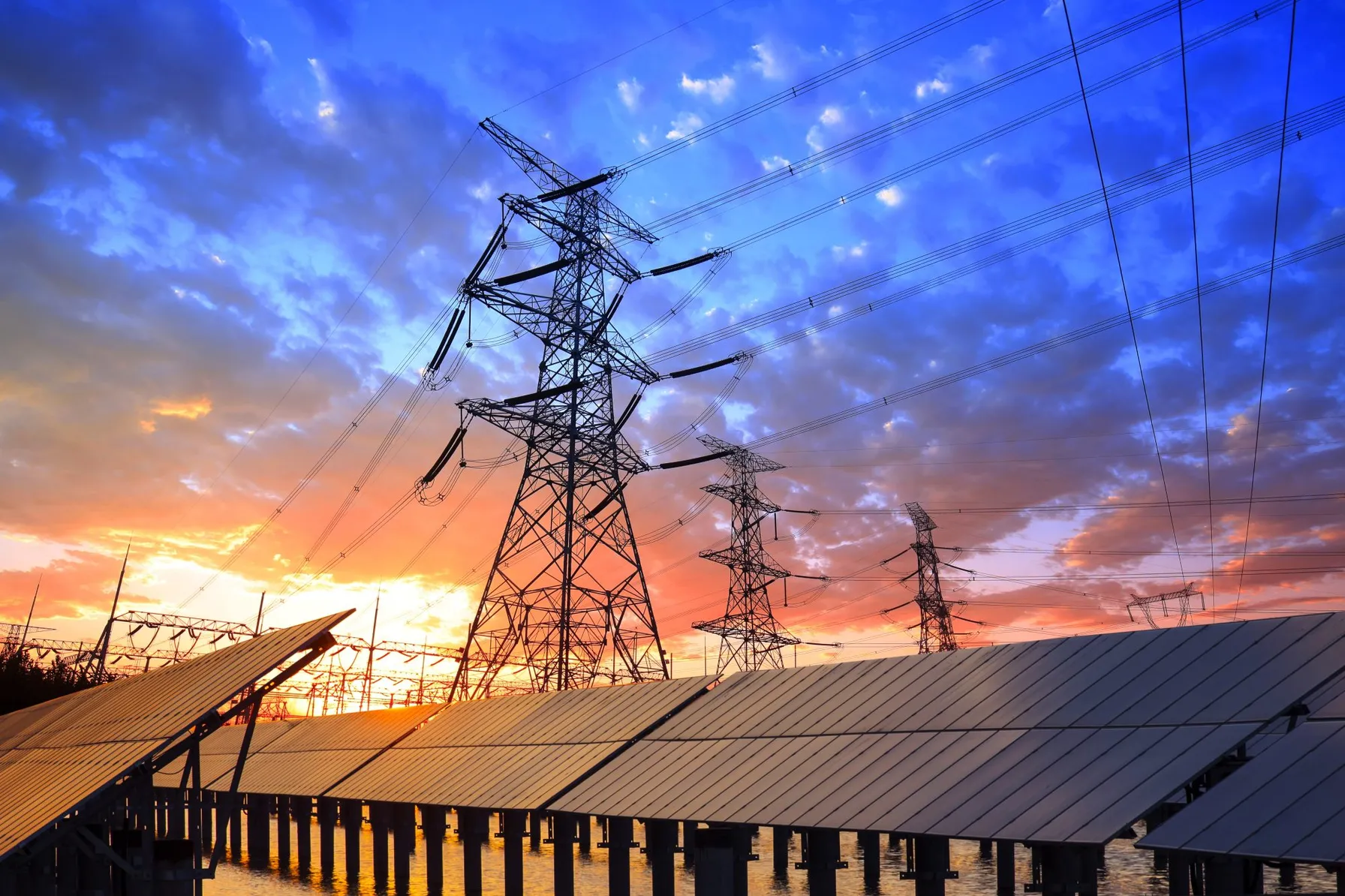
New NERC Guidance Supports the Implementation of Grid Forming Inverters
March 8, 2022
NERC has issued a new report highlighting the key attributes of various inverter controls to support proper implementation and to protect reliability.
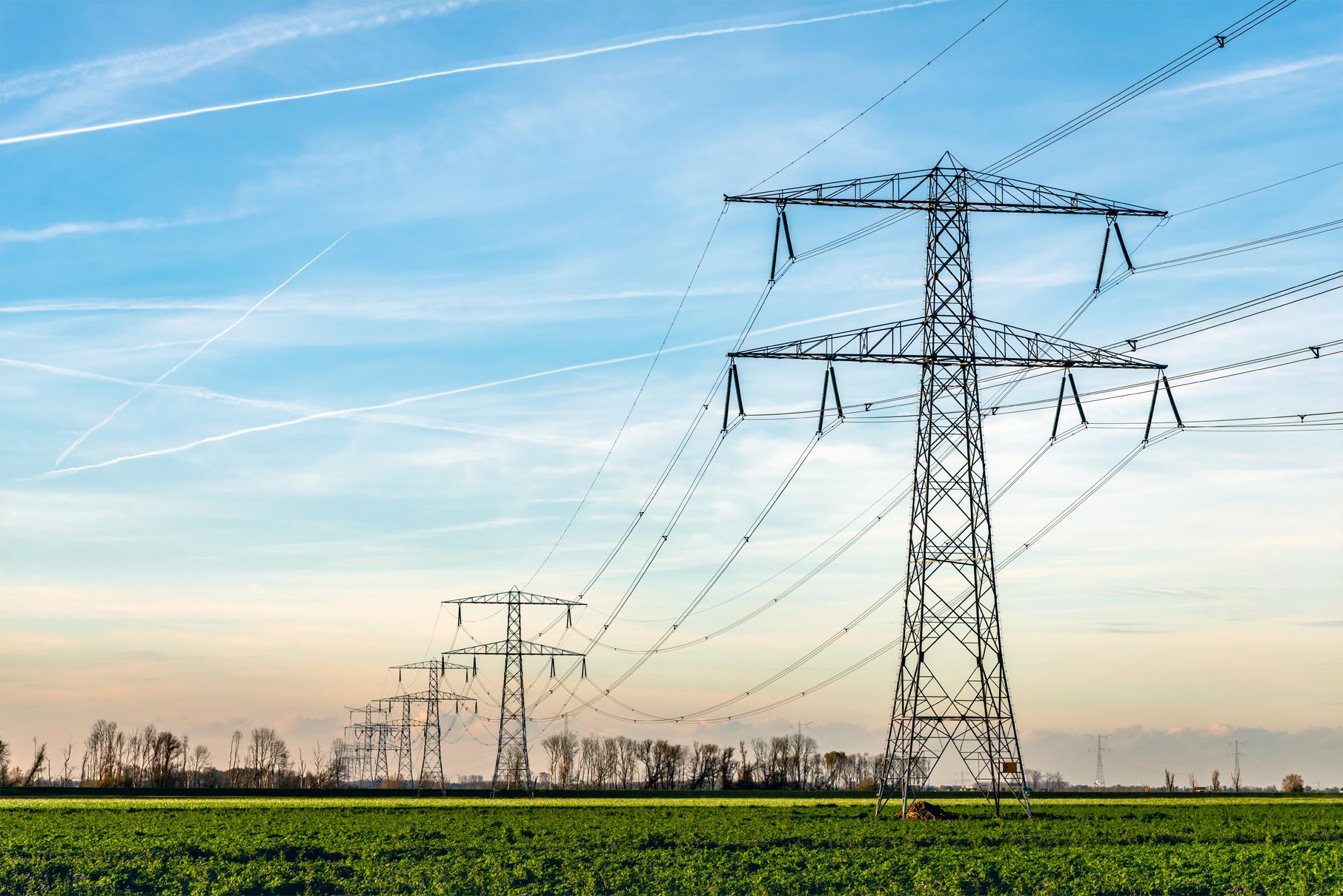
NERC Recommends Approaches for Underfrequency Load Shedding Programs
February 24, 2022
In a recently released reliability guideline, NERC recommends additional approaches for Underfrequency Load Shedding (UFLS) program design to help utilities effectively consider the effects of Distributed Energy Resources (DERs). The guidance was developed to address the accelerated transition of the power system to locally installed, decarbonized resources that depend on inverters. These new technologies introduce operational controls issues into the electric grid. UFLS data gathering and analysis methodologies may require modification to address reliability risks.
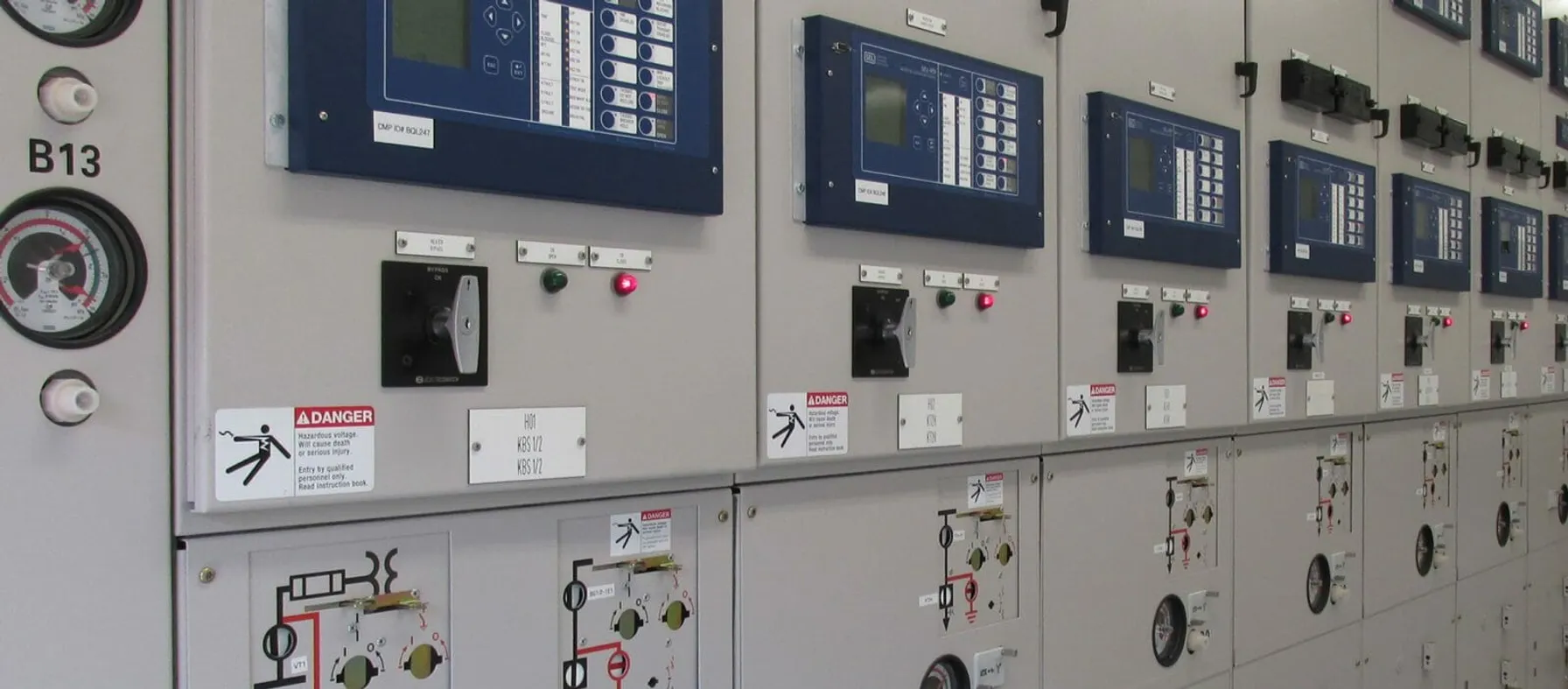
NERC and FERC Recommend Protection System Commissioning Improvements
January 18, 2022
Between 18 and 36 percent of reported utility misoperations were attributed to issues that could have been detected through a properly implemented PSC.
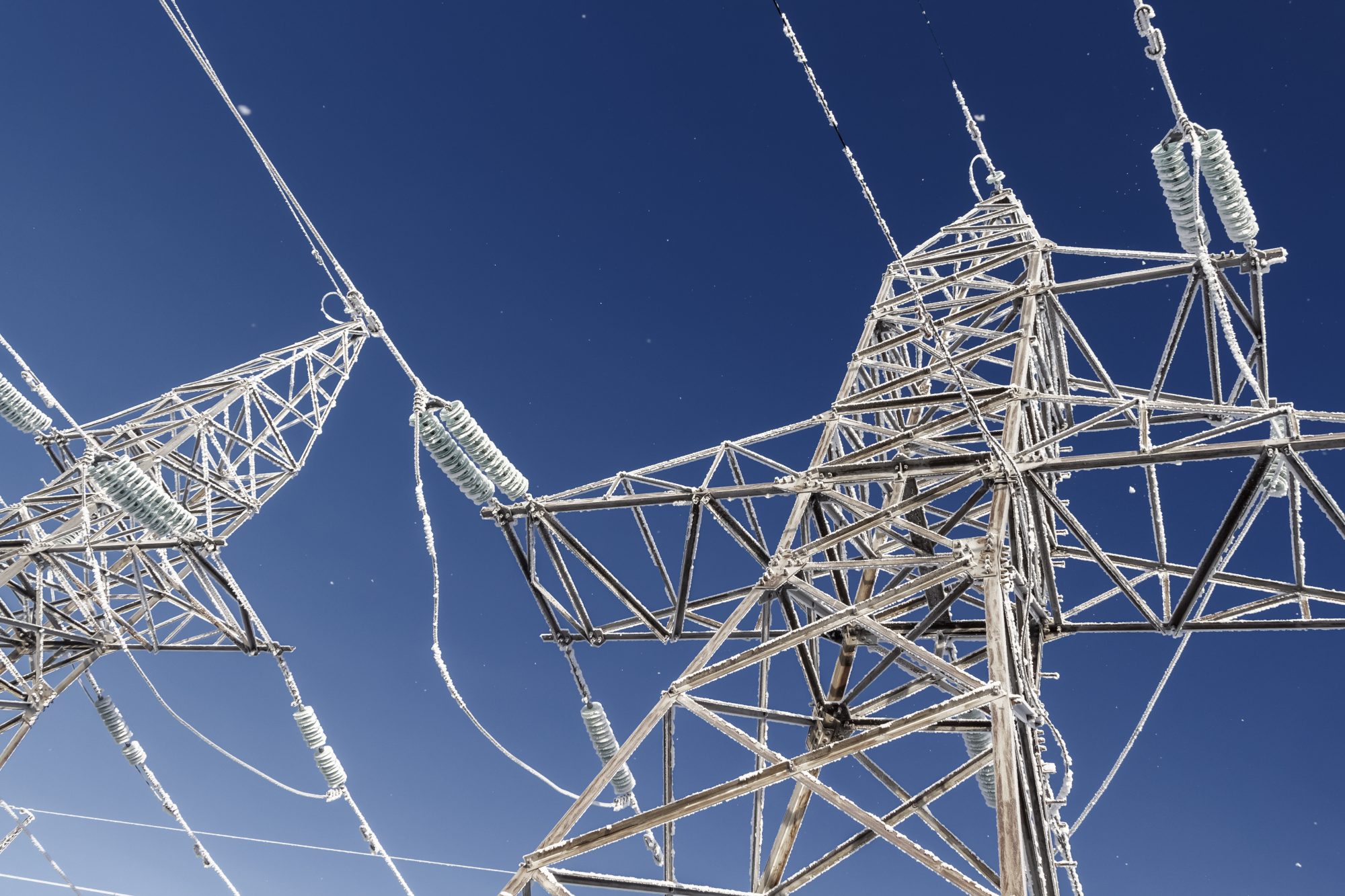
FERC & NERC Issue Joint Report on Freeze Reliability Failures
December 15, 2021
The in-depth report outlines twenty-eight recommendations to address freeze reliability failures, including operating practices and recommendations for NERC standards modifications surrounding generator winterization and gas-electric coordination.
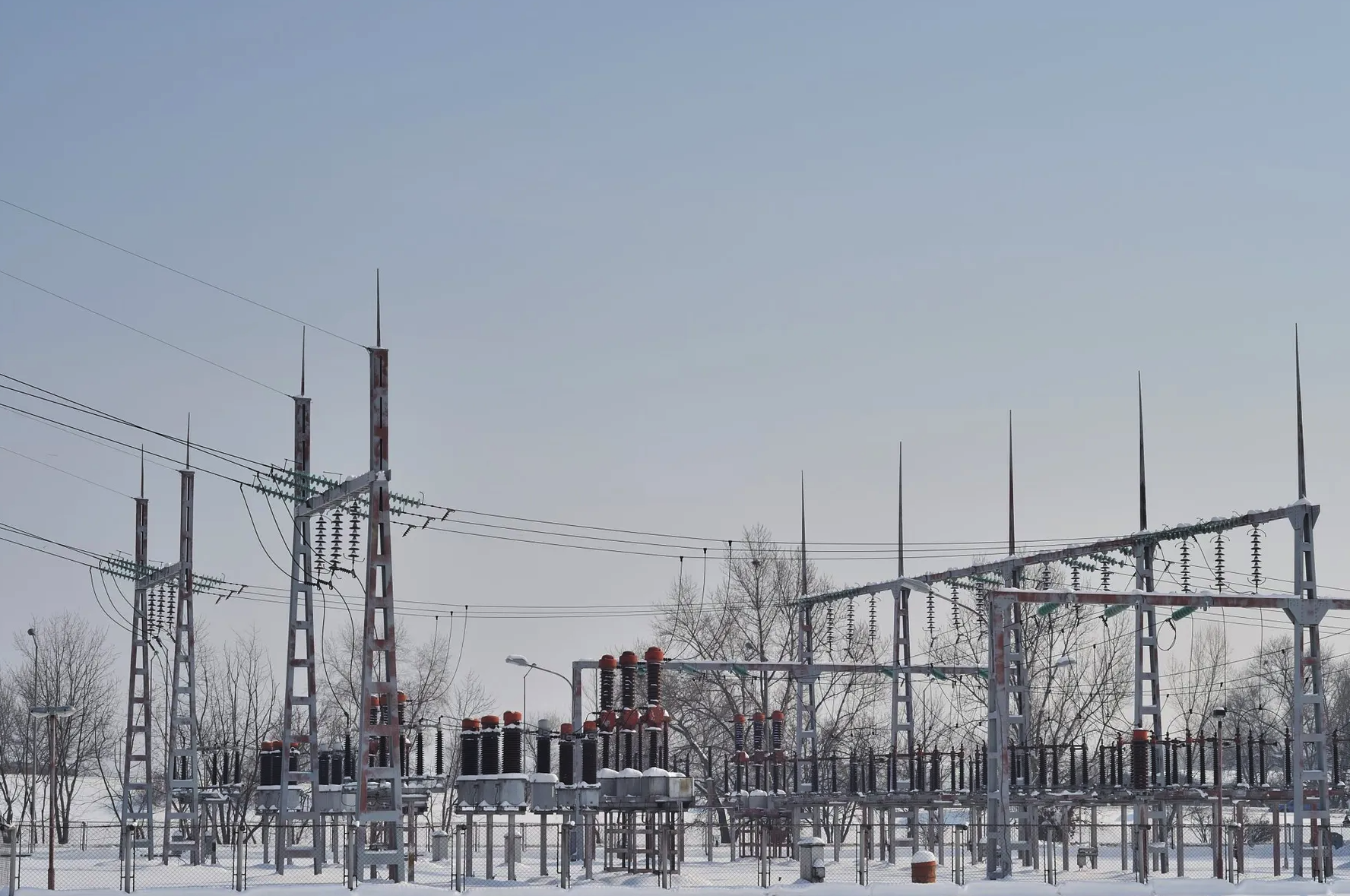
NERC Accelerates Additional Cold Weather Standards Changes
November 22, 2021
At its November 2021 meeting, NERC’s Board of Trustees took aggressive action to advance critical cold weather Reliability Standards. Most notably, the group approved the 2022-2024 Reliability Standards Development Plan, which prioritizes standards projects for the coming years including a resolution to include new cold weather operations, preparedness and coordination standards as high priority development projects.
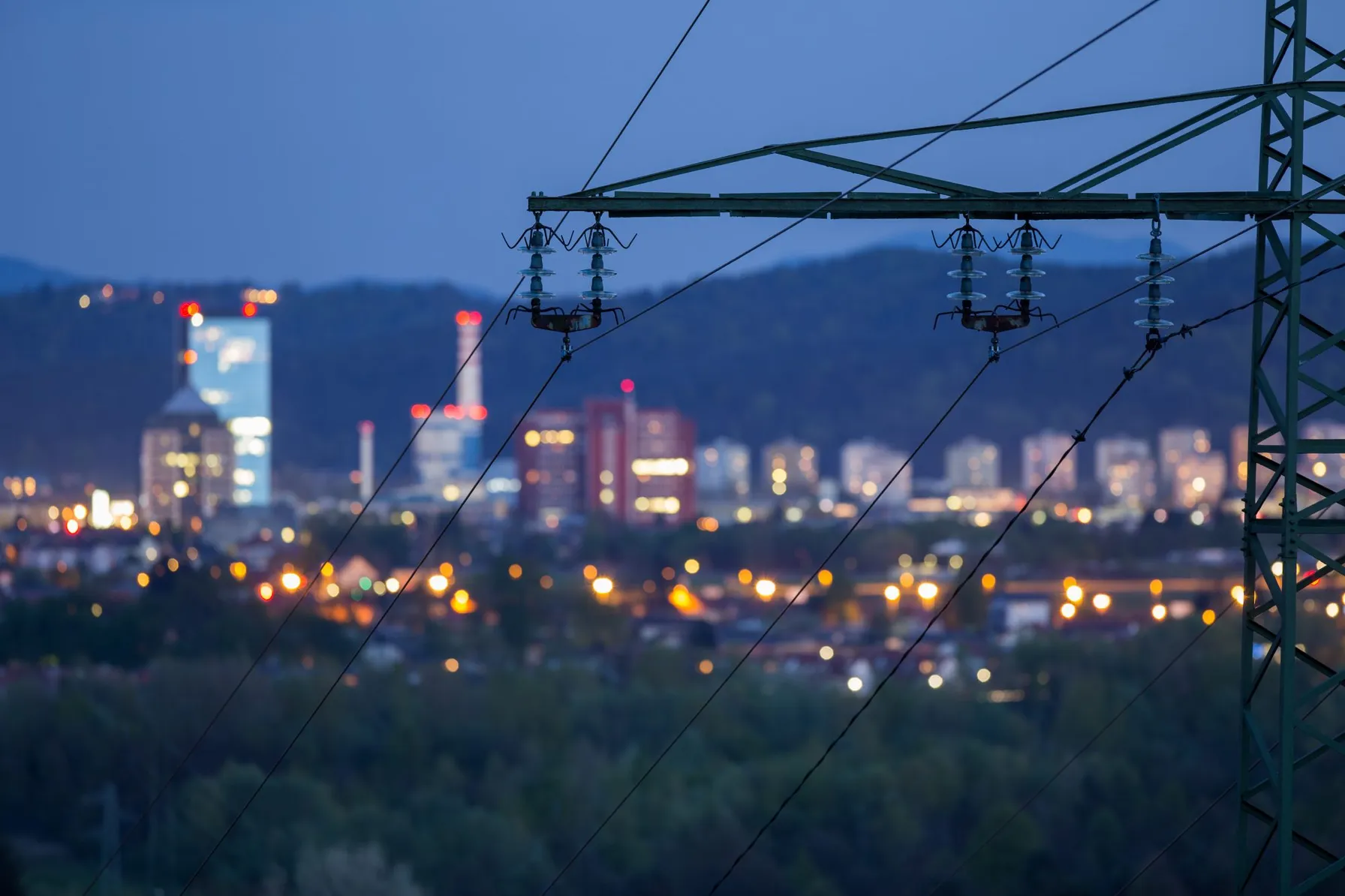
New Potential Compliance Standards Identified at FERC Technical Conference on Reliability
October 18, 2021
With a focus on the reliability impact of extreme weather and the shortcomings of current system planning approaches, both NERC and FERC conference participants opened the door to potential forthcoming compliance standard enhancements or changes.
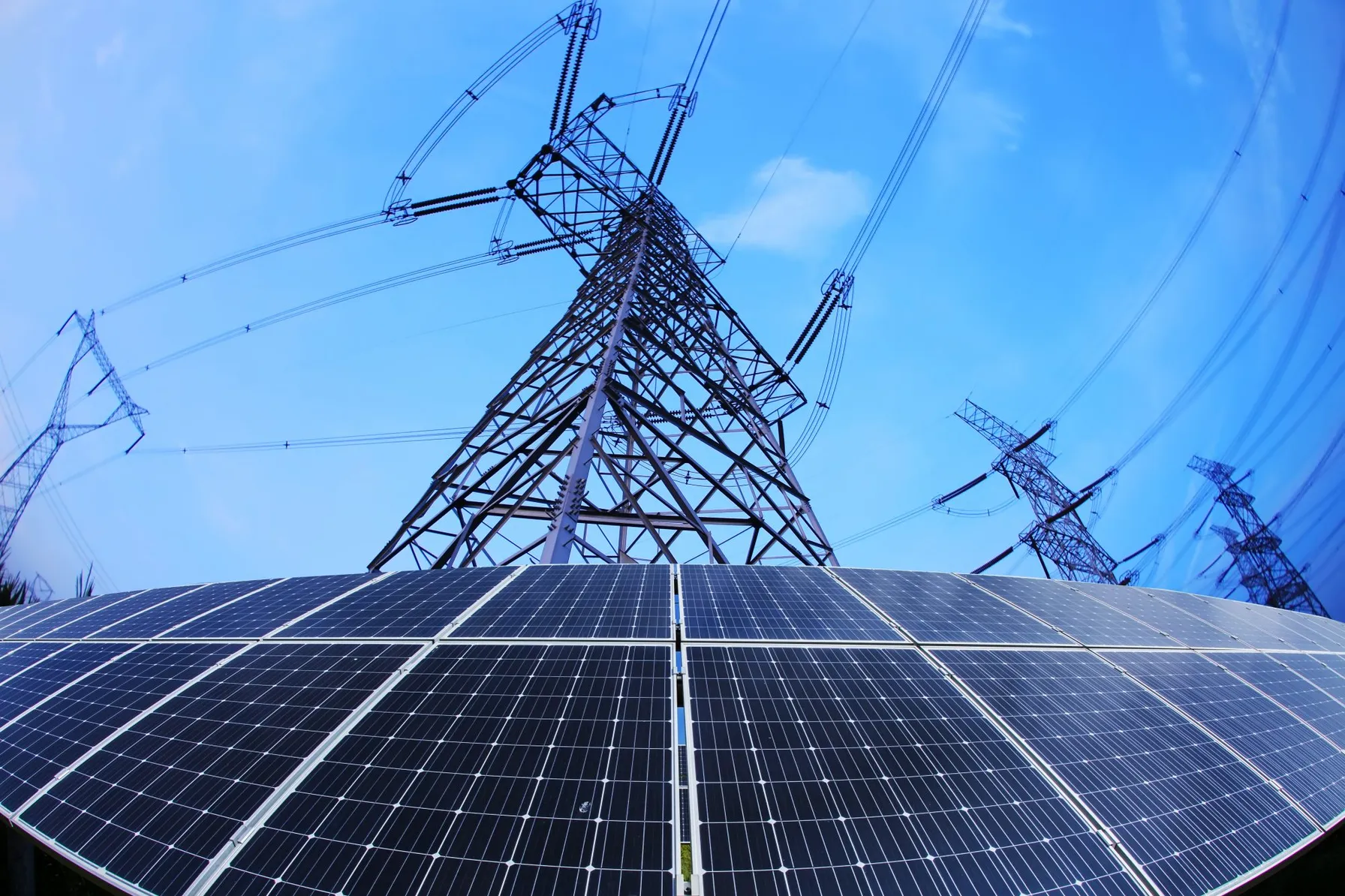
NERC Issues Odessa Texas Disturbance Report
September 29, 2021
While NERC has analyzed multiple similar events in California, this is the first disturbance involving a widespread reduction of PV resource power output observed in the Texas Interconnection.
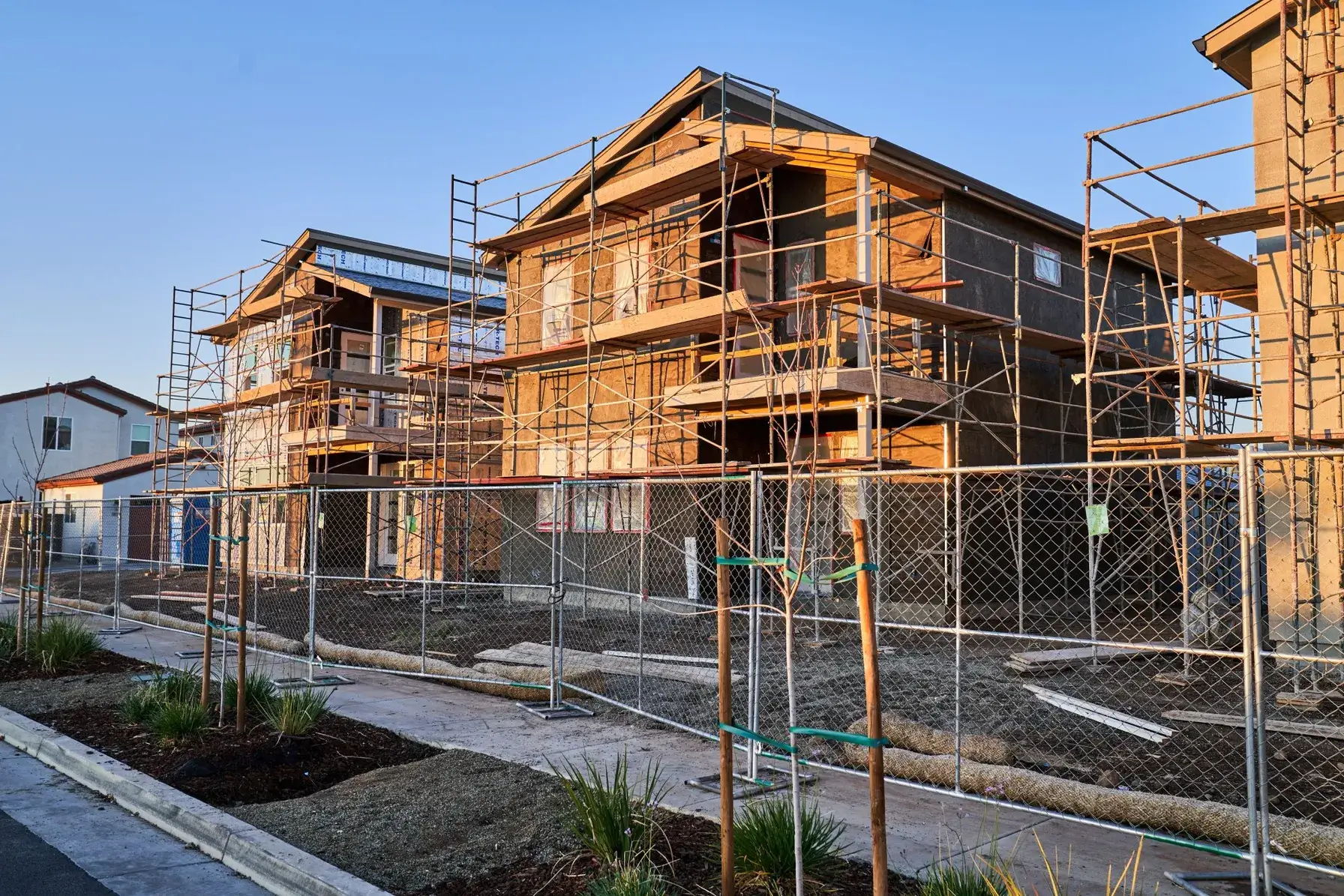
Pacific Gas and Electric Selects TRC as Program Implementer for New Construction Residential All-Electric and Mixed Fuel Programs
September 27, 2021
Pacific Gas and Electric Company (PG&E) formally announced TRC as the designated lead Program Implementer for the Statewide New Construction (SWNC) Residential All-Electric and Mixed Fuel Programs following a competitive solicitation process.
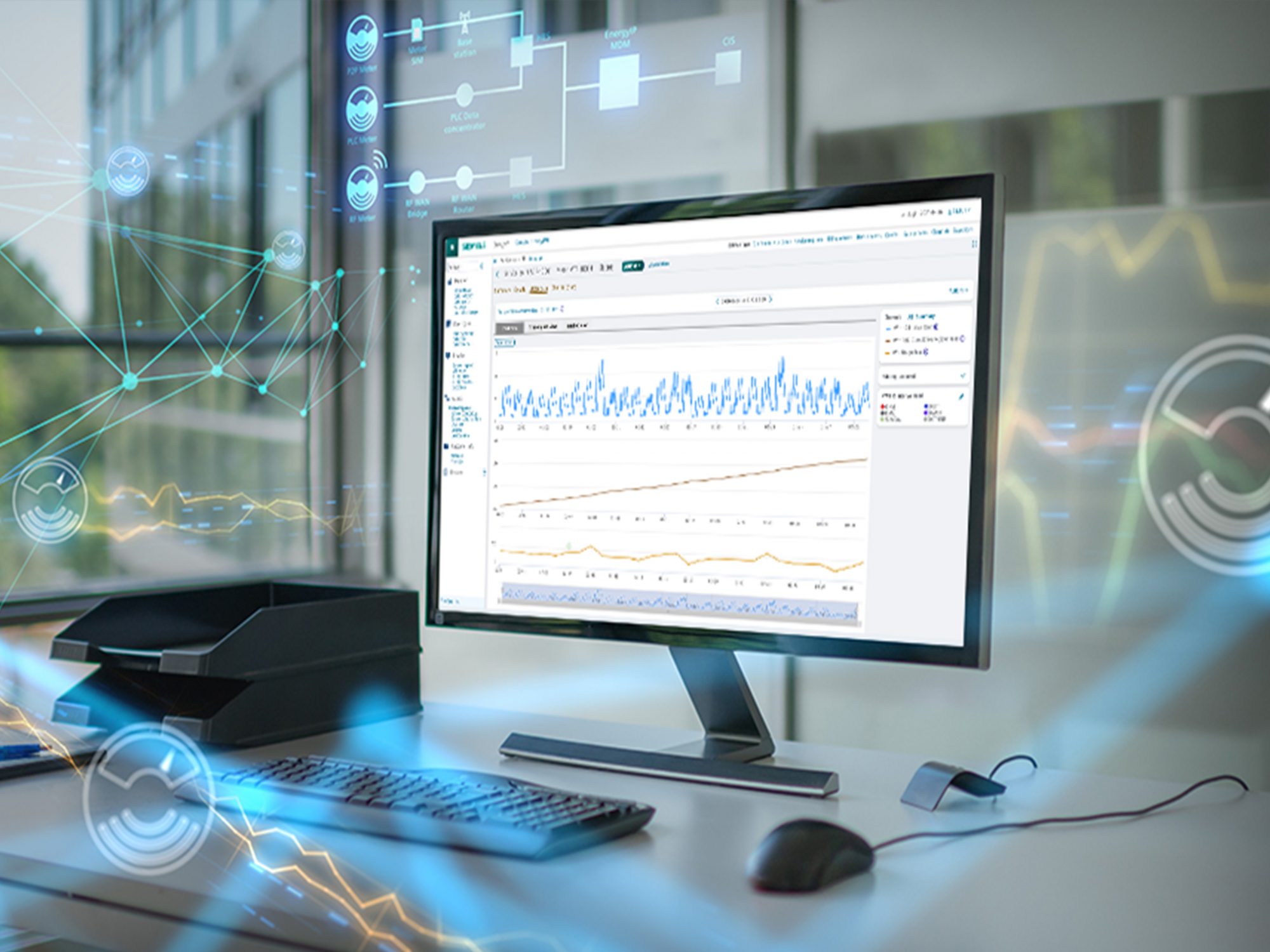
TRC Digital Selected by Snohomish County Public Utility District to Implement Siemens EnergyIP® Meter Data Management
September 15, 2021
Snohomish PUD selected TRC to implement, integrate and deliver their meter data management system (MDMS) on the Siemens EnergyIP® platform as a part of the utility’s Connect Up program.
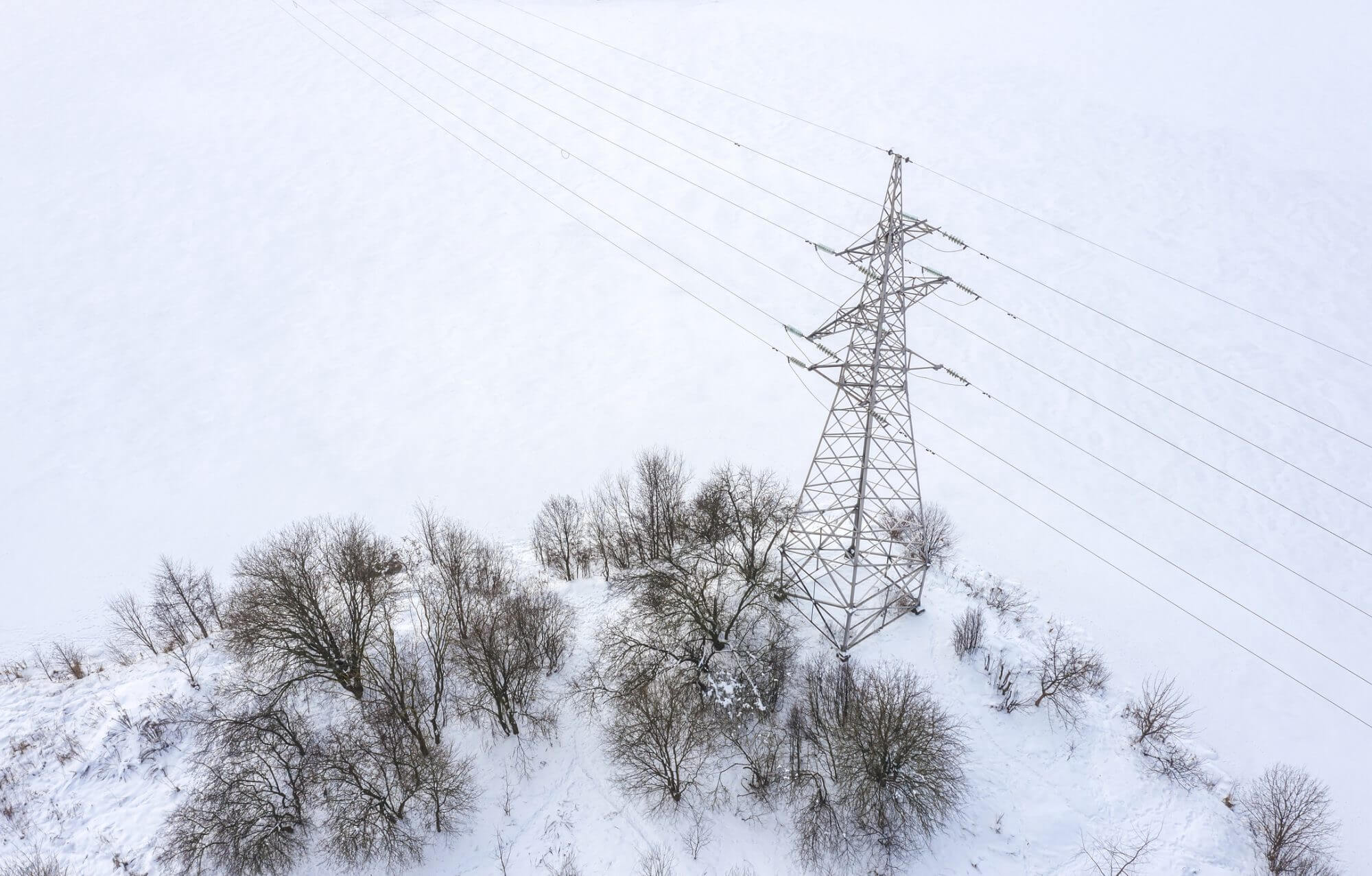
FERC Approves Modifications to NERC’s Cold Weather-Related Standards
September 7, 2021
The Federal Energy Regulatory Commission has approved changes to three mandatory NERC Reliability Standards that aim to better prepare the North American power system to withstand extreme cold weather events.
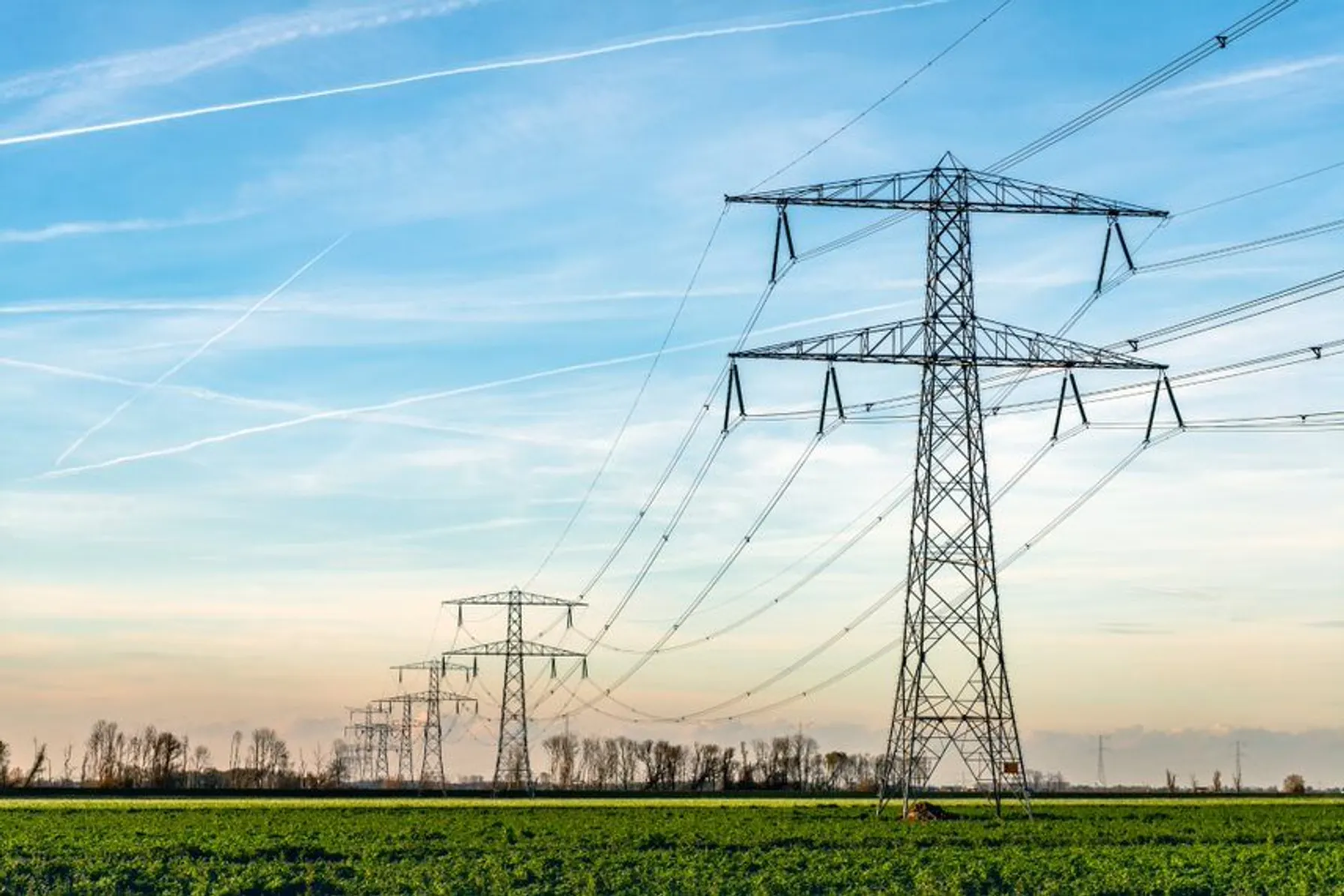
Electric Reliability Council of Texas Releases 60-Point Plan for Change
August 23, 2021
ERCOT’s recently released “Roadmap to Improving Grid Reliability” presents a plan for change in Texas that includes increasing electric power generation and purchasing significantly more power reserves.
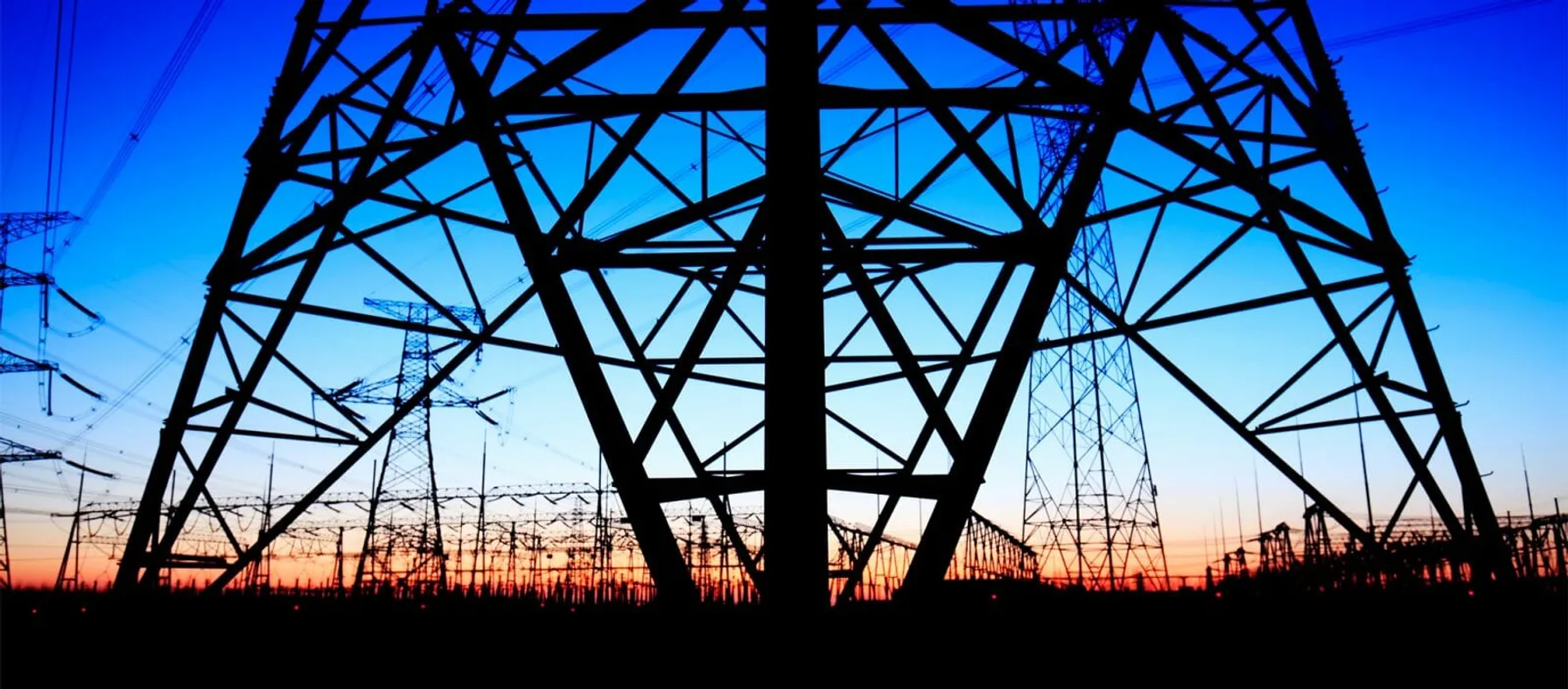
Prepare for Upcoming NERC Compliance Deadlines
August 20, 2021
With 2020 right around the corner, there are many new NERC standards and standards requirements set to go into effect in the areas of Critical Infrastructure Protection and Transmission Operations and Planning.

Oklahoma Gas & Electric Company uses AI to assess and repair distribution pole damage
August 4, 2021
As part of its grid enhancement program, OG&E will leverage collaborative AI-powered image recognition technology that enables engineers to complete distribution pole inspections with greater accuracy and helps to reduce manual review of images.

Reasons for IT/OT Modernization
August 1, 2021
Opposites attract, and information technology (IT) and operational technology (OT) are no exception. At one end of the digital grid sits IT as a business application, while OT exists at the other end of the digital grid as an asset-oriented application. For decades, IT and OT have been operating separately and are often physically isolated.

IT/OT Convergence Best Practices
August 1, 2021
A successful IT/OT convergence strategy involves identifying desired outcomes, managing the fragmentation of OT solutions, and developing common key performance indicators (KPIs) for both IT and OT teams. This approach helps in optimizing resources, driving effective collaboration, and ensuring a smooth transition towards a unified IT/OT environment.
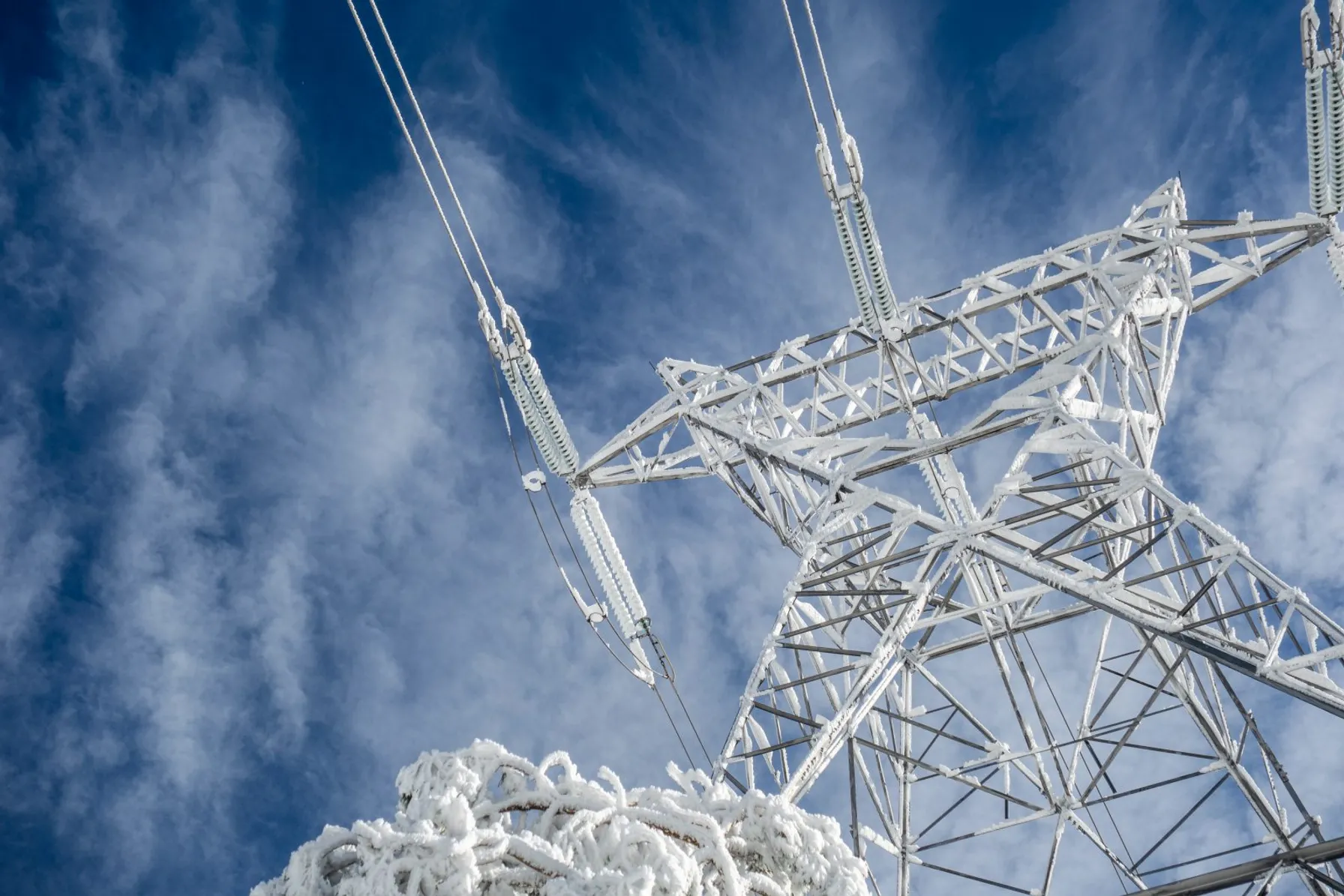
Developments in Texas and Nationally Mandate Extreme Weather Responses to Protect Reliability
July 23, 2021
Two recent actions will change the current system planning, investment needs and operating procedures for electric utilities. New infrastructure investments and more robust compliance programs will be needed.

TRC Acquires Montreal’s Quatric, Expanding Digital Capabilities for Utilities
June 16, 2021
Today, TRC announced the expansion of its digital capabilities with the acquisition of Quatric, a Montreal, QC and Quincy, MA-based firm that provides engineering services and technology solutions to electric and gas utilities.
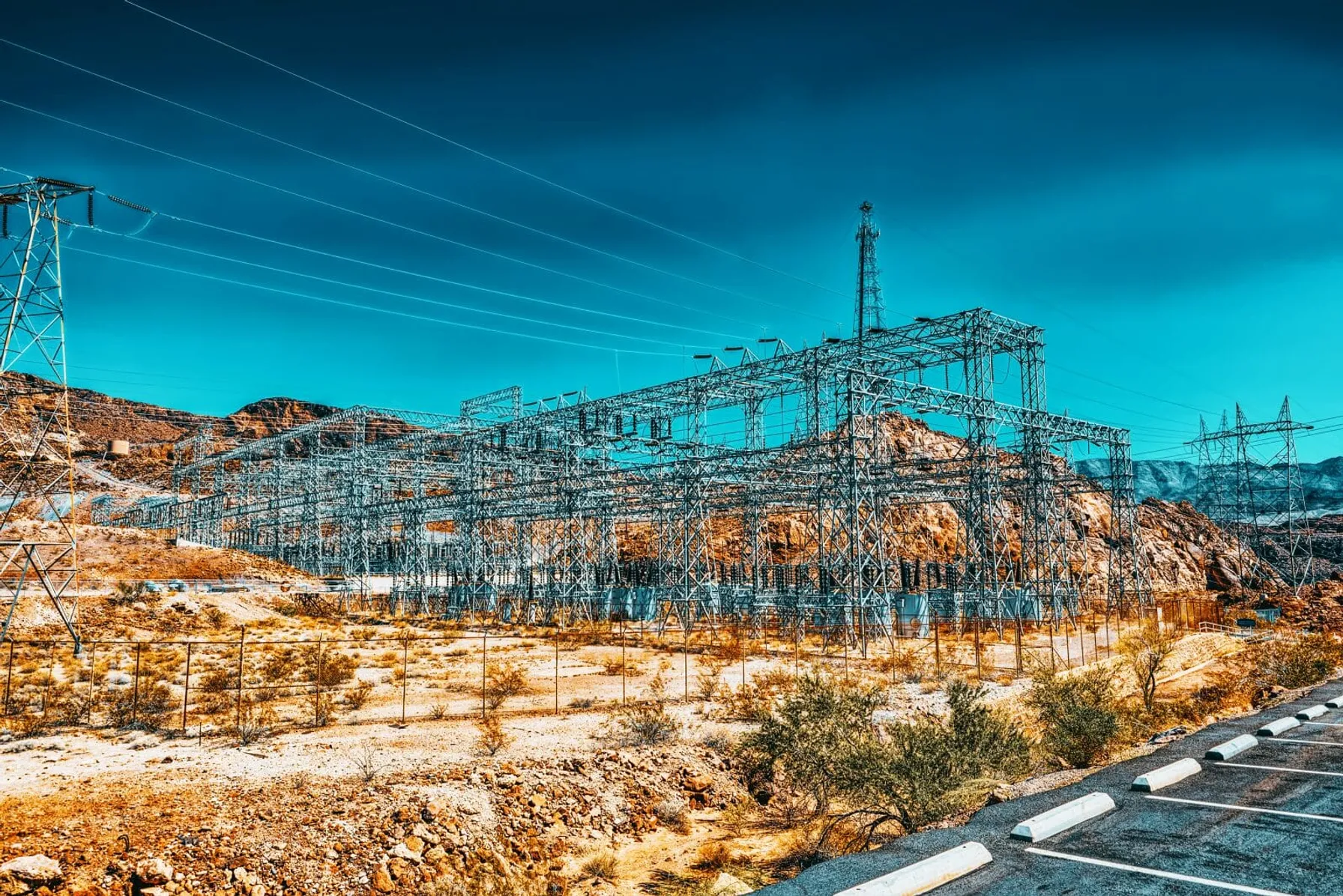
NERC’s FAC-008 Guidance on Facility Ratings
May 24, 2021
FAC-008 is one of the most data-intensive standards in the NERC regulatory framework. Compliance has been difficult for many utilities. Recently, FERC made public it’s intent to address serious allegations of facility ratings violations, including a lack of rigor by one utility.
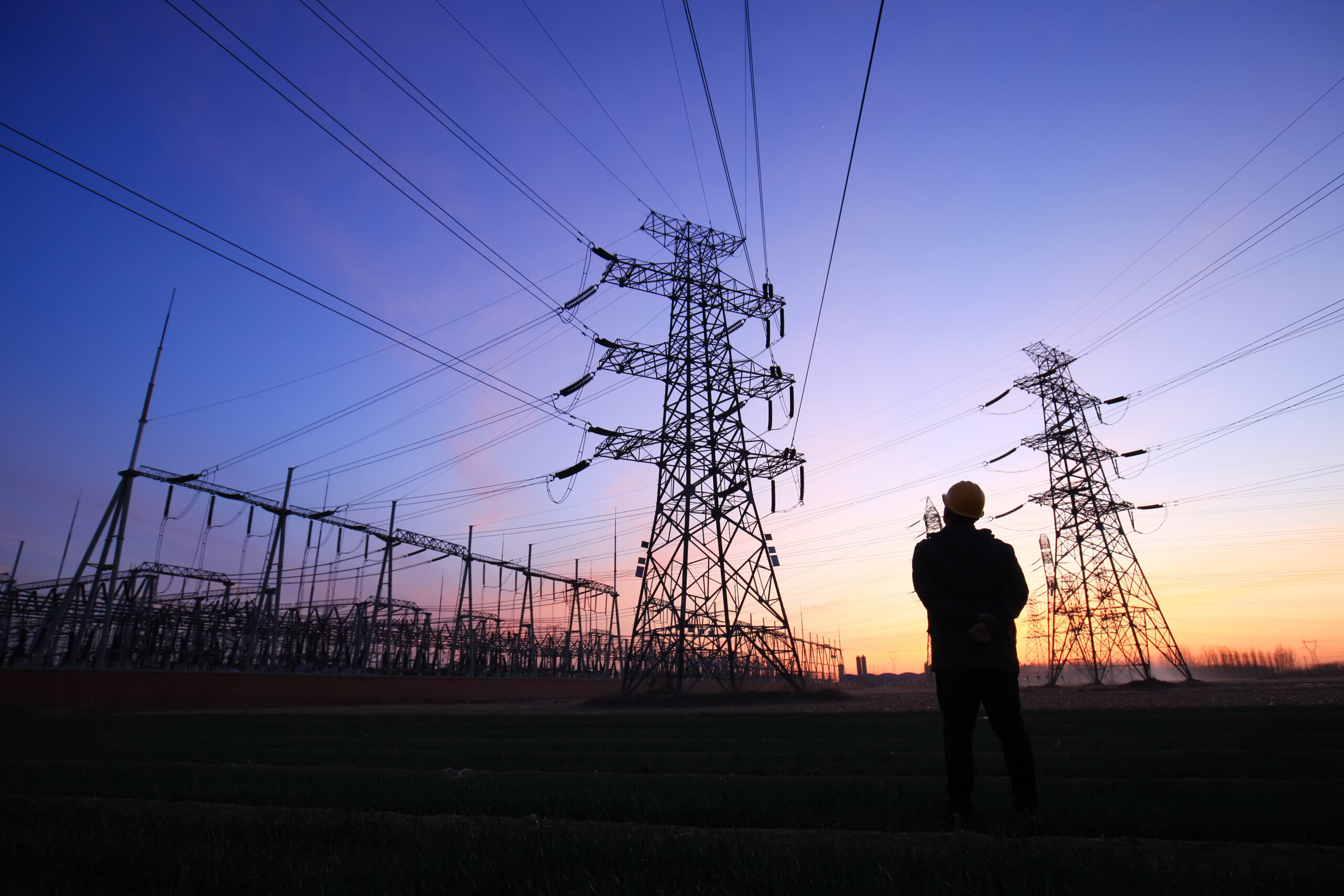
What’s Next? Preparing for Utility Network Migration
May 12, 2021
In preparing for Utility Network Migration, taking an intermediate approach will allow you to resolve some key points. Utility Network Migration will run smoother if you build a “sandbox environment” and begin to 1) prioritize features 2) explore licensing options and 3) practice moving data.

5 Persistent Questions About ArcGIS on HANA
April 9, 2021
While ArcGIS on HANA implementation patterns are emerging rapidly, we continue to hear 5 persistent questions about how implementing ArcGIS on HANA would benefit an organization. Let’s walk through these 5 questions, I’ll show you how we help you get started with ArcGIS on HANA. Then you may realize the benefits this solution promises.
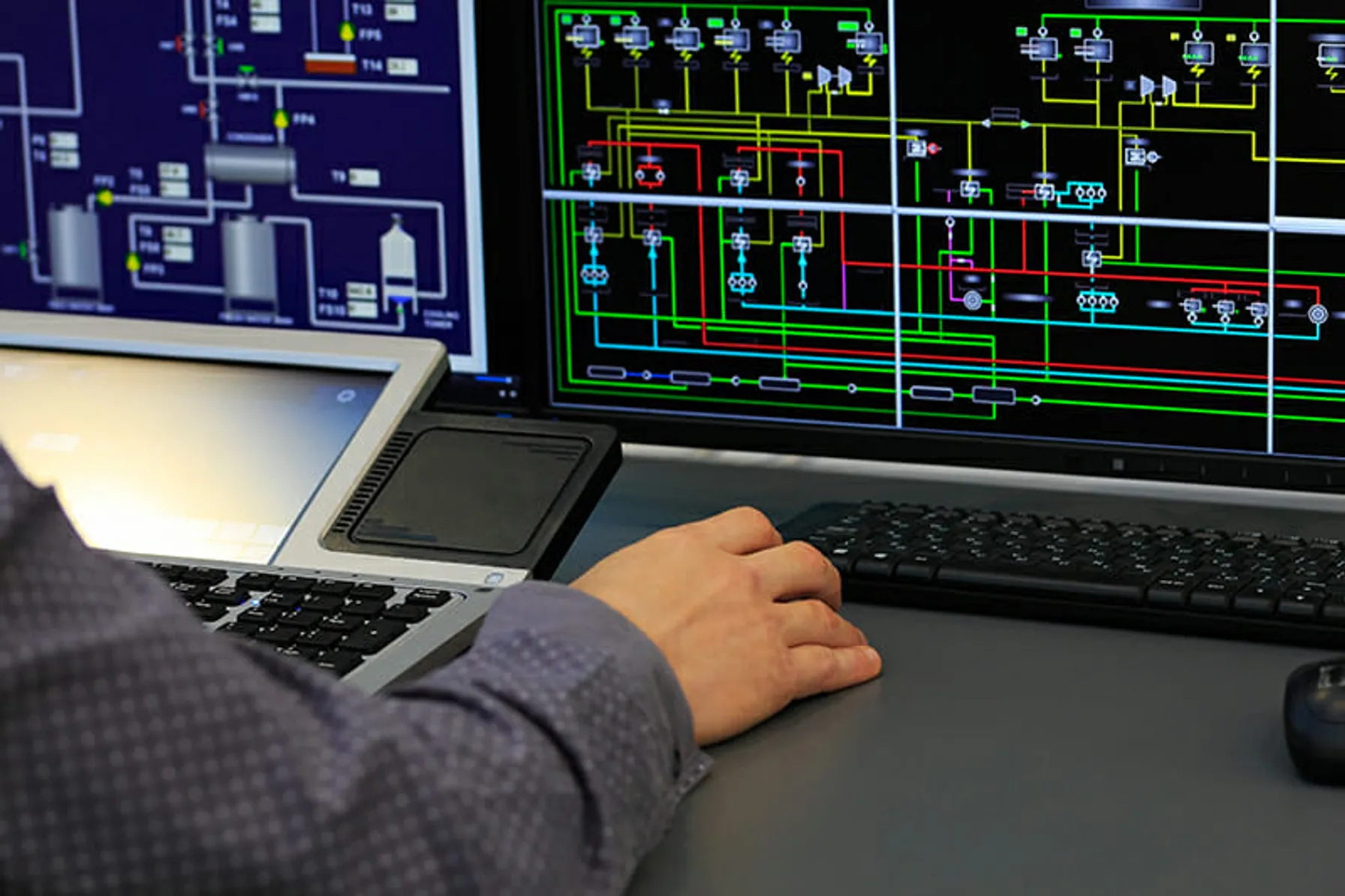
NERC Proposes Revisions to CIP-008
March 27, 2021
NERC’s CIP-008 standard aims to mitigate reliability risks resulting from a Cyber Security Incident by specifying incident response requirements. Newly proposed revisions would augment mandatory reporting to include incidents that compromise, or attempt to compromise, a utility’s Electronic Security Perimeter (ESP) or associated Electronic Access Control or Monitoring Systems (EACMS).
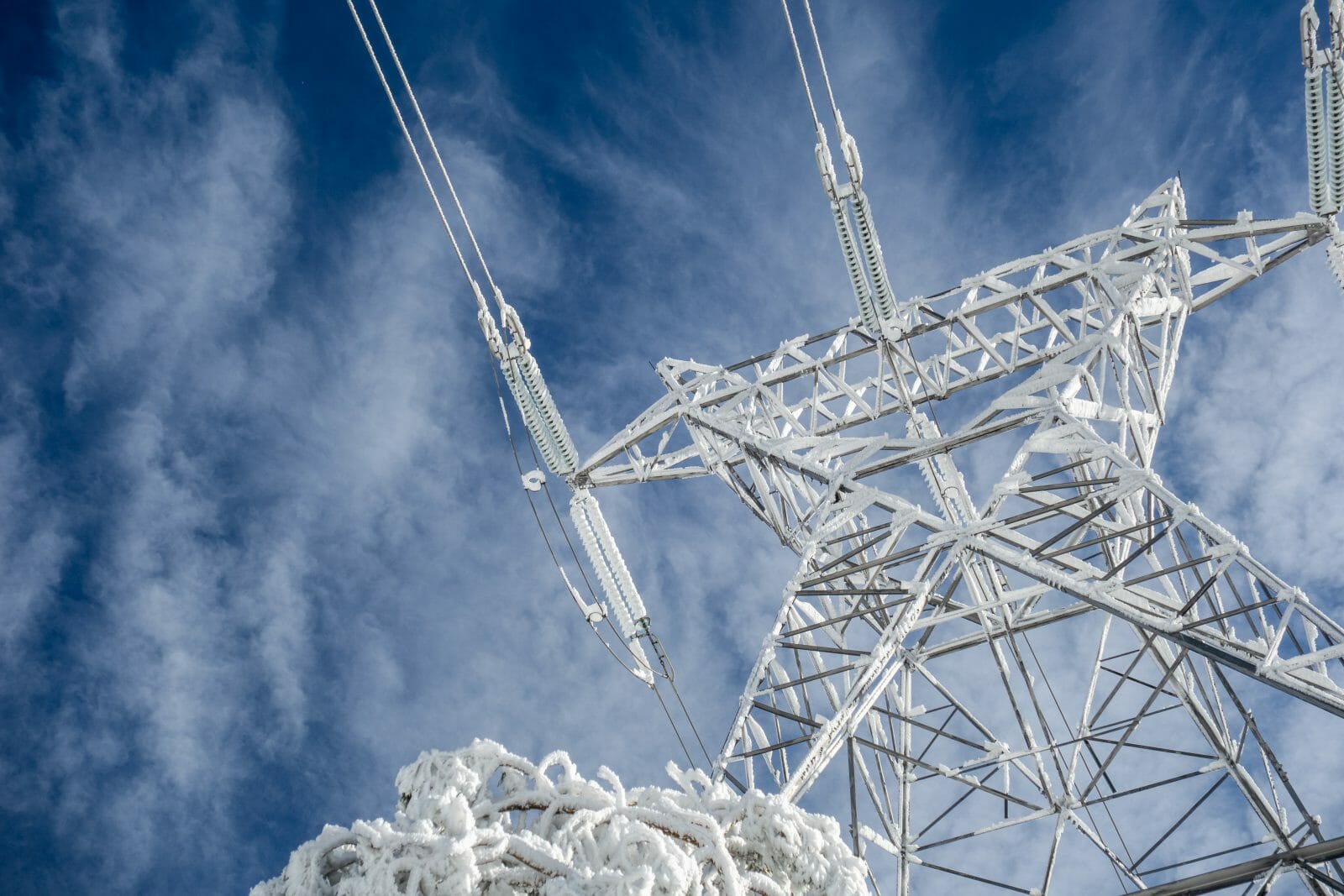
Cold Weather Reliability Preparedness and Hardening
March 22, 2021
The latest weather impacts to power reliability have accelerated the need for mandatory regulatory compliance changes.

TRC Companies Inc. Acquires EMI Consulting
January 27, 2021
Today TRC Companies (“TRC”), announces the expansion of its advanced energy capabilities with the acquisition of EMI Consulting (“EMI”), a Seattle based firm that consults on the strategic development of clean energy solutions including energy efficiency, demand management, decarbonization and customer engagement.
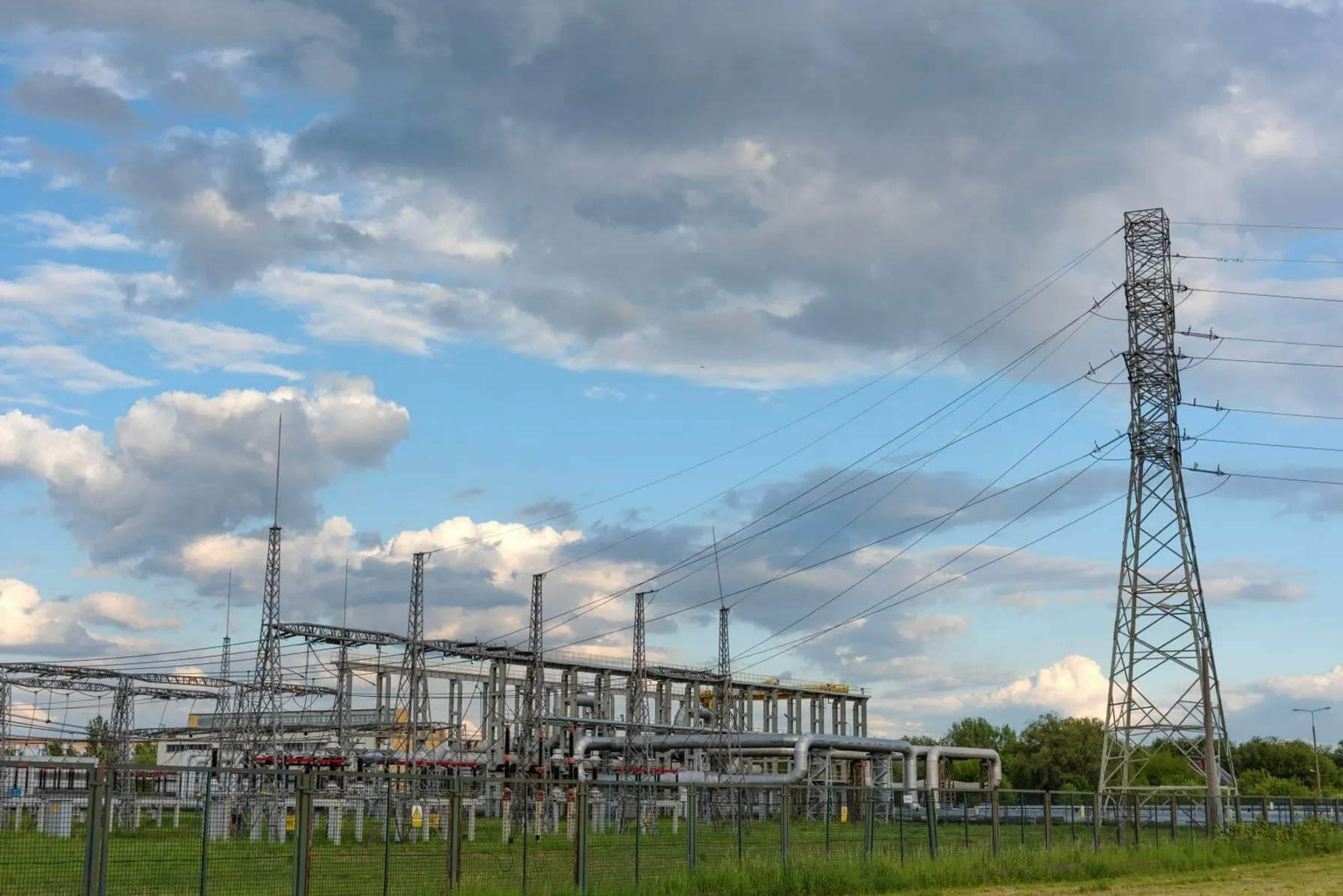
FERC Issues Annual Report on Critical Infrastructure Protection (CIP) Reliability Audits
November 17, 2020
In its 2020 Report on CIP Reliability Audits, the Federal Energy Regulatory Commission found that most of the cybersecurity protection processes and procedures adopted by utilities met the mandatory CIP requirements for protecting the Bulk Electric System. However, there are areas for improvement.

TRC Digital partners with Dominion Energy to evolve its distributed energy resource strategy
September 22, 2020
Dominion Energy, one of the nation’s largest producers and transporters of energy, has partnered with TRC Digital to evaluate, implement and integrate technology to further the utility’s distributed energy goals. TRC Digital will facilitate Dominion Energy’s strategy development and technology execution, allowing Dominion Energy and its customers to accelerate the shift to distributed energy resources (DER) and net carbon reduction.
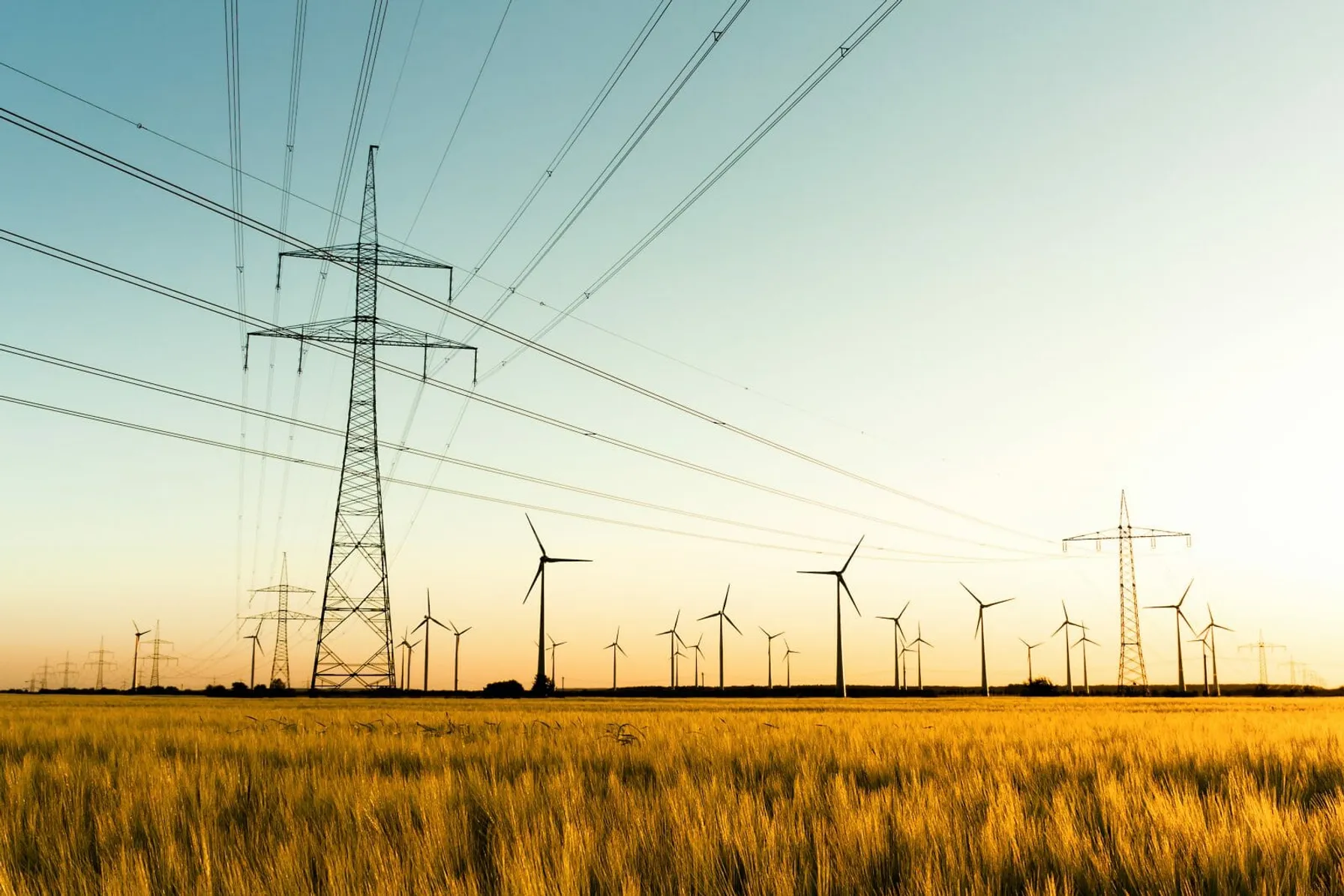
NERC Issues 2020 State of Reliability Report
September 22, 2020
The Report identifies areas of ongoing concern including generation reserve margins and the reliability risk from shifting the resource mix toward renewables.
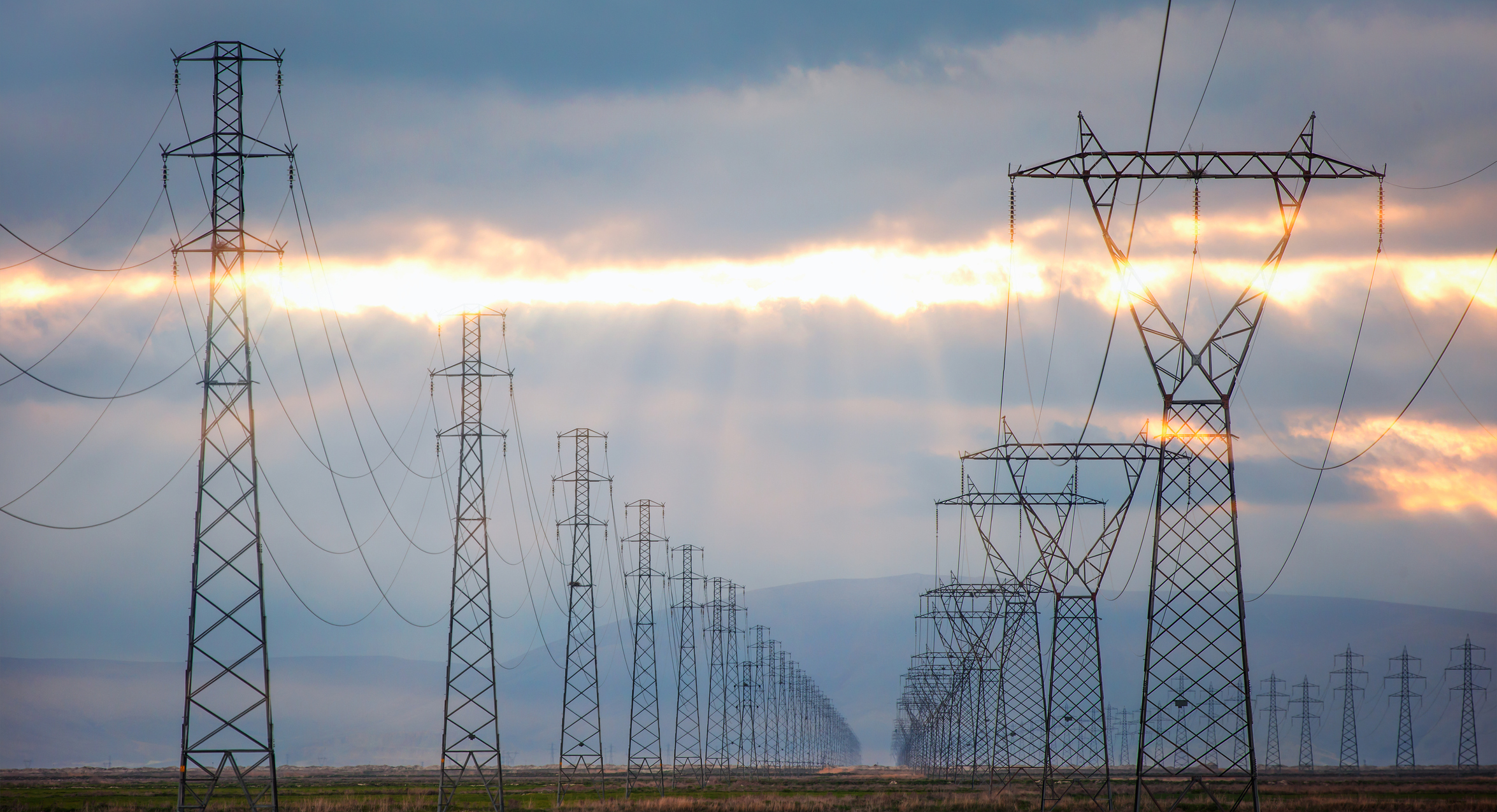
TRC Digital and Reactive help utilities measure inertia for a more resilient grid
September 21, 2020
Together, TRC and Reactive combine TRC’s industry-leading power engineering expertise with Reactive’s machine learning software to provide utility teams with high-resolution frequency monitoring and automatic event analysis.
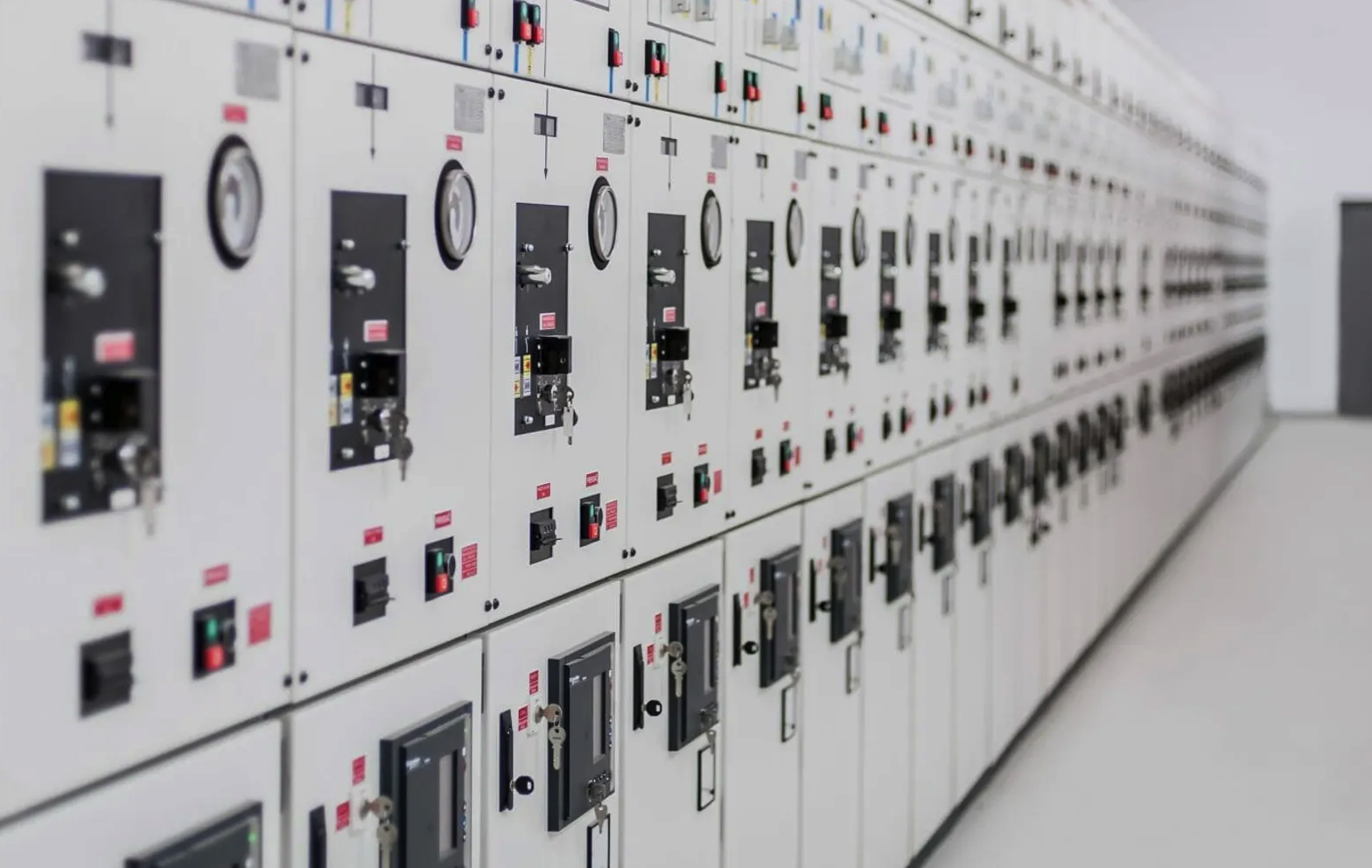
NERC Issues Lessons Learned on Misoperations Due to Mixing Relay Technologies
August 13, 2020
On July 10, 2020 NERC released new Lessons Learned guidance to address situations where multiple composite protection systems have misoperated as a result of mixing protective relay technologies at the remote terminals of directional comparison blocking (DCB) schemes. This technical information will help utilities improve the reliability of the Bulk Power System.
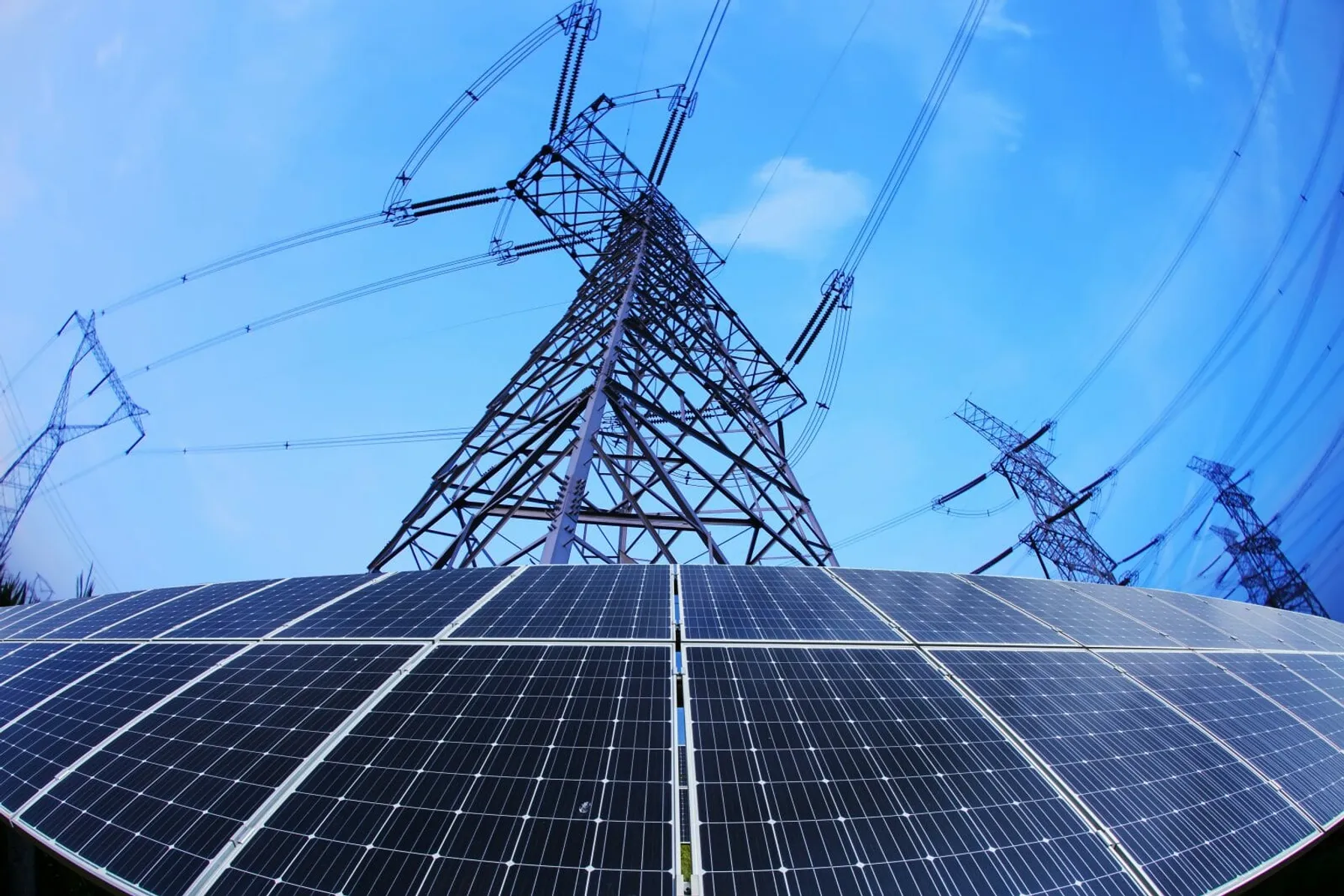
NERC Reliability Standard PRC-024-3 Approved: Frequency and Voltage Protection Settings for Generating Resources
July 28, 2020
On July 9, 2020 NERC standard PRC-024-3 was approved, paving the way for improved protection systems in support of keeping generating resources connected during defined frequency and voltage excursions.

Summary of NERC CIP Standards Updates
June 29, 2020
FERC has released a notice of inquiry seeking comments on potential enhancements to NERC’s Critical Infrastructure Protection (CIP) Reliability Standards.

TRC Digital Partners with Treverity to Put Utility Engineers at the Center of Their Data
June 26, 2020
As part of TRC’s LineHub solution, Treverity helps transmission engineers get a holistic view of the grid through powerful digital data visualization and a customer-centric user interface.

Strategic Electrification
February 4, 2020
As we look to spur strategic electrification across the US, it will be up energy providers and solution implementers to continue sharing ideas, insights and lessons learned

NERC Reliability Report Prioritizes Power System Security Risks for Action
January 2, 2020
NERC’s 2019 ERO Reliability Risk Priorities Report identified and prioritized the major risks facing the utility industry with a particular focus on security issues.

TRC Expands Presence in Power Market with Acquisition of Ohio-based IJUS
October 1, 2018
LOWELL, Mass. – TRC, a leading provider of end-to-end engineering, consulting and construction management solutions fueled by innovative technology, announced today it has acquired IJUS, a top power/utility engineering firm based in Gahanna, Ohio. Terms of the deal were not disclosed.
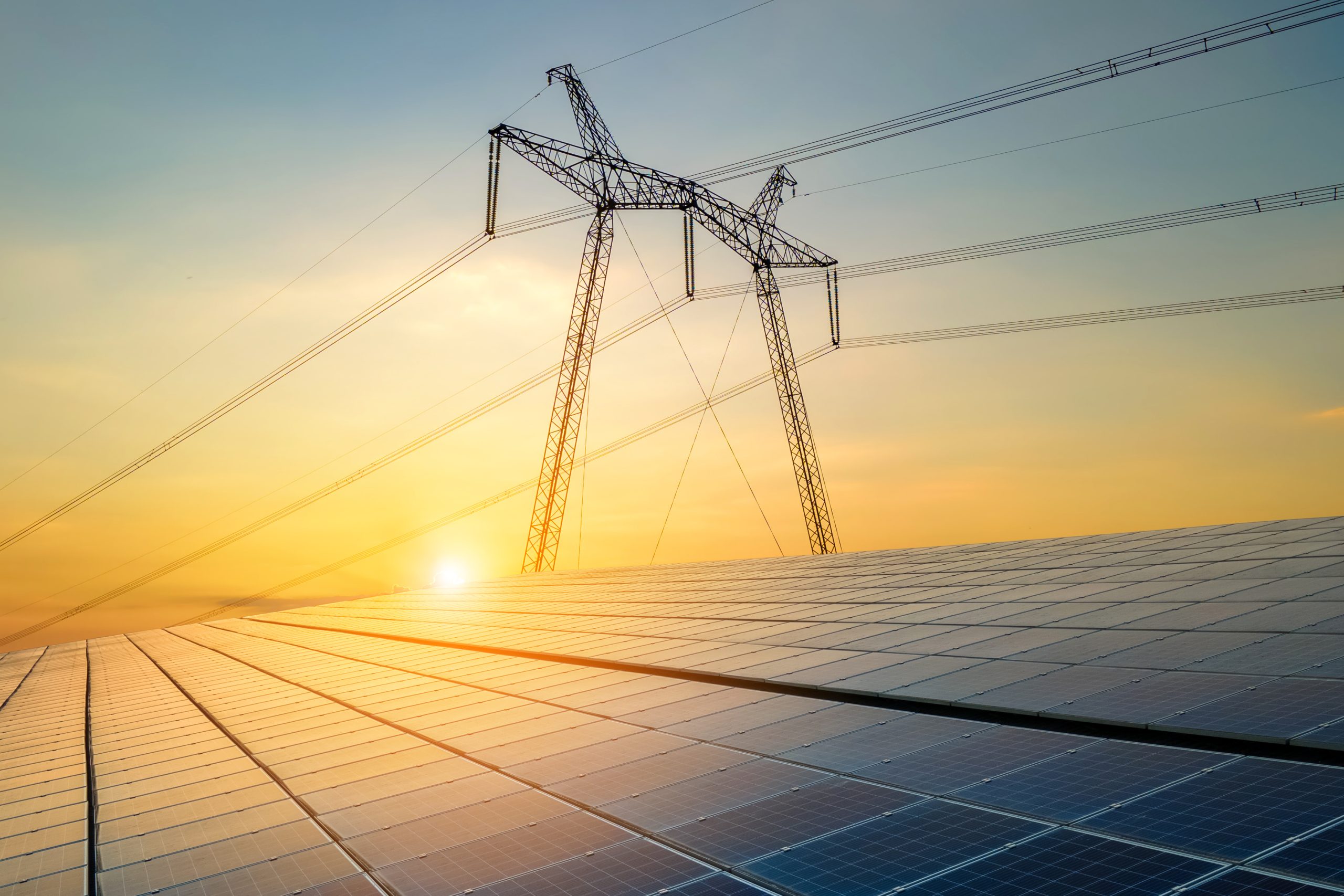
NERC Proposes Compliance Monitoring and Enforcement Plan for 2019
September 26, 2018
This month, NERC released the first draft of its 2019 Compliance Monitoring and Enforcement Plan (CMEP) which identifies power delivery system risks and outlines compliance audit requirements for next year. The risk elements outlined in the plan include significant differences from previous years, as shown in the table below. Each NERC region must consider these risks as they develop their monitoring and audit scopes for utilities. Utilities should be prepared to be audited and implement any necessary compliance initiatives in these areas.
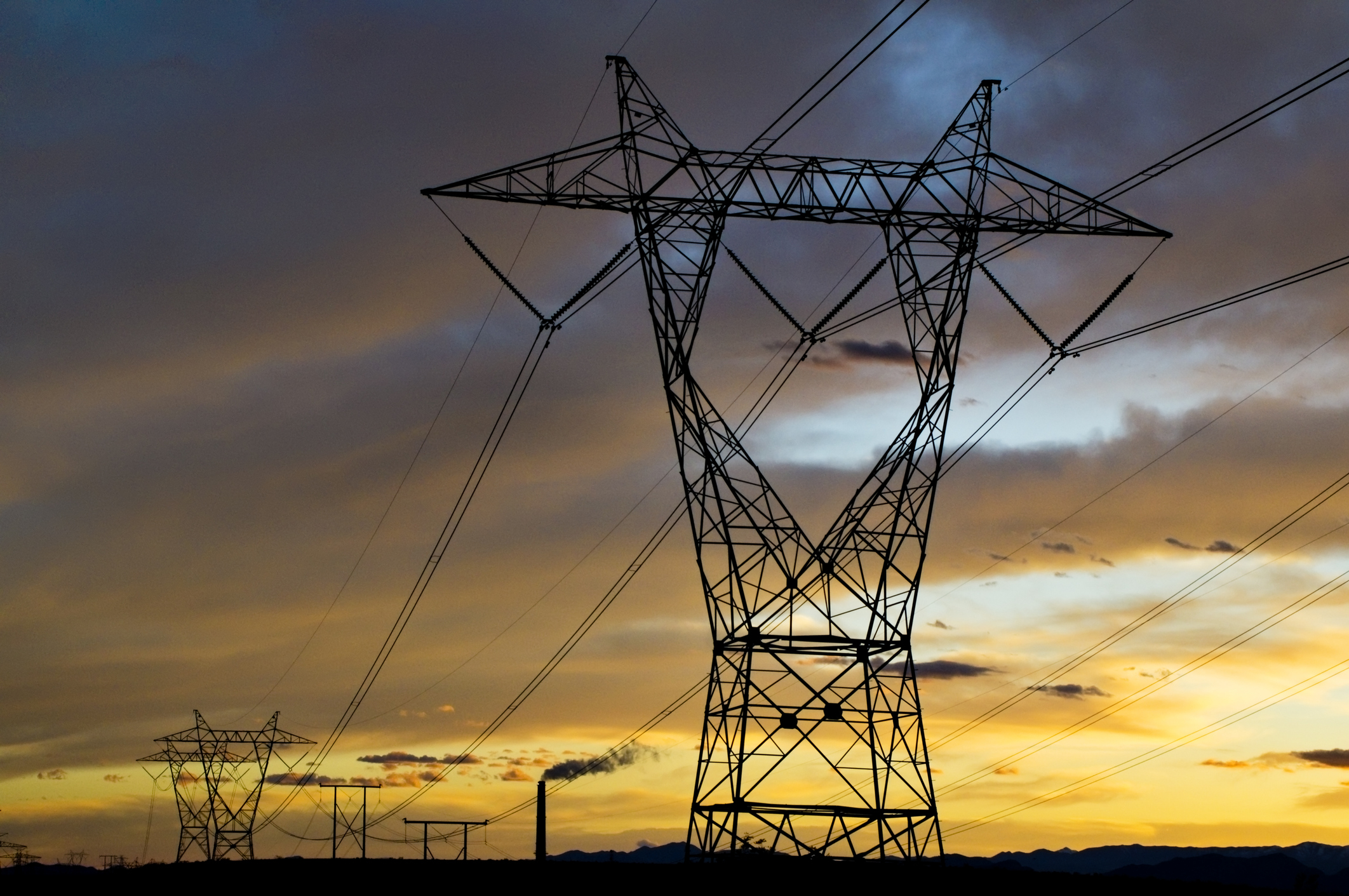
NERC Standard Extends Maintenance Program Obligations to Generators
February 3, 2014
The approval of NERC Standard PRC-005-2 extends protection system maintenance obligations to Generators and crates one comprehensive standard establishing minimum maintenance activities and maximum time intervals for protection systems and load shedding equipment affecting the bulk electric system.

The Transformative Benefits of 3D Facility Mapping for Utilities
June 26, 2025
Discover how modern 3D facility mapping empowers utilities to modernize infrastructure, improve asset management, and enable remote workflows with accurate digital twins, delivering cost savings and operational efficiency.

Why Utilities Need a Comprehensive Data Management Strategy
June 17, 2025
Though traditionally late adopters, most utilities today are evaluating, if not implementing, digital technologies.

Exceed Compliance Demands and Improve Leak Survey & Management with Mobile Asset Mapping
April 30, 2025
Leak detection and management is one of the most critical functions for utility companies managing gas infrastructure. As regulatory pressure mounts and public expectations shift, utility operators face a new era where legacy leak survey workflows are struggling to keep up

Grid Resiliency: Perspectives Across the Power Grid
April 16, 2025
In today’s changing energy landscape, grid resiliency is a top priority for all power system owners and operators. The ability to absorb disruptions and maintain power is crucial in an increasingly unpredictable world.

NFPA Establishes Consolidated Standard for Combustible Dust
January 23, 2025
NFPA 660 will make it easier for all industries to manage dust related hazards making for safer work environments.

General Permit (GP) for CII Stormwater Discharges Proposed for the Charles, Mystic and Neponset River Watersheds
January 8, 2025
On November 1, 2024, FERC Commissioners led a technical conference regarding co-locating large loads at generating facilities.

Ozone Nonattainment Areas in Midwest Reclassified to Serious
January 3, 2025
On Tuesday, December 17th, the United States Environmental Protection Agency (USEPA) issued a final rule reclassifying several ozone nonattainment areas as “Serious” nonattainment for the 2015 ozone national ambient air quality standard.

Deadline Imminent for New Texas Annual Permit Reporting Requirements
December 19, 2024
In 2023, the Texas State Legislature approved Senate Bill 1397 and House Bill 1505, which require that “A person who holds a temporary permit or permit with an indefinite term shall report to the commission annually whether the activity subject to the permit is ongoing” and that the person “shall first report to the Texas Commission on Environmental Quality the status of the permitted activity not later than December 31, 2024”. The Texas Water Code has been amended to include this requirement in Sec. 5.587.

FERC Reviews Large Load Integration at Technical Conference
December 6, 2024
On November 1, 2024, FERC Commissioners led a technical conference regarding co-locating large loads at generating facilities.

What Is Grid Modernization?
December 2, 2024
Additional Restrictions for Major Modifications Other restrictions will come into play for new Major Sources, those that have a potential to emit 50 tons per year or more of VOC or NOx and “major modifications” that result in a VOC emission increase that exceeds 25 tons per year and also exceeds 25 tons per year when aggregated with all creditable increases and decreases in emissions of VOC from the source over any period of five consecutive years, which includes the calendar year in which the increase will occur. For sources that are major due to NOx emissions, a NOx emission increase that exceeds 25 tons per year and exceeds 25 tons per year when aggregated with creditable increases and decreases over the five-year period is also deemed to be a major modification. If a major modification occurs, the source is required to utilize the Lowest Achievable Emission Rate (or LAER) for the pollutant(s) that exceed 25 tons per year aggregated over the five-year period. However, Best Available Control Technology (BACT) can be substituted for LAER under certain conditions. Additionally, emissions must be offset as a means to advancing the area toward attaining the ozone standard. These same requirements will apply to newly constructed Major Sources. Upcoming Deadlines With these actions, the impacted areas will now have until August 3, 2027, to reach attainment. If they do not, USEPA is again obligated to reclassify ongoing nonattainment status to Severe nonattainment, reducing the Major Source threshold in half to just 25 tons per year. In the meantime, the states will be required to revise State Implementation Plans to demonstrate that attainment will be achieved by this deadline. A unique consideration in Wisconsin affects sources subject to a Registration Operation Permit. These permits establish annual emission limits as a percentage of the Major Source threshold (25, 50, or 80 percent depending on the Permit). For these sources, the annual emission limit for VOC and NOx will automatically be cut in half on January 16, 2025. Sources in the ozone nonattainment areas that hold these permits should evaluate whether the Registration Permit provides a long-term option given that the annual emission limits have been cut in half now and may again be cut in half in three years’ time. Next Steps: TRC Can Help TRC is available to support your air compliance and permitting needs by offering expert in-house resources to perform: Ambient Monitor Siting Evaluation Ambient Monitor Deployment, Operation and Maintenance For more information, contact Melanie Klamar, Robert VandenMeiracker and Mike Zebell.
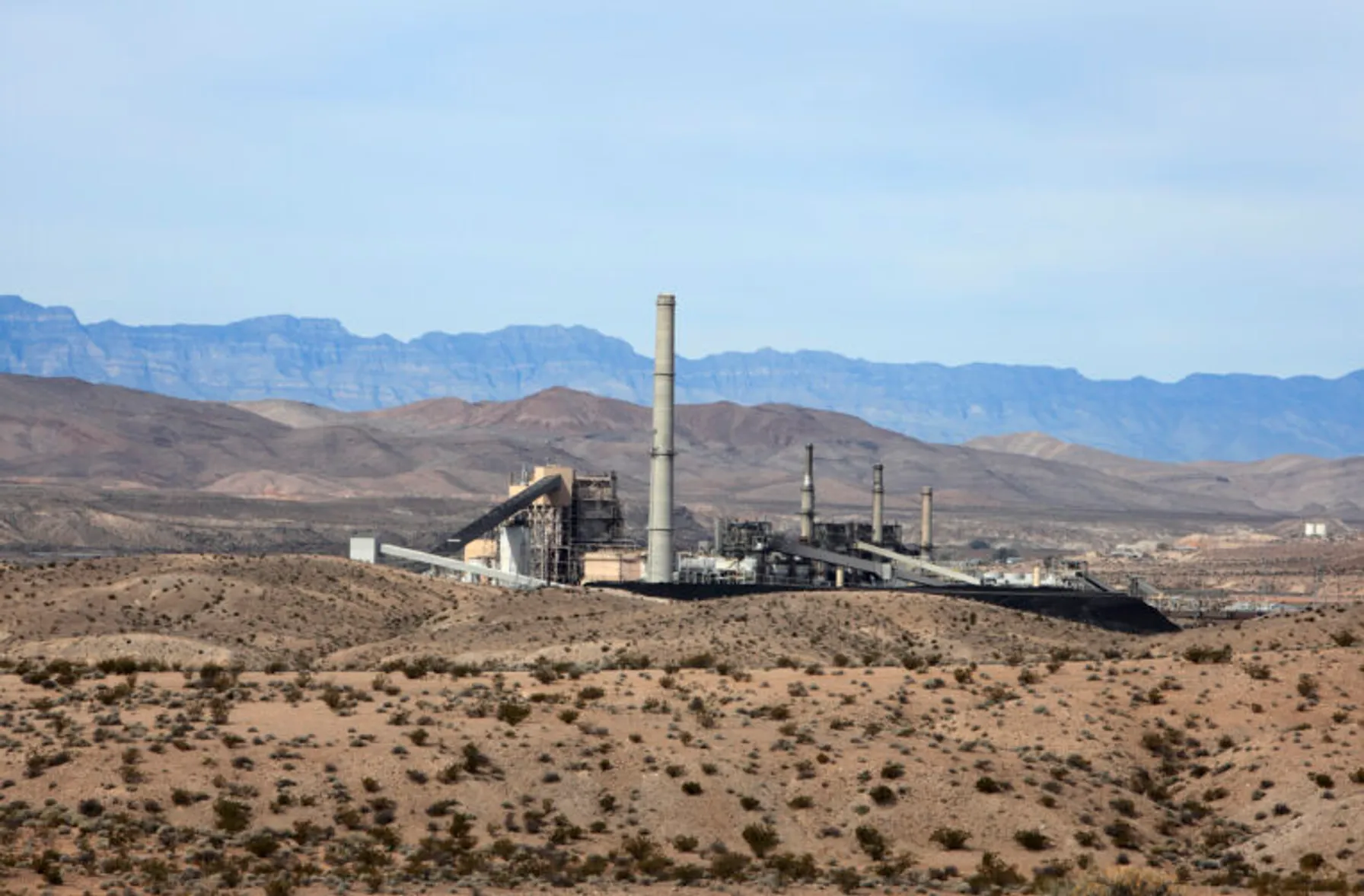
FERC Addresses Future Reliability Risks at Technical Conference
November 26, 2024
On October 16, 2024, the Federal Energy Regulatory Commission held its annual Commissioner-led Reliability Technical Conference.

FERC Issues Guidance to Improve Power System Security and CIP Compliance
September 30, 2024
This update provides details from FERC 2024 staff report from CIP audits, so utilities can improve compliance and reduce security risks.

TRC Acquires Garanzuay Consulting, Amplifying TRC’s Energy Transition Consulting Services in Europe
September 26, 2024
Garanzuay Consulting provides a foundation in Ireland to continue TRC’s growth and expansion in Europe in support of the energy transition for all energy market participants.

NERC Releases 2024 State of Reliability Report
September 19, 2024
The North American Electric Reliability Corporation (NERC) recently released its 2024 State of Reliability report, examining power system performance in calendar year 2023.

Facility Ratings Compliance Through a Corporate Community Approach
August 30, 2024
Facility Ratings play a critical role in the reliable planning and operation of the Bulk Electric System (BES) and yet maintaining compliance with relevant NERC standards remains an industry challenge.

Extreme Geomagnetic Disturbances Impact NERC Planning
August 8, 2024
Learn about the recent geomagnetic disturbance which caused stakeholders within the bulk power system to react swiftly to protect grid reliability. Find out the impacts and what NERC and the industry are doing about it.

Joint Use: Best Practices for Project Success
July 15, 2024
Joint use has never been as important as it is today. With demand for telecommunications infrastructure skyrocketing, governments are investing big in initiatives like the $42.5 billion Broadband Equity Access Deployment Program (BEAD) and the $20.4 billion Rural Digital Opportunity Fund (RDOF).

Consistent NERC Compliance Evidence for Successful Audit Outcomes
June 27, 2024
While utilities often work in technical silos, NERC auditors are trained to cross check compliance evidence and data between interrelated standards.

New NERC Standards Help Protect Against Cyber Attacks
May 23, 2024
As part of NERC’s ongoing effort to bolster Critical Infrastructure Protection (CIP) requirements and enable the implementation of a security improvement concept known as virtualization.

Five Generational Challenges Facing the Utility Workforce
May 10, 2024
In the actively changing energy landscape, utilities are grappling with many workforce-related challenges linked to the ongoing shift towards cleaner energy and the modernization of power grids. As veteran employees retire, it is critical to bridge the knowledge and skill gap by recruiting and developing younger talent.

NERC Compliance Success Through a Corporate Community Approach
May 6, 2024
Additional Restrictions for Major Modifications Other restrictions will come into play for new Major Sources, those that have a potential to emit 50 tons per year or more of VOC or NOx and “major modifications” that result in a VOC emission increase that exceeds 25 tons per year and also exceeds 25 tons per year when aggregated with all creditable increases and decreases in emissions of VOC from the source over any period of five consecutive years, which includes the calendar year in which the increase will occur. For sources that are major due to NOx emissions, a NOx emission increase that exceeds 25 tons per year and exceeds 25 tons per year when aggregated with creditable increases and decreases over the five-year period is also deemed to be a major modification. If a major modification occurs, the source is required to utilize the Lowest Achievable Emission Rate (or LAER) for the pollutant(s) that exceed 25 tons per year aggregated over the five-year period. However, Best Available Control Technology (BACT) can be substituted for LAER under certain conditions. Additionally, emissions must be offset as a means to advancing the area toward attaining the ozone standard. These same requirements will apply to newly constructed Major Sources. Upcoming Deadlines With these actions, the impacted areas will now have until August 3, 2027, to reach attainment. If they do not, USEPA is again obligated to reclassify ongoing nonattainment status to Severe nonattainment, reducing the Major Source threshold in half to just 25 tons per year. In the meantime, the states will be required to revise State Implementation Plans to demonstrate that attainment will be achieved by this deadline. A unique consideration in Wisconsin affects sources subject to a Registration Operation Permit. These permits establish annual emission limits as a percentage of the Major Source threshold (25, 50, or 80 percent depending on the Permit). For these sources, the annual emission limit for VOC and NOx will automatically be cut in half on January 16, 2025. Sources in the ozone nonattainment areas that hold these permits should evaluate whether the Registration Permit provides a long-term option given that the annual emission limits have been cut in half now and may again be cut in half in three years’ time. Next Steps: TRC Can Help TRC is available to support your air compliance and permitting needs by offering expert in-house resources to perform: Ambient Monitor Siting Evaluation Ambient Monitor Deployment, Operation and Maintenance For more information, contact Melanie Klamar, Robert VandenMeiracker and Mike Zebell.

NERC Proposes Changes to Registration Criteria for Inverter Based Resources (IBRs)
April 19, 2024
NERC has submitted for FERC approval new compliance criteria for the registration of IBRs as part of continuing efforts to address reliability risks. It is critical for renewable energy developers, generation owners and transmission owners to understand the potential implications for interconnection studies and interconnection queues.

Shifting to the Cloud: Debunking the Myths of Migrating Utility Data Off Premises
April 14, 2024
This blog delves into common misconceptions surrounding cloud migration in the utility industry, addressing concerns about security, reliability, regulatory compliance, cost effectiveness, and complexity, while highlighting the substantial benefits and strategies for successful adoption.

NERC Proposes Clarifications to EOP Cold Weather Standards
March 26, 2024
NERC has submitted proposed revisions to the EOP-012-2 – Extreme Cold Weather Preparedness and Operations standard, for FERC approval on an expedited basis. The proposed revisions address the remaining key recommendations from the FERC–NERC Joint Inquiry Report into Winter Storm Uri and directives arising from a 2023 FERC Order regarding the previously submitted cold weather standards.

Update to FAC-003-5 Brings Sweeping Changes to Transmission Classifications Starting April 1
March 19, 2024
Update to FAC-003-5 Brings Sweeping Changes to Transmission Classifications Starting April 1

Prevent NERC Compliance Failures with Readiness Reviews
February 20, 2024
Every NERC-registered utility must strive for continuous compliance with their portfolio of applicable NERC Reliability Standards

NERC Releases 2024-2026 Standards Development Plan
January 26, 2024
NERC has submitted its 2024-2026 Reliability Standards Development Plan to the Federal Energy Regulatory Commission (FERC), outlining its current priorities and future standard development plans to protect the reliability of the Bulk Power System over the next three years.

NERC & FERC Release Winter Storm Elliott Report
January 2, 2024
NERC and FERC have released their final report on Winter Storm Elliott which provides reinforcement for recommendations in prior cold weather-related disturbance event reports. The Report identifies critical reliability performance shortcomings and the reliability related near misses. NERC states that a crisis was “narrowly dodged.” The Report outlines the steps the industry must take to avoid a repeat in the future.

FERC Order 901 Calls for Standards to Address IBR Reliability Gaps
November 27, 2023
Inverter Based Resources are playing central role when it comes to adding new electric generation capacity into the bulk power system.

Locana Awarded Modern Network Management at Esri Infrastructure Management and GIS Conference
November 22, 2023
Locana, an international leader in spatial technology, received the Modern Network Management Award at the 2023 Esri Infrastructure Management and GIS (IMGIS) Conference held in Palm Springs, California, October 10-12, 2023.
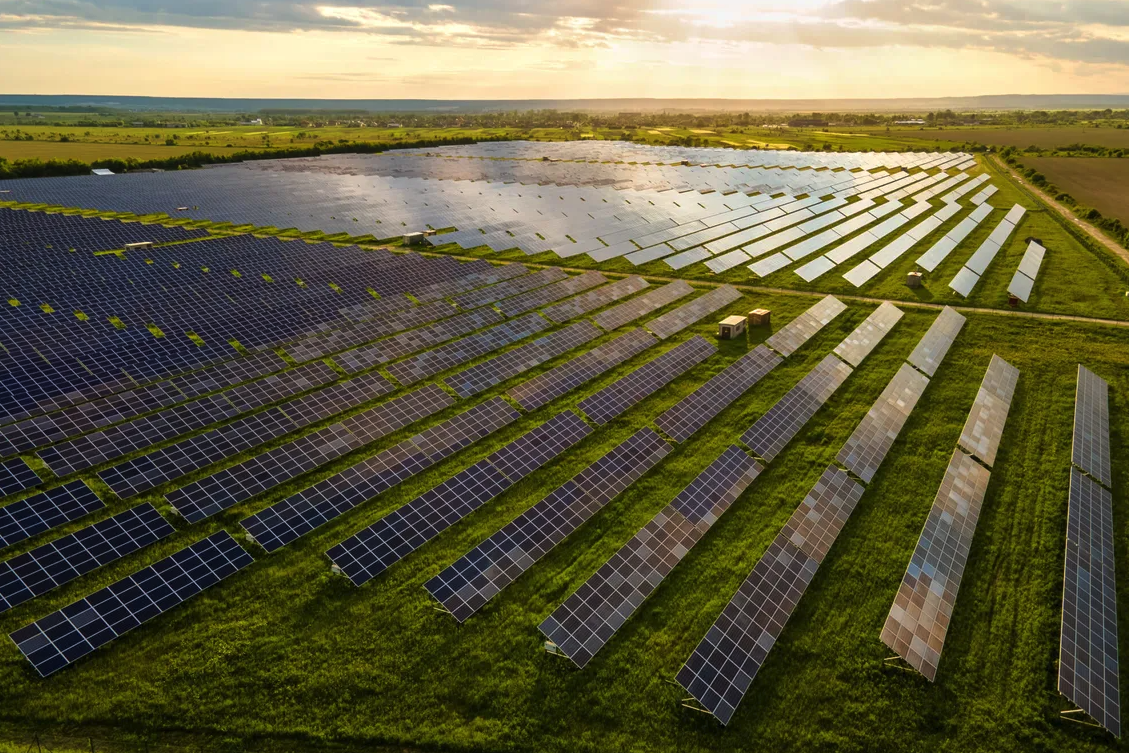
NERC Releases Inverter Based Resources Webinar Series
October 19, 2023
As the power delivery system continues to rapidly evolve due to decarbonization policy initiatives, inverter-based resources (IBRs) are playing an ever-more significant role in generation additions to the bulk power system. NERC and other technical organizations have taken numerous actions to support the reliable integration of these resources.

Esri Awards Locana with the ArcGIS Cloud Services Specialty Designation
October 4, 2023
Locana, an international leader in spatial technology, received Esri’s ArcGIS Cloud Services Specialty, which designates Locana as an expert in deploying and managing ArcGIS in cloud environments such as Amazon Web Services (AWS) and Microsoft Azure.

The Digital Transformation of the Utility Operations Model: Essential Telecom Network Upgrades to Make Now
October 4, 2023
As technology advances and cybersecurity threats loom, companies must prioritize communications retrofits and upgrades to ensure reliability, availability and business continuity.
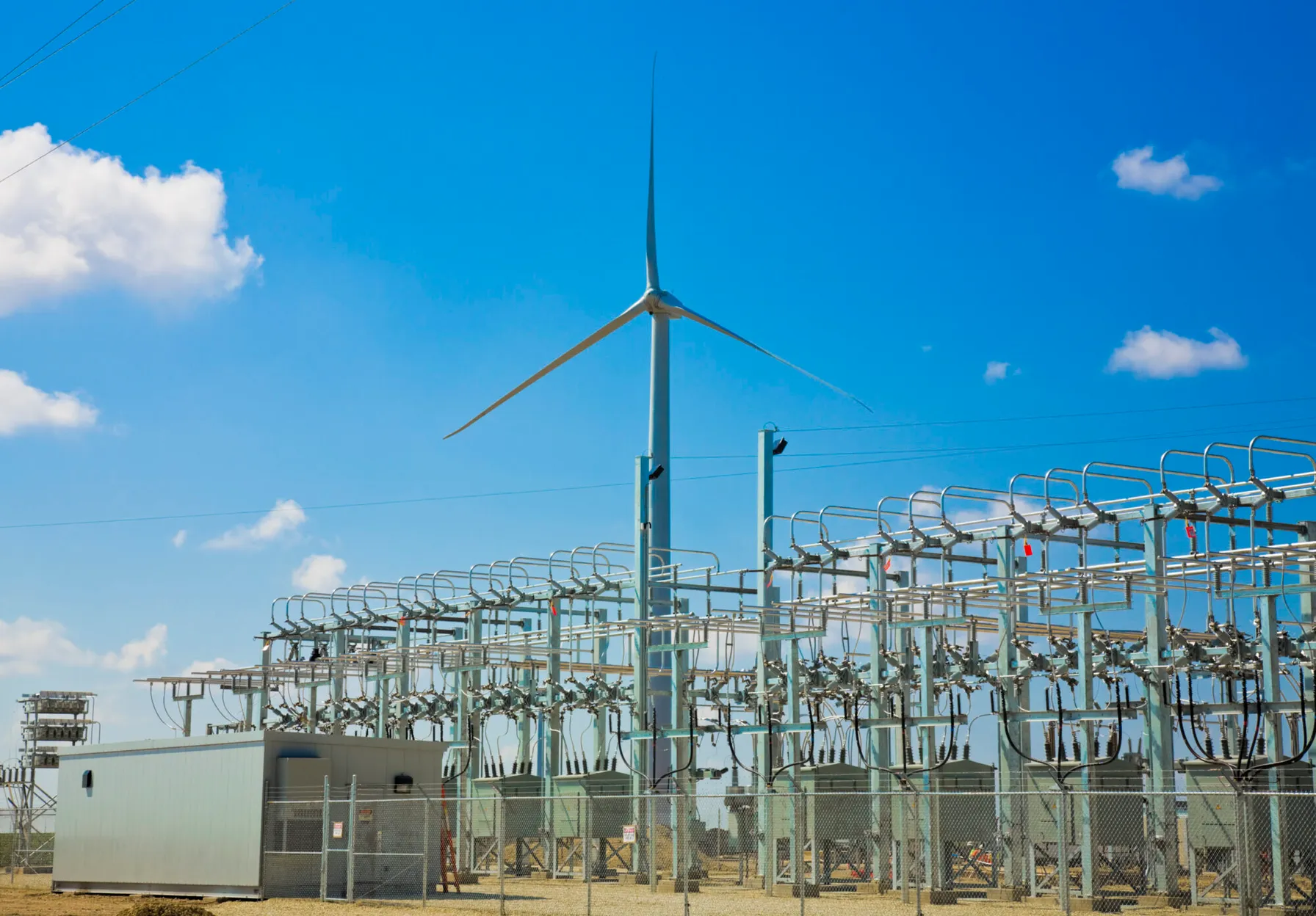
FERC Issues Order 2023 to Resolve Interconnection Process Issues
September 25, 2023
The Federal Energy Regulatory Commission has approved Order 2023 to facilitate and improve the speed and reliability of adding new energy resources to the power system

FERC Hosts Technical Conference on the Effectiveness and Improvements to CIP-014-3
August 30, 2023
Expert Discussions and Key Takeaways Focus on Physical Security

Offshore Wind: A Critical Energy Solution on the Path to Grid Resiliency and Decarbonization
August 29, 2023
As the urgency to decarbonize and build resiliency grows, renewable energy continues to be a pivotal solution for reshaping the future of power in the U.S. From solar to wind, hydro, geothermal and biomass, each renewable resource has its sweet spot for efficient development, deployment and optimal performance. And while they all have their own pros and cons, it is imperative that we leverage them all into the energy mix to achieve decarbonization goals and ensure adequate capacity to meet increasing load demands.

Intro to NERC Regulatory Guidance on Inverter-Based Resources
August 29, 2023
As renewable energy proliferates across the US power system, the North American Electric Reliability Corporation (NERC) continues to actively address reliability risks resulting from the implementation of inverter-based resources (solar and wind generation technology) connected at both transmission and Distributed Energy Resources (DER) levels.

U.S. EPA’s EJScreen Evolves as the Agency Advances Environmental Justice
August 21, 2023
EJScreen is currently at the forefront of federal efforts to identify potential disproportionate environmental burdens and communities with potential environmental justice (EJ) concerns.

Strengthening the Future Utility Workforce through Immersive Learning Technology
August 7, 2023
Leveraging new tools and technologies such as mixed and virtual reality (MR/VR) to develop a new generation of skilled engineers and technicians to maintain the reliability and resiliency of the future grid.

FERC Extreme Weather Initiative Will Change the Transmission Planning Process
July 26, 2023
FERC issued a Final Rule directing NERC to develop a new or modified reliability standard addressing transmission system planning performance requirements for extreme heat or cold weather events.

Unleashing the Power of a Human Performance Mindset to Ensure the Next Generation Utility Workforce
June 27, 2023
The impact of adapting behavioral and cultural norms to focus on the principles of human performance cannot be underestimated in building the power workforce of the future.

Advanced Metering Infrastructure (AMI) – How Smart Should A Smart Meter Be?
June 26, 2023
According to the Edison Foundation’s Institute for Electric Innovation, over 124 million smart meters were expected to be installed in 78 percent of US households by the end of 2022.
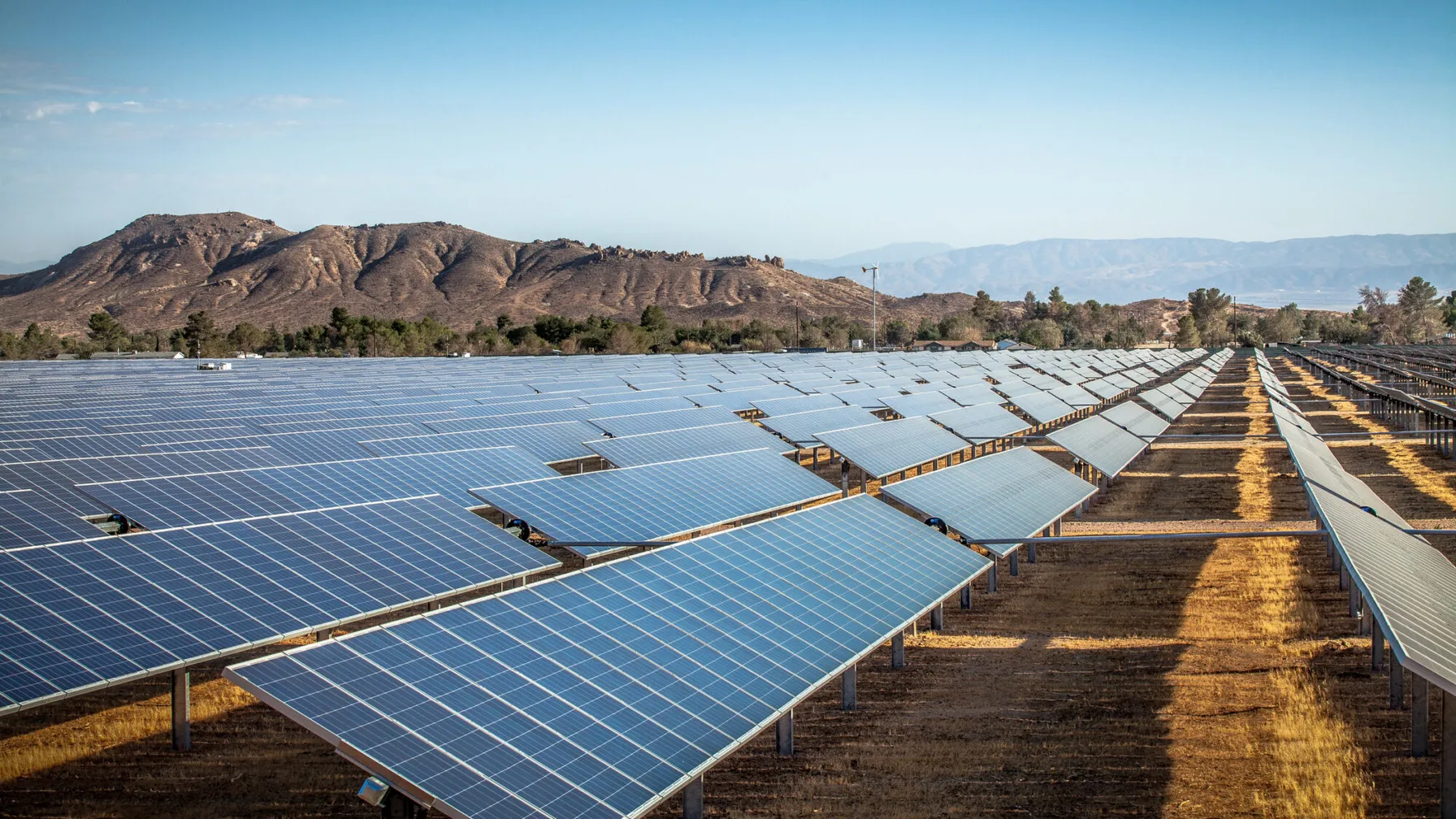
FERC Approves Plan to Register Certain Inverter-Based Resources as part of NERC Mandatory Standards Compliance Program
June 21, 2023
FERC issued an order approving NERC’s compliance filings.

Modernize Your Field Services with GIS and Work Order Management Combined
June 15, 2023
The role of field service management continues to dominate the world economy, as the market grows at an exponential rate. The market was estimated at 3.2 billion in 2021 and is projected to reach 5.7 billion by the end of 2026.

Advancing Telecommunication Projects: A Guide for High Level Design
June 6, 2023
TRC has developed utility network Master Plans and designed and architected utility-wide networks

NERC Files Report on Effectiveness on CIP-014 Physical Security Standard
May 25, 2023
On behalf of the North American Electric Reliability Corporation (NERC), its President and CEO Jim Robb, recently presented to the Federal Energy Regulatory Commission (FERC) a summary of NERC’s report on the effectiveness of NERC’s CIP-014 Physical Security Standard. There were almost 1,700 physical security incidents reported to the Electricity-Information Security Analysis Center (E-ISAC) in 2022, an increase of 10.5% from 2021.
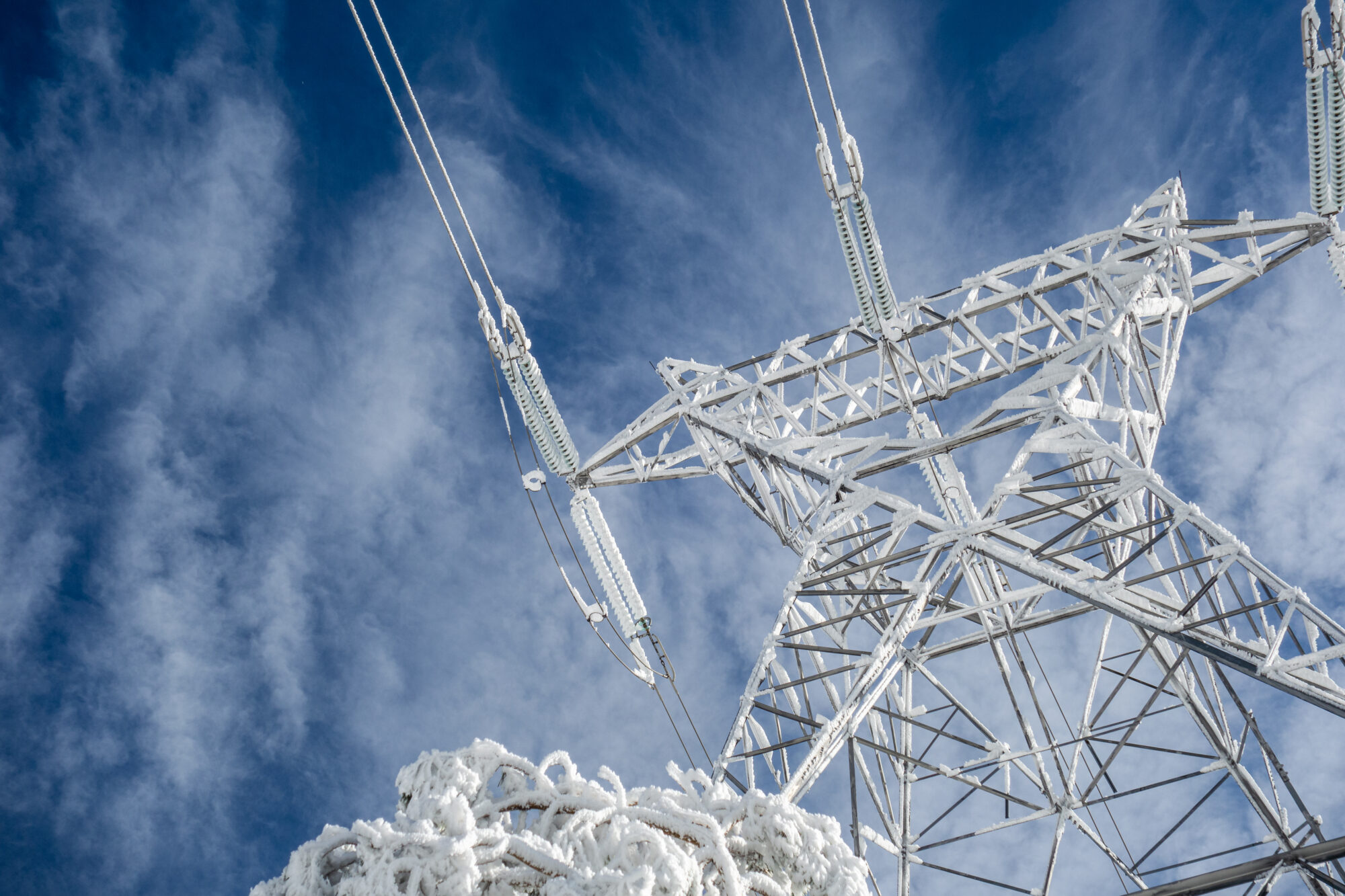
FERC Issues Order on Cold Weather Reliability Standards
April 27, 2023
FERC has approved two NERC proposed cold weather-related reliability standards.

Modeling Power System Hosting Capacity
March 31, 2023
As renewable energy development booms, and distributed energy resources (DERs) proliferate across the grid, the demand for a more efficient and timely interconnection process is at an all-time high. To meet regulatory deadlines and satisfy the needs of both developers and customers, utilities must tackle an increasingly complex array of system impact studies, analyses and reports, under ever shrinking timelines.

FERC Orders Internal Network Security Monitoring Rule to be Finalized
March 14, 2023
FERC directed NERC to develop Reliability Standards to implement INSM within trusted CIP environments.

TRC Companies Assisting LS Power Grid Maine with New Transmission Project in Maine
March 2, 2023
TRC Companies announces its role as a consultant in supporting the new transmission project by LS Power Grid Maine.

Insights from the Odessa II Power System Disturbance
February 22, 2023
NERC and TRE release the Odessa II Power System Disturbance Report

Carrots and Sticks for Building Decarbonization: Incentive Programs and Codes & Standards
January 11, 2023
Additional Restrictions for Major Modifications Other restrictions will come into play for new Major Sources, those that have a potential to emit 50 tons per year or more of VOC or NOx and “major modifications” that result in a VOC emission increase that exceeds 25 tons per year and also exceeds 25 tons per year when aggregated with all creditable increases and decreases in emissions of VOC from the source over any period of five consecutive years, which includes the calendar year in which the increase will occur. For sources that are major due to NOx emissions, a NOx emission increase that exceeds 25 tons per year and exceeds 25 tons per year when aggregated with creditable increases and decreases over the five-year period is also deemed to be a major modification. If a major modification occurs, the source is required to utilize the Lowest Achievable Emission Rate (or LAER) for the pollutant(s) that exceed 25 tons per year aggregated over the five-year period. However, Best Available Control Technology (BACT) can be substituted for LAER under certain conditions. Additionally, emissions must be offset as a means to advancing the area toward attaining the ozone standard. These same requirements will apply to newly constructed Major Sources. Upcoming Deadlines With these actions, the impacted areas will now have until August 3, 2027, to reach attainment. If they do not, USEPA is again obligated to reclassify ongoing nonattainment status to Severe nonattainment, reducing the Major Source threshold in half to just 25 tons per year. In the meantime, the states will be required to revise State Implementation Plans to demonstrate that attainment will be achieved by this deadline. A unique consideration in Wisconsin affects sources subject to a Registration Operation Permit. These permits establish annual emission limits as a percentage of the Major Source threshold (25, 50, or 80 percent depending on the Permit). For these sources, the annual emission limit for VOC and NOx will automatically be cut in half on January 16, 2025. Sources in the ozone nonattainment areas that hold these permits should evaluate whether the Registration Permit provides a long-term option given that the annual emission limits have been cut in half now and may again be cut in half in three years’ time. Next Steps: TRC Can Help TRC is available to support your air compliance and permitting needs by offering expert in-house resources to perform: Ambient Monitor Siting Evaluation Ambient Monitor Deployment, Operation and Maintenance For more information, contact Melanie Klamar, Robert VandenMeiracker and Mike Zebell.

New FERC Orders Will Change Regulatory Process for Inverter Based Resources
January 9, 2023
The Federal Energy Regulatory Commission (FERC) recently proposed actions to keep the regulatory process and requirements ahead of reliability risks resulting from the accelerated deployment of Inverter Based Resources (IBR) based solar, wind and battery storage projects.

NERC Releases Facilities Ratings Best Practices Report
December 19, 2022
NERC report on best practices for utilities that have encountered facility ratings program challenges.

NERC Files Comments in the FERC Generator Interconnection Notice of Proposed Rulemaking
November 21, 2022
The rulemaking addresses improvements needed to reliably facilitate the power industry’s transition to renewable and distributed generating resources utilizing inverter-based technologies.

NERC Releases Inverter-Based Resource Strategy Plan
October 25, 2022
The North American Electric Reliability Corporation (NERC) recently released an Inverter-Based Resource (IBR) Strategy, which details the steps needed to successfully integrate IBR facilities into the planning and operation of the power system. The strategy was put in place due to the rapid interconnection of IBR systems, which are extensively used for solar and wind generating facilities, including new battery-based energy storage systems and are one of the most significant drivers of power grid transformation. Because of control system inconsistencies, IBR facilities pose well-documented risks to power system reliability when this strategy’s practices are not adhered to. NERC’s plan calls attention to the need for thoughtful integration of IBRs and identifies current and future work required to mitigate reliability risks resulting from the deployment of this technology.

NERC Releases 2022 State of Reliability Report
September 16, 2022
The North American Electric Reliability Corporation (NERC) recently released its 2022 State of Reliability report, which examines power system performance in calendar year 2021 and evaluates reliability performance trends. The 2022 report identified six key findings regarding power system performance that are summarized as follows:

NERC Proposes Implementation Guidance for PRC-019-2
August 22, 2022
NERC has proposed implementation guidance for PRC-019-2, the standard that verifies coordination of generating unit facility or synchronous condenser voltage regulating controls, limit functions, equipment capabilities and protection system settings.

The Use Case Benefits of GIS Modernization for Utilities
August 10, 2022
Additional Restrictions for Major Modifications Other restrictions will come into play for new Major Sources, those that have a potential to emit 50 tons per year or more of VOC or NOx and “major modifications” that result in a VOC emission increase that exceeds 25 tons per year and also exceeds 25 tons per year when aggregated with all creditable increases and decreases in emissions of VOC from the source over any period of five consecutive years, which includes the calendar year in which the increase will occur. For sources that are major due to NOx emissions, a NOx emission increase that exceeds 25 tons per year and exceeds 25 tons per year when aggregated with creditable increases and decreases over the five-year period is also deemed to be a major modification. If a major modification occurs, the source is required to utilize the Lowest Achievable Emission Rate (or LAER) for the pollutant(s) that exceed 25 tons per year aggregated over the five-year period. However, Best Available Control Technology (BACT) can be substituted for LAER under certain conditions. Additionally, emissions must be offset as a means to advancing the area toward attaining the ozone standard. These same requirements will apply to newly constructed Major Sources. Upcoming Deadlines With these actions, the impacted areas will now have until August 3, 2027, to reach attainment. If they do not, USEPA is again obligated to reclassify ongoing nonattainment status to Severe nonattainment, reducing the Major Source threshold in half to just 25 tons per year. In the meantime, the states will be required to revise State Implementation Plans to demonstrate that attainment will be achieved by this deadline. A unique consideration in Wisconsin affects sources subject to a Registration Operation Permit. These permits establish annual emission limits as a percentage of the Major Source threshold (25, 50, or 80 percent depending on the Permit). For these sources, the annual emission limit for VOC and NOx will automatically be cut in half on January 16, 2025. Sources in the ozone nonattainment areas that hold these permits should evaluate whether the Registration Permit provides a long-term option given that the annual emission limits have been cut in half now and may again be cut in half in three years’ time. Next Steps: TRC Can Help TRC is available to support your air compliance and permitting needs by offering expert in-house resources to perform: Ambient Monitor Siting Evaluation Ambient Monitor Deployment, Operation and Maintenance For more information, contact Melanie Klamar, Robert VandenMeiracker and Mike Zebell.

Revisions to FAC-001 and FAC-002 Submitted for FERC Approval
July 12, 2022
Reliability Standards FAC-001-4 and FAC-002-will resolve uncertainty regarding the meaning of “materially modify” under the currently effective standards.

FERC Order No. 881-A Has Implications for NERC Compliance Programs
June 23, 2022
Updated Order will have significant impact on NERC compliance programs related to both PRC standards and facilities ratings. Utilities should review the Order’s requirements and prepare for changes needed to remain compliant.

Brookings Municipal Utilities Streamlines Processes, Boosts Efficiency with Modern GIS
June 14, 2022
Locana, a global leader in technology consulting and geospatial systems development, announced Brookings Municipal Utilities (BMU) successful deployment of a modern geospatial enterprise leveraging Locana services.

Omaha Metropolitan Utilities District Drives Reliable Operations with Locana Lemur Mobile GIS Solution
June 8, 2022
Locana, a global leader in technology consulting and geospatial systems development, today announced the successful deployment of its LemurSM Solution by Omaha Metropolitan Utilities District (M.U.D.).

NERC’s Revised PRC-024-3 Standard for Inverter-Based Generation Effective in October 2022
May 11, 2022
Changes to PRC-024-3 in support of inverter-based generation performance are going into effect in October of this year. Interconnection programs and documentation procedures may need to be updated in order to maintain compliance.

FERC Issues Notice of Inquiry Regarding Dynamic Line Ratings
April 25, 2022
There are significant technical challenges involved in implementing Dynamic Line Ratings in the planning and operation of utility systems. Utilities should be prepared to modify their NERC compliance programs as necessary to address the potential introduction of DLR in their businesses.
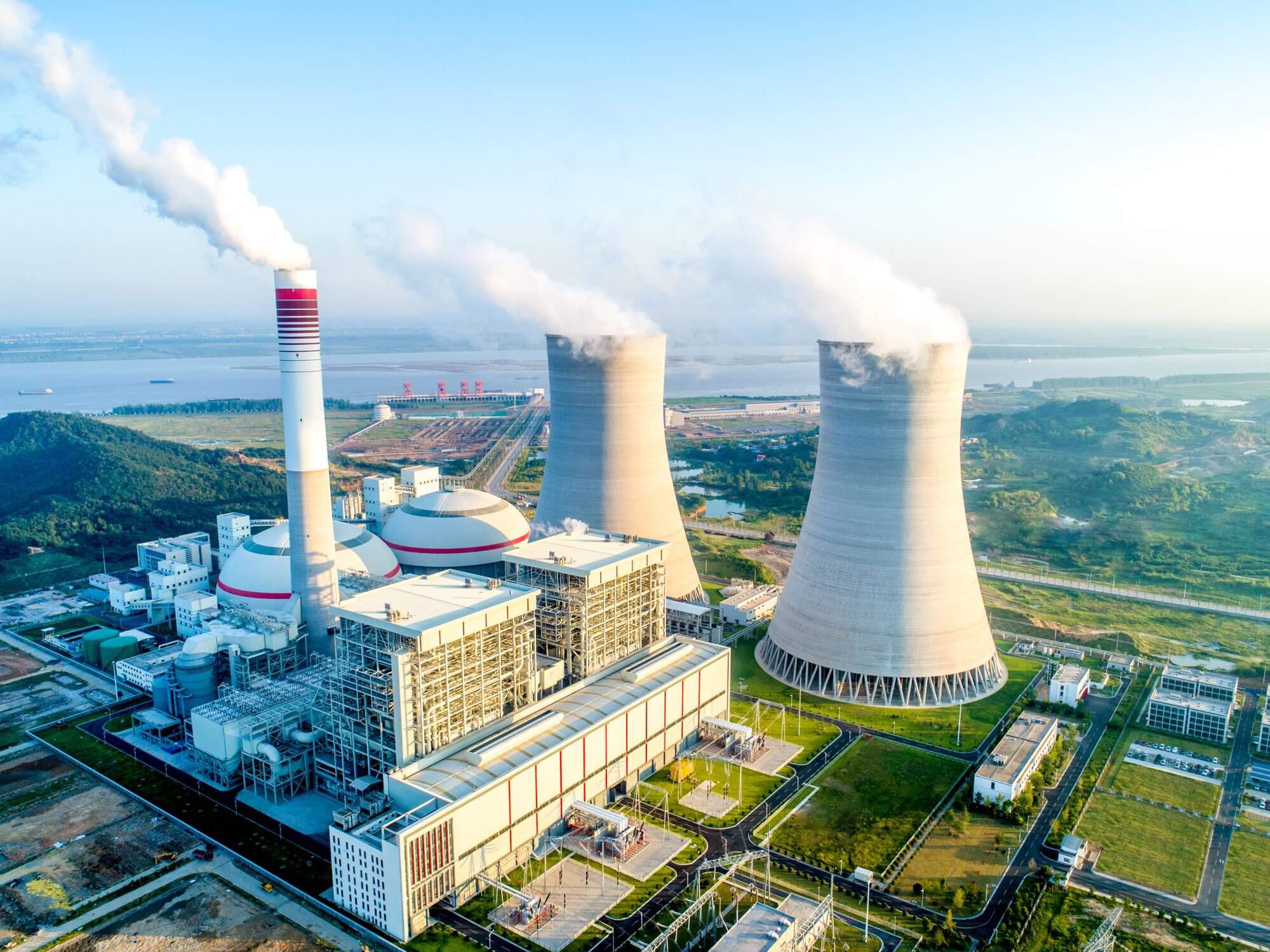
Creating a Culture of Safety During Plant Decommissioning
April 13, 2022
Creating intrinsically motivated safety cultures within nuclear power plants is imperative, especially during the decommissioning process. Employees’ long-standing beliefs and attitudes often determine their decisions and actions, so cultivating a safety-first culture requires commitment and accountability.

Start Your Batteries: Mass Fleet Electrification is Coming (And What We Can do to Prepare)
April 13, 2022
As we plan for and make early investments for fleets, we’ll be paving the way for higher degrees of market penetration of passenger vehicles and other modes of transportation as well.
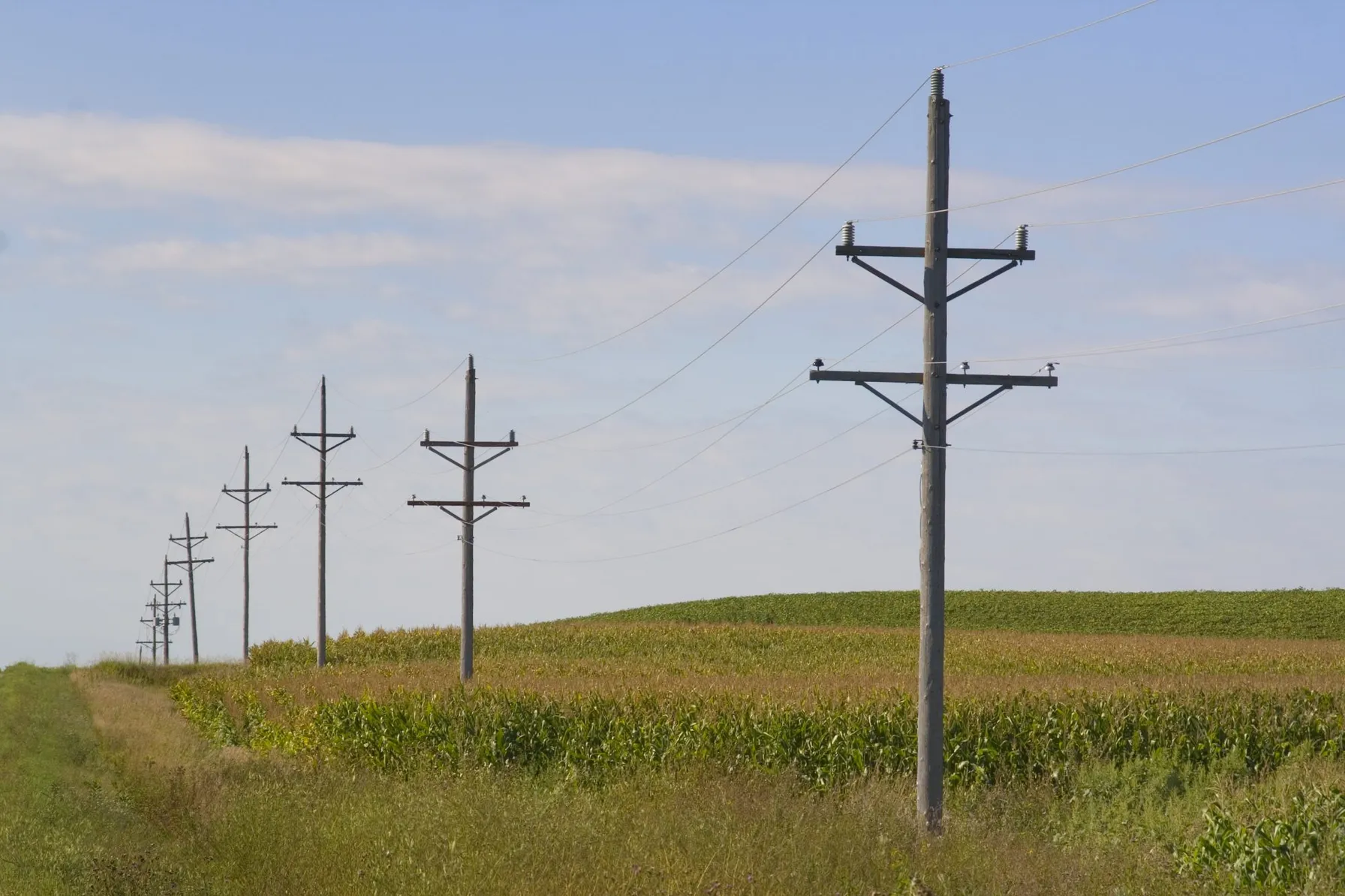
TRC Selected as Systems Integrator for Otter Tail Power Company’s Advanced Metering Infrastructure Program
April 5, 2022
Otter Tail Power Company selects TRC to serve as systems integrator for their AMI program covering northwestern Minnesota, eastern North Dakota, and northeastern South Dakota.

Webinar Replay: Substation Automation – Best Practices for IEC 61850 Implementation
March 29, 2022
Modernizing utility equipment, standards and processes pays dividends for improved safety, security and reliability. But transitioning to a new high-tech system model can be challenging.

New NERC Guidance Supports the Implementation of Grid Forming Inverters
March 8, 2022
NERC has issued a new report highlighting the key attributes of various inverter controls to support proper implementation and to protect reliability.

NERC Recommends Approaches for Underfrequency Load Shedding Programs
February 24, 2022
In a recently released reliability guideline, NERC recommends additional approaches for Underfrequency Load Shedding (UFLS) program design to help utilities effectively consider the effects of Distributed Energy Resources (DERs). The guidance was developed to address the accelerated transition of the power system to locally installed, decarbonized resources that depend on inverters. These new technologies introduce operational controls issues into the electric grid. UFLS data gathering and analysis methodologies may require modification to address reliability risks.

The Best Process for Transforming Thermal Generation Power Plants
February 9, 2022
Faced with an aging fleet, stricter environmental regulations, reduced costs for natural gas and competition from renewables, more than 600 power plants have been decommissioned in the last 20 years, a pace that will increase with the announced closure of nearly 350 additional plants by 2025.

Ensuring a Just Transition: Optimizing Opportunities for All in the Low-Carbon Future
January 24, 2022
Carbon elimination of the magnitude needed to address climate change requires systems-level change that can only be reached by incremental, ground-up progress, building upon what we have achieved thus far.

NERC and FERC Recommend Protection System Commissioning Improvements
January 18, 2022
Between 18 and 36 percent of reported utility misoperations were attributed to issues that could have been detected through a properly implemented PSC.

FERC & NERC Issue Joint Report on Freeze Reliability Failures
December 15, 2021
The in-depth report outlines twenty-eight recommendations to address freeze reliability failures, including operating practices and recommendations for NERC standards modifications surrounding generator winterization and gas-electric coordination.

Decarbonization: A Systems-Level Challenge and Actions to Address Climate Change
December 7, 2021
Carbon elimination of the magnitude needed to address climate change requires systems-level change that can only be reached by incremental, ground-up progress, building upon what we have achieved thus far.

NERC Accelerates Additional Cold Weather Standards Changes
November 22, 2021
At its November 2021 meeting, NERC’s Board of Trustees took aggressive action to advance critical cold weather Reliability Standards. Most notably, the group approved the 2022-2024 Reliability Standards Development Plan, which prioritizes standards projects for the coming years including a resolution to include new cold weather operations, preparedness and coordination standards as high priority development projects.
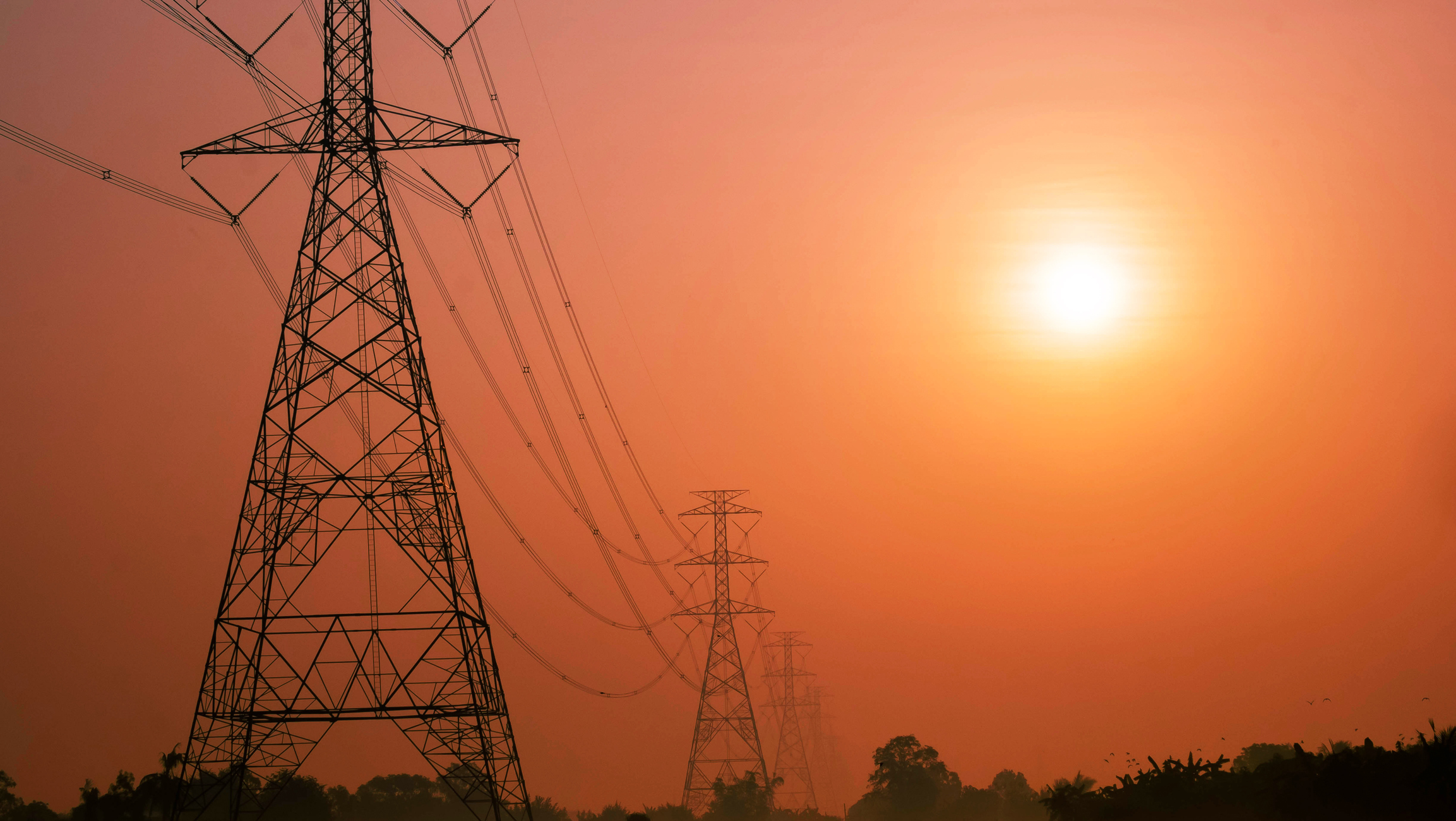
PRC-002-2 Disturbance Monitoring and Reporting Standard: Initial Mandatory Implementation Plan Dates Approach
November 18, 2021
The Federal Energy Regulatory Commission approved PRC-002-2 in September, 2015. The initial due date for system studies necessary to identify locations for the collection of disturbance related data under Requirement R1 is January 1, 2017.

10 Takeaways from the COP26 Climate Meeting
November 17, 2021
There are compelling reasons to be optimistic about the outcomes of the COP26 meeting. Notably, agreement among all nations that more needs to be done, by both private and governmental bodies, to contain and mitigate climate change.
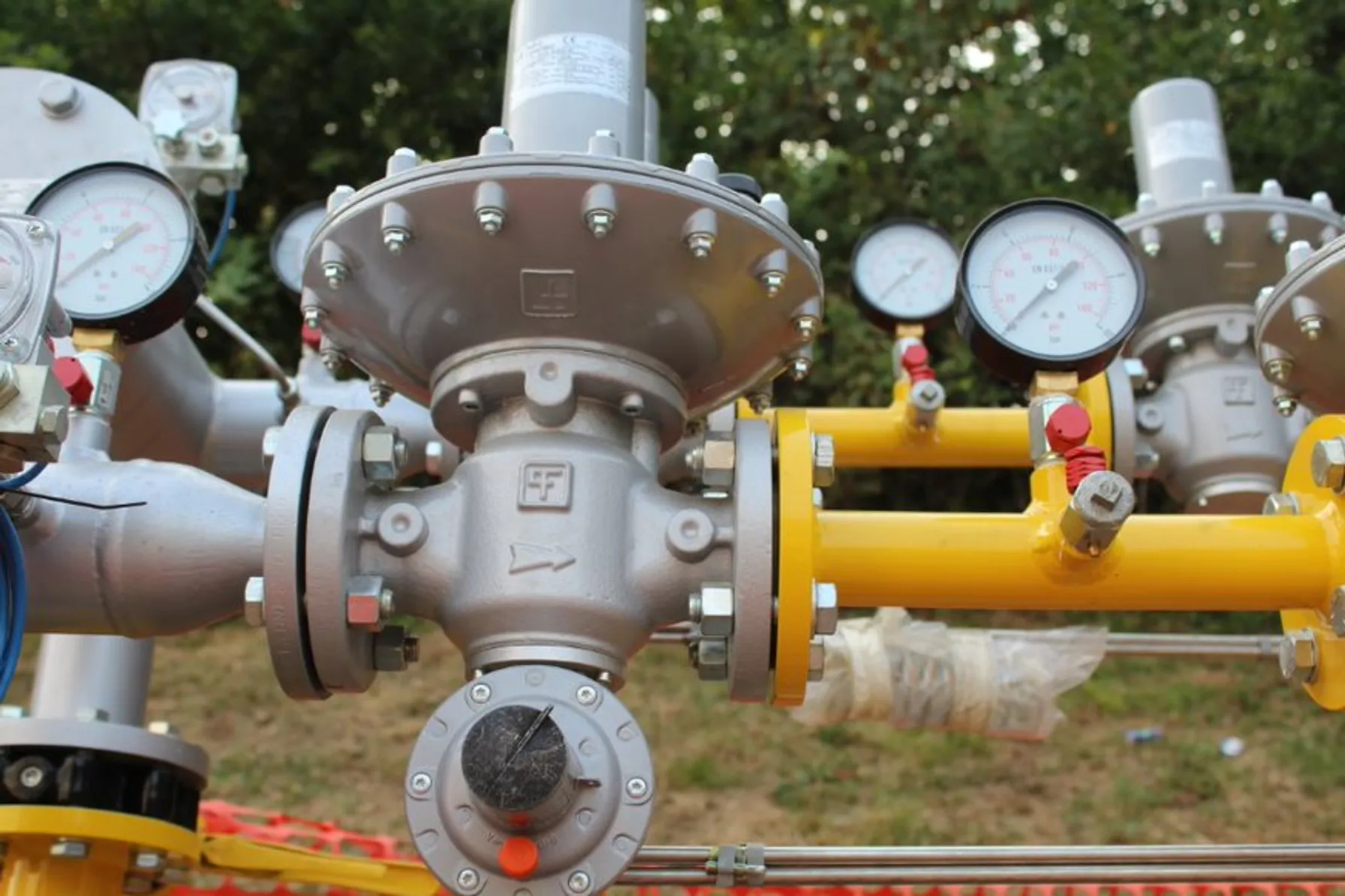
The Price of Natural Gas: Onward and Upward or Just a Temporary Blip?
November 12, 2021
Most industry experts agree that weather aside, the global energy and gas markets are likely to remain uncertain with supply and market demand becoming tighter and more challenging to forecast.

Six Considerations for a Successful Utility Network Cloud Implementation
October 26, 2021
For any GIS manager or IT professional tasked with implementing ArcGIS Utility Network (UN), knowing where to start can be daunting. If not properly planned, a UN setup in the cloud can be significantly more expensive and less accessible, stable, and secure.
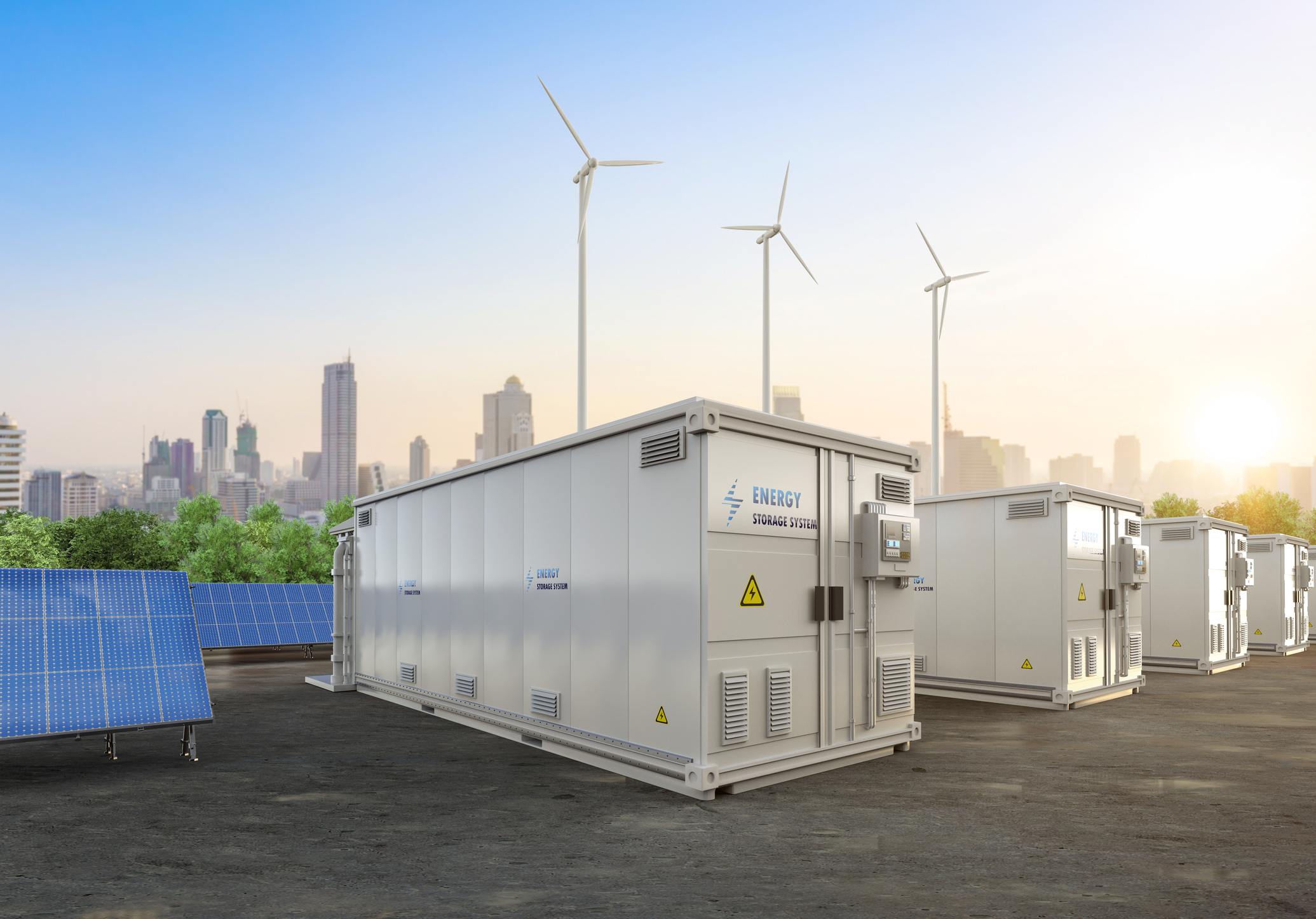
How Do Energy Storage Systems Work?
October 18, 2021
For more than five decades, TRC has brought efficient, resilient energy systems to the world. We understand the challenges of implementing energy storage projects.

New Potential Compliance Standards Identified at FERC Technical Conference on Reliability
October 18, 2021
With a focus on the reliability impact of extreme weather and the shortcomings of current system planning approaches, both NERC and FERC conference participants opened the door to potential forthcoming compliance standard enhancements or changes.

On the Road to Decarbonization: The Role of All-Source Competitive Solicitations
October 14, 2021
All-Source Competitive Solicitations offer utilities an alternative to centralized planning, construction and dispatch of power supplies, helping to usher in a new era of market-driven technology innovation.
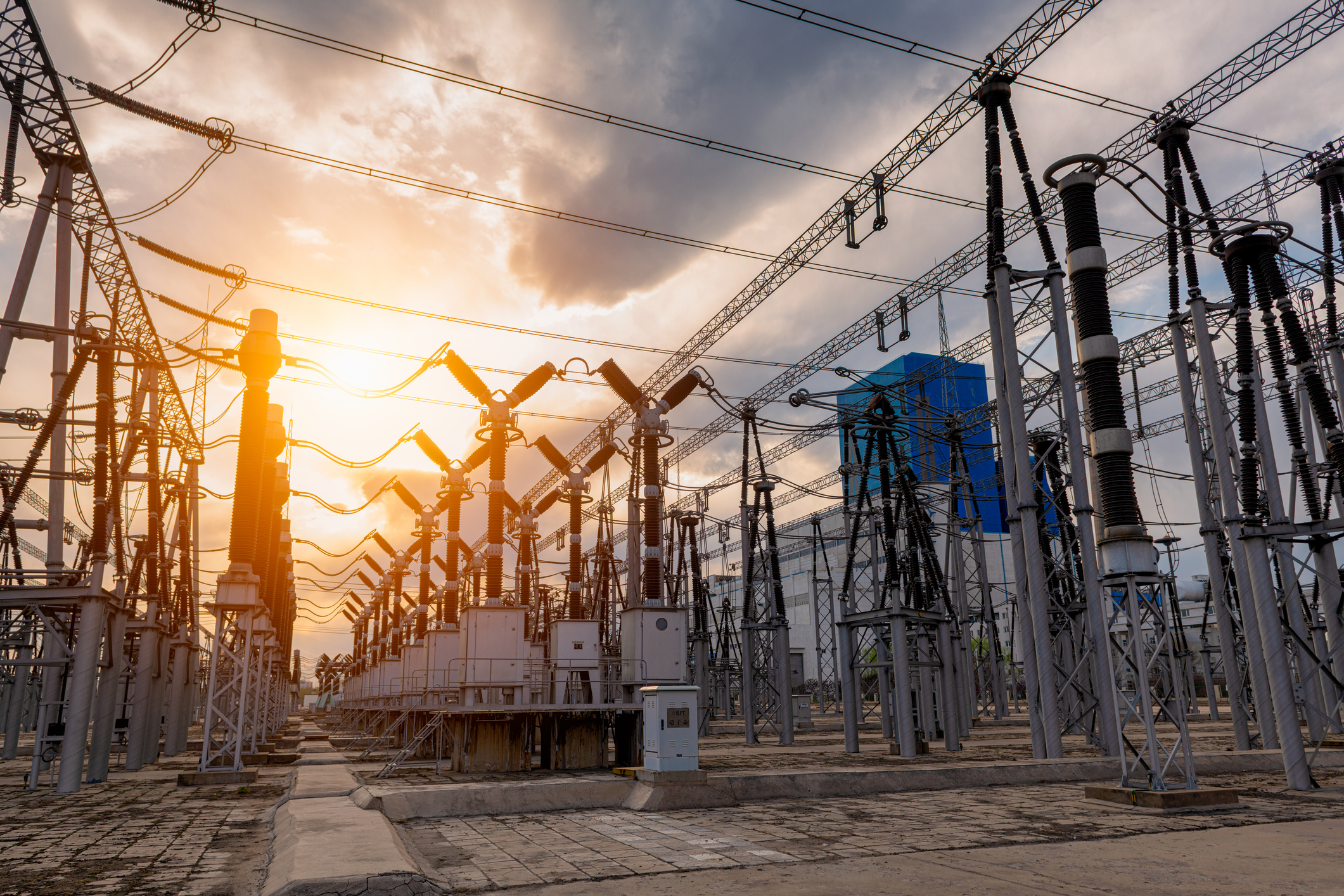
How Does a Distribution Grid Work?
October 2, 2021
Electric distribution systems rely on sophisticated technology to provide power when needed. Electricity is generated on-demand, which means there are often peak periods when providers see a greater need for power and the system must prove responsive.
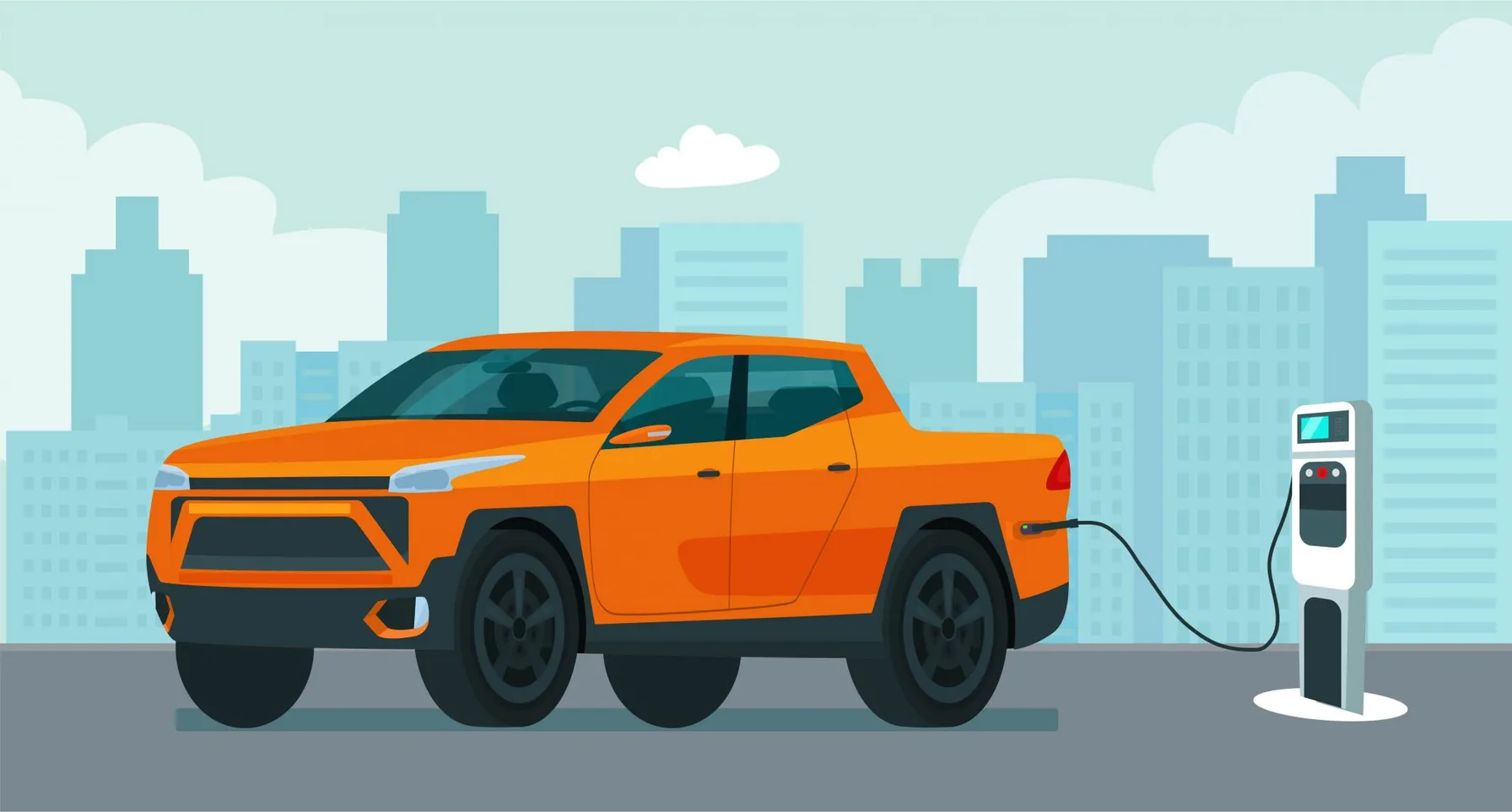
Amplifying the Next Phase of Fleet Electrification: The Pickup
September 30, 2021
TRC’s analysis for one client fleet shows that even a $70,000 EV can compete on cost with a comparable gas-hybrid vehicle priced at $40,000 – at least in California where upfront and ongoing incentives stack up quickly.

NERC Issues Odessa Texas Disturbance Report
September 29, 2021
While NERC has analyzed multiple similar events in California, this is the first disturbance involving a widespread reduction of PV resource power output observed in the Texas Interconnection.

Pacific Gas and Electric Selects TRC as Program Implementer for New Construction Residential All-Electric and Mixed Fuel Programs
September 27, 2021
Pacific Gas and Electric Company (PG&E) formally announced TRC as the designated lead Program Implementer for the Statewide New Construction (SWNC) Residential All-Electric and Mixed Fuel Programs following a competitive solicitation process.

TRC Digital Selected by Snohomish County Public Utility District to Implement Siemens EnergyIP® Meter Data Management
September 15, 2021
Snohomish PUD selected TRC to implement, integrate and deliver their meter data management system (MDMS) on the Siemens EnergyIP® platform as a part of the utility’s Connect Up program.

FERC Approves Modifications to NERC’s Cold Weather-Related Standards
September 7, 2021
The Federal Energy Regulatory Commission has approved changes to three mandatory NERC Reliability Standards that aim to better prepare the North American power system to withstand extreme cold weather events.

NERC’s Generator Relay Loadability Standard is Now in Effect
August 30, 2021
Faced with an aging fleet, stricter environmental regulations, reduced costs for natural gas and competition from renewables, more than 600 power plants have been decommissioned in the last 20 years, a pace that will increase with the announced closure of nearly 350 additional plants by 2025. With a goal of being net-zero carbon by 2050, many power generators are faced with critical decisions regarding their thermal generation plants. Should they continue operation, repower, re-purpose or retire their plants? In the competitive power generation market, coal-fired plants are getting squeezed on multiple fronts including lower prices for renewables (e.g., wind and solar) and gas, inefficient cyclical operation and, in some instances, by state efforts to curtail the use of coal. Foregoing the retail market and partnering with a data center for mining cryptocurrency can represent a winning financial proposition for both parties. Some states are actively encouraging the co-locating of data centers at generation sites, while others are actively working to keep plants operational in order to preserve the jobs at the plants and in the mines. In some regional transmission organizations, such as PJM, newer natural gas fired generation units are favored over older units because of their more efficient turbines and larger size. Older natural gas units are at risk of becoming stranded assets as cheaper renewables come online and the industry commitments to net zero emissions. There are reports that banks Citigroup Inc and JP Morgan Chase & Co will strengthen their financing restrictions on thermal gas plants, similar to what they’ve already done for coal projects.
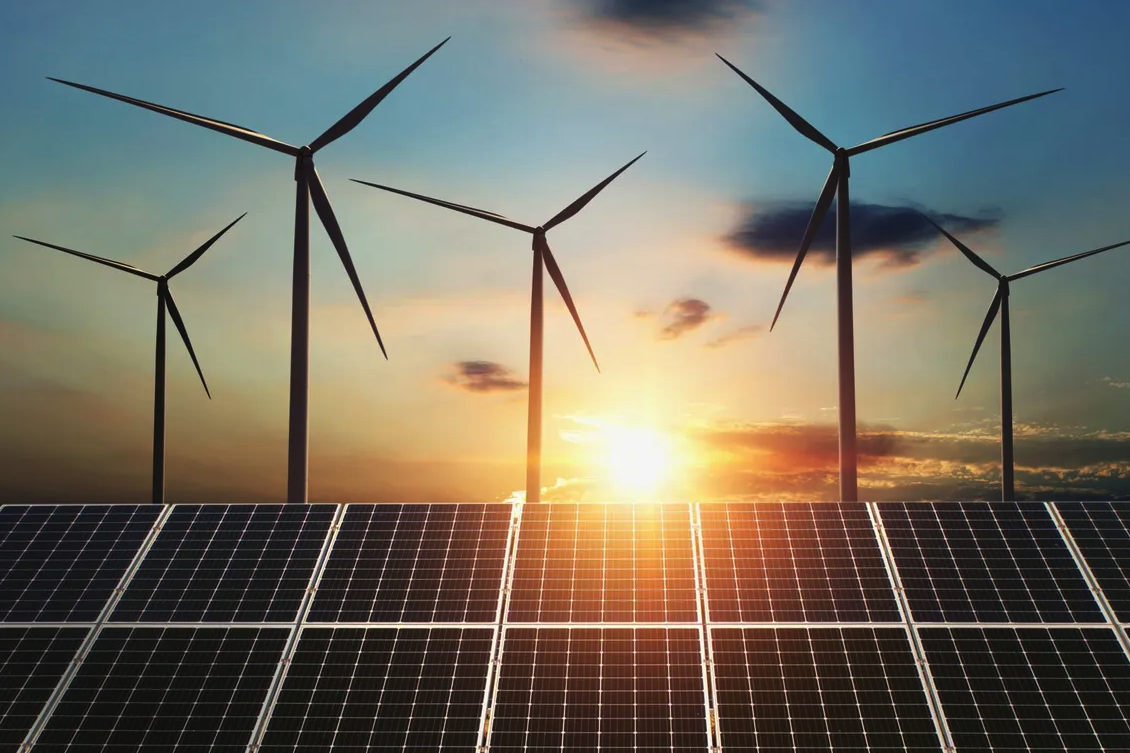
NERC Seeks to Improve GADS Reliability Performance Reporting
August 26, 2021
Faced with an aging fleet, stricter environmental regulations, reduced costs for natural gas and competition from renewables, more than 600 power plants have been decommissioned in the last 20 years, a pace that will increase with the announced closure of nearly 350 additional plants by 2025. With a goal of being net-zero carbon by 2050, many power generators are faced with critical decisions regarding their thermal generation plants. Should they continue operation, repower, re-purpose or retire their plants? In the competitive power generation market, coal-fired plants are getting squeezed on multiple fronts including lower prices for renewables (e.g., wind and solar) and gas, inefficient cyclical operation and, in some instances, by state efforts to curtail the use of coal. Foregoing the retail market and partnering with a data center for mining cryptocurrency can represent a winning financial proposition for both parties. Some states are actively encouraging the co-locating of data centers at generation sites, while others are actively working to keep plants operational in order to preserve the jobs at the plants and in the mines. In some regional transmission organizations, such as PJM, newer natural gas fired generation units are favored over older units because of their more efficient turbines and larger size. Older natural gas units are at risk of becoming stranded assets as cheaper renewables come online and the industry commitments to net zero emissions. There are reports that banks Citigroup Inc and JP Morgan Chase & Co will strengthen their financing restrictions on thermal gas plants, similar to what they’ve already done for coal projects.

Prepare for Upcoming NERC Compliance Deadlines
August 20, 2021
With 2020 right around the corner, there are many new NERC standards and standards requirements set to go into effect in the areas of Critical Infrastructure Protection and Transmission Operations and Planning.

TRC Talks – Attaching Telecommunications Fiber in the Supply Space
August 10, 2021
Today’s utility and communications infrastructure is being challenged to support a growing demand for automation, broadband and 5G network services. Attaching fiber in the power distribution or supply space can mitigate risks related to overloading and overcrowding.

Oklahoma Gas & Electric Company uses AI to assess and repair distribution pole damage
August 4, 2021
As part of its grid enhancement program, OG&E will leverage collaborative AI-powered image recognition technology that enables engineers to complete distribution pole inspections with greater accuracy and helps to reduce manual review of images.

Reasons for IT/OT Modernization
August 1, 2021
Opposites attract, and information technology (IT) and operational technology (OT) are no exception. At one end of the digital grid sits IT as a business application, while OT exists at the other end of the digital grid as an asset-oriented application. For decades, IT and OT have been operating separately and are often physically isolated.

IT/OT Convergence Best Practices
August 1, 2021
A successful IT/OT convergence strategy involves identifying desired outcomes, managing the fragmentation of OT solutions, and developing common key performance indicators (KPIs) for both IT and OT teams. This approach helps in optimizing resources, driving effective collaboration, and ensuring a smooth transition towards a unified IT/OT environment.

NERC’s FAC-008 Guidance on Facility Ratings
May 24, 2021
FAC-008 is one of the most data-intensive standards in the NERC regulatory framework. Compliance has been difficult for many utilities. Recently, FERC made public it’s intent to address serious allegations of facility ratings violations, including a lack of rigor by one utility.

What’s Next? Preparing for Utility Network Migration
May 12, 2021
In preparing for Utility Network Migration, taking an intermediate approach will allow you to resolve some key points. Utility Network Migration will run smoother if you build a “sandbox environment” and begin to 1) prioritize features 2) explore licensing options and 3) practice moving data.
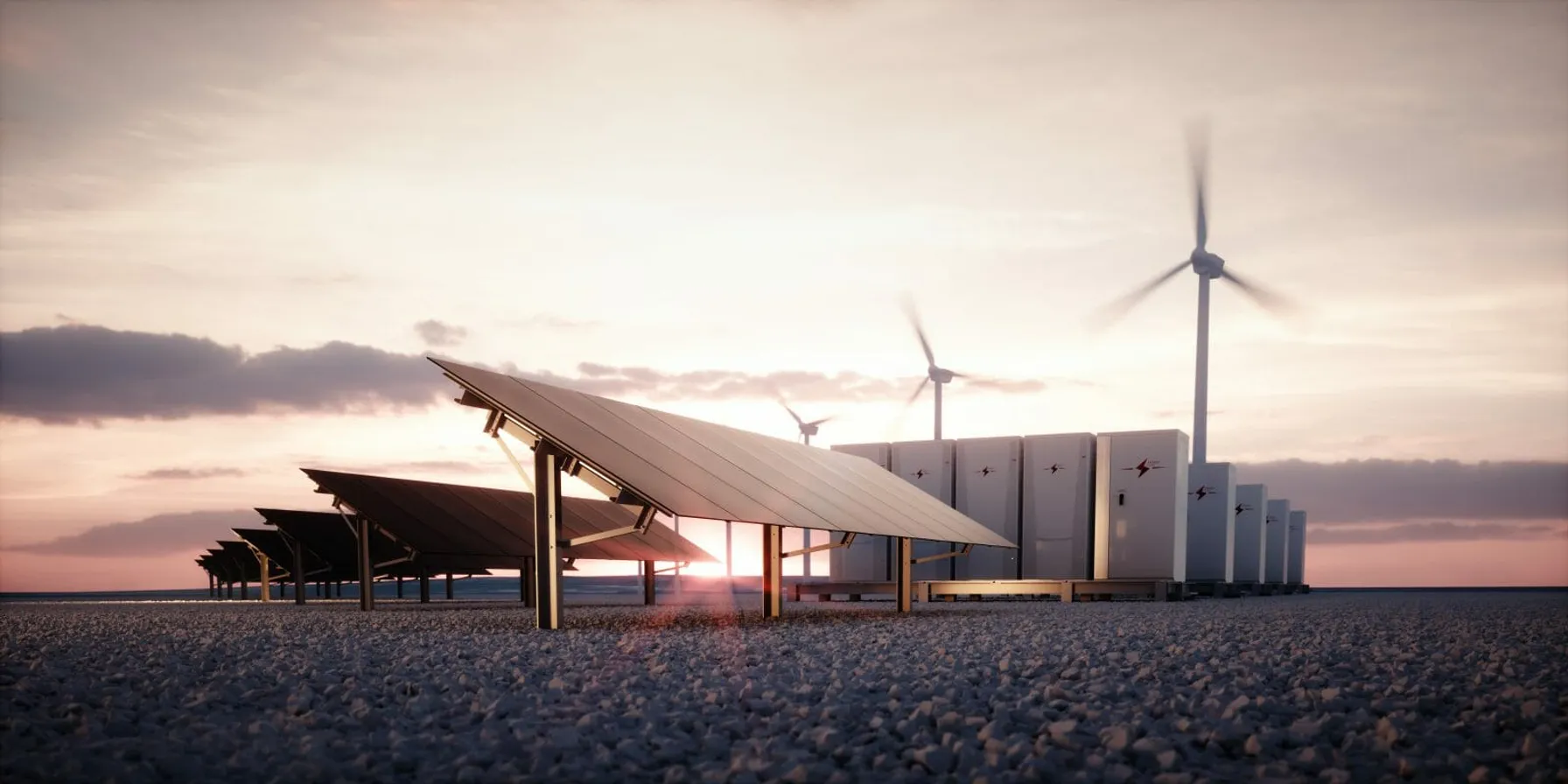
NERC Issues Battery Energy Storage Systems Reliability Guidance
April 22, 2021
While NERC has recently published a reliability guideline addressing inverter-based resources generally, they are now giving more attention to the various potential uses of BESS to support effective implementation with newly released guidance.

5 Persistent Questions About ArcGIS on HANA
April 9, 2021
While ArcGIS on HANA implementation patterns are emerging rapidly, we continue to hear 5 persistent questions about how implementing ArcGIS on HANA would benefit an organization. Let’s walk through these 5 questions, I’ll show you how we help you get started with ArcGIS on HANA. Then you may realize the benefits this solution promises.

NERC Proposes Revisions to CIP-008
March 27, 2021
NERC’s CIP-008 standard aims to mitigate reliability risks resulting from a Cyber Security Incident by specifying incident response requirements. Newly proposed revisions would augment mandatory reporting to include incidents that compromise, or attempt to compromise, a utility’s Electronic Security Perimeter (ESP) or associated Electronic Access Control or Monitoring Systems (EACMS).

NERC Releases 2021 Compliance Monitoring and Enforcement Findings
February 8, 2021
NERC’s 2021 Compliance Monitoring and Enforcement Program reframes the previous year’s risks and their associated areas of focus. Utilities should review their compliance programs and internal controls to determine if enhancement or changes are need to maintain compliance.
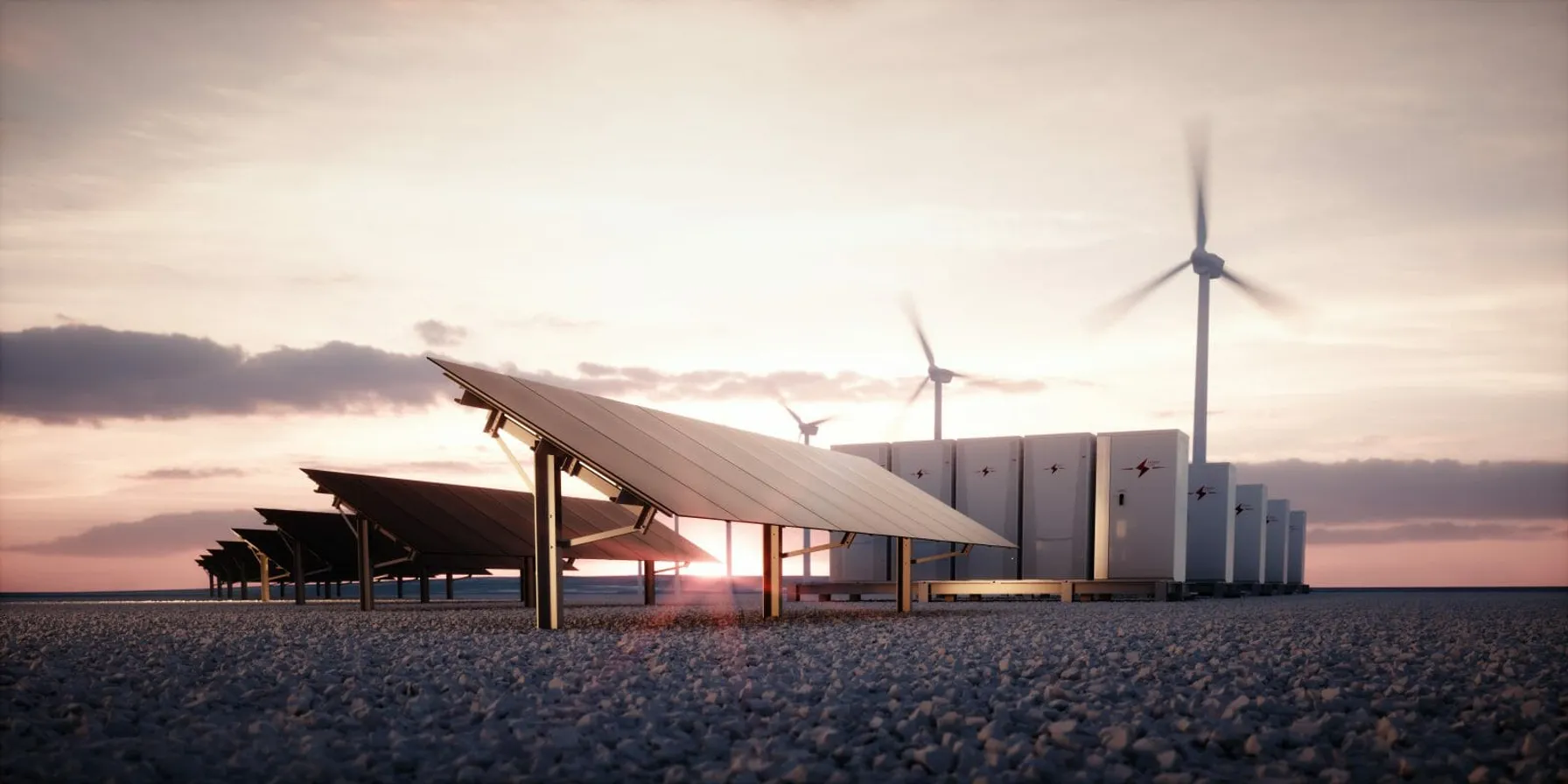
NERC Proposes Revision of Pending TPL-001-5.1 Standard
January 20, 2021
NERC has recently undertaken important standards and guidance development activities related to the proliferation of inverter-based technologies such as solar and wind generation, as well as battery energy storage which is growing as an industry solution to ensure the reliability of renewable power for end-use customers.
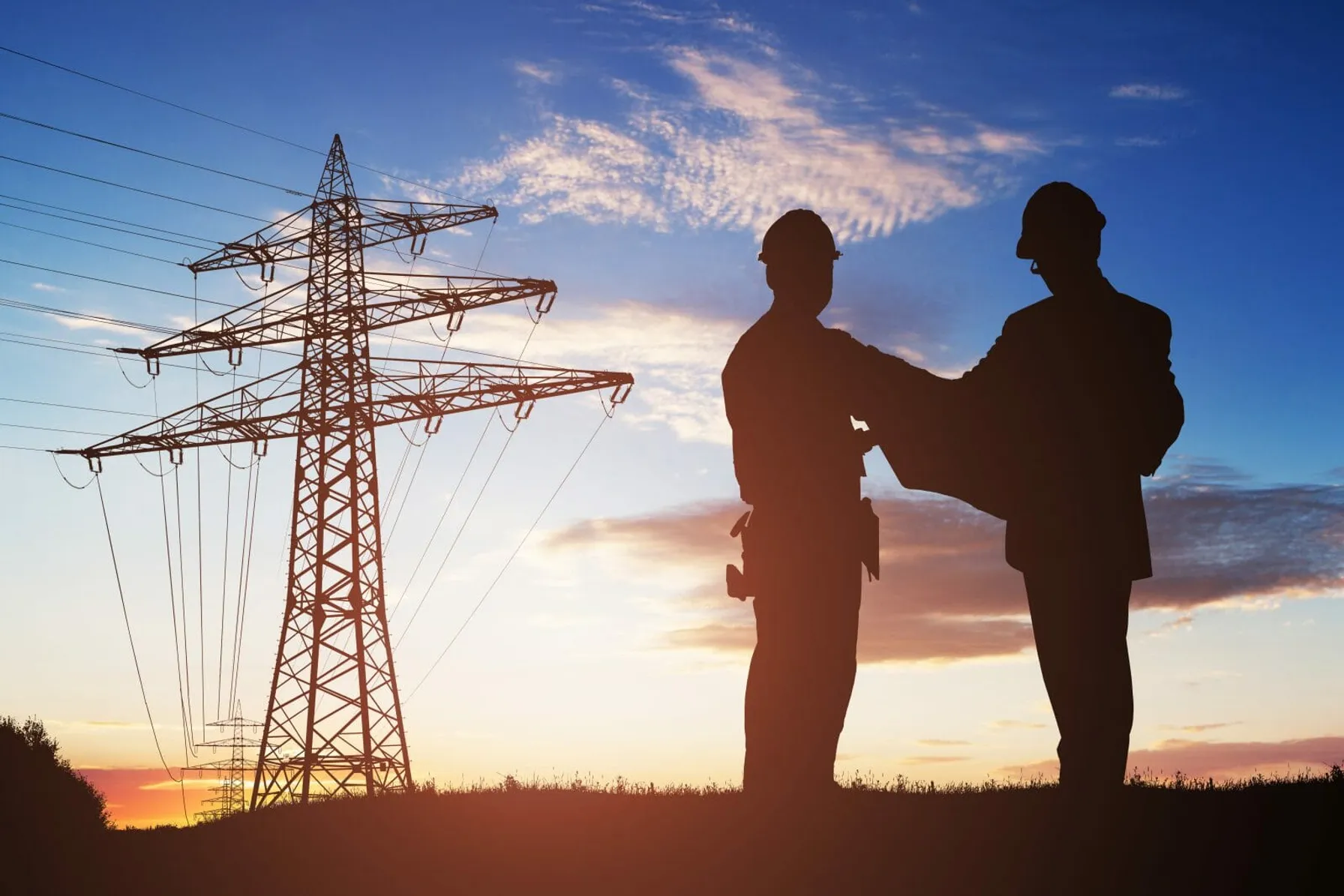
NERC and FERC Take Action on Facilities Ratings
December 4, 2020
There has been significant work across the electric industry to improve facility ratings related processes, programs, frameworks, internal controls and best practices. Yet this continues to be a challenging area for utilities, particularly from an asset management and regulatory compliance perspective.

FERC Issues Annual Report on Critical Infrastructure Protection (CIP) Reliability Audits
November 17, 2020
In its 2020 Report on CIP Reliability Audits, the Federal Energy Regulatory Commission found that most of the cybersecurity protection processes and procedures adopted by utilities met the mandatory CIP requirements for protecting the Bulk Electric System. However, there are areas for improvement.

NERC Issues 2020 State of Reliability Report
September 22, 2020
The Report identifies areas of ongoing concern including generation reserve margins and the reliability risk from shifting the resource mix toward renewables.

TRC Digital and Reactive help utilities measure inertia for a more resilient grid
September 21, 2020
Together, TRC and Reactive combine TRC’s industry-leading power engineering expertise with Reactive’s machine learning software to provide utility teams with high-resolution frequency monitoring and automatic event analysis.

NERC Reliability Standard PRC-024-3 Approved: Frequency and Voltage Protection Settings for Generating Resources
July 28, 2020
On July 9, 2020 NERC standard PRC-024-3 was approved, paving the way for improved protection systems in support of keeping generating resources connected during defined frequency and voltage excursions.

Summary of NERC CIP Standards Updates
June 29, 2020
FERC has released a notice of inquiry seeking comments on potential enhancements to NERC’s Critical Infrastructure Protection (CIP) Reliability Standards.

TRC Digital Partners with Treverity to Put Utility Engineers at the Center of Their Data
June 26, 2020
As part of TRC’s LineHub solution, Treverity helps transmission engineers get a holistic view of the grid through powerful digital data visualization and a customer-centric user interface.
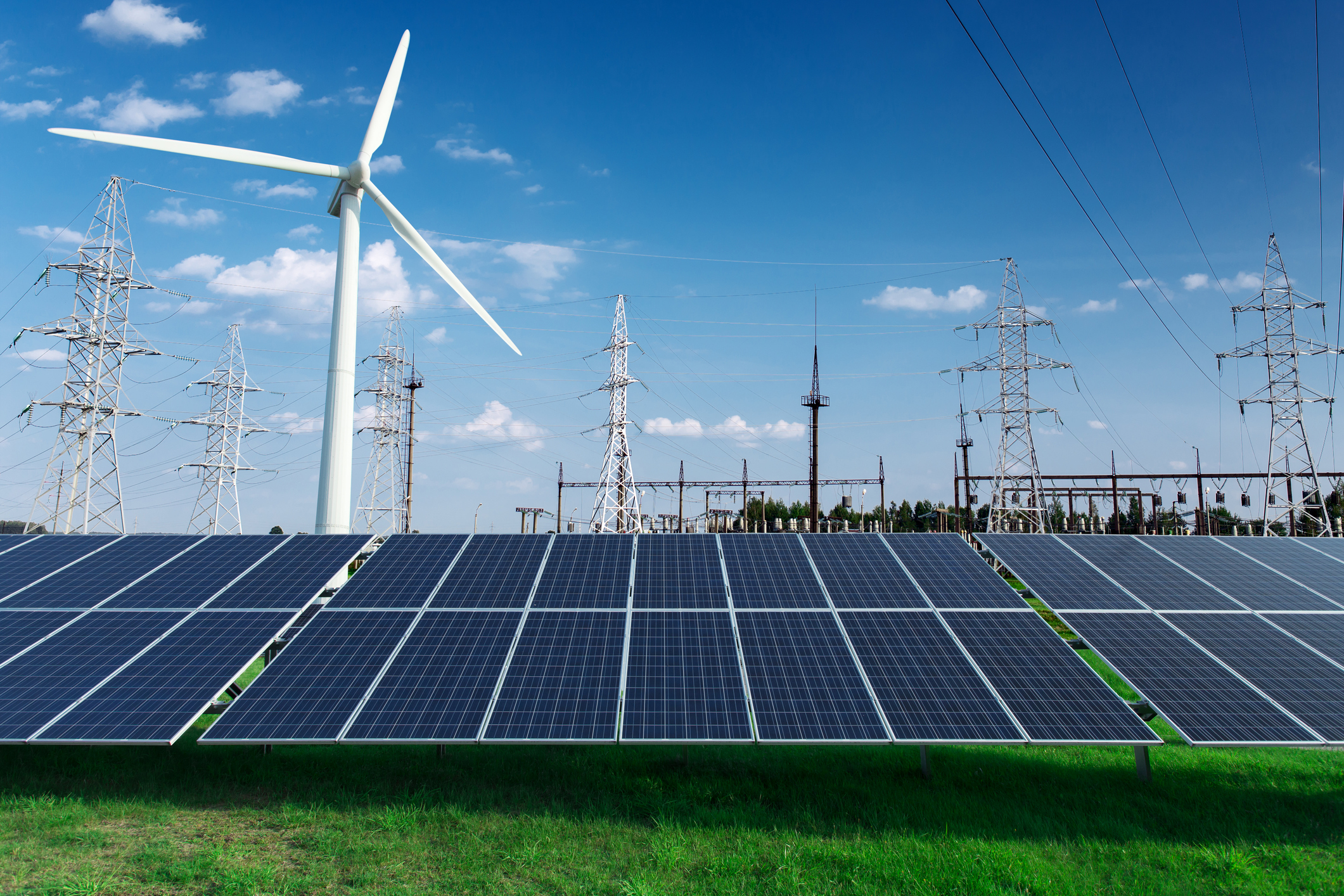
TRC Digital and Enbala can help utilities monitor, control and optimize distributed energy resources
April 17, 2020
Distributed energy resources (DERs) are changing the way utilities think about power generation and energy flow. TRC and Enbala can offer utilities a multi-layered solution that highlights the strengths of each company.
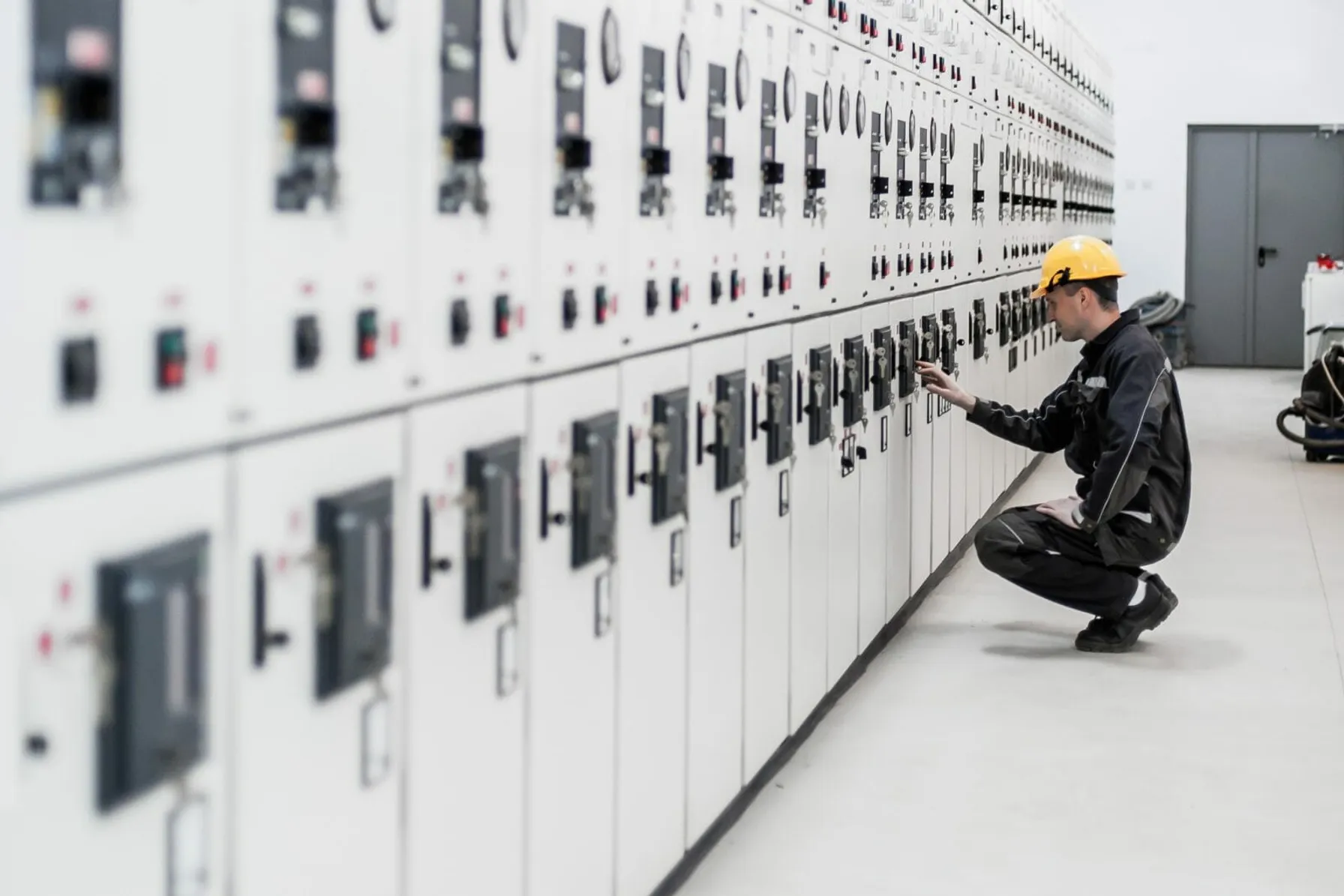
NERC Protection System Compliance Studies Due This Year
February 24, 2020
NERC’s PRC-027-1 standard was approved by FERC in 2018 and is set to go into effect on October 1, 2020. Utilities should begin preparing now to meet compliance requirements which include significant system studies.

Strategic Electrification
February 4, 2020
As we look to spur strategic electrification across the US, it will be up energy providers and solution implementers to continue sharing ideas, insights and lessons learned
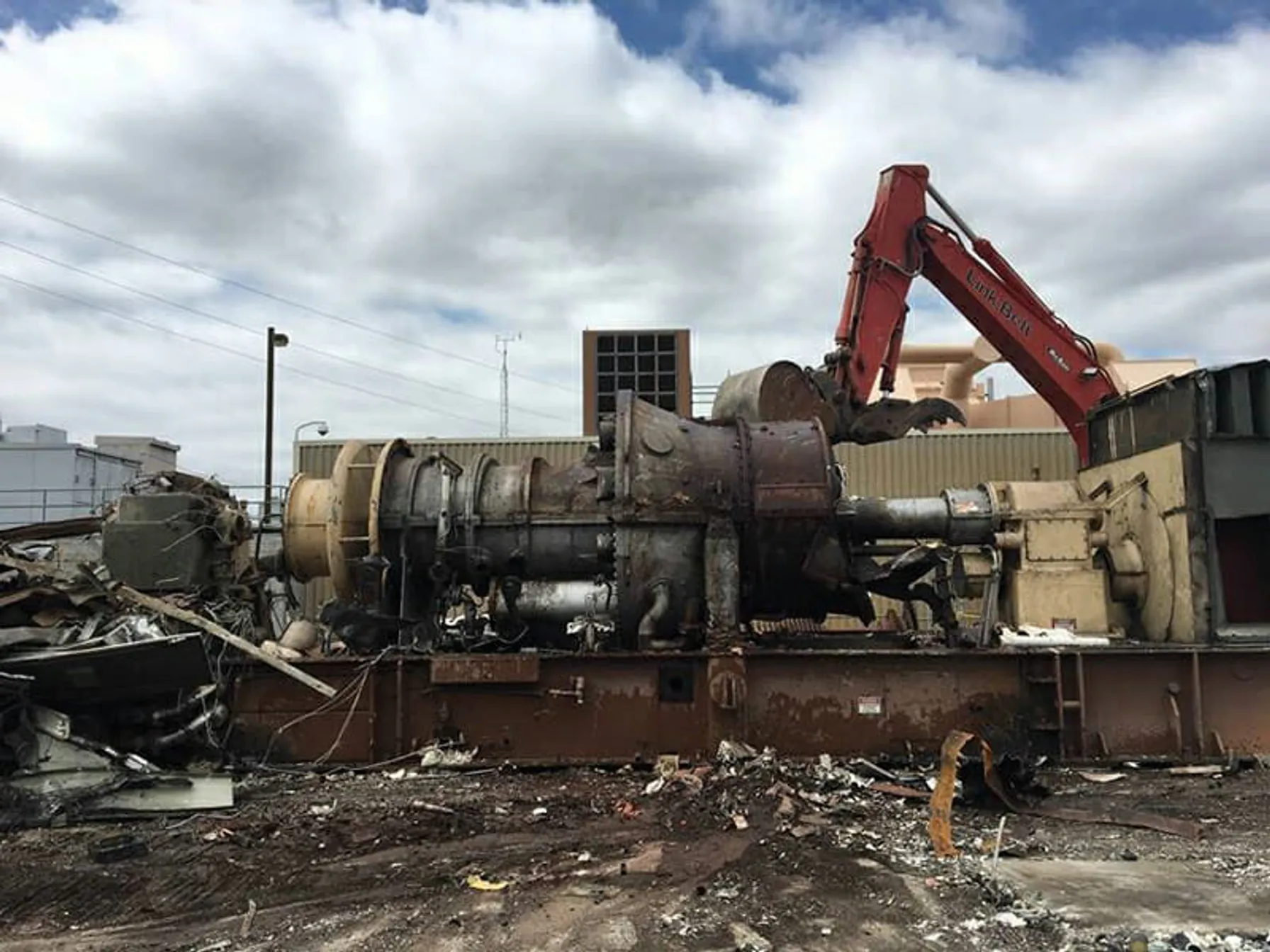
New York State Finalizes Emission Limits for Power Generators
January 21, 2020
On January 16, 2020, the New York State Department of Environmental Conservation (NYSDEC) finalized a rulemaking limiting nitrogen oxide (NOx) emissions from existing simple cycle and regenerative peaking combustion turbines with a nameplate capacity of 15 megawatts (MW) or greater during the ozone season (May 1 – October 31).
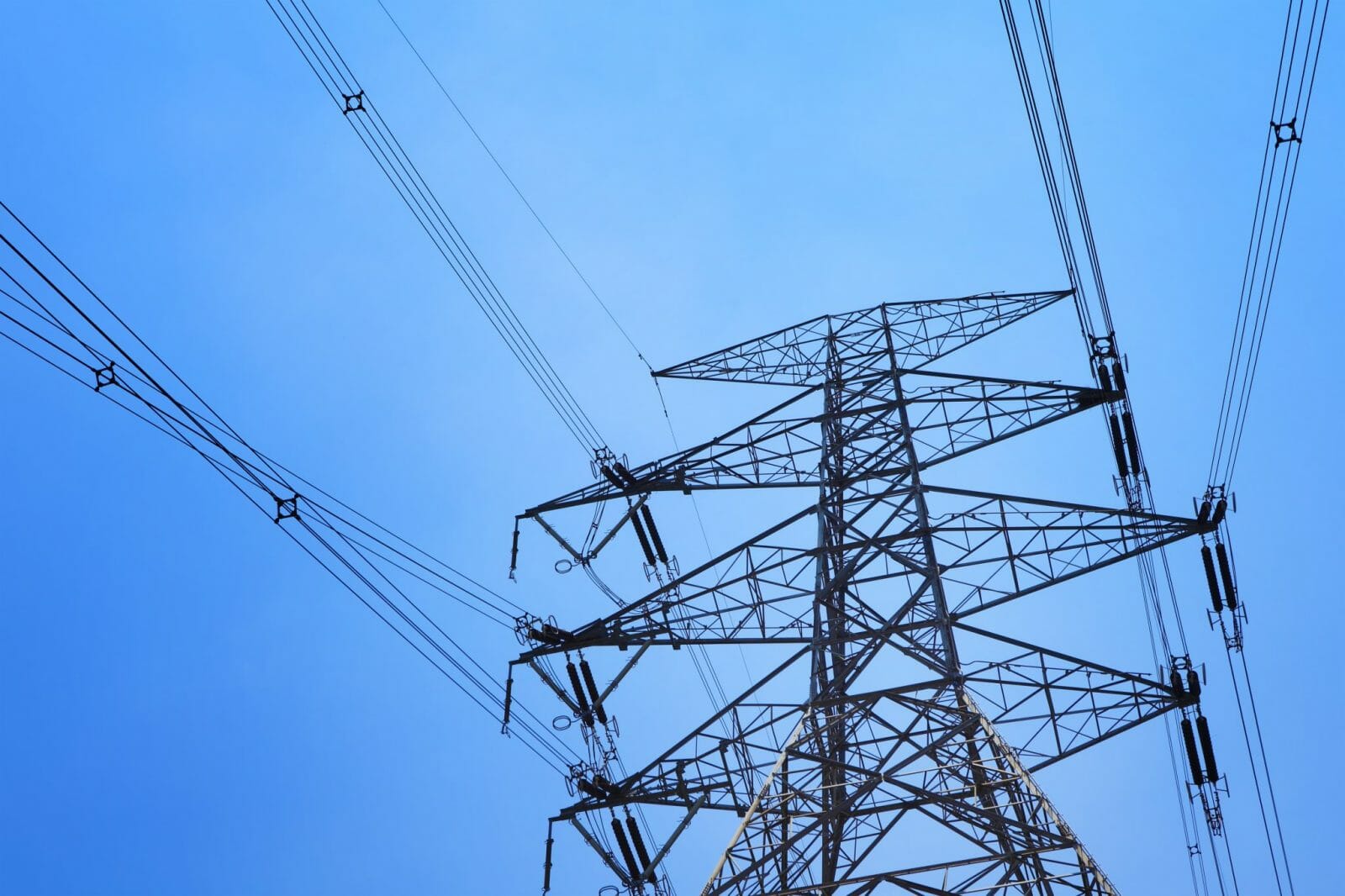
NERC Compliance Assurance: Maintaining Cross Functional Data Integrity
January 21, 2020
Assuring continued power system reliability is a complex undertaking for utilities. Balancing the demands of system changes and regulatory compliance is an essential strategy for optimizing ongoing operations. Given the wide range of NERC standard families that require simultaneous data management for compliance, data integrity, data flow and data verification are critical for avoiding violations that can impact electric service to customers and communities.

NERC Reliability Report Prioritizes Power System Security Risks for Action
January 2, 2020
NERC’s 2019 ERO Reliability Risk Priorities Report identified and prioritized the major risks facing the utility industry with a particular focus on security issues.
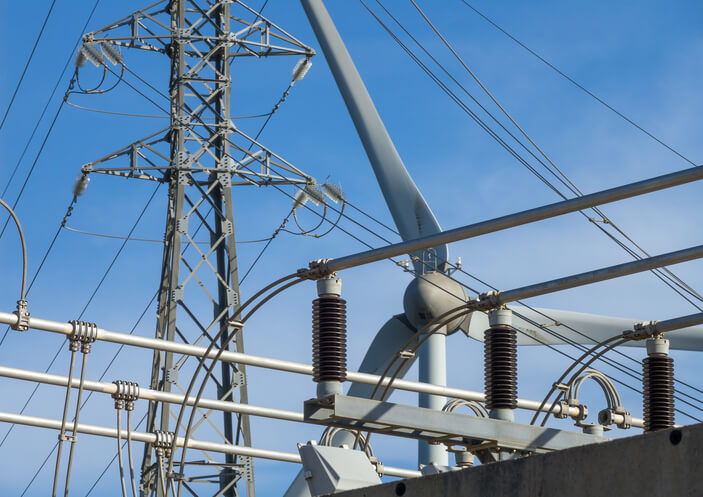
NERC Reliability Report Prioritizes Power System Risks
November 21, 2019
Looking ahead to the many changes coming to North America’s Bulk Power System (BPS), NERC’s 2019 ERO Reliability Risk Priorities Report highlights the top issues requiring industry and regulatory attention and recommends actions for the ongoing protection of BPS reliability.
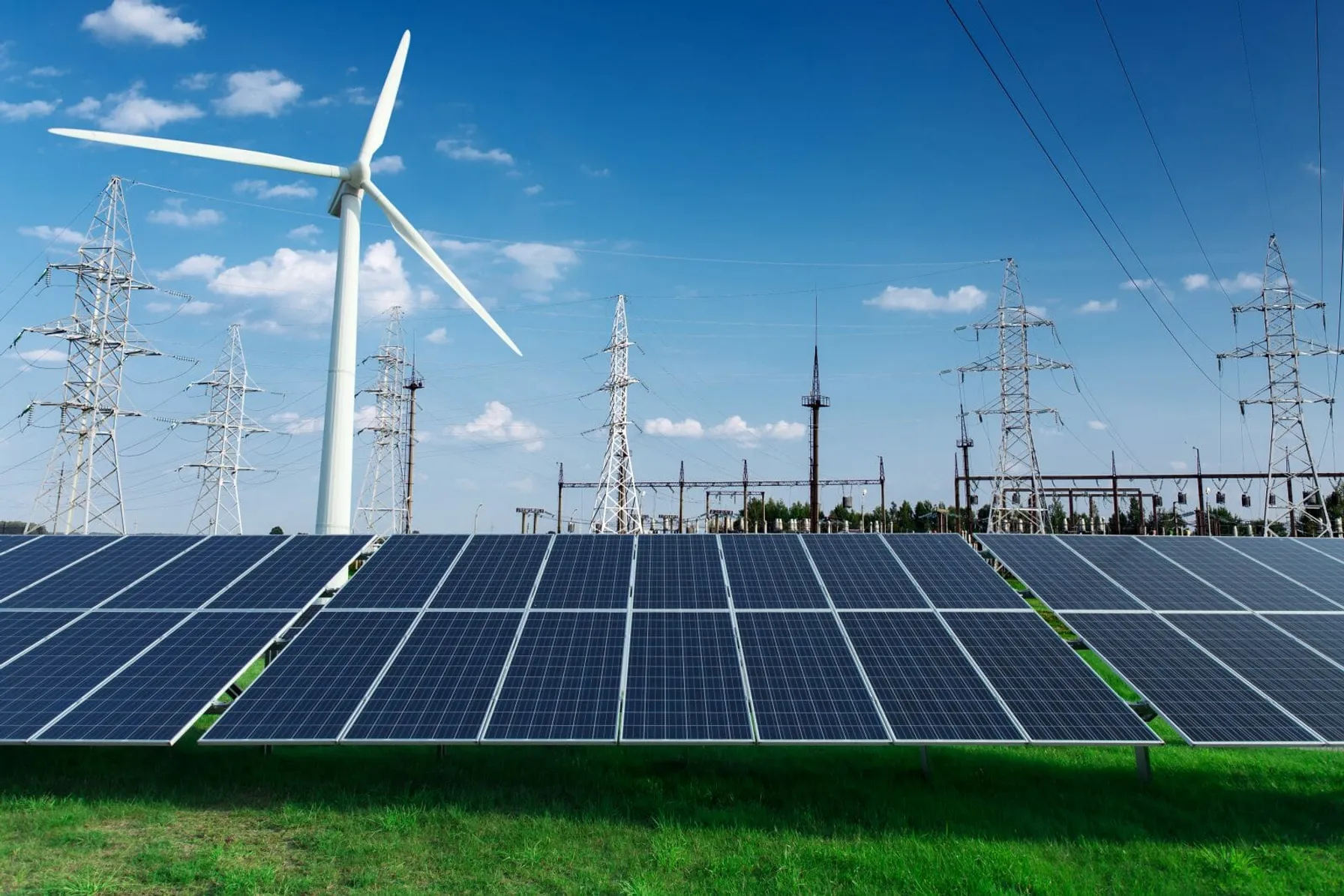
NERC Pursues Changes to Protection Relay and Control (PRC) Standards
September 24, 2019
Two Standards Authorization Requests currently being debated in the NERC stakeholder engagement process could help clarify PRC standards obligations for generator owners and operators.
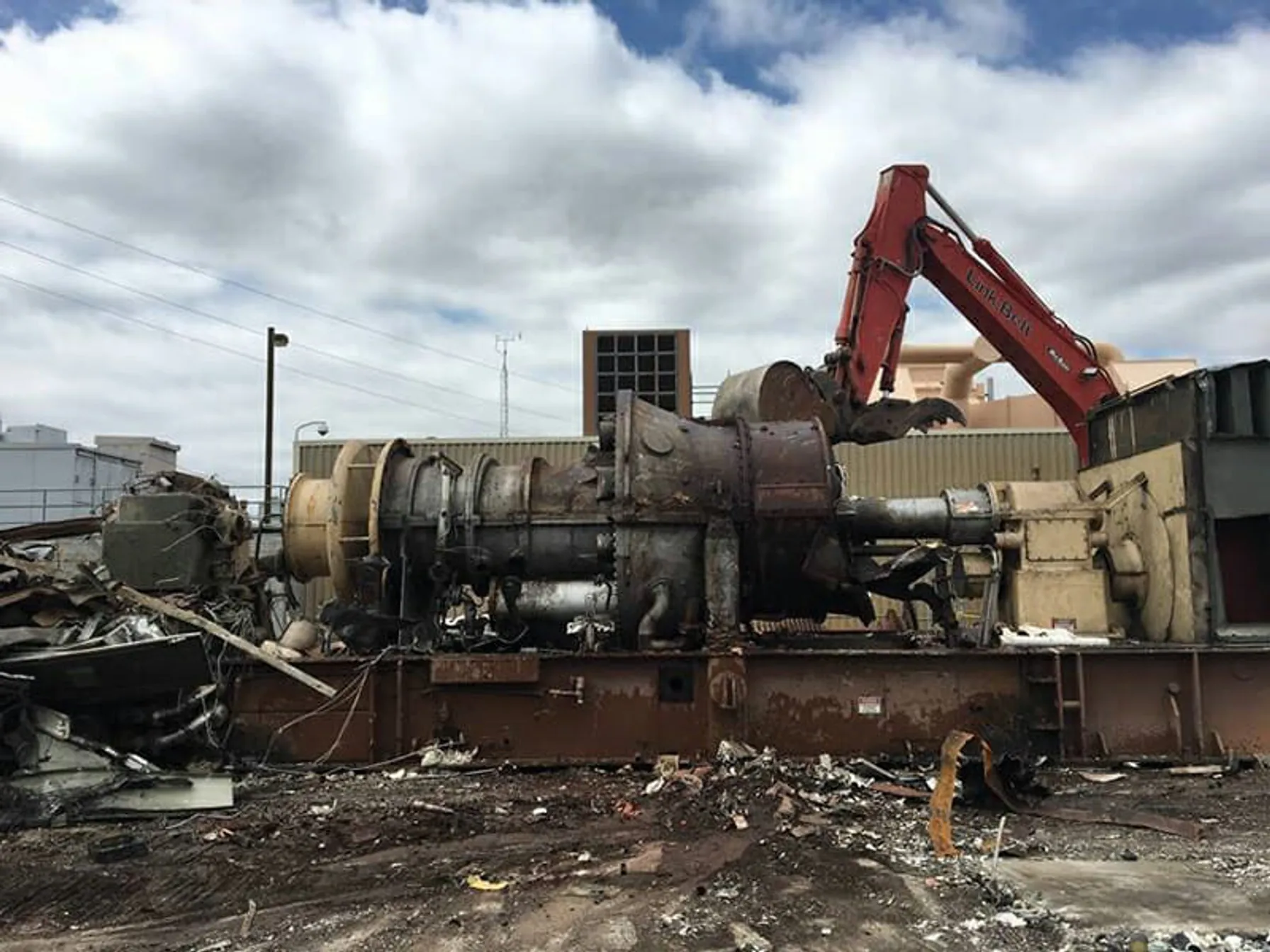
New York State Proposes Emissions Limits for Power Generators
March 22, 2019
On February 27, 2019, the New York State Department of Environmental Conservation (NYSDEC) released a proposed rulemaking limiting nitrogen oxide (NOx) emissions from existing simple cycle and regenerative peaking combustion turbines with a nameplate capacity of 15 megawatts (MW) or greater during the ozone season (May 1 – October 31).

NERC to Modify Standard and Develop Compliance Guidance to Accommodate Inverter-Based Generation Technologies
February 20, 2019
Renewable energy systems have dramatically changed the power generation resource mix. These new generation technologies no longer involve directly coupled rotating generators which were once standard in the industry. Now, inverters that change Direct Current (DC) electricity to the Alternating Current (AC) electricity suitable for delivery via AC transmission systems are becoming more prevalent, raising reliability…
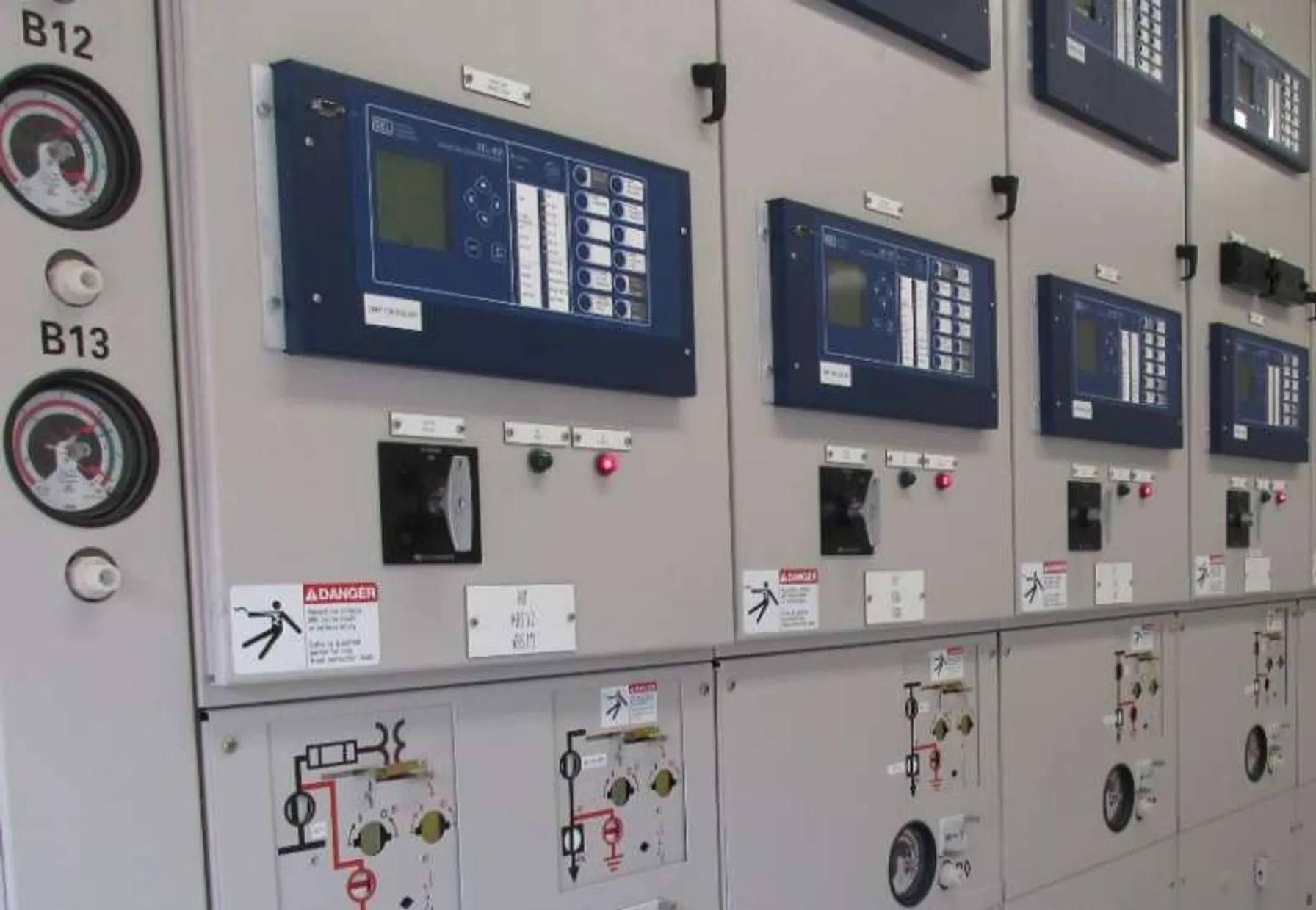
NERC Addresses Single Points of Failure in Protection Systems Among Other FERC Concerns
October 25, 2018
In 2017 Oregon Governor Kate Brown took bold action by directing state agencies to chart a 10-year course towards greater energy efficiency in affordable housing to help remove the energy burden on low-income communities. This initiative took flight under the direction of the Oregon Housing and Community Services, the Oregon Public Utility Commission and the Oregon Department of Energy, which created the newly released Ten-Year Plan: Reducing the Energy Burden in Oregon Affordable Housing. Last summer, OHCS hired TRC to assist in the development of these two deliverables. As the Project Lead, I was given the opportunity to experience first-hand both the excitement and challenges of this initiative. After almost 15 years working on low-income energy efficiency programs, this project allowed me to view this familiar topic through a new lens. Instead of designing a building-level incentive program, I was focused on the low-income population – the actual people living with energy challenges – and evaluating how efficiency could help to reduce their economic, health and housing burdens. One of my first discoveries was an analysis of the energy burden gap of the low-income population in Oregon that showed the difference between a typical low-income household’s actual energy costs and an affordable energy cost (6 percent of the household’s income) is significant – and totaled $345 million statewide in 2017. (Nationwide, that gap is over $47 billion per year.) Despite my surprise at the size of this gap, I still wasn’t prepared for what we found next.

NERC Proposes Compliance Monitoring and Enforcement Plan for 2019
September 26, 2018
This month, NERC released the first draft of its 2019 Compliance Monitoring and Enforcement Plan (CMEP) which identifies power delivery system risks and outlines compliance audit requirements for next year. The risk elements outlined in the plan include significant differences from previous years, as shown in the table below. Each NERC region must consider these risks as they develop their monitoring and audit scopes for utilities. Utilities should be prepared to be audited and implement any necessary compliance initiatives in these areas.

NERC Calls for New Approach to Reliability Planning Due to Gas Supply Disruption Risks
December 14, 2017
A recently published NERC report concludes that as reliance on natural gas to meet electric generation requirements increases, additional planning and operational measures must be considered to mitigate power system reliability risks.
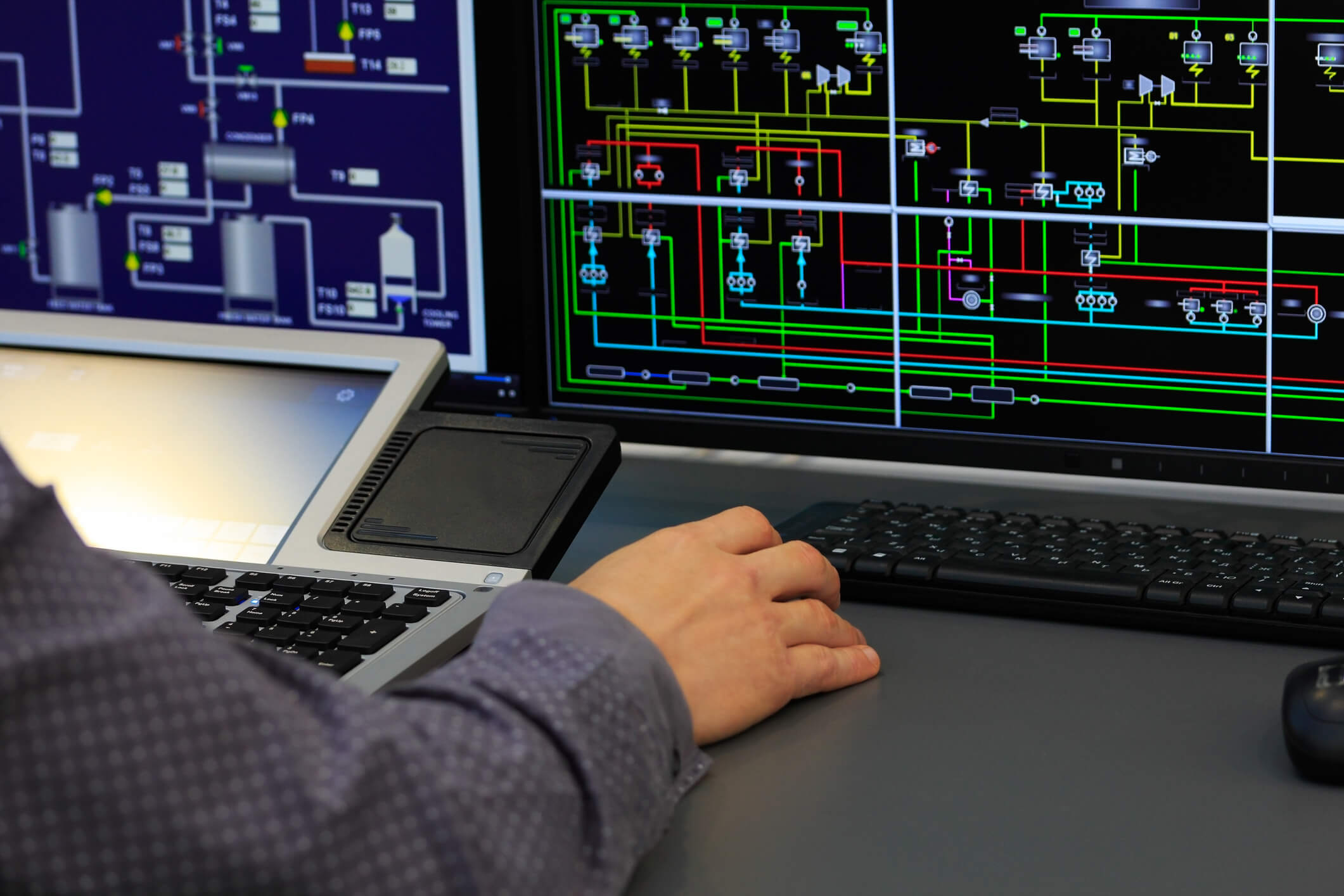
NERC CIP-013-1 Standard for Supply Chain Risk Management
September 29, 2017
NERC has filed mandatory standard CIP-013-1 for supply chain risk management, requiring controls to mitigate cyber threats and their impact to the reliable operation of the Bulk Electric System.
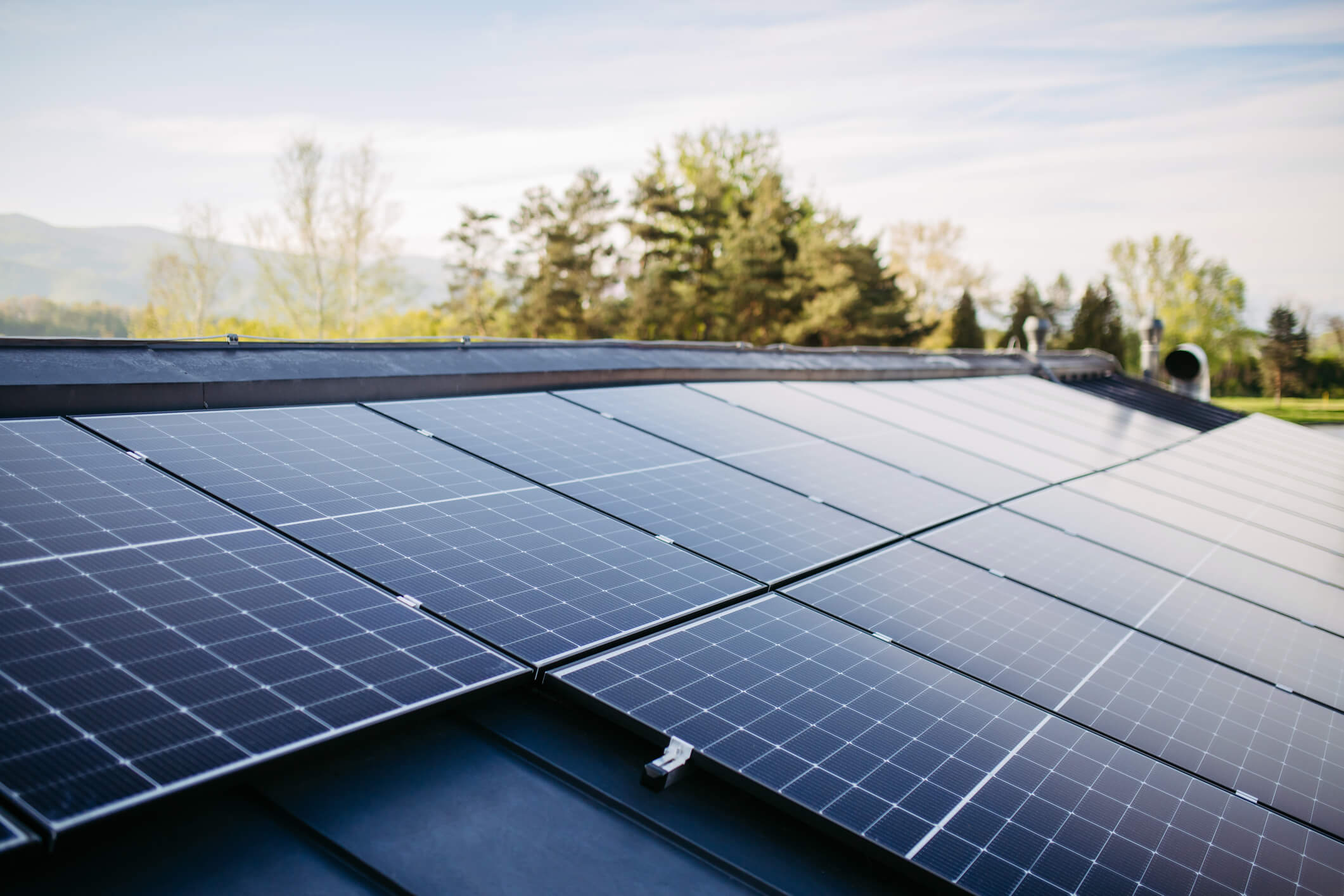
NERC Identifies New Reliability Risk due to Utility Scale Solar Generation Inverter Design
June 13, 2017
NERC has released a report documenting its findings and recommendations related to reliability risks from utility scale solar generation projects with implications for PRC-024 compliance, as well as generation, interconnection and protection system technologies.
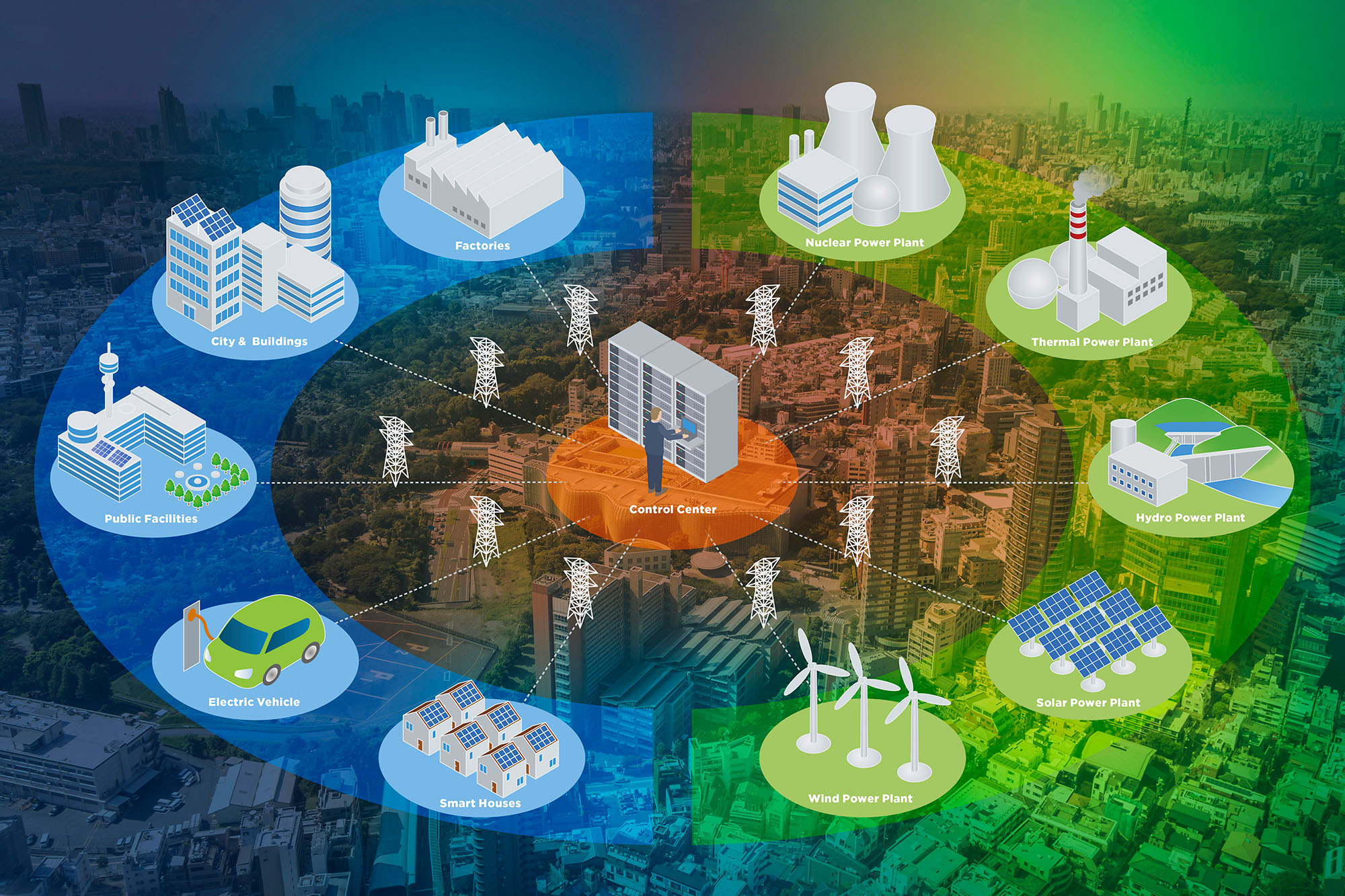
TRC and partners win $1 million grant for engineering innovative New York microgrid
April 20, 2017
TRC is proud to support Huntington, NY bolster power reliability and climate-change resiliency with a sophisticated new “community microgrid’’ combining solar energy, a fuel cell, biogas and traditional natural gas to deliver electricity and heat to local customers and institutions.
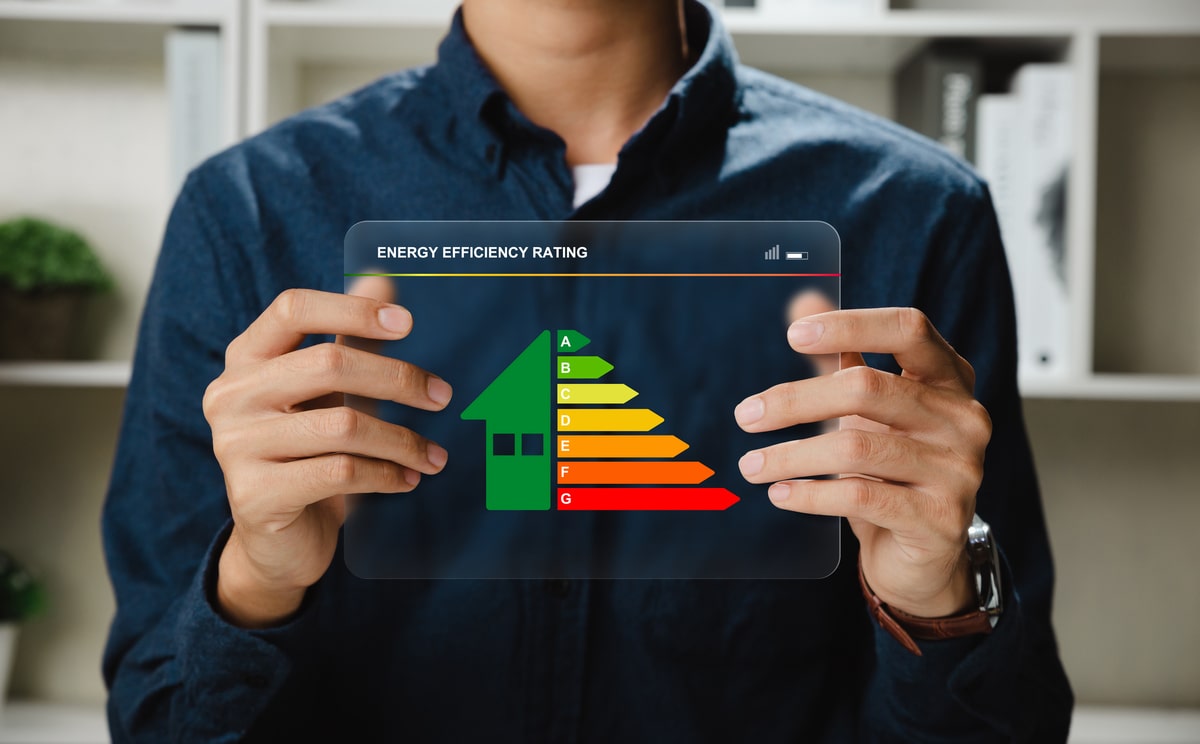
Looking ahead: a changing energy landscape and strategies for success
February 13, 2017
Amid all the changes in the energy industry in 2017, one of the most interesting and complex is playing out in California and New York as those states begin to re-think how best to value and purchase energy efficiency. As TRC’s Carmen Henrikson and Bob Callender explain in this TRC article, the era of paying…

Successful Interconnection of Utility Scale Solar Projects – Strategies to Stay on Schedule and on Budget
November 2, 2016
Growth in solar power creates challenges for both project proponents and utilities. TRC has reviewed hundreds of interconnection applications for utility partners, and we’ve learned important strategies for reducing the time and costs associated with interconnecting projects 1 megawatt or greater.

NERC Standard Extends Maintenance Program Obligations to Generators
February 3, 2014
The approval of NERC Standard PRC-005-2 extends protection system maintenance obligations to Generators and crates one comprehensive standard establishing minimum maintenance activities and maximum time intervals for protection systems and load shedding equipment affecting the bulk electric system.

Enhance Security Planning and Reporting with Key Takeaways from NERC’s 2024 Cyber Report
May 30, 2025
NERC has issued its 2024 Cyber Security Report, reviewing reported incidents related to Reliability Standard CIP-008-6.

Challenges Surround Approval of PRC-029-1
April 30, 2025
Approved by the Board of Trustees in 2024, NERC’s PRC-029-1 standard sets inverter-based resources (IBR) performance requirements ensuring they can “withstand voltage or frequency disturbances inside defined limits” and can “continue operating as specified.”
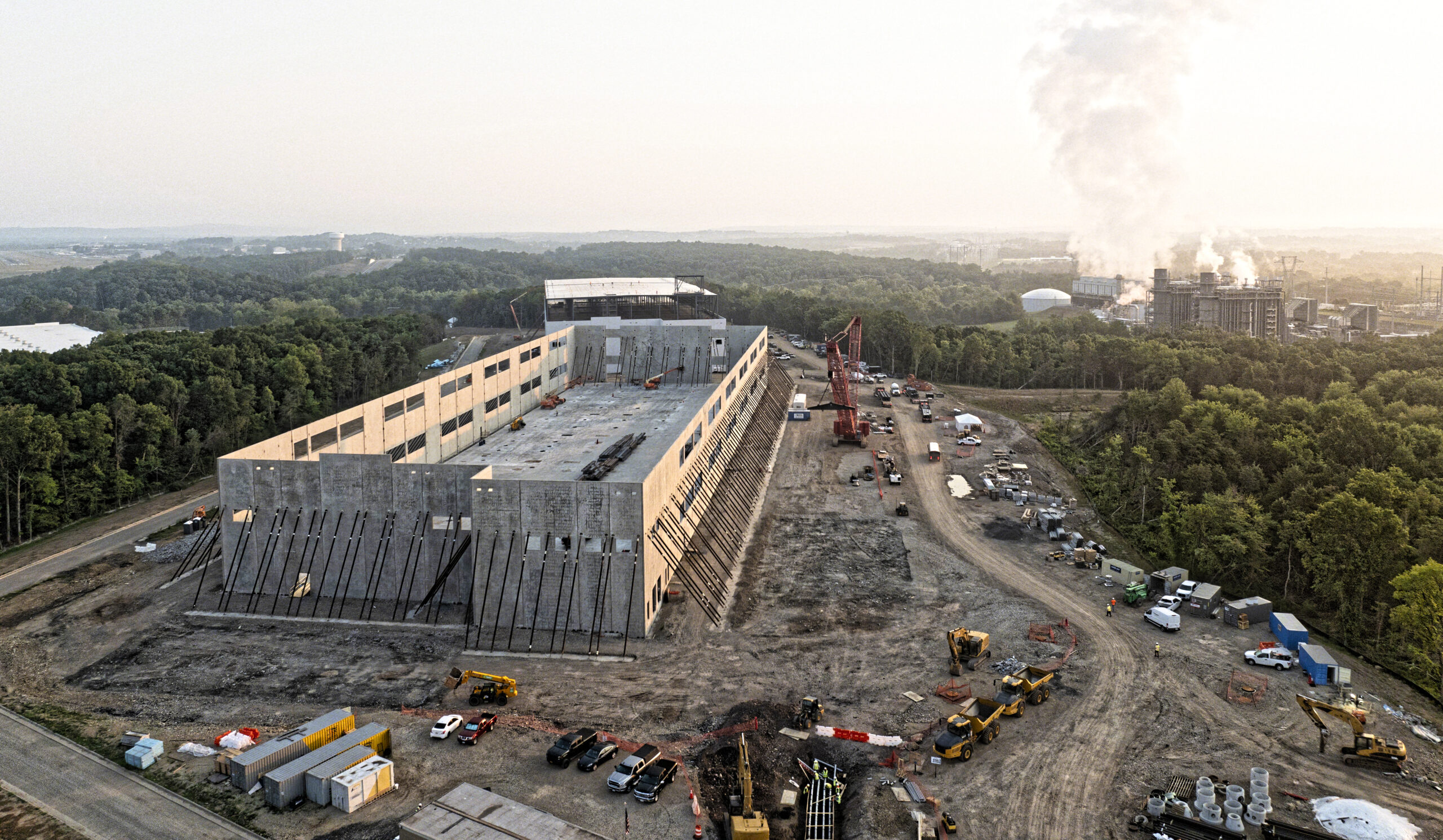
FERC Examines Co-Located Load and Generation Rule
April 21, 2025
Since FERC hosted its technical conference in late 2024, many industry stakeholders have submitted their comments addressing how to study and potentially regulate new co-located load and generation.
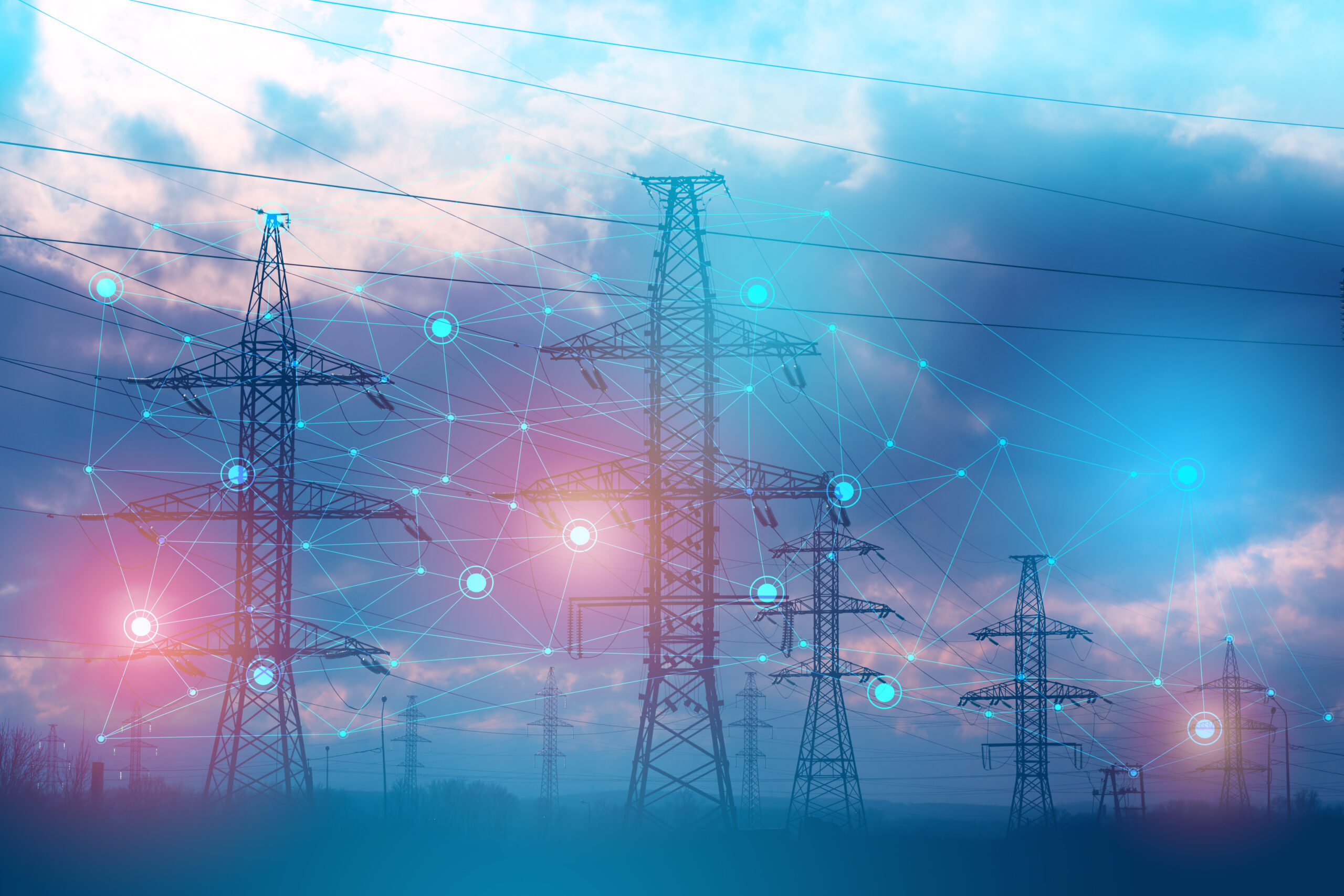
Cybersecurity Threats Lead NERC to Modify CIP Standards
March 11, 2025
Cybersecurity threats to the Bulk Electric System (BES) are escalating, with attackers continuously evolving their tactics to target critical infrastructure.

Large Data Center Load Loss Calls for System Impact Studies
March 3, 2025
On January 8, 2025, NERC released its review of an incident where the sudden loss of approximately 1,500 MW of data center load in Virginia exposed major reliability vulnerabilities in the Bulk Electric System (BES). This unanticipated event triggered voltage spikes and frequency imbalances, highlighting the need for system planners and operators to anticipate and mitigate these risks nationwide
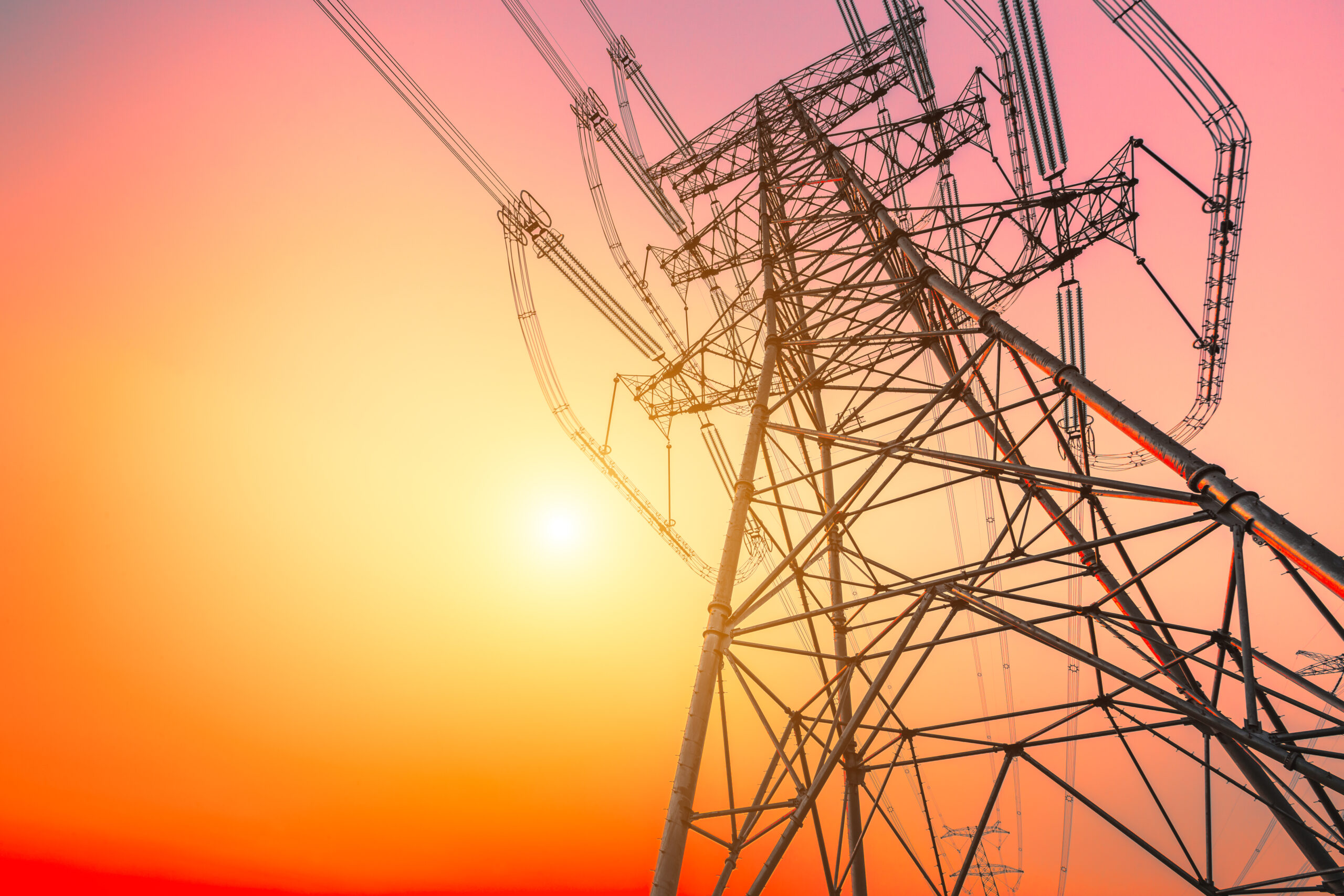
NERC Approves New Extreme Weather Planning Standard
January 22, 2025
On December 10, 2024, NERC’s Board of Trustees approved standard TPL-008-1 Transmission System Planning Performance Requirements for Extreme Temperature Events. The petition to approve the TPL-008-1 standard was filed with the Federal Energy Regulatory Commission (FERC) on December 17, 2024 and will initiate the implementation plan upon final approval.

FERC Issues Guidance to Improve Power System Security and CIP Compliance
September 30, 2024
This update provides details from FERC 2024 staff report from CIP audits, so utilities can improve compliance and reduce security risks.

NERC Releases 2024 State of Reliability Report
September 19, 2024
The North American Electric Reliability Corporation (NERC) recently released its 2024 State of Reliability report, examining power system performance in calendar year 2023.

Facility Ratings Compliance Through a Corporate Community Approach
August 30, 2024
Facility Ratings play a critical role in the reliable planning and operation of the Bulk Electric System (BES) and yet maintaining compliance with relevant NERC standards remains an industry challenge.

Extreme Geomagnetic Disturbances Impact NERC Planning
August 8, 2024
Learn about the recent geomagnetic disturbance which caused stakeholders within the bulk power system to react swiftly to protect grid reliability. Find out the impacts and what NERC and the industry are doing about it.

Consistent NERC Compliance Evidence for Successful Audit Outcomes
June 27, 2024
While utilities often work in technical silos, NERC auditors are trained to cross check compliance evidence and data between interrelated standards.

New NERC Standards Help Protect Against Cyber Attacks
May 23, 2024
As part of NERC’s ongoing effort to bolster Critical Infrastructure Protection (CIP) requirements and enable the implementation of a security improvement concept known as virtualization.

NERC Compliance Success Through a Corporate Community Approach
May 6, 2024
NERC has released a report concluding that the increasing interdependence of the power system and the natural gas delivery system has resulted in new electric reliability risks. NERC’s Special Assessment: Potential Bulk Power System Impacts Due to Severe Disruptions on the Natural Gas System notes that as reliance on natural gas to meet electric generation requirements increases, additional planning and operational measures must be considered to better mitigate power system reliability risks. Recommended Actions Utilities should consider the loss of key natural gas infrastructure in their planning studies. Utilities should develop criteria to evaluate large-scale power delivery system reliability impacts due to loss of natural gas pipelines, LNG, compressor stations, or natural gas storage facilities in the extreme event list as detailed in the Transmission Planning NERC Reliability Standard (TPL-001-4). The criteria should also consider capacity and energy limitations, including seasonal replenishment requirements of gas storage facilities. Pipeline systems should be planned with the equivalent of N-1 contingency planning to assure deliverability of natural gas in the event of a pipeline, LNG terminal, or gas storage facility outage. Owners and operators of dual fuel capable generators must ensure operability on their secondary fuel. Generator Owners and Operators of units with dual fuel capability should maintain and regularly test fuel switching operational capabilities and back up fuel inventories at units to ensure that dual fuel capable units provide adequate resilience in the event of a natural gas outage.

NERC Proposes Changes to Registration Criteria for Inverter Based Resources (IBRs)
April 19, 2024
NERC has submitted for FERC approval new compliance criteria for the registration of IBRs as part of continuing efforts to address reliability risks. It is critical for renewable energy developers, generation owners and transmission owners to understand the potential implications for interconnection studies and interconnection queues.

NERC Proposes Clarifications to EOP Cold Weather Standards
March 26, 2024
NERC has submitted proposed revisions to the EOP-012-2 – Extreme Cold Weather Preparedness and Operations standard, for FERC approval on an expedited basis. The proposed revisions address the remaining key recommendations from the FERC–NERC Joint Inquiry Report into Winter Storm Uri and directives arising from a 2023 FERC Order regarding the previously submitted cold weather standards.

Update to FAC-003-5 Brings Sweeping Changes to Transmission Classifications Starting April 1
March 19, 2024
Update to FAC-003-5 Brings Sweeping Changes to Transmission Classifications Starting April 1

Prevent NERC Compliance Failures with Readiness Reviews
February 20, 2024
Every NERC-registered utility must strive for continuous compliance with their portfolio of applicable NERC Reliability Standards

NERC Releases 2024-2026 Standards Development Plan
January 26, 2024
NERC has submitted its 2024-2026 Reliability Standards Development Plan to the Federal Energy Regulatory Commission (FERC), outlining its current priorities and future standard development plans to protect the reliability of the Bulk Power System over the next three years.

NERC & FERC Release Winter Storm Elliott Report
January 2, 2024
NERC and FERC have released their final report on Winter Storm Elliott which provides reinforcement for recommendations in prior cold weather-related disturbance event reports. The Report identifies critical reliability performance shortcomings and the reliability related near misses. NERC states that a crisis was “narrowly dodged.” The Report outlines the steps the industry must take to avoid a repeat in the future.

FERC Order 901 Calls for Standards to Address IBR Reliability Gaps
November 27, 2023
Inverter Based Resources are playing central role when it comes to adding new electric generation capacity into the bulk power system.

NERC Releases Inverter Based Resources Webinar Series
October 19, 2023
As the power delivery system continues to rapidly evolve due to decarbonization policy initiatives, inverter-based resources (IBRs) are playing an ever-more significant role in generation additions to the bulk power system. NERC and other technical organizations have taken numerous actions to support the reliable integration of these resources.

FERC Issues Order 2023 to Resolve Interconnection Process Issues
September 25, 2023
The Federal Energy Regulatory Commission has approved Order 2023 to facilitate and improve the speed and reliability of adding new energy resources to the power system

CFATS Program Expires but Reauthorization Anticipated this Fall
September 6, 2023
Regulated organizations should continue to follow DHS cybersecurity requirements.

FERC Hosts Technical Conference on the Effectiveness and Improvements to CIP-014-3
August 30, 2023
Expert Discussions and Key Takeaways Focus on Physical Security

Intro to NERC Regulatory Guidance on Inverter-Based Resources
August 29, 2023
As renewable energy proliferates across the US power system, the North American Electric Reliability Corporation (NERC) continues to actively address reliability risks resulting from the implementation of inverter-based resources (solar and wind generation technology) connected at both transmission and Distributed Energy Resources (DER) levels.

FERC Extreme Weather Initiative Will Change the Transmission Planning Process
July 26, 2023
FERC issued a Final Rule directing NERC to develop a new or modified reliability standard addressing transmission system planning performance requirements for extreme heat or cold weather events.

FERC Approves Plan to Register Certain Inverter-Based Resources as part of NERC Mandatory Standards Compliance Program
June 21, 2023
FERC issued an order approving NERC’s compliance filings.

NERC Files Report on Effectiveness on CIP-014 Physical Security Standard
May 25, 2023
On behalf of the North American Electric Reliability Corporation (NERC), its President and CEO Jim Robb, recently presented to the Federal Energy Regulatory Commission (FERC) a summary of NERC’s report on the effectiveness of NERC’s CIP-014 Physical Security Standard. There were almost 1,700 physical security incidents reported to the Electricity-Information Security Analysis Center (E-ISAC) in 2022, an increase of 10.5% from 2021.

FERC Issues Order on Cold Weather Reliability Standards
April 27, 2023
FERC has approved two NERC proposed cold weather-related reliability standards.

FERC Orders Internal Network Security Monitoring Rule to be Finalized
March 14, 2023
FERC directed NERC to develop Reliability Standards to implement INSM within trusted CIP environments.

Insights from the Odessa II Power System Disturbance
February 22, 2023
NERC and TRE release the Odessa II Power System Disturbance Report

New FERC Orders Will Change Regulatory Process for Inverter Based Resources
January 9, 2023
The Federal Energy Regulatory Commission (FERC) recently proposed actions to keep the regulatory process and requirements ahead of reliability risks resulting from the accelerated deployment of Inverter Based Resources (IBR) based solar, wind and battery storage projects.

NERC Releases Facilities Ratings Best Practices Report
December 19, 2022
NERC report on best practices for utilities that have encountered facility ratings program challenges.

NERC Files Comments in the FERC Generator Interconnection Notice of Proposed Rulemaking
November 21, 2022
The rulemaking addresses improvements needed to reliably facilitate the power industry’s transition to renewable and distributed generating resources utilizing inverter-based technologies.

NERC Releases Inverter-Based Resource Strategy Plan
October 25, 2022
The North American Electric Reliability Corporation (NERC) recently released an Inverter-Based Resource (IBR) Strategy, which details the steps needed to successfully integrate IBR facilities into the planning and operation of the power system. The strategy was put in place due to the rapid interconnection of IBR systems, which are extensively used for solar and wind generating facilities, including new battery-based energy storage systems and are one of the most significant drivers of power grid transformation. Because of control system inconsistencies, IBR facilities pose well-documented risks to power system reliability when this strategy’s practices are not adhered to. NERC’s plan calls attention to the need for thoughtful integration of IBRs and identifies current and future work required to mitigate reliability risks resulting from the deployment of this technology.

NERC Releases 2022 State of Reliability Report
September 16, 2022
The North American Electric Reliability Corporation (NERC) recently released its 2022 State of Reliability report, which examines power system performance in calendar year 2021 and evaluates reliability performance trends. The 2022 report identified six key findings regarding power system performance that are summarized as follows:

NERC Proposes Implementation Guidance for PRC-019-2
August 22, 2022
NERC has proposed implementation guidance for PRC-019-2, the standard that verifies coordination of generating unit facility or synchronous condenser voltage regulating controls, limit functions, equipment capabilities and protection system settings.

Revisions to FAC-001 and FAC-002 Submitted for FERC Approval
July 12, 2022
Reliability Standards FAC-001-4 and FAC-002-will resolve uncertainty regarding the meaning of “materially modify” under the currently effective standards.

FERC Order No. 881-A Has Implications for NERC Compliance Programs
June 23, 2022
Updated Order will have significant impact on NERC compliance programs related to both PRC standards and facilities ratings. Utilities should review the Order’s requirements and prepare for changes needed to remain compliant.

NERC’s Revised PRC-024-3 Standard for Inverter-Based Generation Effective in October 2022
May 11, 2022
Changes to PRC-024-3 in support of inverter-based generation performance are going into effect in October of this year. Interconnection programs and documentation procedures may need to be updated in order to maintain compliance.

FERC Issues Notice of Inquiry Regarding Dynamic Line Ratings
April 25, 2022
There are significant technical challenges involved in implementing Dynamic Line Ratings in the planning and operation of utility systems. Utilities should be prepared to modify their NERC compliance programs as necessary to address the potential introduction of DLR in their businesses.

New NERC Guidance Supports the Implementation of Grid Forming Inverters
March 8, 2022
NERC has issued a new report highlighting the key attributes of various inverter controls to support proper implementation and to protect reliability.

NERC Recommends Approaches for Underfrequency Load Shedding Programs
February 24, 2022
In a recently released reliability guideline, NERC recommends additional approaches for Underfrequency Load Shedding (UFLS) program design to help utilities effectively consider the effects of Distributed Energy Resources (DERs). The guidance was developed to address the accelerated transition of the power system to locally installed, decarbonized resources that depend on inverters. These new technologies introduce operational controls issues into the electric grid. UFLS data gathering and analysis methodologies may require modification to address reliability risks.

NERC and FERC Recommend Protection System Commissioning Improvements
January 18, 2022
Between 18 and 36 percent of reported utility misoperations were attributed to issues that could have been detected through a properly implemented PSC.

FERC & NERC Issue Joint Report on Freeze Reliability Failures
December 15, 2021
The in-depth report outlines twenty-eight recommendations to address freeze reliability failures, including operating practices and recommendations for NERC standards modifications surrounding generator winterization and gas-electric coordination.

NERC Accelerates Additional Cold Weather Standards Changes
November 22, 2021
At its November 2021 meeting, NERC’s Board of Trustees took aggressive action to advance critical cold weather Reliability Standards. Most notably, the group approved the 2022-2024 Reliability Standards Development Plan, which prioritizes standards projects for the coming years including a resolution to include new cold weather operations, preparedness and coordination standards as high priority development projects.

PRC-002-2 Disturbance Monitoring and Reporting Standard: Initial Mandatory Implementation Plan Dates Approach
November 18, 2021
The Federal Energy Regulatory Commission approved PRC-002-2 in September, 2015. The initial due date for system studies necessary to identify locations for the collection of disturbance related data under Requirement R1 is January 1, 2017.

New Potential Compliance Standards Identified at FERC Technical Conference on Reliability
October 18, 2021
With a focus on the reliability impact of extreme weather and the shortcomings of current system planning approaches, both NERC and FERC conference participants opened the door to potential forthcoming compliance standard enhancements or changes.

NERC Issues Odessa Texas Disturbance Report
September 29, 2021
While NERC has analyzed multiple similar events in California, this is the first disturbance involving a widespread reduction of PV resource power output observed in the Texas Interconnection.

FERC Approves Modifications to NERC’s Cold Weather-Related Standards
September 7, 2021
The Federal Energy Regulatory Commission has approved changes to three mandatory NERC Reliability Standards that aim to better prepare the North American power system to withstand extreme cold weather events.

NERC’s Generator Relay Loadability Standard is Now in Effect
August 30, 2021
NERC has released a report concluding that the increasing interdependence of the power system and the natural gas delivery system has resulted in new electric reliability risks. NERC’s Special Assessment: Potential Bulk Power System Impacts Due to Severe Disruptions on the Natural Gas System notes that as reliance on natural gas to meet electric generation requirements increases, additional planning and operational measures must be considered to better mitigate power system reliability risks. Recommended Actions Utilities should consider the loss of key natural gas infrastructure in their planning studies. Utilities should develop criteria to evaluate large-scale power delivery system reliability impacts due to loss of natural gas pipelines, LNG, compressor stations, or natural gas storage facilities in the extreme event list as detailed in the Transmission Planning NERC Reliability Standard (TPL-001-4). The criteria should also consider capacity and energy limitations, including seasonal replenishment requirements of gas storage facilities. Pipeline systems should be planned with the equivalent of N-1 contingency planning to assure deliverability of natural gas in the event of a pipeline, LNG terminal, or gas storage facility outage. Owners and operators of dual fuel capable generators must ensure operability on their secondary fuel. Generator Owners and Operators of units with dual fuel capability should maintain and regularly test fuel switching operational capabilities and back up fuel inventories at units to ensure that dual fuel capable units provide adequate resilience in the event of a natural gas outage.

NERC Seeks to Improve GADS Reliability Performance Reporting
August 26, 2021
NERC has released a report concluding that the increasing interdependence of the power system and the natural gas delivery system has resulted in new electric reliability risks. NERC’s Special Assessment: Potential Bulk Power System Impacts Due to Severe Disruptions on the Natural Gas System notes that as reliance on natural gas to meet electric generation requirements increases, additional planning and operational measures must be considered to better mitigate power system reliability risks. Recommended Actions Utilities should consider the loss of key natural gas infrastructure in their planning studies. Utilities should develop criteria to evaluate large-scale power delivery system reliability impacts due to loss of natural gas pipelines, LNG, compressor stations, or natural gas storage facilities in the extreme event list as detailed in the Transmission Planning NERC Reliability Standard (TPL-001-4). The criteria should also consider capacity and energy limitations, including seasonal replenishment requirements of gas storage facilities. Pipeline systems should be planned with the equivalent of N-1 contingency planning to assure deliverability of natural gas in the event of a pipeline, LNG terminal, or gas storage facility outage. Owners and operators of dual fuel capable generators must ensure operability on their secondary fuel. Generator Owners and Operators of units with dual fuel capability should maintain and regularly test fuel switching operational capabilities and back up fuel inventories at units to ensure that dual fuel capable units provide adequate resilience in the event of a natural gas outage.

Electric Reliability Council of Texas Releases 60-Point Plan for Change
August 23, 2021
ERCOT’s recently released “Roadmap to Improving Grid Reliability” presents a plan for change in Texas that includes increasing electric power generation and purchasing significantly more power reserves.

Prepare for Upcoming NERC Compliance Deadlines
August 20, 2021
With 2020 right around the corner, there are many new NERC standards and standards requirements set to go into effect in the areas of Critical Infrastructure Protection and Transmission Operations and Planning.

Developments in Texas and Nationally Mandate Extreme Weather Responses to Protect Reliability
July 23, 2021
Two recent actions will change the current system planning, investment needs and operating procedures for electric utilities. New infrastructure investments and more robust compliance programs will be needed.
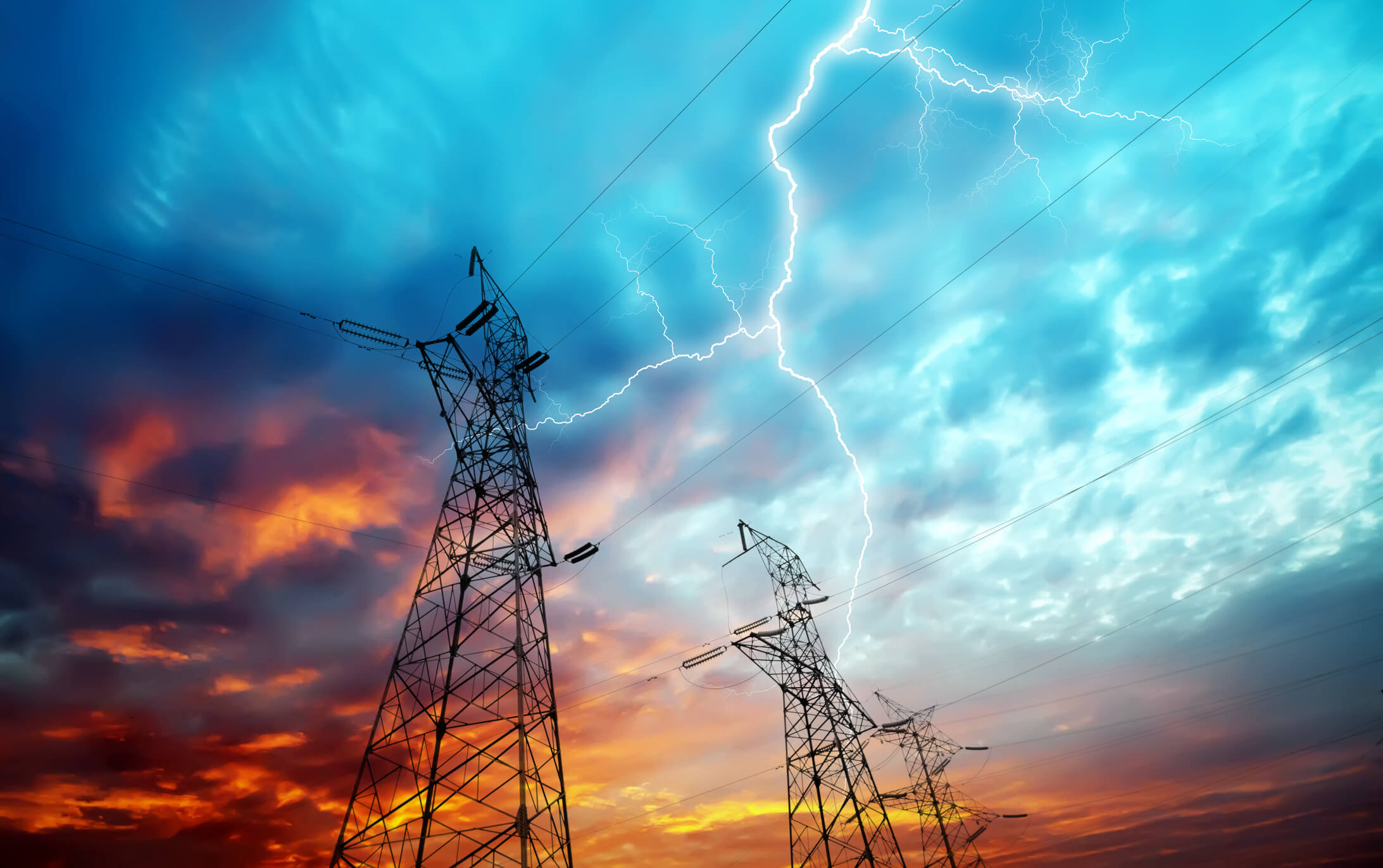
Electric System Planning for Extreme Weather Events: NERC Recommends Actions to Protect Reliability this Summer
June 23, 2021
Due to recent extreme weather-related power systems failures, stakeholders are examining the planning and operations practices for all electric utilities.

NERC’s FAC-008 Guidance on Facility Ratings
May 24, 2021
FAC-008 is one of the most data-intensive standards in the NERC regulatory framework. Compliance has been difficult for many utilities. Recently, FERC made public it’s intent to address serious allegations of facility ratings violations, including a lack of rigor by one utility.

NERC Issues Battery Energy Storage Systems Reliability Guidance
April 22, 2021
While NERC has recently published a reliability guideline addressing inverter-based resources generally, they are now giving more attention to the various potential uses of BESS to support effective implementation with newly released guidance.

NERC Proposes Revisions to CIP-008
March 27, 2021
NERC’s CIP-008 standard aims to mitigate reliability risks resulting from a Cyber Security Incident by specifying incident response requirements. Newly proposed revisions would augment mandatory reporting to include incidents that compromise, or attempt to compromise, a utility’s Electronic Security Perimeter (ESP) or associated Electronic Access Control or Monitoring Systems (EACMS).

Cold Weather Reliability Preparedness and Hardening
March 22, 2021
The latest weather impacts to power reliability have accelerated the need for mandatory regulatory compliance changes.

NERC Releases 2021 Compliance Monitoring and Enforcement Findings
February 8, 2021
NERC’s 2021 Compliance Monitoring and Enforcement Program reframes the previous year’s risks and their associated areas of focus. Utilities should review their compliance programs and internal controls to determine if enhancement or changes are need to maintain compliance.

NERC Proposes Revision of Pending TPL-001-5.1 Standard
January 20, 2021
NERC has recently undertaken important standards and guidance development activities related to the proliferation of inverter-based technologies such as solar and wind generation, as well as battery energy storage which is growing as an industry solution to ensure the reliability of renewable power for end-use customers.

NERC and FERC Take Action on Facilities Ratings
December 4, 2020
There has been significant work across the electric industry to improve facility ratings related processes, programs, frameworks, internal controls and best practices. Yet this continues to be a challenging area for utilities, particularly from an asset management and regulatory compliance perspective.

FERC Issues Annual Report on Critical Infrastructure Protection (CIP) Reliability Audits
November 17, 2020
In its 2020 Report on CIP Reliability Audits, the Federal Energy Regulatory Commission found that most of the cybersecurity protection processes and procedures adopted by utilities met the mandatory CIP requirements for protecting the Bulk Electric System. However, there are areas for improvement.
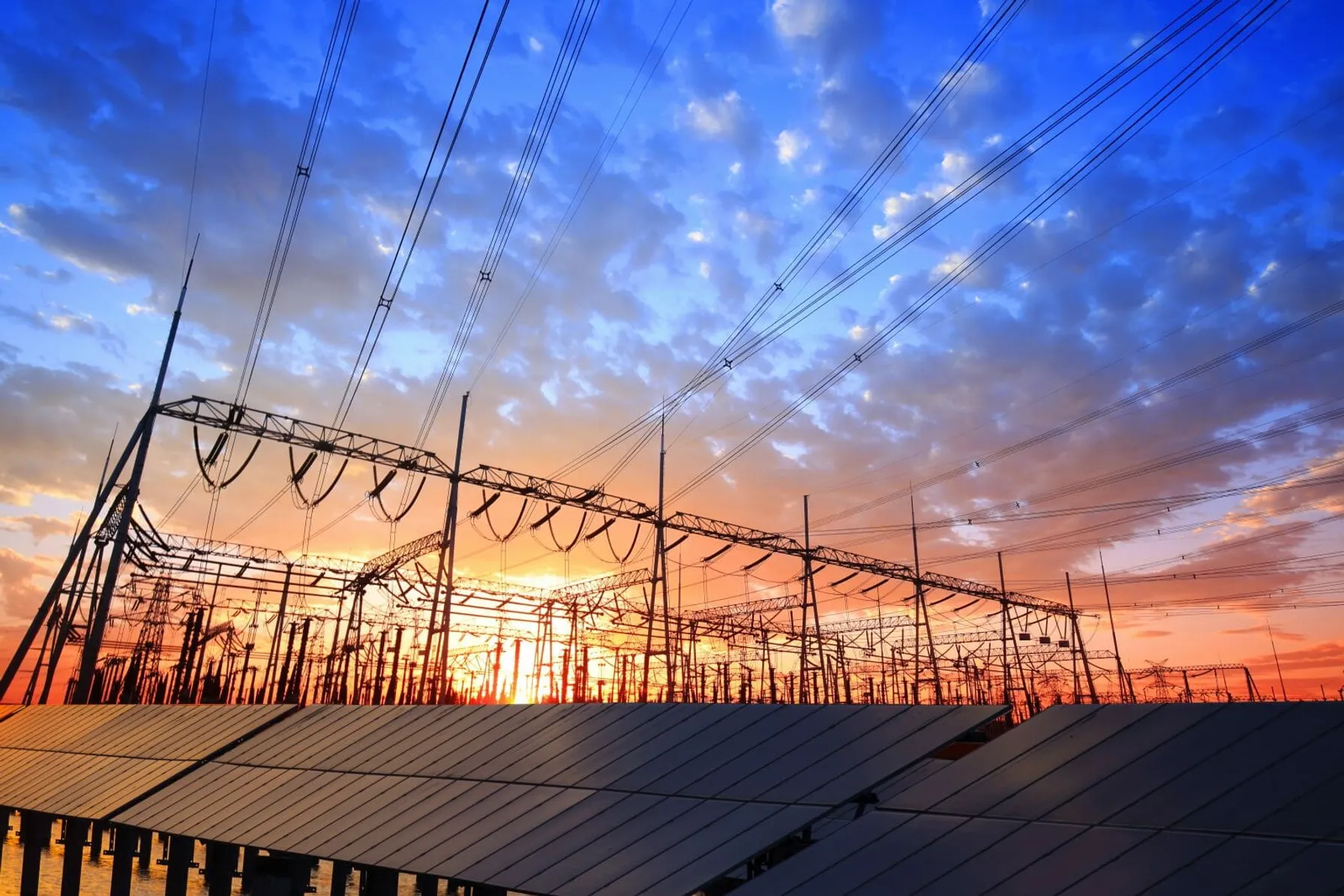
NERC Prioritizes Inverter-Based Resources for Future Standards Development
October 19, 2020
As inverter-based resources found in wind and solar generation technologies continue to rapidly penetrate the U.S. power delivery system, NERC remains focused on managing the potential reliability consequences.

NERC Issues 2020 State of Reliability Report
September 22, 2020
The Report identifies areas of ongoing concern including generation reserve margins and the reliability risk from shifting the resource mix toward renewables.

NERC Issues Lessons Learned on Misoperations Due to Mixing Relay Technologies
August 13, 2020
On July 10, 2020 NERC released new Lessons Learned guidance to address situations where multiple composite protection systems have misoperated as a result of mixing protective relay technologies at the remote terminals of directional comparison blocking (DCB) schemes. This technical information will help utilities improve the reliability of the Bulk Power System.

NERC Reliability Standard PRC-024-3 Approved: Frequency and Voltage Protection Settings for Generating Resources
July 28, 2020
On July 9, 2020 NERC standard PRC-024-3 was approved, paving the way for improved protection systems in support of keeping generating resources connected during defined frequency and voltage excursions.

Summary of NERC CIP Standards Updates
June 29, 2020
FERC has released a notice of inquiry seeking comments on potential enhancements to NERC’s Critical Infrastructure Protection (CIP) Reliability Standards.

NERC Protection System Compliance Studies Due This Year
February 24, 2020
NERC’s PRC-027-1 standard was approved by FERC in 2018 and is set to go into effect on October 1, 2020. Utilities should begin preparing now to meet compliance requirements which include significant system studies.

NERC Compliance Assurance: Maintaining Cross Functional Data Integrity
January 21, 2020
Assuring continued power system reliability is a complex undertaking for utilities. Balancing the demands of system changes and regulatory compliance is an essential strategy for optimizing ongoing operations. Given the wide range of NERC standard families that require simultaneous data management for compliance, data integrity, data flow and data verification are critical for avoiding violations that can impact electric service to customers and communities.

NERC Reliability Report Prioritizes Power System Security Risks for Action
January 2, 2020
NERC’s 2019 ERO Reliability Risk Priorities Report identified and prioritized the major risks facing the utility industry with a particular focus on security issues.

NERC Reliability Report Prioritizes Power System Risks
November 21, 2019
Looking ahead to the many changes coming to North America’s Bulk Power System (BPS), NERC’s 2019 ERO Reliability Risk Priorities Report highlights the top issues requiring industry and regulatory attention and recommends actions for the ongoing protection of BPS reliability.

NERC Pursues Changes to Protection Relay and Control (PRC) Standards
September 24, 2019
Two Standards Authorization Requests currently being debated in the NERC stakeholder engagement process could help clarify PRC standards obligations for generator owners and operators.

NERC to Modify Standard and Develop Compliance Guidance to Accommodate Inverter-Based Generation Technologies
February 20, 2019
Renewable energy systems have dramatically changed the power generation resource mix. These new generation technologies no longer involve directly coupled rotating generators which were once standard in the industry. Now, inverters that change Direct Current (DC) electricity to the Alternating Current (AC) electricity suitable for delivery via AC transmission systems are becoming more prevalent, raising reliability…

NERC Addresses Single Points of Failure in Protection Systems Among Other FERC Concerns
October 25, 2018
As inverter-based resources found in wind and solar generation technologies continue to rapidly penetrate the U.S. power delivery system, NERC remains focused on managing the potential reliability consequences. Building on NERC’s 2019 analysis of several major power disturbances and its report outlining the risks of inverter-based renewable energy resources, the Inverter-Based Resources Task Force (IBRTF) recently issued an industry survey, the results of which will serve as a roadmap for future standards or guidance activities. Contact Us

NERC Proposes Compliance Monitoring and Enforcement Plan for 2019
September 26, 2018
This month, NERC released the first draft of its 2019 Compliance Monitoring and Enforcement Plan (CMEP) which identifies power delivery system risks and outlines compliance audit requirements for next year. The risk elements outlined in the plan include significant differences from previous years, as shown in the table below. Each NERC region must consider these risks as they develop their monitoring and audit scopes for utilities. Utilities should be prepared to be audited and implement any necessary compliance initiatives in these areas.

NERC Calls for New Approach to Reliability Planning Due to Gas Supply Disruption Risks
December 14, 2017
A recently published NERC report concludes that as reliance on natural gas to meet electric generation requirements increases, additional planning and operational measures must be considered to mitigate power system reliability risks.

Hardening Cyber Defenses at Chemical Facilities a Key Part of Federal CFATS Regulations
October 24, 2017
Federal CFATS regulations cover more than just the handling, transport and storage of dangerous chemicals. They also deal with tools and methods terrorists could use to acquire the deadly agents – such as a cyber attack.

NERC CIP-013-1 Standard for Supply Chain Risk Management
September 29, 2017
NERC has filed mandatory standard CIP-013-1 for supply chain risk management, requiring controls to mitigate cyber threats and their impact to the reliable operation of the Bulk Electric System.

NERC Identifies New Reliability Risk due to Utility Scale Solar Generation Inverter Design
June 13, 2017
NERC has released a report documenting its findings and recommendations related to reliability risks from utility scale solar generation projects with implications for PRC-024 compliance, as well as generation, interconnection and protection system technologies.

NERC Standard Extends Maintenance Program Obligations to Generators
February 3, 2014
The approval of NERC Standard PRC-005-2 extends protection system maintenance obligations to Generators and crates one comprehensive standard establishing minimum maintenance activities and maximum time intervals for protection systems and load shedding equipment affecting the bulk electric system.

Jim Whitaker
Jim Whitaker, PE is Supervisor of Power Systems Studies at TRC. He has over 30 years of experience in Transmission and Distribution Planning, and Substation, Transmission and Distribution Engineering. His Transmission Planning projects include coordinating joint/regional 10-year transmission plans, generator interconnections, regional system assessments, as well as NERC compliance studies. His projects have included studies for both Utilities and Project Developers across the United States in the Eastern and Western Interconnection transmission systems as well as ERCOT. Prior to joining TRC, Jim worked for Xcel Energy, Peak Power Engineering, Tucson Electric Power and Virginia Power. Contact Jim at JWhitaker@trccompanies.com

Dylan Achey
Dylan Achey is TRC’s Manager of Generation Engineering Services. He has been leading the effort with TRC generation clients on evaluating and providing updates/information so that clients can meet applicable NERC standards. His highly technical staff perform NERC compliance standard evaluations as well as studies for both generation and transmission clients that need assistance on technical issues concerning NERC compliance. Contact Dylan at mailto:dachey@trccompanies.com.


